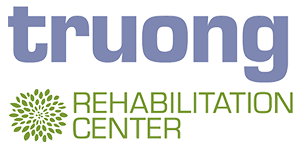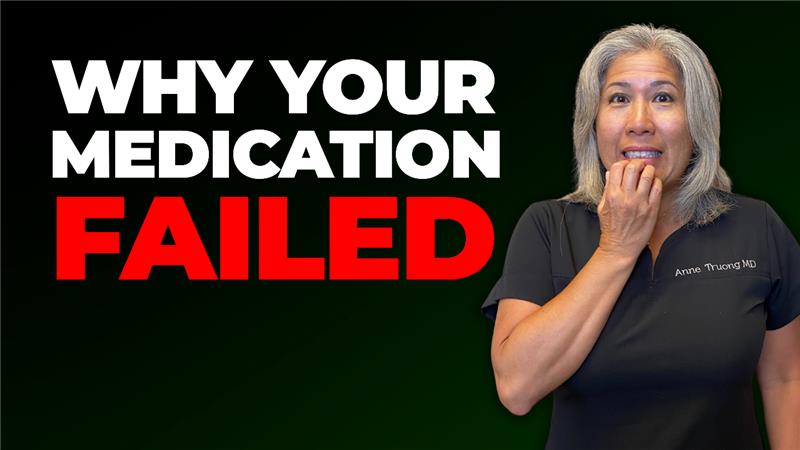

If Cialis Stopped Working, Watch This
You start to worry the moment it happens. Cialis used to work, and now it doesn’t. Your confidence drops, your stress goes up, and you’re left wondering if your erectile dysfunction is

Doctor Explains: The Erection Gas
Imagine having a switch in your body that turns on your ability to get an erection. No, it’s not magic; it’s science. That “switch” is a molecule called nitric oxide, and it’s

8 Steps to Keep Your Erection
Ever wonder why you can get hard but can’t keep it? Millions of men silently struggle with losing their erection halfway through, and it’s not always about age, attraction, or even testosterone. In this episode, we peel back the curtain on what’s really going on when your body isn’t cooperating in the bedroom. Could it be stress? Hormones? Something you’re doing every day without even realizing it? You’ll get a fresh perspective on erectile dysfunction. One that’s practical, eye-opening, and actually hopeful. Curious what might be causing it and how to turn it around naturally? Dive in and find out.

Prostate Surgery & Erectile Dysfunction: The Truth
Ever wonder why you can get hard but can’t keep it? Millions of men silently struggle with losing their erection halfway through, and it’s not always about age, attraction, or even testosterone. In this episode, we peel back the curtain on what’s really going on when your body isn’t cooperating in the bedroom. Could it be stress? Hormones? Something you’re doing every day without even realizing it? You’ll get a fresh perspective on erectile dysfunction. One that’s practical, eye-opening, and actually hopeful. Curious what might be causing it and how to turn it around naturally? Dive in and find out.

Fix Erections with this Kegel Machine
Ever wonder why you can get hard but can’t keep it? Millions of men silently struggle with losing their erection halfway through, and it’s not always about age, attraction, or even testosterone. In this episode, we peel back the curtain on what’s really going on when your body isn’t cooperating in the bedroom. Could it be stress? Hormones? Something you’re doing every day without even realizing it? You’ll get a fresh perspective on erectile dysfunction. One that’s practical, eye-opening, and actually hopeful. Curious what might be causing it and how to turn it around naturally? Dive in and find out.
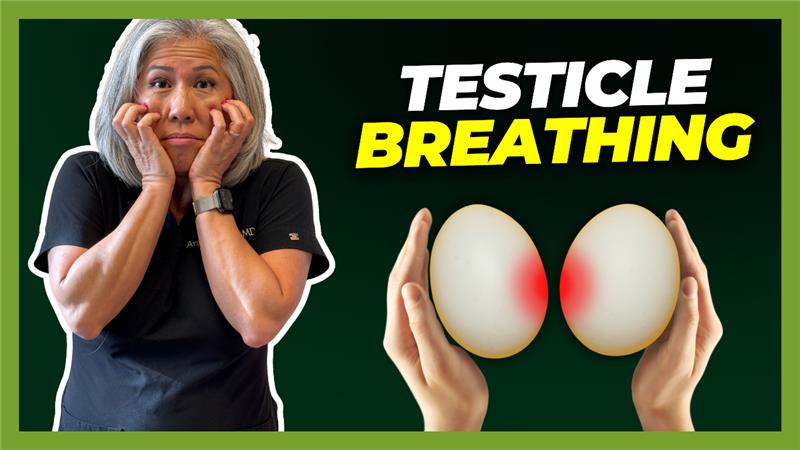
Taoist Secret For Better Erection Power
Ever wonder why you can get hard but can’t keep it? Millions of men silently struggle with losing their erection halfway through, and it’s not always about age, attraction, or even testosterone. In this episode, we peel back the curtain on what’s really going on when your body isn’t cooperating in the bedroom. Could it be stress? Hormones? Something you’re doing every day without even realizing it? You’ll get a fresh perspective on erectile dysfunction. One that’s practical, eye-opening, and actually hopeful. Curious what might be causing it and how to turn it around naturally? Dive in and find out.

Penis Sensitivity and Delayed Ejaculation Connection
Ever wonder why you can get hard but can’t keep it? Millions of men silently struggle with losing their erection halfway through, and it’s not always about age, attraction, or even testosterone. In this episode, we peel back the curtain on what’s really going on when your body isn’t cooperating in the bedroom. Could it be stress? Hormones? Something you’re doing every day without even realizing it? You’ll get a fresh perspective on erectile dysfunction. One that’s practical, eye-opening, and actually hopeful. Curious what might be causing it and how to turn it around naturally? Dive in and find out.
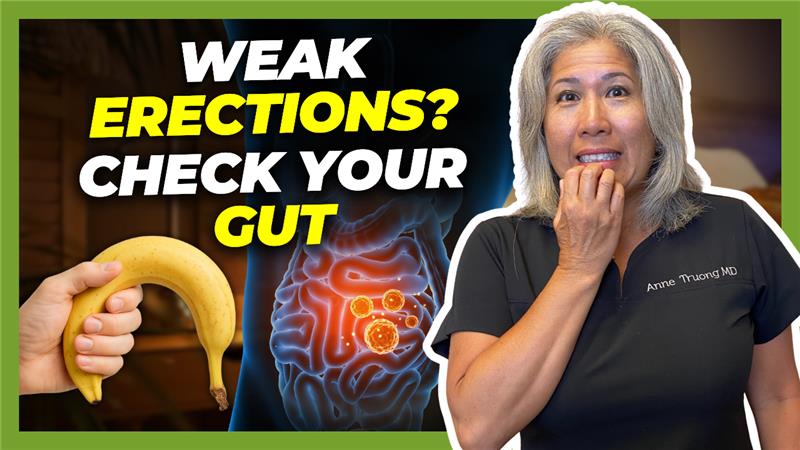
The Gut-Erection Connection
Ever wonder why you can get hard but can’t keep it? Millions of men silently struggle with losing their erection halfway through, and it’s not always about age, attraction, or even testosterone. In this episode, we peel back the curtain on what’s really going on when your body isn’t cooperating in the bedroom. Could it be stress? Hormones? Something you’re doing every day without even realizing it? You’ll get a fresh perspective on erectile dysfunction. One that’s practical, eye-opening, and actually hopeful. Curious what might be causing it and how to turn it around naturally? Dive in and find out.
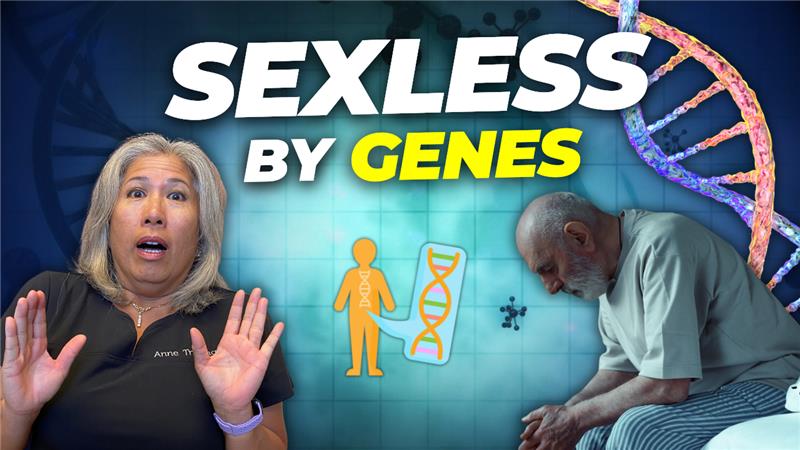
Why 1% Never Have Sex
Ever wonder why you can get hard but can’t keep it? Millions of men silently struggle with losing their erection halfway through, and it’s not always about age, attraction, or even testosterone. In this episode, we peel back the curtain on what’s really going on when your body isn’t cooperating in the bedroom. Could it be stress? Hormones? Something you’re doing every day without even realizing it? You’ll get a fresh perspective on erectile dysfunction. One that’s practical, eye-opening, and actually hopeful. Curious what might be causing it and how to turn it around naturally? Dive in and find out.
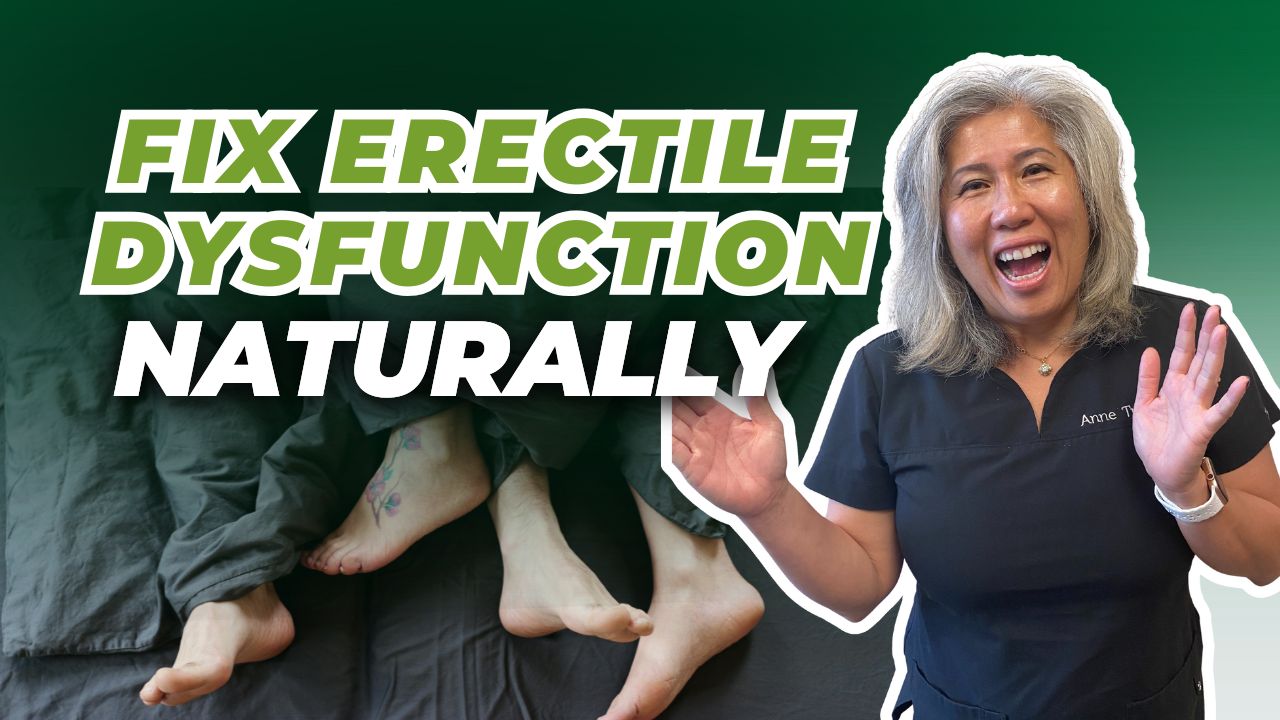
How to Fix Erectile Dysfunction Without Pills
Ever wonder why you can get hard but can’t keep it? Millions of men silently struggle with losing their erection halfway through, and it’s not always about age, attraction, or even testosterone. In this episode, we peel back the curtain on what’s really going on when your body isn’t cooperating in the bedroom. Could it be stress? Hormones? Something you’re doing every day without even realizing it? You’ll get a fresh perspective on erectile dysfunction. One that’s practical, eye-opening, and actually hopeful. Curious what might be causing it and how to turn it around naturally? Dive in and find out.

Why Can’t I Stay Hard After an Erection | Doctor Explains
Ever wonder why you can get hard but can’t keep it? Millions of men silently struggle with losing their erection halfway through, and it’s not always about age, attraction, or even testosterone. In this episode, we peel back the curtain on what’s really going on when your body isn’t cooperating in the bedroom. Could it be stress? Hormones? Something you’re doing every day without even realizing it? You’ll get a fresh perspective on erectile dysfunction. One that’s practical, eye-opening, and actually hopeful. Curious what might be causing it and how to turn it around naturally? Dive in and find out.

The Ultimate Guide to Treating ED at Home Now
What if everything you need to overcome erectile dysfunction is already within your reach, simple steps you can take right at home? In this episode, we’re peeling back the curtain on natural methods that have helped thousands of men regain control, confidence, and lasting performance. You’ll hear about powerful, everyday changes that might seem small but can make a huge difference in your sexual health. We’re not just talking theory. This is real, actionable advice you can start today. Curious what the most effective erectile dysfunction home remedy really looks like? Dive in now and take the first step toward getting your edge back.
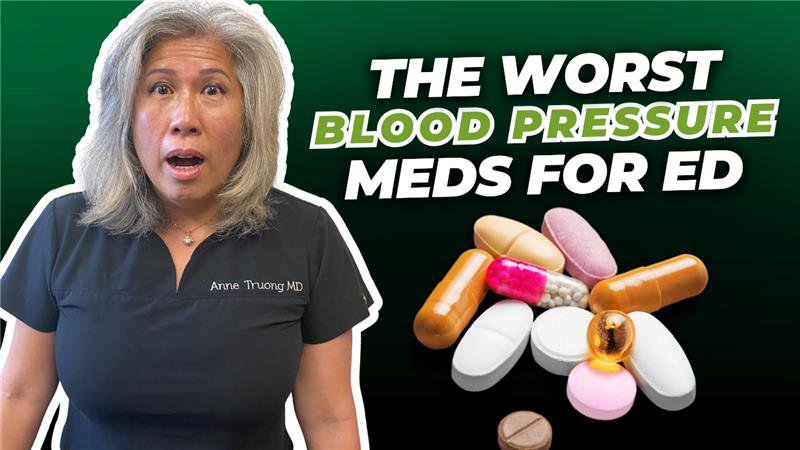
Which Blood Pressure Meds Cause Erectile Dysfunction?
What if the key to a long-lasting erection isn’t found in a pill, but in something much more fundamental? Something most men never even think about. In this episode, we explore the powerful and surprising link between erectile dysfunction and your heart health. You’ll discover how one small change in your daily routine could lead to major improvements in your performance and overall well-being. This isn’t about quick fixes or temporary solutions. It’s about getting to the root of the problem. Curious what that one change could be? Dive in and find out what your body has been trying to tell you.

The Science Behind Lasting Erections Revealed
What if the key to a long-lasting erection isn’t found in a pill, but in something much more fundamental? Something most men never even think about. In this episode, we explore the powerful and surprising link between erectile dysfunction and your heart health. You’ll discover how one small change in your daily routine could lead to major improvements in your performance and overall well-being. This isn’t about quick fixes or temporary solutions. It’s about getting to the root of the problem. Curious what that one change could be? Dive in and find out what your body has been trying to tell you.

How a Serial Entrepreneur Mastered His Energy & Health | Jim Edwards
What if the secret to thriving in entrepreneurship, maintaining peak health, and overcoming performance anxiety isn’t about doing more, but doing the right things with intention? In this episode, we sit down with a high-performing entrepreneur who shares the behind-the-scenes habits and mindset shifts that transformed his life, business, and relationships. From his unconventional morning routine to how he reframes stress, success, and confidence, this conversation offers a glimpse into what it really takes to lead with clarity and purpose. Curious how physical discipline impacts mental resilience or how health management plays a role in both business and the bedroom? Don’t miss this episode. Dive in now and take the first step toward redefining what success means to you.
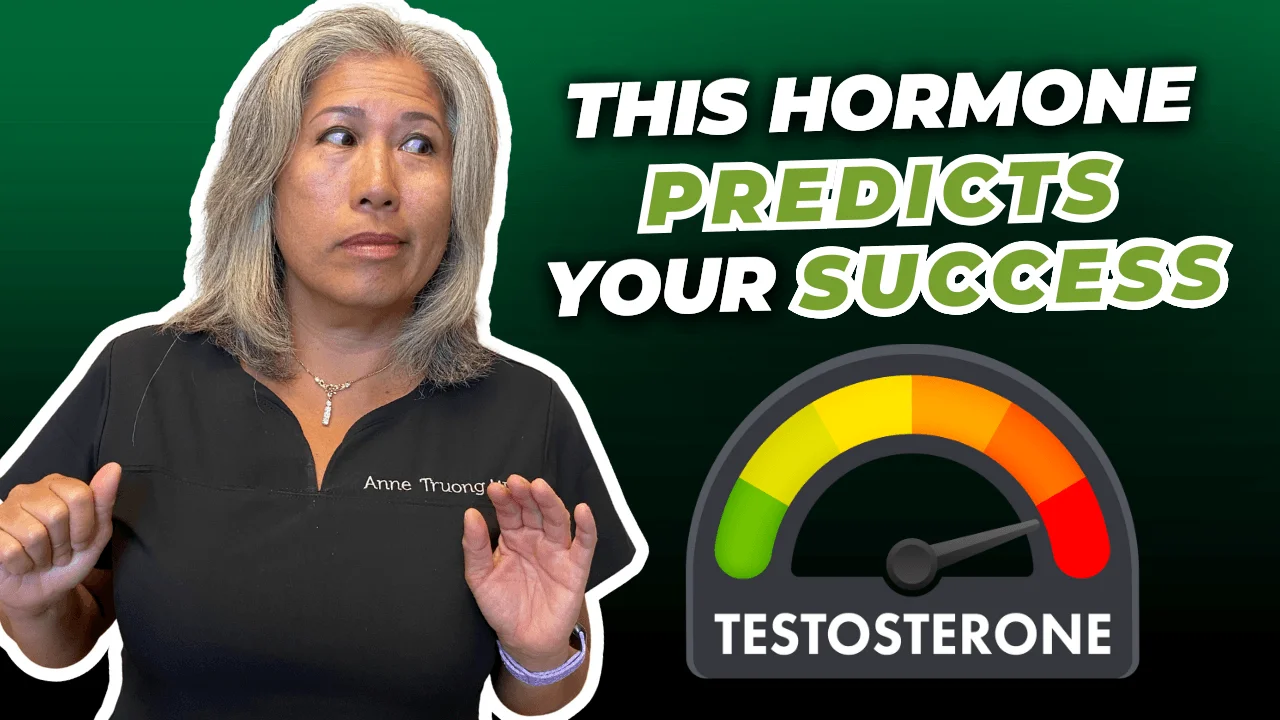
Why Entrepreneurs Have Lower Testosterone
Is your success being driven, or secretly sabotaged, by your hormones? Most people assume that high-achieving entrepreneurs and executives naturally have high testosterone. But what if that’s not always the case? In this episode, we delve into surprising new research that reveals how your testosterone levels shift throughout your business journey. Additionally, discover what this could mean for your energy, focus, and long-term performance. Whether you’re building a startup, leading a team, or just curious about optimizing your edge, this episode uncovers the hidden side of success you’ve likely never considered. Dive in now to discover what your testosterone might really be saying about you.

Why Executives Struggle with Energy & Erectile Dysfunction
Is your relentless drive for success costing you more than just sleep? Behind the polished image of high-performing entrepreneurs and CEOs lies a silent struggle that’s rarely discussed: erectile dysfunction. But it’s becoming more common than ever. In this episode, we’ll dive into an overlooked health challenge that’s directly linked to the constant pressure, long hours, and unrelenting stress of leadership. We’ll explore how these factors can impact a leader’s well-being in surprising ways. If you’ve been feeling off your game physically or mentally, this might be the wake-up call you didn’t know you needed. Curious what it is and how it might be affecting you without even realizing it? Dive in and find out what every Modern Man needs to know.
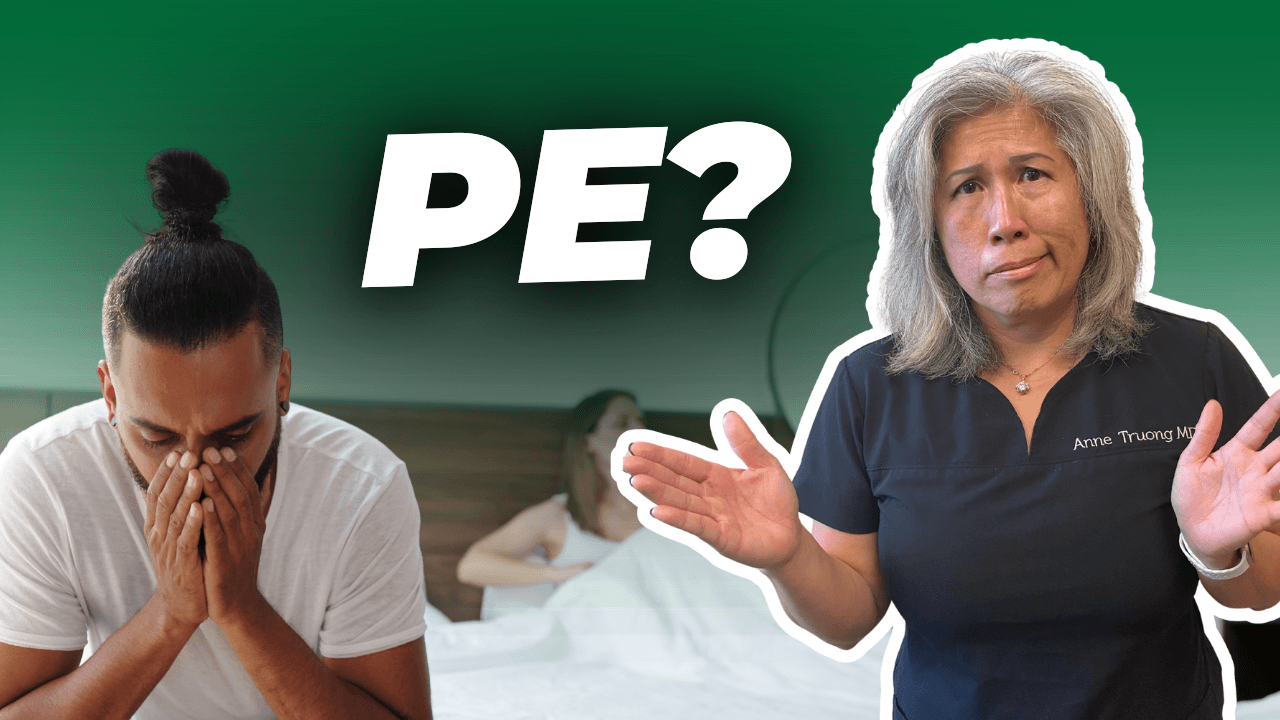
The Premature Ejaculation, What and How To Treat It (Proven Methods)
Ever wondered why premature ejaculation happens, and why it seems so hard to talk about? You’re not alone, and in this episode, we’re opening up the conversation. We’re taking a closer look at what might be causing it, why it affects so many men, and how it can impact more than just your intimate life. You’ll get a sneak peek into some of the most overlooked strategies and eye-opening insights that could shift the way you think about PE. No fluff, no shame, just real talk and actionable tips. Ready to find out what’s really going on behind closed doors? Dive in and discover what you’ve been missing.
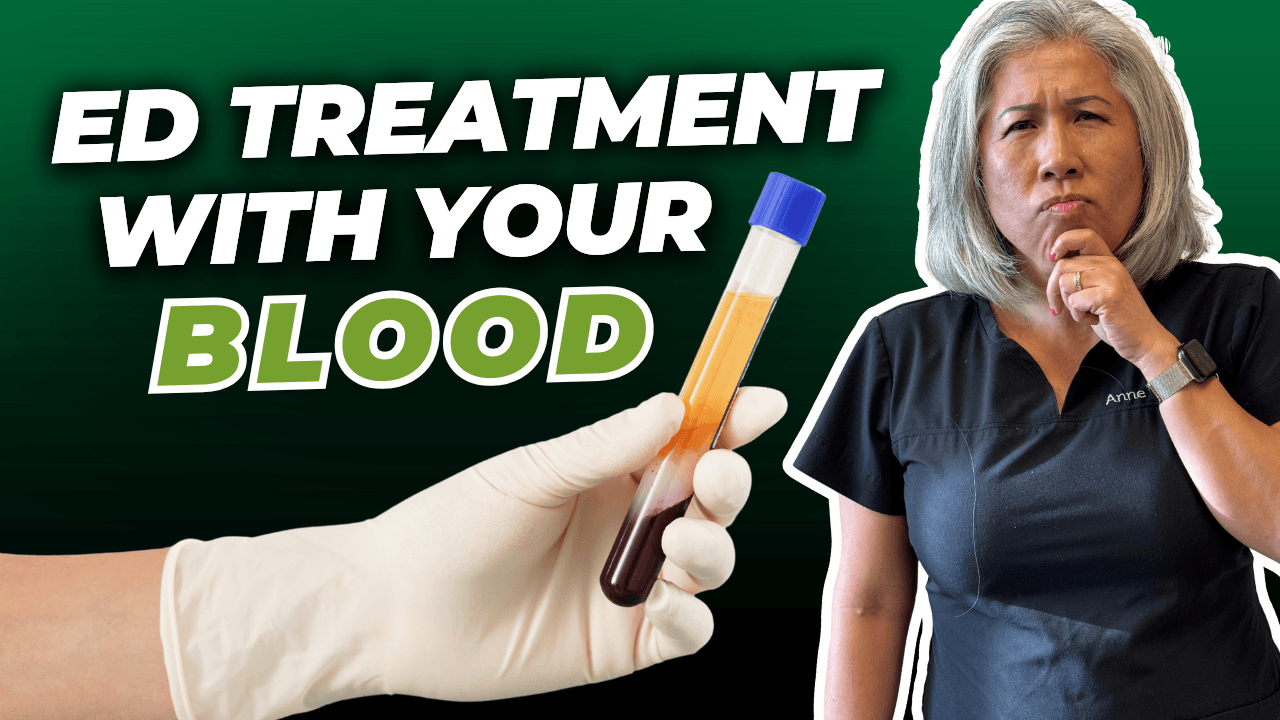
Does the P-Shot Work? PRP Therapy for ED Explained
Have you ever wondered if there’s a way to treat erectile dysfunction that goes beyond quick fixes like pills? In this episode, you’ll hear about an innovative approach that goes beyond temporary fixes and taps into your body’s natural ability to heal. We’ll dive into the science behind the P-Shot and uncover why this regenerative therapy is creating so much buzz. You’ll learn why men are seeing lasting results and how this treatment could potentially change the way erectile dysfunction is managed. Don’t miss this conversation. Dive in now to find out if this breakthrough might be the solution you’ve been waiting for.

Cialis: Biohacking or Dangerous Mistake?
Is it possible to boost your energy, focus, and even longevity using a drug originally designed for erectile dysfunction? More and more men are turning to Cialis, not just for performance in the bedroom, but as a daily biohacking tool. But does it really deliver on the hype, and is it safe if you don’t have ED? This episode unpacks the growing trend of biohacking with Cialis, separating science from speculation and diving into what most people overlook. If you’ve ever wondered whether a small pill could lead to big performance gains, this is one conversation you don’t want to miss. Dive in to find out what’s fact, what’s fiction, and what it could mean for your health.
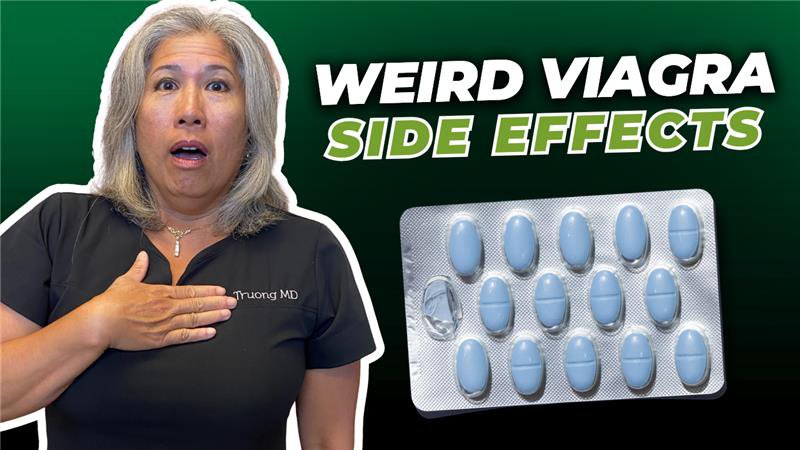
Viagra Dangers: Is It Worth The Risk?
What if the solution to your bedroom struggles is silently putting your health at risk? Viagra has become a go-to for millions of men dealing with erectile dysfunction. But how much do you really know about what it’s doing to your body? In this episode, we take a closer look at the lesser-known side of Viagra. I discuss the surprising statistics, the risks that often go undiscussed, and the hidden trade-offs that come with relying on the little blue pill. Whether you’ve already tried it or are just starting to consider it, you’ll want to hear this before making your next move. Tune in now for a revealing conversation every Modern Man should hear.

Erectile Dysfunction Cure: What Doctors Don’t Share
Can erectile dysfunction truly be cured, or is it something that only gets managed over time? In this episode, we dive into the real meaning of an erectile dysfunction cure. Learn the surprising factors that affect your erectile dysfunction cure rate and how quickly you take action. You’ll get a glimpse into the difference between treatment and a true cure, and why early intervention could be the game-changer you’ve been looking for. Dive in to discover what might be standing in your way and the first steps toward reclaiming your confidence and performance.

Get Hard Fast: Train These Forgotten Muscles
What if the most important muscle for your intimate life isn’t one you can flex in the mirror, but a hidden powerhouse deep in your body? In this episode, you’ll discover an often-overlooked muscle that’s important for stronger erections and better control. This muscle may even be the key to reversing your erectile dysfunction. All of this is possible without pills or expensive treatments. I’ll talk about why most men ignore it, how it quietly affects your performance, and the simple daily Kegel exercises that can make all the difference. Don’t miss this revealing discussion. Dive in now to learn the secret that could transform your intimate health.

Why ED Doesn’t Kill Your Sex Drive – The Truth!
Can you still crave intimacy even when your body won’t cooperate? It’s a question many men are afraid to ask, but it’s more common than you think. In this episode, we peel back the layers to explore the surprising truth about the relationship between sexual desire and erectile dysfunction. We’re breaking down the difference between desire and being able to perform, and why understanding this difference could be the key to reclaiming your confidence. Whether you’re dealing with ED yourself or just curious about how your body really works, this episode delivers insights you won’t hear anywhere else. Curious yet? Dive in and find out what most men don’t know, but should.

Erections Are Natural – You Just Broke Them! Here’s Why
Can you really stay sexually active well into your 70s, 80s, or even your final years? What if everything you’ve been told about aging and erectile dysfunction is wrong? In this episode, we dive into the hidden connection between your brain and your ability to maintain a healthy sex life as you age. You’ll get a glimpse into the science of sexual longevity and why declining performance isn’t as inevitable as it seems. Ready to challenge the myths and take back control of your sexual health? Dive in now. You won’t want to miss this.

How Stress Is Ruining Your Erection
Ever wondered why everything works fine in the morning, but when it’s time for intimacy, things suddenly fall flat? You might be surprised to learn that the root cause isn’t always physical. It could be something far more common and often ignored: chronic stress. In this episode, we explore the powerful connection between stress and erectile dysfunction. We will uncover how your body and mind may be working against you without you even realizing it. If you’ve been feeling frustrated, confused, or just want answers, this episode is for you. Dive in for a fresh perspective and a few simple steps that could make a big difference.

How To Beat Performance Anxiety
Ever wonder why everything seems fine physically, but things still fall apart in the bedroom? You’re not alone, and the reason might not be what you think. In this episode, we take a closer look at performance anxiety, a silent but powerful force that affects more men than you’d imagine. We’ll explore how the mind plays a major role in your ability to perform and why fixing the body isn’t always enough. You’ll also get a sneak peek into one of the most effective solutions out there: cognitive behavioral therapy (CBT). If you’ve been searching for real answers and lasting change, don’t miss this one. Tune in now because you’re just one episode away from understanding what’s really holding you back.

How To Become A Sexual Magnet
What if the key to unlocking your confidence, vitality, and sexual energy was already within you, just waiting to be activated? In this episode, we dive into the transformation of a man who went from silently struggling with erectile dysfunction to becoming a magnet for attraction and connection. It’s not about magic pills or quick fixes; it’s about real solutions that reignite your energy, rebuild your performance, and restore your sense of self. If you’ve ever wondered what’s possible when you take control of your health and masculinity, this story will spark your curiosity. Dive in and discover what it really means to become a sexual magnet.

Why L-Arginine and L-Citrulline Do Not Increase Nitric Oxide
Why are your nitric oxide levels still low even after taking L-arginine and L-citrulline every day? If you’re doing all the “right” things but still not seeing results, there’s a deeper issue at play that most people completely miss. In this episode, we take a closer look at why nitric oxide production can stall, even with popular supplements. We also explore a key enzyme that may be holding you back. Plus, you’ll hear why your age, digestion, and even your daily habits could be quietly sabotaging your efforts. Don’t miss this eye-opening conversation. Tune in now and learn what it really takes to boost nitric oxide naturally.

These Foods Work Better Than Viagra For a Stronger Erection
What if the secret to better performance in the bedroom was hiding in your fridge? In this episode, you’ll uncover how certain everyday foods can naturally boost erection strength by helping your body produce more nitric oxide. We’re diving into powerful nutrition tips you’ve probably never heard before, straight from science and the kitchen. Ready to find out which nitric oxide rich foods could change your health (and your love life)? Dive in now.

How To Increase Nitric Oxide for Stronger Erections
What if the secret to better performance in the bedroom isn’t a pill, but a gas your body naturally produces? In this episode, you’ll uncover how nitric oxide plays a key role in blood flow, energy, and reversing erectile dysfunction, naturally. From foods that boost it to habits that kill it, this episode is a must if you’re serious about taking control of your health. Don’t miss out on the science-backed strategies that could change everything. Dive in now before you’re left behind.

How Everyday Products Lower Nitric Oxide and Impact Erection Quality
Are you doing something every single day that’s quietly destroying your erection and lowering your nitric oxide levels, and you don’t even know it? Most men never suspect that some of their daily habits could be silently wrecking their ability to perform in the bedroom. In this episode, you’ll get a sneak peek at three major lifestyle culprits that could be putting your performance at risk, and what to do instead. Don’t wait until your body starts sending louder warnings. Dive in now and uncover what might be stealing your confidence without you even realizing it.

The 3 Secrets Penis Maintenance Men Need To Know For Erection
Ever wondered if there’s such a thing as penis maintenance, and why you’ve never heard about it before? What if a few simple habits could completely change the way your body performs and feels? This podcast episode reveals the overlooked world of penile maintenance. Discover how men everywhere can take charge of their sexual health with just a few easy steps. From boosting blood flow to improving performance, you’ll discover practical strategies you can start using today. Don’t miss this eye-opening discussion. Dive in now before everyone else is talking about it.

Natural ED & PE Solutions: 3 Simple Exercises
Are you struggling with weak erections and wondering if there’s a natural, side-effect-free way to fix it for good? What if you could train your body just like you train your muscles at the gym to bring back stronger, longer-lasting erections? In this eye-opening episode, you’ll discover powerful, science-backed exercises for erection that target the exact muscles and systems responsible for sexual performance. These aren’t gimmicks, they’re simple, proven techniques that thousands of men are already using to take control of their health and their confidence. Don’t miss this episode. Dive in now, because if you’re not doing these exercises yet, you’re leaving serious gains on the table.

How Breathing Techniques Can Give You Stronger Erections
What if the secret to beating erectile dysfunction had nothing to do with pills, and everything to do with how you breathe? Sounds crazy, right? But the connection between breathing and erection strength is very real, and most men have no idea how powerful it can be. In this episode, we dive into how simple breathing techniques can help improve your sexual performance naturally. If you’re dealing with ED or just want to take your performance to the next level, this is something you can’t afford to ignore. Don’t miss out. Dive in now and discover what your body’s been trying to tell you all along.

How To Use A Penis Pump and Why Every Man Should Use It
Is there a safe, non-surgical way to get stronger, longer-lasting erections, without pills or painful procedures? In this eye-opening episode, we dive into a powerful yet often misunderstood device. This device is FDA-approved for treating erectile dysfunction and improving overall sexual health. You’ll discover how it works, who it’s for, and the real science behind its surprising benefits. If you’re ready to take your performance and confidence to the next level, don’t miss this one. Dive in now or risk staying in the dark about a game-changing solution millions of men are already using.

The Ultimate Guide To Take Your Penis To The Gym!
What if you could take your penis to the gym, just like your biceps? In this episode, I reveal a powerful, natural method for reversing erectile dysfunction using a penis pump and strategic supplements. You’ll learn how to boost blood flow, increase size, and improve performance, without medication or surgery. Thousands of men are seeing faster, firmer erections and renewed confidence using this simple routine. Don’t miss out on the step-by-step breakdown that could change everything. Tune in now before you’re the last to know.
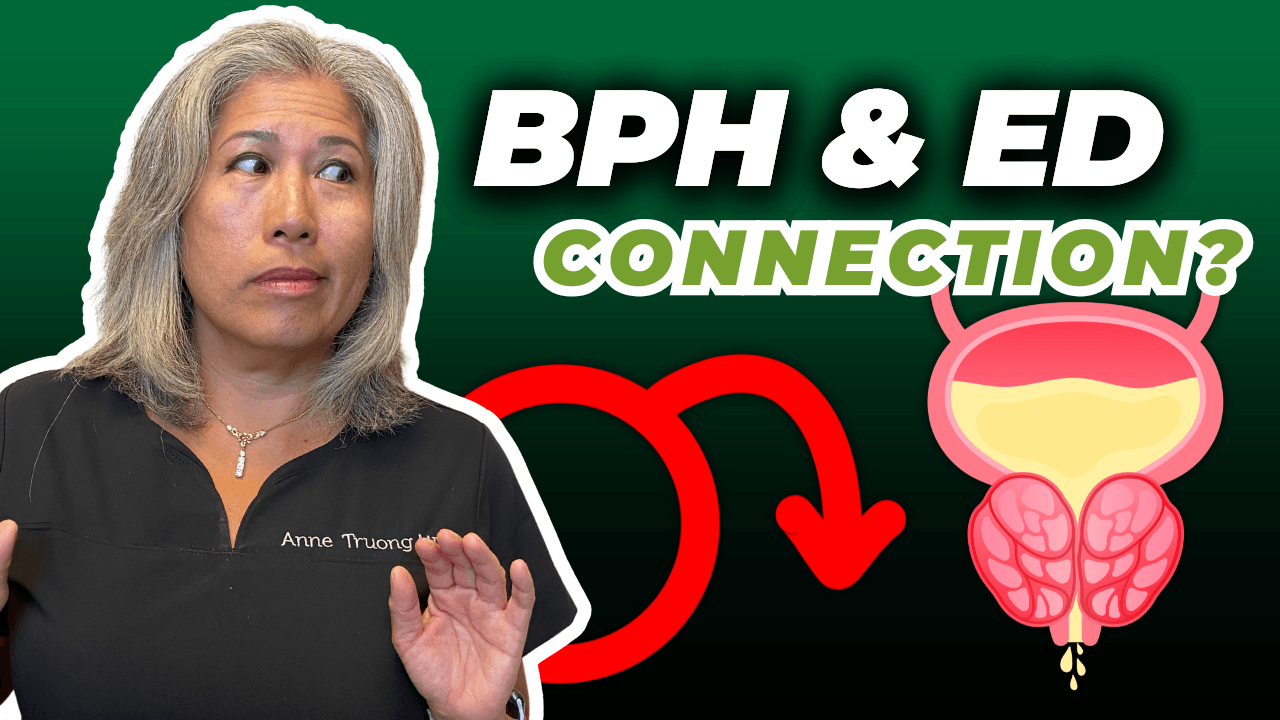
How does Benign Prostatic Hyperplasia (BPH) Affect Erectile Dysfunction?
Is your bedroom life taking a hit, and you’re not sure why? If you’re struggling with an enlarged prostate (benign prostatic hyperplasia) and noticing signs of erectile dysfunction, there’s likely more going on than you’ve been told. In this episode, I uncover the surprising BPH and ED connection that could be the missing piece in your health journey. From overlooked causes to treatment options your doctor may not be mentioning, we’re diving into the facts you need to know. Don’t miss this chance to get ahead of the problem. Dive in now before symptoms take control.
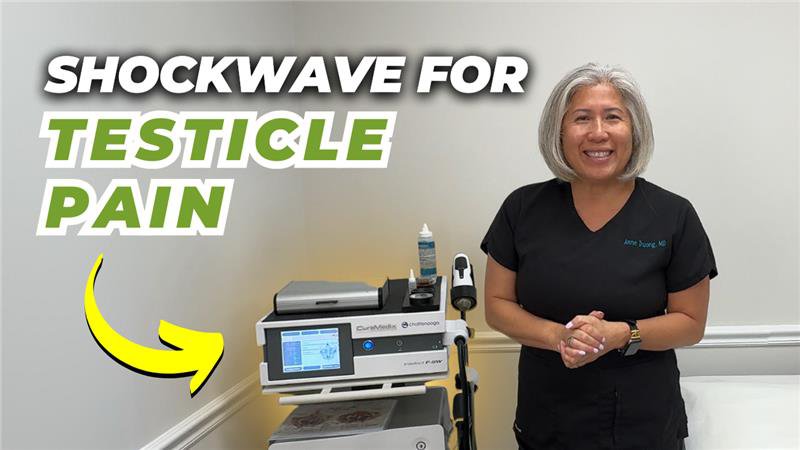
New Treatment For Testicle Pain After Vasectomy
Ever wonder why some men experience pain in the testicles long after a vasectomy? Why does no one seem to talk about it? In this eye-opening podcast episode, I reveal a breakthrough treatment that’s giving real relief to men suffering in silence. We delve into what causes the pain, why it persists for years in some cases, and how a quick, non-invasive solution is transforming lives. Don’t miss this episode, especially if you or someone you know has been living with this hidden pain. Die in now before you miss out on a game-changing solution!
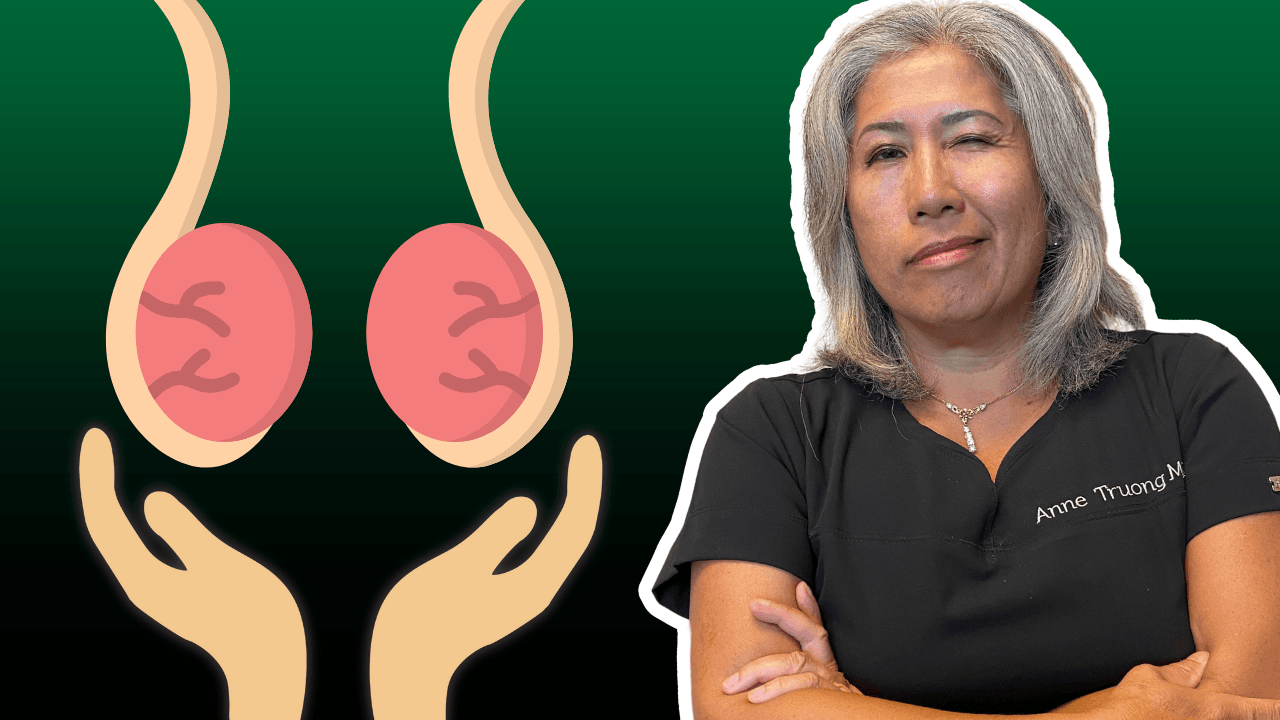
Testicle Massage for Erectile Dysfunction
Have you ever wondered if there’s a completely natural way to enhance your sexual performance, all without pills or procedures? This podcast episode dives into the rarely discussed but surprisingly effective technique of testicle massage. Discover how just two minutes a day can make a lasting impact on your confidence and performance. You’ll learn what testicle massage is, how it works, and why it’s becoming a go-to strategy for men looking to take back control of their sexual health. Want to know how to do it safely and why it’s so effective? Dive into the full episode; this could be the secret weapon your routine is missing!
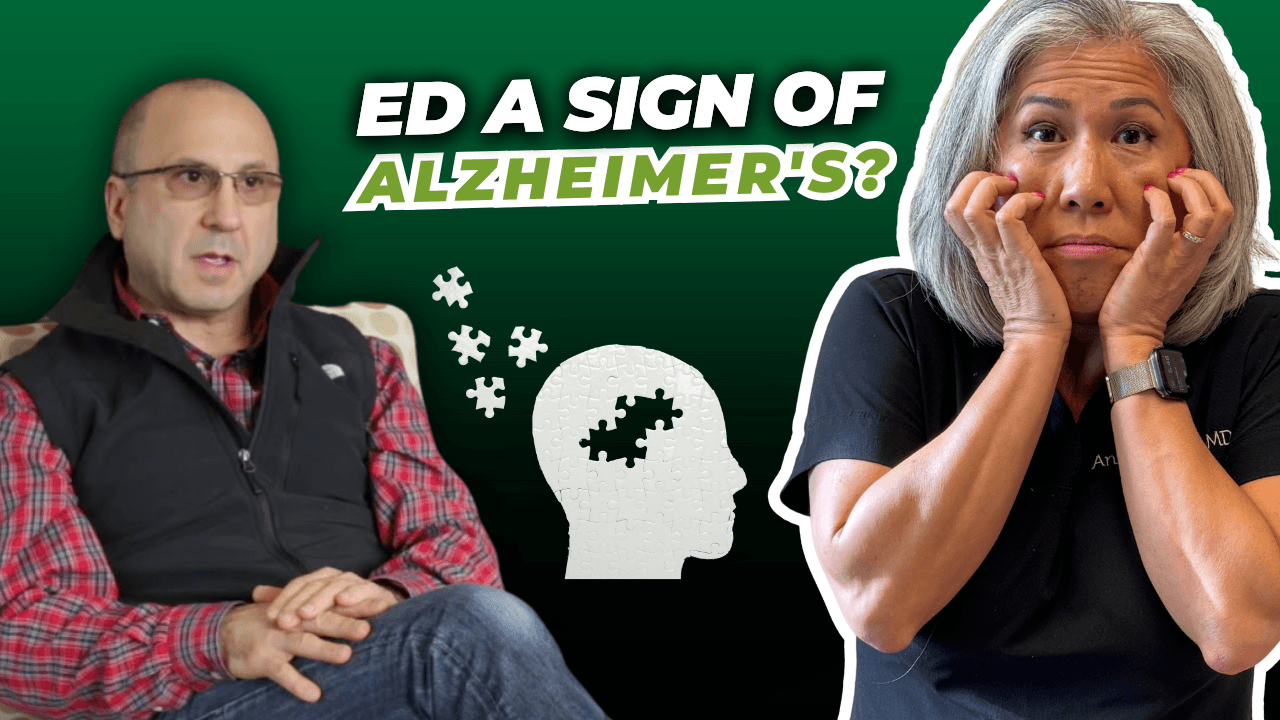
Erectile Dysfunction & Brain Health: Parkinson’s, Alzheimer’s Link
Could your erectile dysfunction be trying to tell you something deeper about your brain? In this eye-opening podcast episode, Dr. Ken Sharlin, a neurologist and functional medicine expert, reveals how ED might be one of the first clues to serious neurological conditions like Parkinson’s disease and Alzheimer’s disease. The conversation dives into surprising links between sexual function, brain health, and long-term cognitive decline. We also tackle the emerging treatments that could protect both. Don’t miss this powerful discussion that could change how you think about your symptoms and your future. Dive in now before you overlook something that could save your brain and your bedroom health.

How to Bring Her More Pleasure, Know Her Anatomy
What if the key to unlocking real intimacy lies in understanding the female pleasure system, and most men are missing it? In this powerful episode, Dr. Carolyn DeLucia, a world-renowned OBGYN and leading voice in women’s sexual health, reveals the hidden truths about female anatomy. She discusses everything about arousal and pleasure that every Modern Man needs to hear. This isn’t just a biology lesson, it’s a masterclass in connection, trust, and satisfaction. Don’t miss your chance to learn what could transform your relationships forever. Dive in now!

How to Get Harder Erections Naturally
What if I told you the secret to harder erections isn’t found in a pill bottle, but in simple, natural shifts you can make today? If you’re struggling with performance and crave a genuine solution, get ready for a game-changer. In this episode, I’m revealing the surprisingly easy, science-backed methods that will empower you to achieve harder erections, naturally. From overlooked daily habits to powerful, actionable strategies, you’ll discover what truly works to revitalize your health and transform your intimate life. Stop the endless searching and start living with renewed vigor. Dive in now!
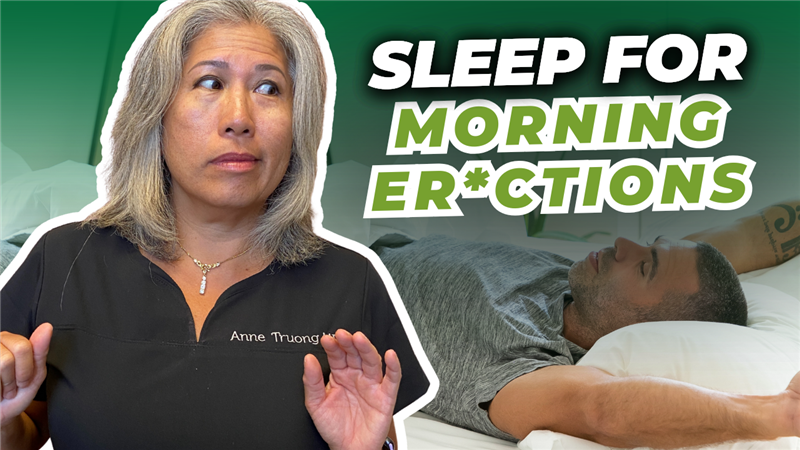
10 Sleep Tips To Boost Morning Erections
Feeling a little less “up” in the mornings lately? What if that missing morning wood isn’t just a sign of a bad night’s sleep, but a blaring alarm bell about your overall health? In this podcast episode, I expose the shocking truth behind your morning wood and its intimate connection to REM sleep, erectile dysfunction, and your hidden health markers. I’ll reveal why your sleep patterns might be the secret weapon to stronger erections and peak vitality. Get ready for science-backed strategies to optimize your REM sleep and reclaim your youthful vigor. Stop ignoring the most important health report your body gives you every night. Tune in now!

How To Have The Best Sex With Erectile Dysfunction: Positions Guide
Struggling to find the right sex position that works with erectile dysfunction? You’re not alone, and the answer might be simpler than you think. This podcast episode teases the top expert-approved sex positions designed specifically to help men with erectile dysfunction experience deeper intimacy and better performance. But there’s more to it than just physical technique. Don’t miss out on the full insight, tune in now and discover what you’ve been overlooking in the bedroom.

Science of Sex: When is the Best Time for SEX?
Ever wondered if there’s actually a “right” time to have sex? Forget what you think you know, because this episode is about to reveal the hidden science behind syncing your deepest desires with your body’s natural rhythms. We’re talking hormones, biology, and the surprising truth about when you’re truly primed for passion. Stop leaving your love life to chance. Dive in now before you miss out on what could be your most incredible moments of intimacy.

Top 7 Reasons Why Your Erection Leaves During Sex
What if the real reason you can’t stay hard has nothing to do with your age or your hormones? In this podcast episode, you’ll discover the seven most overlooked factors that could be silently wrecking your ability to maintain an erection. From everyday habits to hidden health disruptors, even just fixing one of these could turn everything around. Don’t miss this eye-opening breakdown, your confidence and performance might depend on it. Tune in now before you make another move.

Easy Snacks for Rock Hard Erection
Tired of wondering if your late-night snacks are helping or hindering things in the bedroom? Prepare for a revelation! Forget those awkward pills and say hello to your pantry. This isn’t just about satisfying your munchies, we’re diving deep into the surprisingly powerful connection between everyday snacks and a firmer erection. Get ready to discover which readily available treats are secretly packing the nutrients to boost blood flow and enhance your performance naturally. Don’t let this eye-opening information slip away. Dive in now to unlock the delicious secrets to a healthier and more satisfying intimate life!

Could This Change Everything You Thought About Erection
Feeling a little limp lately? You might be surprised to learn that the secret to a rock-solid erection could be hiding in plain sight – your water bottle! In this episode, we’re diving deep into the science connecting hydration and your ability to perform. Forget those expensive pills and awkward conversations; we’re uncovering how something as fundamental as staying properly hydrated can significantly impact your erection quality and even your libido. Prepare for some seriously eye-opening information that will make you rethink every sip you take. Don’t let this crucial knowledge slip through your fingers. Dive in now and discover the surprisingly simple way to potentially boost your bedroom game!

How Long Should Sex Last The Shocking Truth!
Tired of wondering if your intimate moments are “normal”? Let’s be honest, that little voice in your head asking “is this it?” can be a real mood killer. Forget everything you think you know about how long sex should last. In this podcast episode I drop some truth bombs that will change the way you think about intimacy forever. We’re diving deep into the surprising science behind sexual duration, busting myths, and revealing the real keys to mind-blowing connection that have absolutely nothing to do with a stopwatch. Ready to ditch the anxiety and unlock a more fulfilling sex life? Dive in now, trust me, you don’t want to miss this game-changer!

Penis Length Predicted by This Anatomy Part
Ever wondered if there’s more to your nose than just smelling the roses? Prepare to have your mind blown! In this podcast episode, we’re diving headfirst into a recently published study that explores a truly unexpected connection, could the size of your nose offer a clue to something as personal as your penis size? Get ready for a dose of intriguing science, a dash of daring discussion, and a whole lot of “wait, seriously?” Join me as I unravel this surprising anatomical link that’s bound to spark conversations. You won’t want to miss this one. Dive in now and be the first to know!

Where Is the Male G-Spot This? Will Give You Full-Body Pleasure
Ever been curious about a hidden key to mind-blowing pleasure and better intimate well-being for men? Get ready to have your mind blown! In this must-listen episode, I pull back the curtain on the fascinating science of the male G-Spot. Forget what you think you know, this isn’t just about fireworks, it’s about unlocking a deeper understanding of your body and transforming your intimate health from the inside out. You don’t want to skip this one. Tune in now and discover the vital insights that every Modern Man needs to know!

Sexual Performance & Dating: What Matters for Men
Are you a modern man struggling to navigate the confusing world of dating, especially with the added challenge of erectile dysfunction? You’re not alone, and the dating game has changed more than you think. In this podcast episode, I sit with Tripp Kramer to dive into the truths most men aren’t talking about. We explore how Tripp Advice is helping men just like you regain their confidence, rebuild attraction, and take control of their love lives. Don’t miss out on this eye-opening conversation. Tune in now because your next breakthrough could be one listen away.

New Medicine Works For Erectile Dysfunction
Experiencing erectile dysfunction can be frustrating. While familiar options exist, a groundbreaking treatment called PT-141 is creating significant buzz. This isn’t just another pill, it’s a novel approach that targets both physical and psychological aspects of sexual response. In this eye-opening podcast episode, we dive deep into how PT-141 is revolutionizing the landscape of ED solutions, offering a fresh perspective and potentially life-changing results. If you’re seeking cutting-edge information and want to explore beyond the conventional, this is one episode you absolutely need to hear. Discover the exciting possibilities. Dive in now!

Vitamin D Deficiency & Erectile Dysfunction – The Shocking Link!
Feeling like something’s missing? Could a simple vitamin be the unexpected key to unlocking better performance? In this eye-opening episode, we’re diving deep into the surprising link between vitamin D and erectile dysfunction. I share groundbreaking insights that could completely shift how you think about and tackle ED. If you’re looking for a natural way to boost your performance and want to uncover a deficiency that affects most men without them even realizing it, you absolutely cannot afford to miss this crucial information. Dive in right now and discover the game-changing details every Modern Man needs to know!

C60 Benefits for Men: More Energy, Better Sex
Want to unlock peak performance naturally? Discover the incredible science behind C60, a powerful molecule that’s generating buzz for its potential to boost testosterone and revolutionize your sexual performance. In this eye-opening episode, I sit down with Jessica MacNaughton, CEO of C60 Power, to delve into how this potent antioxidant works deep within your cells to ignite your energy and fuel your drive in all aspects of life. This is the conversation you need to hear before everyone else catches on. Dive in now and unlock your full potential!

How I Treated A Man With 5 Years Of ED In 20 Minutes
Struggling with erectile dysfunction? Imagine overcoming years of frustration in just one appointment, without relying on medication. This isn’t science fiction—it’s a real breakthrough. In this podcast, we dive deep into a powerful story of transformation that could change everything you thought you knew about ED. Are your struggles physical, psychological, or a mix of both? Tune in now and discover the insights every Modern Man deserves to know.
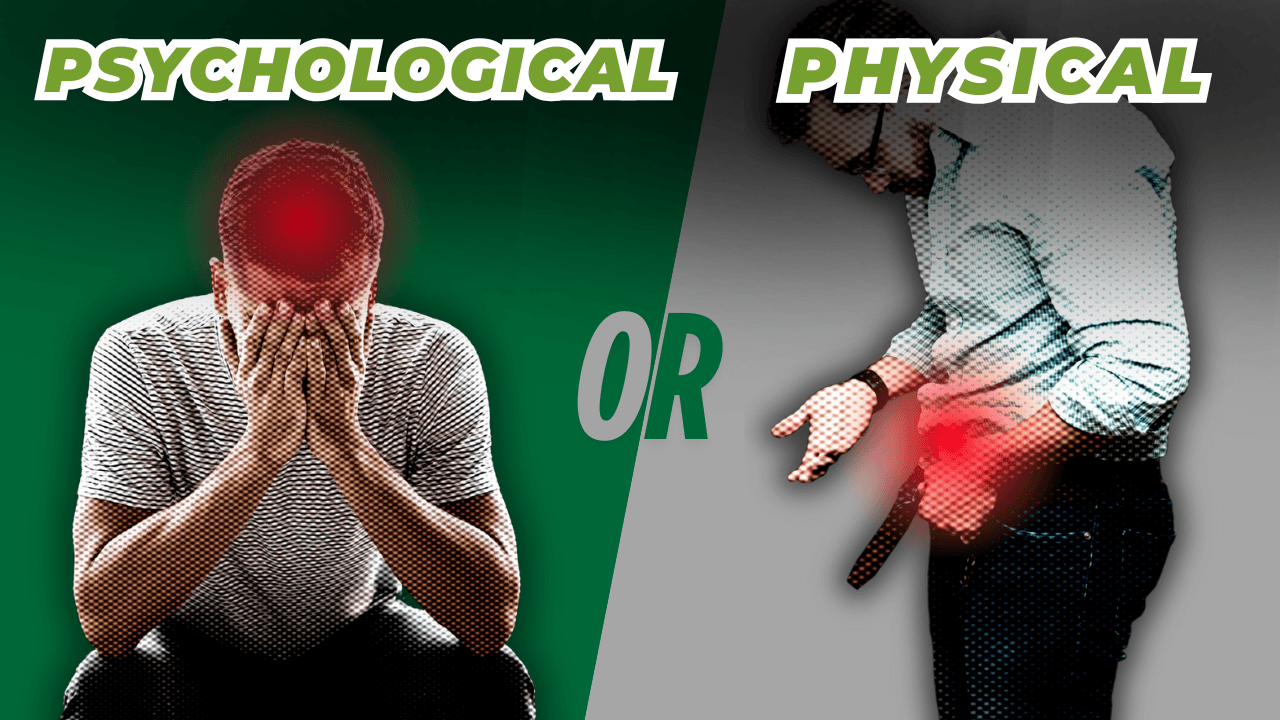
How to Tell if Your Erectile Dysfunction is Physical or Psychological
Are you battling erectile dysfunction, wondering if it’s all in your head or a red flag for something more serious? It’s a question millions of men face, often leading to confusion and misdirected treatments. I’m here to cut through the noise, revealing the crucial differences between psychological and physical ED. Forget the quick fixes that don’t address the real issue. This isn’t just another medical lecture; it’s your roadmap to lasting, natural erections and a deeper understanding of your body. Don’t let frustration win. Dive in and unlock the answers you deserve.
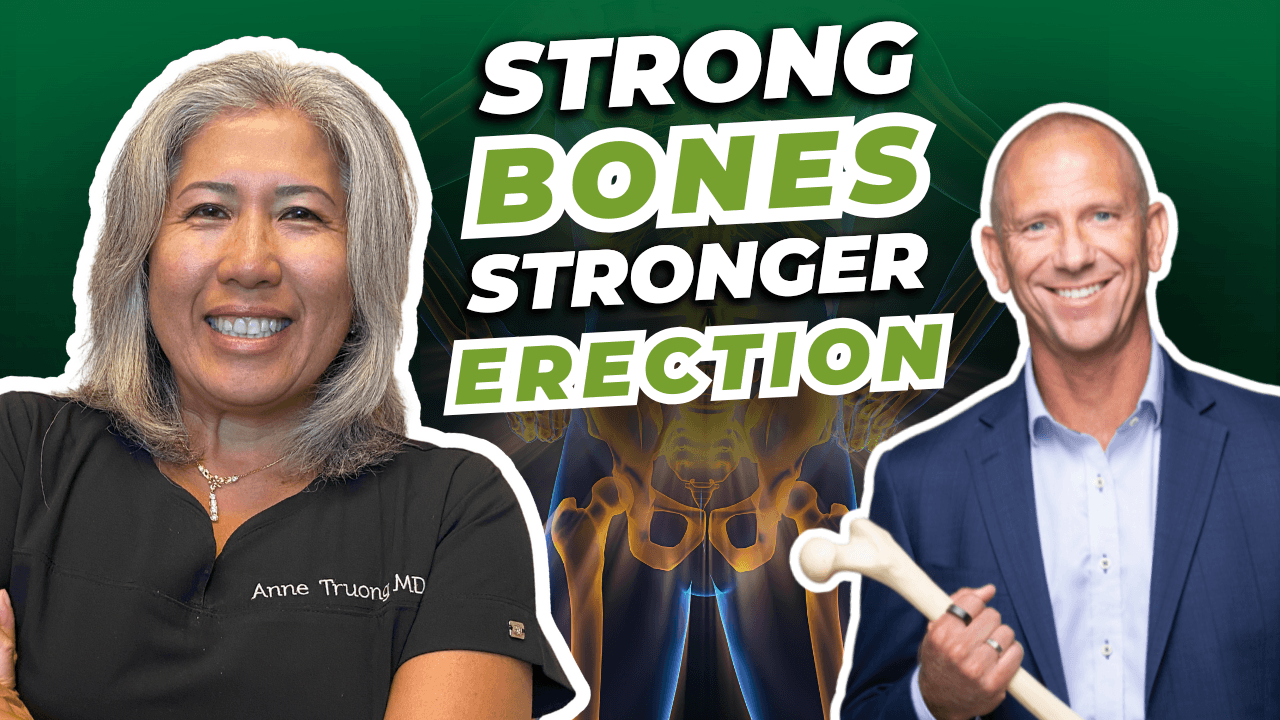
Bone Health & Erections | What Every Man Needs to Know
Did you know your bone health could be secretly sabotaging your sexual health? It’s true! Most men brush off bone density as something for older folks, but what if those strong bones are actually the secret weapon to peak performance and lasting vitality? In this explosive podcast episode, we’re diving deep with Dr. Doug Lucas, revealing the shocking connection between your bone health and bedroom performance. We’re not just talking about avoiding fractures; we’re talking about unlocking your full potential. Don’t let time steal your strength and vitality. Dive in now and learn the natural, game-changing strategies to reclaim your health before it’s too late!

How BPA Exposure Increases ED Risk by 4.5x | Must Watch!
Could that innocent-looking water bottle be the culprit behind your low energy and, shockingly, even contributing to erectile dysfunction? In this podcast episode, we’re diving deep into the science behind this hidden threat. We’re cutting through the confusion and giving you the straight facts you need to know. Forget complicated jargon, I’ll show you easy, everyday changes that can make a huge difference. Ready to ditch the fear and take back control of your well-being? Dive in and discover how to safeguard your health before it’s too late.

Fix Erectile Dysfunction Naturally with Nasal Breathing
Could how you breathe be messing with your love life? Yes, you heard that right! We’re diving deep into the surprising link between something as simple as nasal breathing and something as complex as erectile dysfunction. Forget those little blue pills for a second. I am here to drop some serious knowledge bombs, explaining how your breath can be your secret weapon. We’re talking about boosting blood flow, chilling out stress, and even strengthening your pelvic floor, all through breathing! If you’re ready to ditch the frustration and unlock a natural, science-backed way to improve your sexual health, this episode is a must! Don’t miss out on this game-changing episode!

Erectile Dysfunction & the Heart Connection | Warning Signs You Need To Know
Imagine your body sending you a secret message, a red flag you might be ignoring. What if your struggles with erectile dysfunction are actually a wake-up call about your heart health? It’s not just about the bedroom; it’s about your life. In this episode, we’re diving deep into the shocking link between these two vital aspects of men’s health. I explain why ignoring this connection could be a dangerous gamble. I also break down the science, reveal the hidden risks, and give you real, actionable steps to boost both your performance and your overall well-being. Don’t let your health slip away. Dive in now and learn how to take charge before it’s too late.

Healthy Fantasies | Boost Sexual Function & Beat ED Naturally
Ever wonder if those wild fantasies in your head are helping or hurting your performance in the bedroom? Let’s talk about something real, erectile dysfunction. It’s more common than you think, and your mind plays a huge role. In this podcast episode we’re diving deep into the surprising link between fantasy and your sex life. Can those steamy daydreams actually improve things, or are they secretly sabotaging you? We’ll break down how your mental images can either supercharge your arousal or send it crashing down, and give you simple, actionable tips to take control. Dive in now to unlock the secrets to a more fulfilling and confident sex life.

Erectile Dysfunction | How Sex Therapy Can Save Your Relationship
What if the real problem isn’t the body, but the mind? Dive deep into the often-taboo world of sex therapy and discover how to dismantle the anxiety surrounding erectile dysfunction. Join me and Jessa Zimmerman as we unveils the secrets to reconnecting with your partner, breaking free from suffocating expectations, and rediscovering pleasure beyond the bedroom. This isn’t just a podcast; it’s a revolution in how you understand and experience intimacy. Prepare to have your perceptions challenged and your relationships transformed. Don’t just listen, experience the shift.

Hip Pain & Erectile Dysfunction | The Surprising Connection
Are you struggling with persistent hip pain? What if I told you that nagging ache could be sabotaging more than just your daily comfort? Many men unknowingly suffer from erectile dysfunction due to overlooked hip muscle imbalances. In this episode, we’re ripping the lid off the silent connection between tight, weak hips and diminished performance. We’ll reveal how your hips are crucial for a healthy bedroom life. Discover simple, targeted exercises to unlock your body’s potential and reclaim your confidence. Stop letting discomfort dictate your life. Tune in now and finally understand how to conquer both hip pain and reclaim your confidence.

Take Your Penis to the Gym | Penile Rehab Tips
Is your penile health at risk without you even realizing it? Most men focus on fitness and nutrition but completely overlook penile rehab, which is essential for maintaining performance and preventing issues like erectile dysfunction. Just like any other muscle, your penis needs regular care to stay strong and functional. In this episode, we uncover the best strategies to keep your manhood in peak shape. I’ll introduce a powerful tool that can prevent shrinkage, atrophy, and performance decline. Stop letting your most crucial asset wither away. Tune in now, and let’s get real about penile maintenance before it’s too late.

The Get Hard System to Fix Erectile Dysfunction!
Struggling with erectile dysfunction and tired of temporary fixes? Imagine a life free from pills and invasive procedures. A life where you naturally reclaim your confidence in the bedroom. In this podcast episode, we’ll discuss why The Get Hard System is the game-changer you’re looking for. This isn’t just another quick fix, it’s a holistic path to lasting results. Ready to discover how to implement this powerful method at home or in-office treatments? Don’t wait any longer. Dive in now and unlock the harder, healthier you that’s waiting to be unleashed!

Do This ONE Thing For Better Erection And Ejaculation
Is your erection not as strong as it used to be? Forget the little blue pill – the real secret to a rock-solid performance might be closer than you think. Ready to ditch the disappointment and rediscover your confidence? In this podcast episode, we’re diving deep into the most effective exercises for boosting your sexual health. I will be sharing simple lifestyle tweaks that can take your performance to 10X levels. Don’t wait, your best bedroom days are ahead. Dive in now and reclaim your mojo!
How Alcohol Affects Erections | The Hidden Risks Explained
Is your nightcap turning into a nightmare in the bedroom? We’re spilling the tea (or should we say, spilling the wine?) on the hidden ways alcohol might be affecting your performance between the sheets. While a little liquid courage can be helpful, overdoing it can lead to some seriously unsexy side effects. In this episode, we’re diving deep into the science behind alcohol’s impact on your sexual health and giving you the tips and tricks you need to keep things hot and heavy. Don’t let your love life fall flat. Tune in now and discover how to keep the passion alive!

Viagra Or Cialis: Which ED Pill is Right for You?
Tired of the same old erectile dysfunction solutions? Viagra and Cialis might be the go-to medications, but are they really the best option for you? In this episode, we dive deep into the world of ED medications, uncovering hidden side effects, key differences between these medications. We’ll also explore natural alternatives that could be just as effective, if not better. Discover how to regain your confidence and performance without relying on a pill. Tune in now before you make your next move!

10,000 Kegels in 25 Mins: New Erectile Dysfunction Treatment!
Tired of the weak erections? The secret to a stronger, healthier you might be simpler than you think! Kegels exercises, often overlooked, can significantly improve performance, bladder control, and overall wellness. But who has time for countless repetitions? In this podcast episode, we unveil a revolutionary device that effortlessly performs 10,000 Kegels contractions in just 25 minutes—no effort required. Whether you choose the manual or tech-savvy approach, the benefits are undeniable. Tune in now and discover how to take control of your health and reclaim your confidence.

Top Foods to Beat Erectile Dysfunction & Boost Performance
Tired of disappointing performances? The secret to a stronger, more satisfying erection might be hiding in your fridge. In this episode, I will reveal the nine power foods that can naturally boost blood flow, improve firmness, and supercharge your sexual health. Plus, discover the worst foods that could be sabotaging your performance. Discover how simple dietary swaps can transform your confidence and performance in just six weeks. Tune in now and unlock the power of food!

How Sleep Apnea Affects Erectile Dysfunction (ED)
Is your sleep silently sabotaging your bedroom life? You might not realize it, but conditions like sleep apnea could be a hidden culprit behind erectile dysfunction. Millions of people suffer from sleep apnea without knowing it, and the consequences go beyond just feeling tired. In this eye-opening episode, we uncover how poor sleep can lead to sexual health issues that no one talks about. But here’s the good news, it’s treatable! Don’t let something as simple as untreated sleep apnea hold you back. Tune in now, and change your health and your bedroom life, for good!
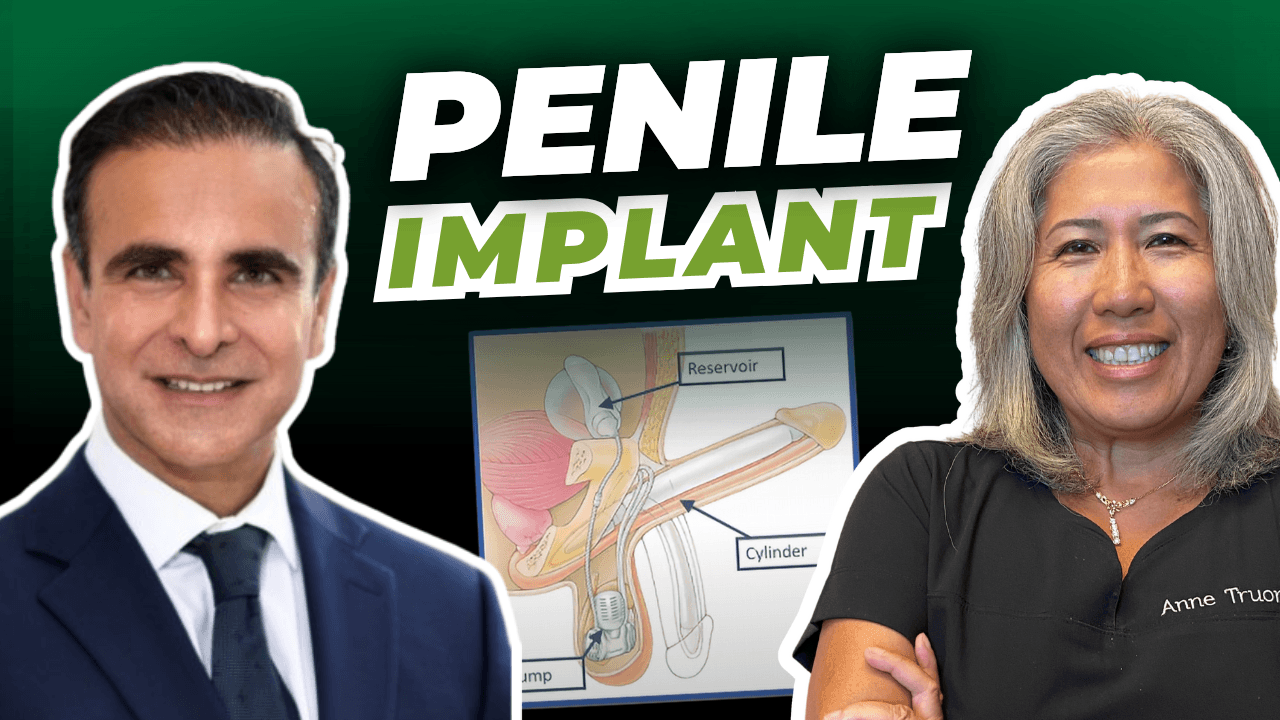
Penile Implant Explained: Expert Advice from Top Urologist
Struggling with erectile dysfunction that just won’t quit? When pills and other treatments fail, penile implant offers a life-changing solution. But how do they work, who are they for, and what are the risks? In this episode, we dive deep with renowned urologist Dr. Mohit Khera to uncover the truth about penile implant and how it can restore your sexual function. If you think you know all your options for ED, think again. This episode is packed with eye-opening insights that could revolutionize your sex life. Tune in now and take control of your sexual health!

Proactive Erectile Dysfunction Treatments Explained by Experts
Are you curious about the latest breakthroughs in treating and preventing erectile dysfunction? In this groundbreaking episode, world-renowned urologist Dr. Mohit Khera spills the beans on the latest advancements in treating and preventing erectile dysfunction. From simple lifestyle tweaks to cutting-edge therapies, Dr. Khera reveals how to regain your confidence and reignite your passion. But that’s not all—learn how ED can be a red flag for serious health issues and why taking action now could save your life. Tune in to this life-changing conversation and unlock the secrets to a happier, healthier you.

Grape Juice for Erectile Dysfunction | New Study Reveals!
Did you know that one simple, delicious drink could help with erectile dysfunction? In this podcast episode, we dive into groundbreaking research that reveals an unexpected connection every man over 40 should know about. This episode goes beyond the surface to explore how small, impactful changes can make a big difference in your life. Don’t miss out on this game-changing information. Tune in now and take the first step toward better health and confidence!
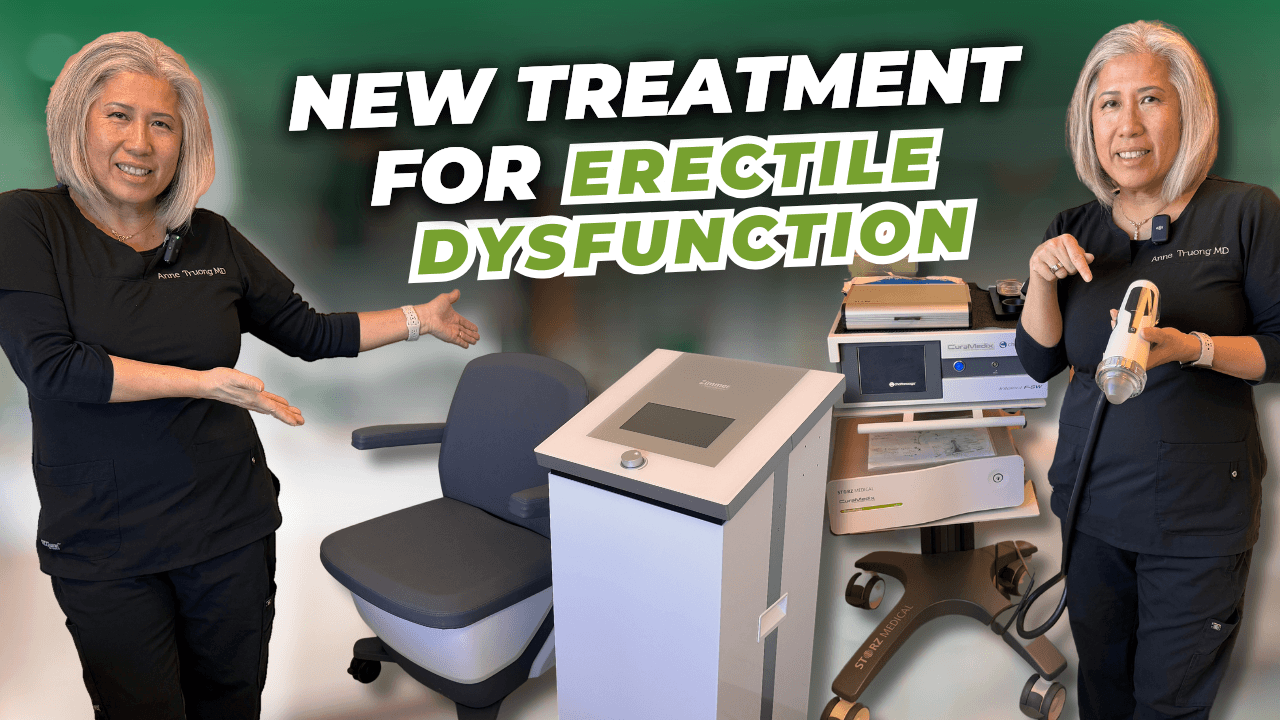
New Erectile Dysfunction Treatment 2025: Shockwave and HIFEM (High-Intensity Focus Electromagnetic)
Tired of feeling less than your best in the bedroom? Discover a revolutionary, non-invasive treatment that could improve your erectile dysfunction! In this podcast, we delve into the science behind High-Intensity Focused Electromagnetic Therapy (HIFEM). Learn how it’s changing the game for men looking to improve their health and relationships. Don’t let ED hold you back any longer. Tune in now and unlock the secrets to a more fulfilling intimate life!

Fluoride Toothpaste and Erectile Dysfunction | The Shocking Connection
Could your everyday toothpaste be having unexpected effects on your health and performance? In this podcast episode, we uncover a surprising connection between toothpaste and vital aspects of your well-being. I’ll be sharing essential tips and alternatives to enhance your lifestyle. Learn how small changes to your daily routine could make a big difference in your overall health and confidence. Don’t miss out on this eye-opening discussion—dive in now and take charge of your health before it’s too late!
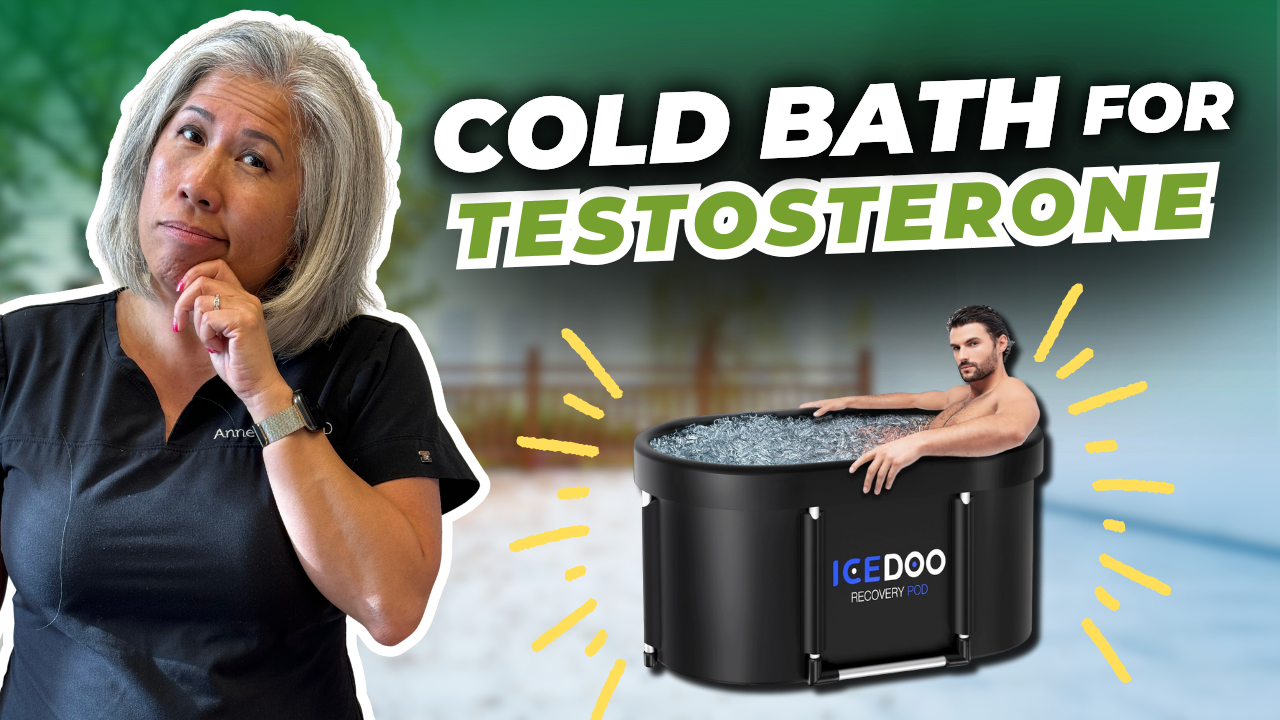
How Cold Bath Transform Testosterone and Erection Naturally
Can a simple cold plunge unlock better erections, higher testosterone, and unstoppable energy? This podcast episode breaks down the game-changing benefits of cold exposure and why it’s more than just a health trend. From boosting focus and libido to biohacking your way to peak performance, we’re sharing the science and practical tips you need to know. Don’t miss out, dune in to discover how a few minutes of plunge could transform your health!

Avoid Doing These For Better Erection
Did you know that sitting for too long could be silently increasing your risk of erectile dysfunction? It’s a hidden danger most men never consider. This podcast episode pulls back the curtain on the shocking ways your office chair might be messing with your sexual health. We delve into the science of heat’s impact on male hormones and reveal seven practical strategies to safeguard your vitality. If you want to stay confident and thriving in all areas of life, tune in and discover how simple changes can make a world of difference. Your health is worth it!

Men’s Health: ED, Heart Disease & The P-Long Protocol | Urologist Explains
What if erectile dysfunction isn’t just a bedroom issue but a critical warning sign about your overall health? In this podcast episode, discover Dr. Judson Brandeis’ groundbreaking insights into ED as a warning sign of cardiovascular and systemic health. Learn about cutting-edge treatments that go beyond quick fixes. From uncovering the hidden causes of ED to unveiling his revolutionary P-Long Protocol, this is a conversation you can’t afford to miss. Dive in now and take the first step toward reclaiming your health and confidence before it’s too late!
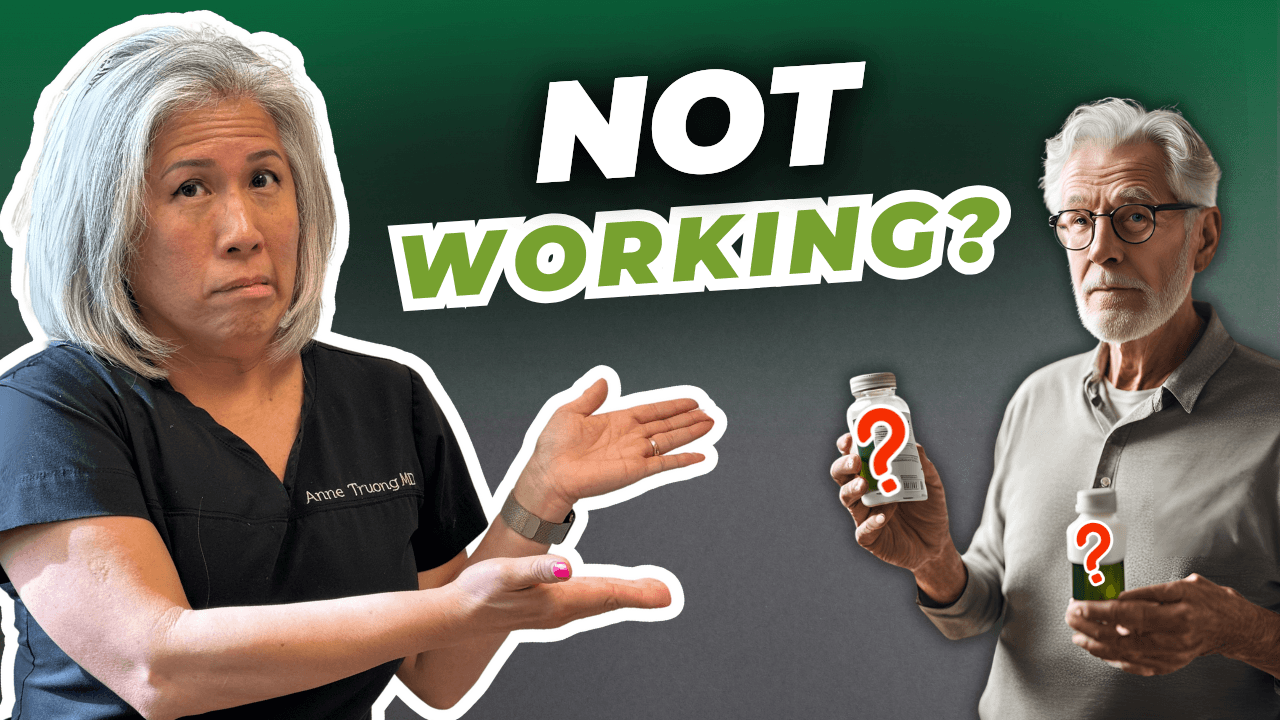
Why Your ED Supplements Aren’t Working? (DO THIS!)
Are you frustrated that supplements for erectile dysfunction aren’t delivering the results you hoped for? The secret might not lie in the supplements themselves but in how you’re supporting your overall sexual health. In this podcast episode, we uncover the four pillars of sexual health. These pillars are the essential steps that, when combined with the right supplements, can transform your results. Don’t miss out on these game-changing insights, dive in now and take the first step toward reclaiming your confidence!

5 Foods for Harder Erections: Science-Based, Delicious, & Easy
Struggling with erectile dysfunction? What if I told you that something as simple as a change in your diet could make a world of difference? In this podcast episode, we’re diving deep into the surprising connection between your plate and your performance in the bedroom. Discover 5 surprising foods that can naturally boost your erection and improve your sexual health. Don’t miss out on these simple yet powerful additions to your diet that could reignite your confidence. Dive in now to discover the secrets to a healthier, more fulfilling sex life!

How Aerobic Exercise Improves Erections
Are you struggling with low energy, mood swings, or challenges in the bedroom? What if one simple, science-backed habit could transform your health and reignite your confidence? In this podcast episode, I reveal the surprising connection between aerobic exercises and overcoming erectile dysfunction. A solution that’s natural, effective, and within your reach. Tune in now and take the first step towards a healthier, more vibrant, and more fulfilling life.

How to Beat Performance Anxiety with Biofeedback
Tired of letting erectile dysfunction and performance anxiety control your love life? What if the answer lies within your own mind? This podcast episode explores the surprising link between stress, your nervous system, and bedroom performance. Discover how to unlock your body’s natural ability to perform by learning to calm your mind and regulate your nervous system. Together with Dr. Cody Rall, we’ll delve into actionable strategies and innovative technologies that can help you reclaim your confidence and enhance your performance like never before. Don’t miss out on these exclusive insights and expert advice – your future self will thank you!

The SHOCKING Truth About Sugar and Your Erections!
Did you know that the sugary snacks you’re munching on could be sabotaging your sex life? In this podcast episode, I uncover the surprising relationship between sugars and erectile dysfunction. Discover how simple diet changes can make a big difference. Don’t let sugar steal your spark. Tune in now and reclaim your sexual vitality!

5 Things You Do That Stop Erections
Are you struggling with erectile dysfunction and wondering if there’s a way to improve it without breaking the bank? In this podcast episode, I reveal 5 simple yet powerful tips to treat ED without spending a dime. From everyday habits to easy lifestyle changes, these tips can transform your sexual health and overall well-being. Don’t miss out on this game-changing episode—your journey to better health starts here!

5 Erectile Dysfunction Solutions: Free & Effective
Are you struggling with erectile dysfunction and looking for simple, cost-free ways to improve your performance? In this podcast episode I share five powerful strategies that require no special equipment or expensive medications, just a commitment to your health and well-being. These practical tips could be the game-changer you’ve been waiting for. Are you ready to learn how to take control of your sexual health naturally? Tune in to the full podcast episode now and start making a difference today!

Erectile Dysfunction: 7 Ways to Help Your Partner
Feeling overwhelmed by erectile dysfunction? You’re not alone—and there are practical, transformative ways to navigate this challenge together. In this podcast episode, I share 7 powerful tips for providing erectile dysfunction support. Discover how to start rebuilding intimacy and boosting confidence together as a couple. Don’t miss out on these game-changing insights. Dive into the episode now and take the first step toward a stronger, more connected relationship!
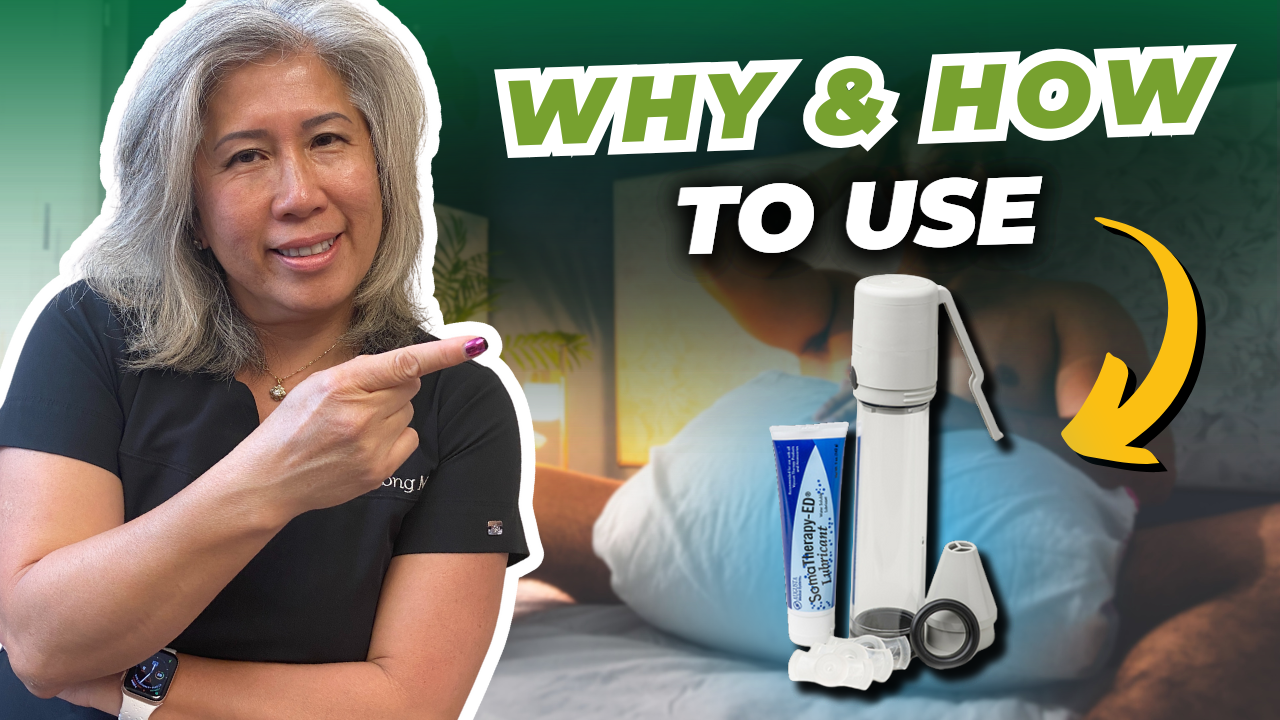
Penis Pump Guide: Bigger and Harder Erections
Tired of feeling less than your best in the bedroom? Discover the game-changing benefits of penis pumps! In this podcast episode, I explore how this simple yet effective tool can enhance erection quality, and boost confidence and performance. Whether you’re dealing with erectile dysfunction or simply looking to elevate your performance, penis pumps offer a non-invasive solution. Dive in now to learn how to harness their power and reignite your passion!

The Most Effective Exercises for Erectile Dysfunction
Struggling with erectile dysfunction? Feeling less confident in the bedroom? The solution might be simpler than you think. In this podcast episode, you’ll learn the simple exercises to strengthen your pelvic floor. Also, you’ll discover how improved pelvic health can lead to enhanced sexual performance. Don’t let ED hold you back. Dive in now and take control of your sexual health!

Does Cannabis REALLY Make Sex Better? Myths and Facts
Could cannabis be the key to improving sexual health for women and men? From enhancing pleasure and intimacy to addressing complex challenges, cannabis’s role in sexual wellness is creating a buzz. But is it all good news, or are there hidden downsides you need to know about? In this podcast episode, I dive deep into the latest research, breaking down how cannabis affects sexual health differently for women and men. Don’t miss out on this eye-opening discussion that could redefine your approach to intimacy. Tune into the full podcast episode for all the details!

10 Surprising Benefits of Using Lubricant for Sex
Ever wondered how something as simple as a lubricant can completely transform your bedroom experiences? From boosting pleasure to deepening connections, lubrication for men and women offers benefits you might not have considered—but should. This podcast episode dives into 10 surprising reasons why lube is a game-changer in the bedroom. Don’t miss out on uncovering these insights that could elevate your intimacy to the next level. Tune in now and discover what you’ve been missing!
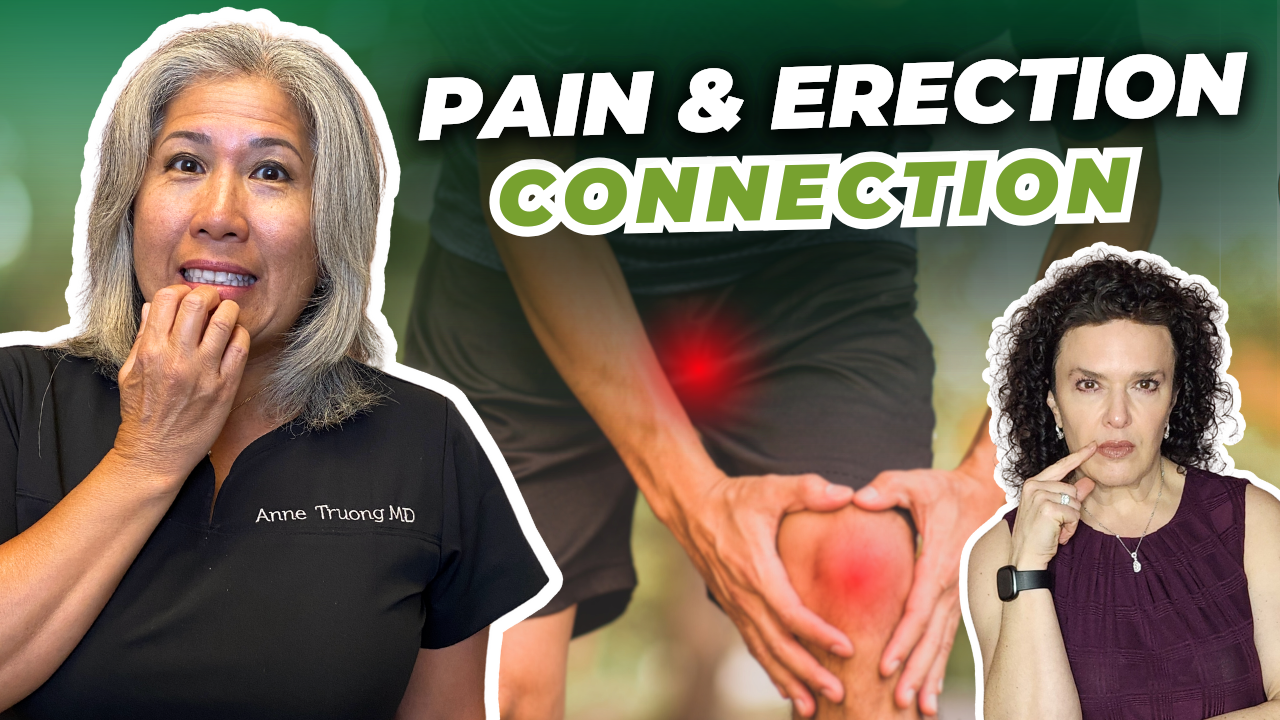
Can Pain Really Affect Your Erection?
Did you know that knee pain and erectile dysfunction might be more linked than you think? It’s true! Both conditions can be rooted in shared factors like inflammation, stress, and poor blood flow. In this podcast episode, discover groundbreaking solutions like regenerative medicine and holistic strategies to combat inflammation. Learn why traditional treatments might not be the answer and how addressing knee pain could significantly improve your sexual health. Are you ready to revolutionize your health? Dive in now and unlock the secrets to a healthier, happier you!

How Red Onion Juice Transforms Your Performance
A kitchen secret to bedroom bliss? Red onion juice could be the unexpected hero you’ve been waiting for. In this podcast episode, I explore the surprising potential of red onion juice for erectile dysfunction. I will unpack the science behind its benefits and how it could fit into a healthy lifestyle. Don’t miss out on this episode. Tune in now and discover what you might be overlooking!

Myth and Truth About No Nut November
Is No Nut November the real deal or just hype? Is abstaining from self-pleasure the secret to skyrocketing testosterone and supercharging your health? Let’s cut through the hype and separate the facts from the myth. In this podcast episode, I’ll debunk the myths and uncover the surprising truths about No Nut November. Are you ready to learn the real deal? Dive in to the episode now for actionable advice and expert insights!
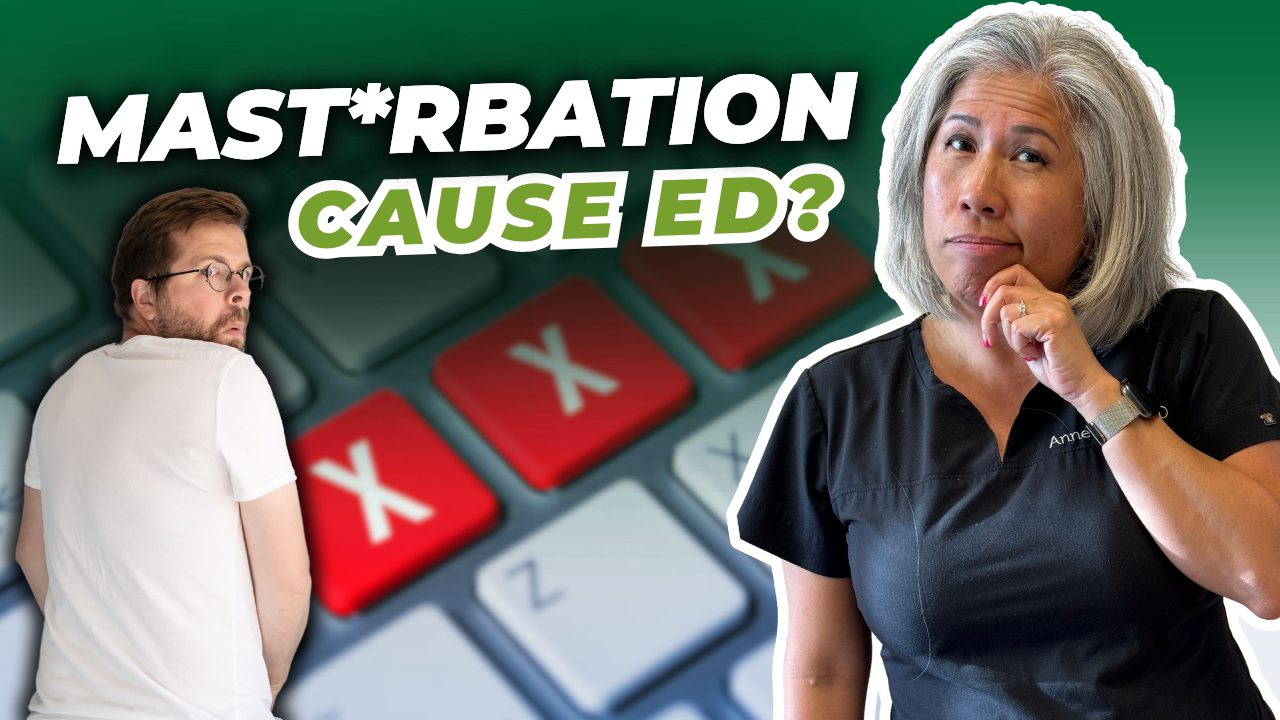
Can Masturbation Lead to Erectile Dysfunction? Doctor Explains
Could your solo sessions be sabotaging your sex life? Ever wondered if your masturbation habits might be affecting your bedroom performance? In this podcast episode, we dive deep into the myths and truths surrounding your solo sessions. Discover how different factors can impact your erectile function. Learn the science-backed tips for finding a healthy balance that boosts both your physical and mental health. Tune in to the podcast episode now and uncover the surprising truths about this often-taboo topic.
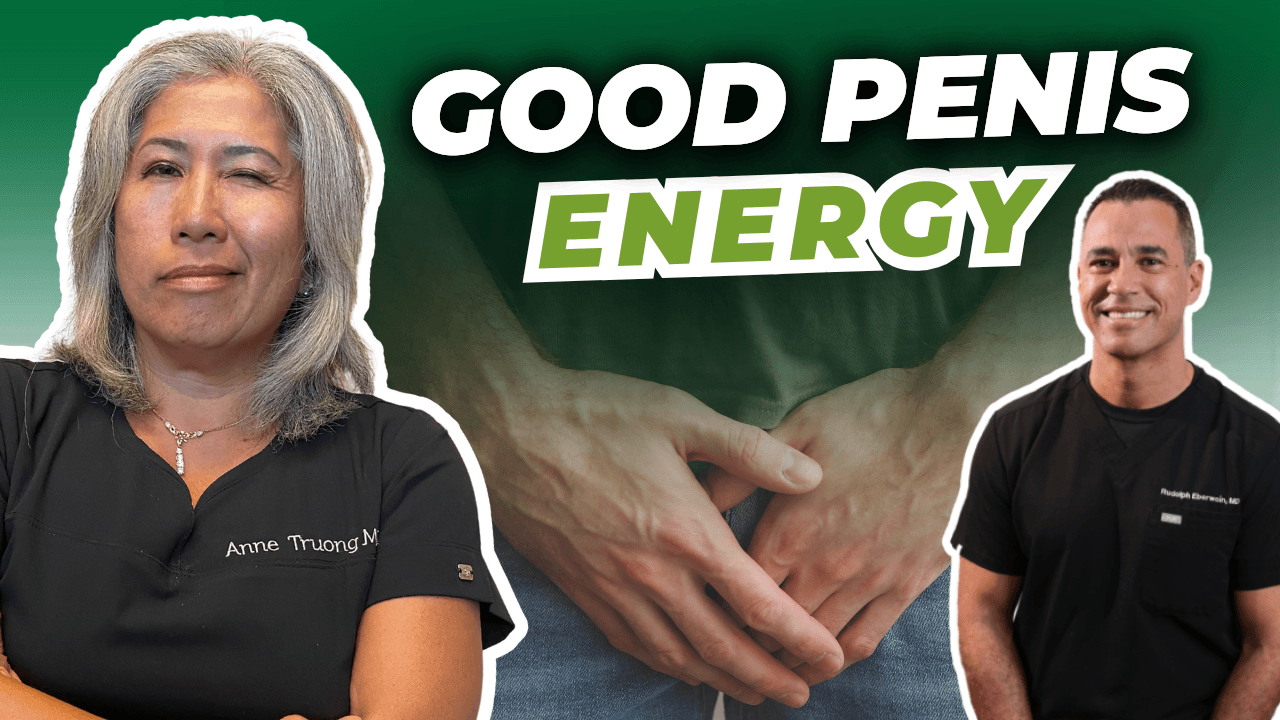
How To Feel Good, Look Good, Have Great Sex
Tired of the same old ED solutions? What if the secret to overcoming erectile dysfunction lies beyond traditional medicine? Dr. Rudolph Eberwein is shaking things up! In this groundbreaking podcast, he dives deep into a holistic approach that goes beyond pills. Discover how functional medicine, spiritual wellness, and mental health can revolutionize your sexual health. From simple lifestyle changes to the power of GLP-1 medications, you’ll uncover a transformative path to a more fulfilling life. Ready to reclaim your vitality? Dive in now and unlock the secrets to lasting sexual and overall well-being.

Boost Your Sex Life: Expert Tips for Men From The Experts
Tired of the same old routine in the bedroom? Want to rediscover the passion and intimacy you once shared? Join us as we dive deep into the world of sexual biohacking with renowned intimacy expert, Susan Bratton. In this podcast episode, Susan dives deep into the world of sexual biohacking, sharing practical tips and techniques to reignite your desire and explore new levels of pleasure. Whether you’re looking to spice up your relationship or simply enhance your own sexual well-being, this episode is a must! Dive in now and unlock the key to a fulfilling and passionate life.
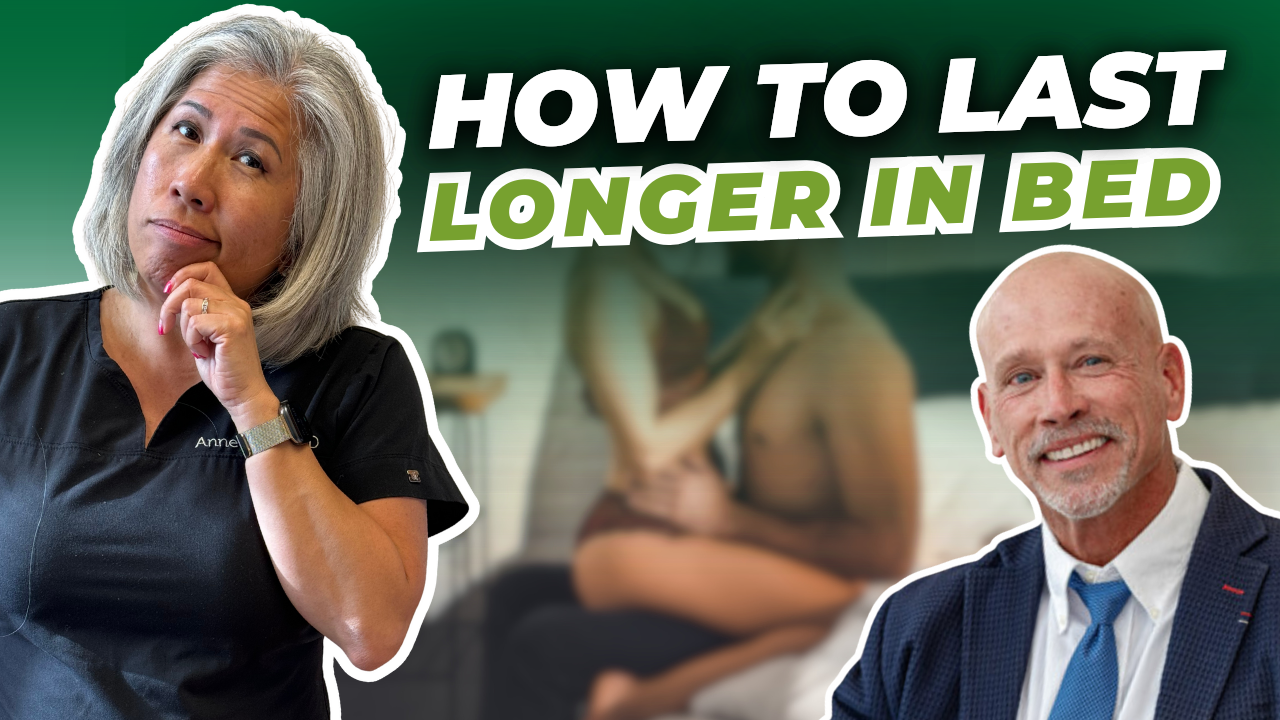
How To Last As Long As You Want
Ever wondered if it’s possible to boost sexual energy over 50 and keep it strong for years to come? Dr. Charles Runels, inventor of the P-Shot, reveals transformative techniques that men can use to naturally improve their stamina and vitality. In this episode, Dr. Runels dives into the ancient art of sex transmutation. He will share how harnessing sexual energy can elevate creativity, health, and connection with your partner. Don’t miss this exclusive insight into powerful, science-backed practices that could change your life and keep your energy high. Tune in to the podcast to get Dr. Runels’ secrets firsthand!
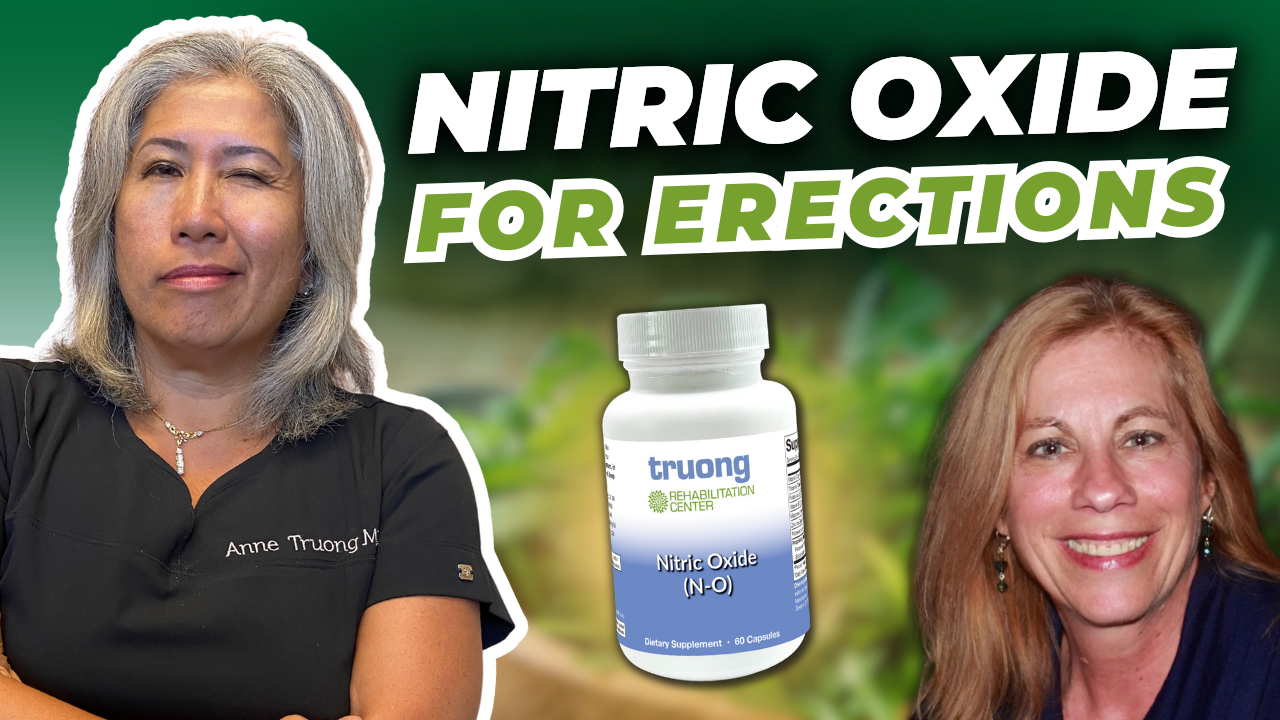
Nitric Oxide For Rock Hard Erection: Do They Really Work?
Tired of feeling less than your best in the bedroom? Struggling with erectile dysfunction or just want to boost your performance? Nitric oxide might be the secret weapon you’ve been searching for! This tiny molecule plays a huge role in everything from sexual vitality to heart health and brain power! In this podcast episode, Beth Shirley will reveal how boosting your nitric oxide levels can transform your well-being. Plus, she’ll discuss the best nitric oxide rich foods that can naturally enhance your energy and performance. Don’t miss out on these game-changing insights! Dive in to the podcast and discover how to unlock your body’s full potential today!
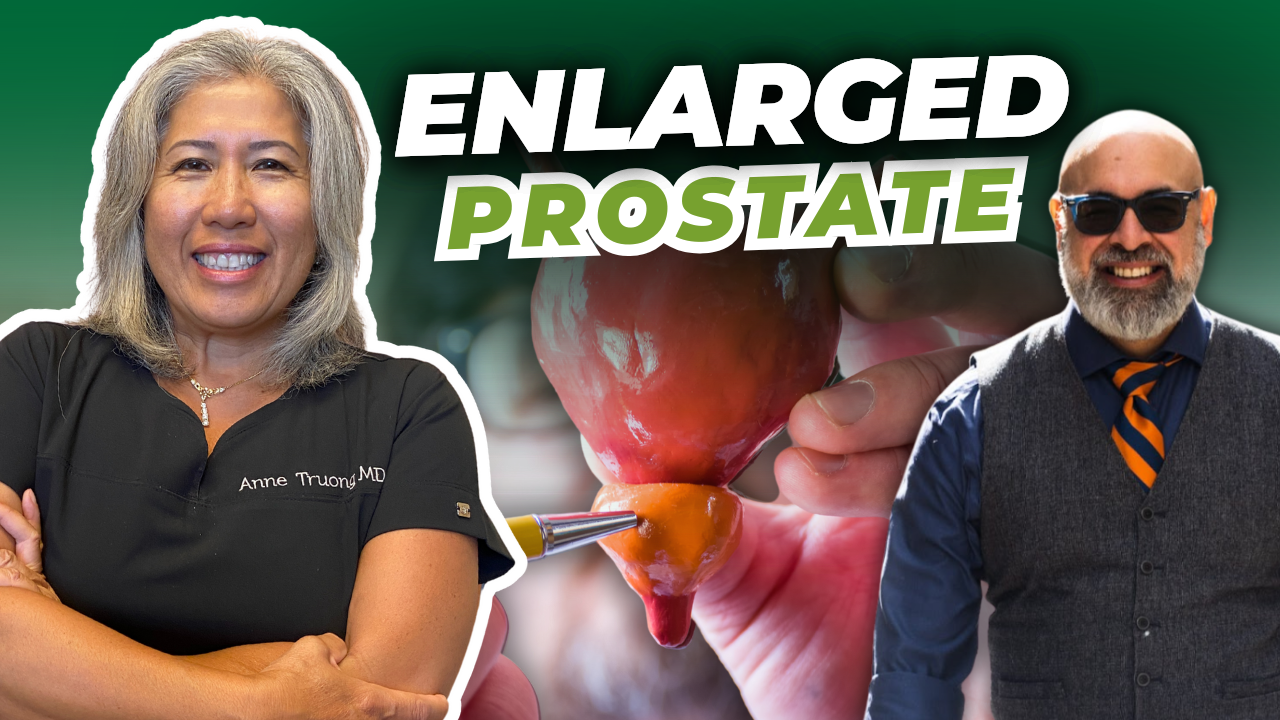
How Prostate Health Affects Sexual Function | Dr. Geo Espinosa
Ever felt like your bathroom breaks are more frequent than they used to be? Or maybe you’ve noticed a change in your sex life? It might be time to pay attention to your prostate. Join me and Dr. Geo Espinosa as he reveals the hidden link between BPH and erectile dysfunction—two issues that often go hand-in-hand. Discover why prostate health is crucial for both your urinary and sexual well-being. Plus, learn about natural solutions that could help you avoid medications and side effects. Don’t let prostate problems steal your quality of life. Tune in now to get the information you need to take control of your health.
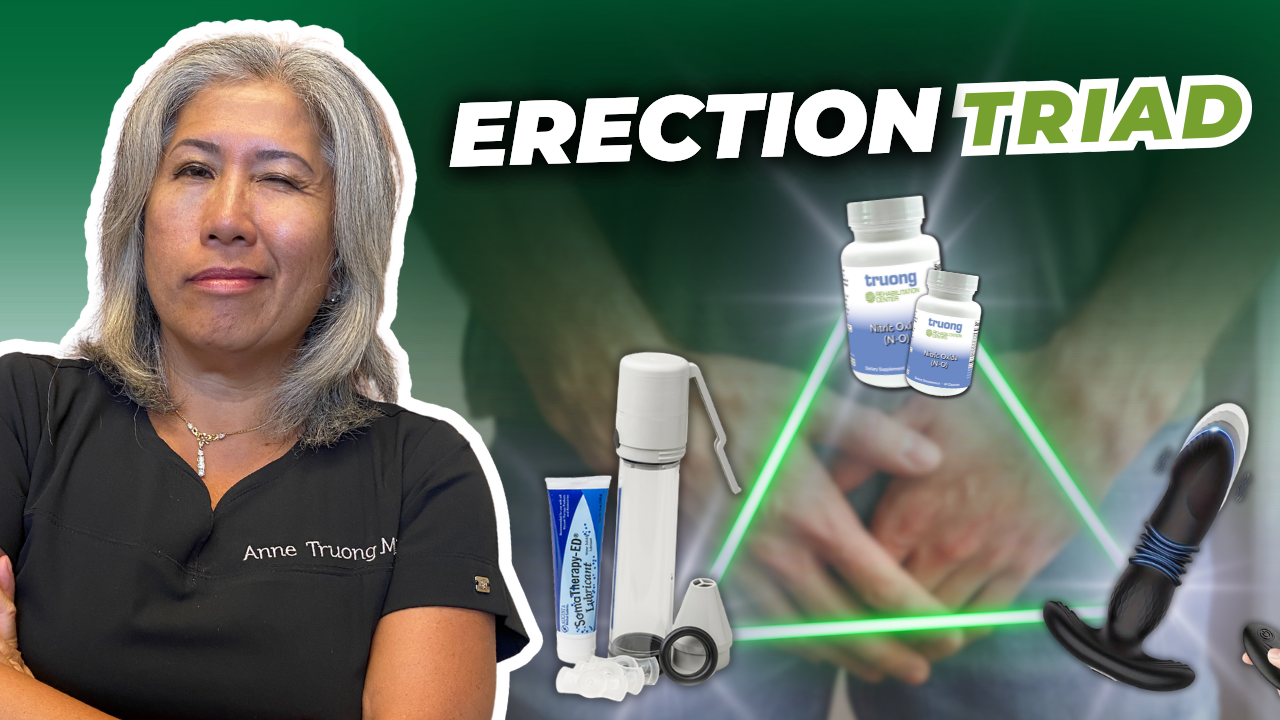
Penis Pump, Nitric Oxide & Prostate Massager | ED Fix!
What if you could enhance your performance and beat erectile dysfunction naturally? Say goodbye to quick fixes and hello to real results! In this podcast episode, I share my unique, proven approach to ED treatment to help you achieve firmer, longer-lasting results. Are you ready to transform your intimacy and say goodbye to the limitations of ED? Dive in and discover the secrets to reclaiming your confidence!

What I Learned Treating 7000 MEN with Erectile Dysfunction
Ever wondered if there’s a real solution to erectile dysfunction that goes beyond quick fixes? In this podcast episode, I reveal surprising insights and practical solutions for regaining sexual function through my Get Hard System. With breakthrough treatments and lifestyle strategies, this treatment system addresses not just the physical but the emotional aspects of ED that often go overlooked. Discover proven methods that can make a lasting difference. Listen now to find out how!
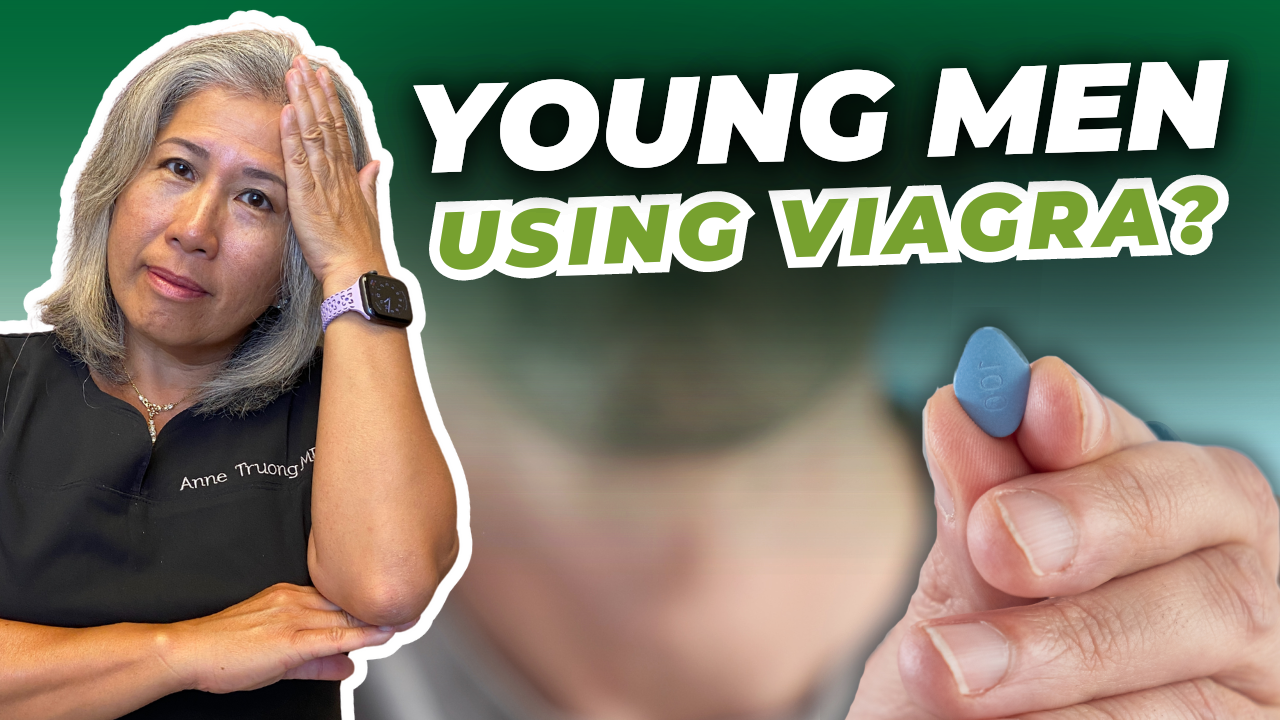
Are You Hijacking Your Erection with Viagra Use?
Why are young men turning to Viagra earlier than ever? What are the potential risks they may not see coming? In this podcast episode, I dive into the unexpected rise of Viagra use among young men and what could be driving this trend. I will share insights into both the side effects and natural alternatives to medication. This episode will also shed light on why addressing erectile dysfunction early and naturally may be essential. Don’t miss out on these eye-opening findings and crucial advice. Tune in to uncover the facts that you should know before considering that little blue pill.
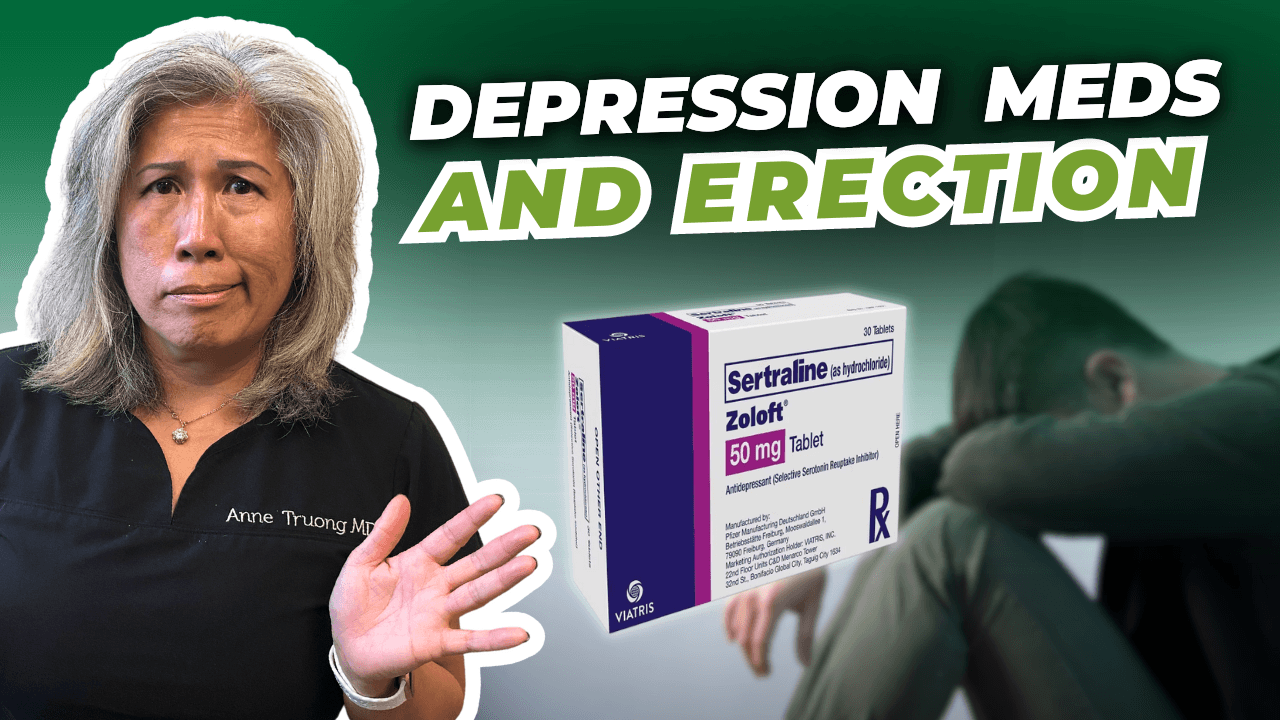
Antidepressants vs. Manhood: Crushing Erectile Function
Is your love life taking a hit due to antidepressants? Many people experience unexpected changes in their sex lives after starting these medications. In this episode, I’ll explore how antidepressants can affect libido, testosterone, and even erection quality. Plus, I’ll share practical tips to help you manage these side effects and rediscover your mojo. What are you waiting for? Tune in now and learn how to improve your health and happiness!

Why Your Penis is Less Sensitive
Are you experiencing a decline in sexual sensation? It’s more common than you might think. From everyday medications to surprising lifestyle choices, there are numerous factors that can impact your sensitivity. In this podcast, I delve into the root causes and explore effective treatments. Don’t let this issue go unnoticed. Dive in to learn how to regain your confidence!

Gain Penis Power By Ditching These 3 Easy Things
Are your daily habits secretly sabotaging your penis power? In this podcast episode, I uncover the hidden culprits that could be sabotaging your manhood. Discover the three habits to avoid and regain control of your sexual health. Dive in now to learn how simple changes can make a big difference!
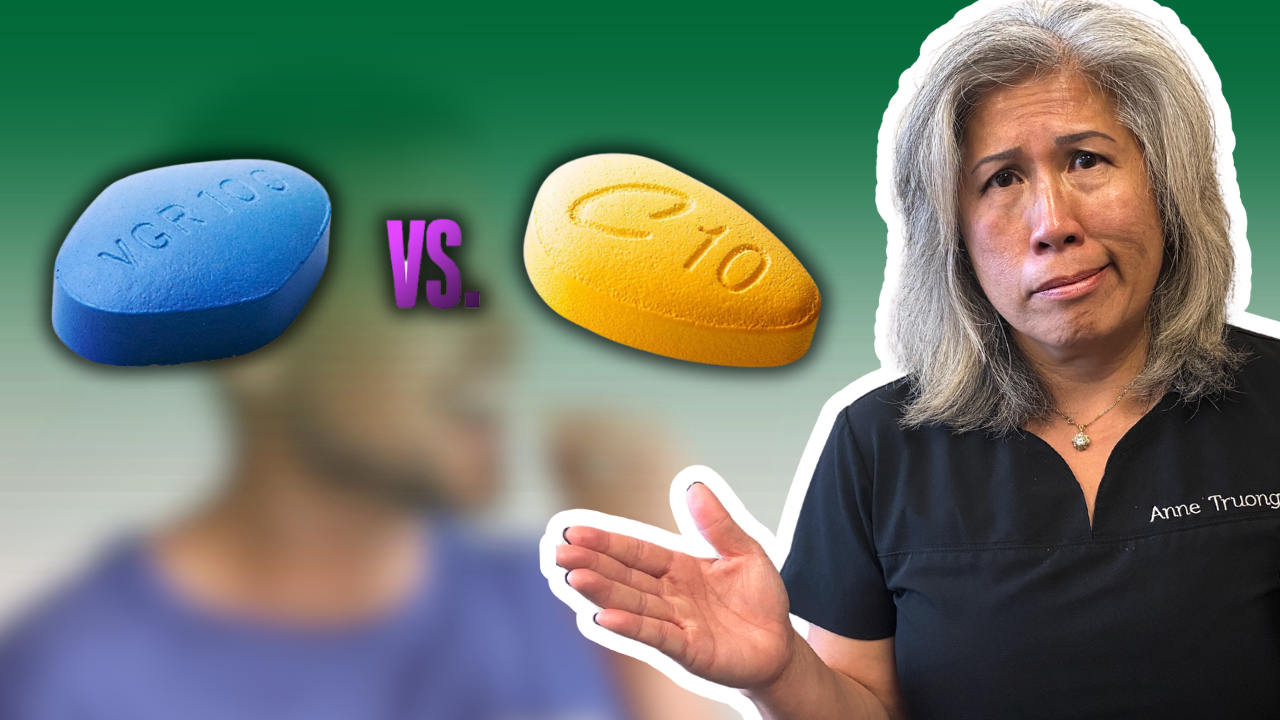
Watch This Before You Take Viagra Or Cialis!
Ever wondered why Viagra doesn’t work as well for you anymore? Many men are noticing a drop in its effectiveness. But why? And what can you do about it? In this podcast episode, I dive deep into the common culprits that can sabotage your sexual health. Discover surprising mistakes you might be making, and learn how simple lifestyle changes can dramatically improve your results. Curious to know if you’re making these mistakes? Dive in now and find out how!
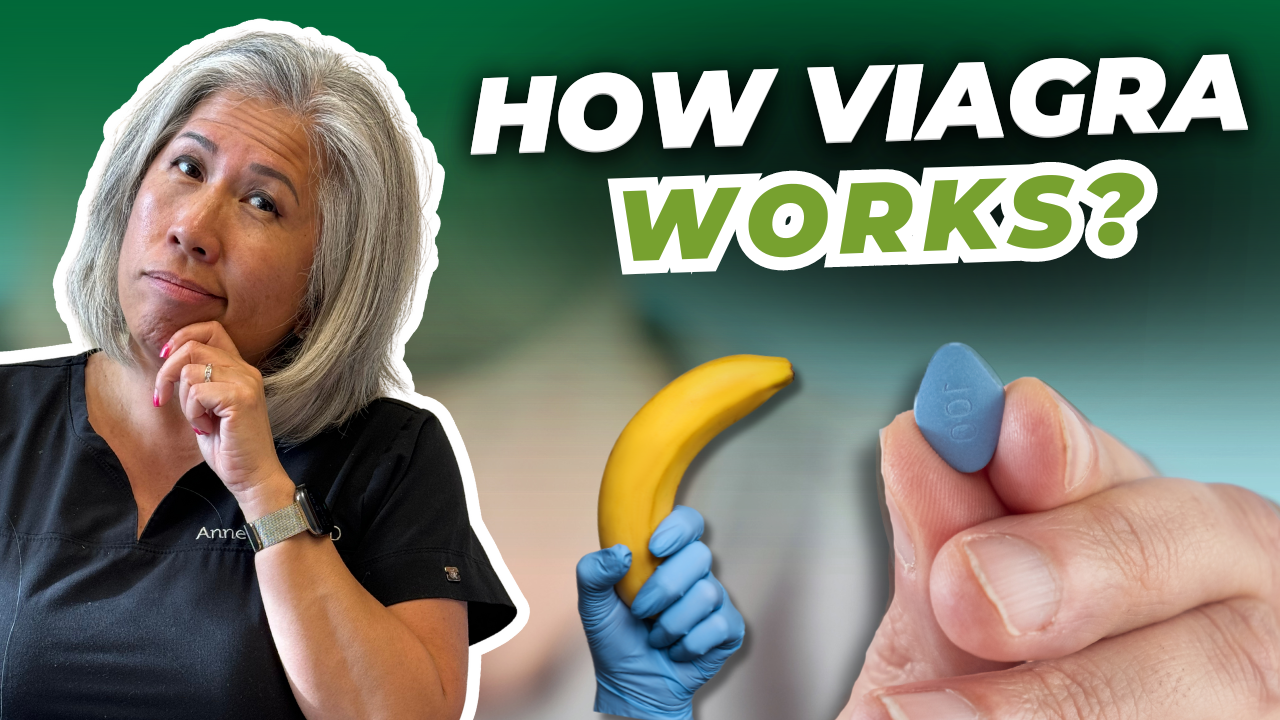
How does Viagra Work and Why it Can Hijack Your Erection
Tired of masking the symptoms of your erectile dysfunction? Join me for a deep dive into the science behind Viagra and Cialis. In this episode, discover why these popular medications might not be the long-term solution you’re looking for. I’ll explore the root causes of ED, shed light on how erections truly work, and offer insights that could revolutionize your approach to sexual health. Don’t settle for temporary fixes. Tune in now and take control of your body, your mind, and your relationships!

The Brain Is Your Largest Sex Organ | Shocking Truth!
Did you know that the brain is the largest sexual organ? Join me as I delve into the fascinating connection between your brain and your sexual health. Discover how your thoughts, emotions, and even lifestyle choices can impact your erectile function. Are you ready to take control of your sexual health and experience more satisfying bedroom life? Don’t miss this eye-opening podcast episode, dive in now!
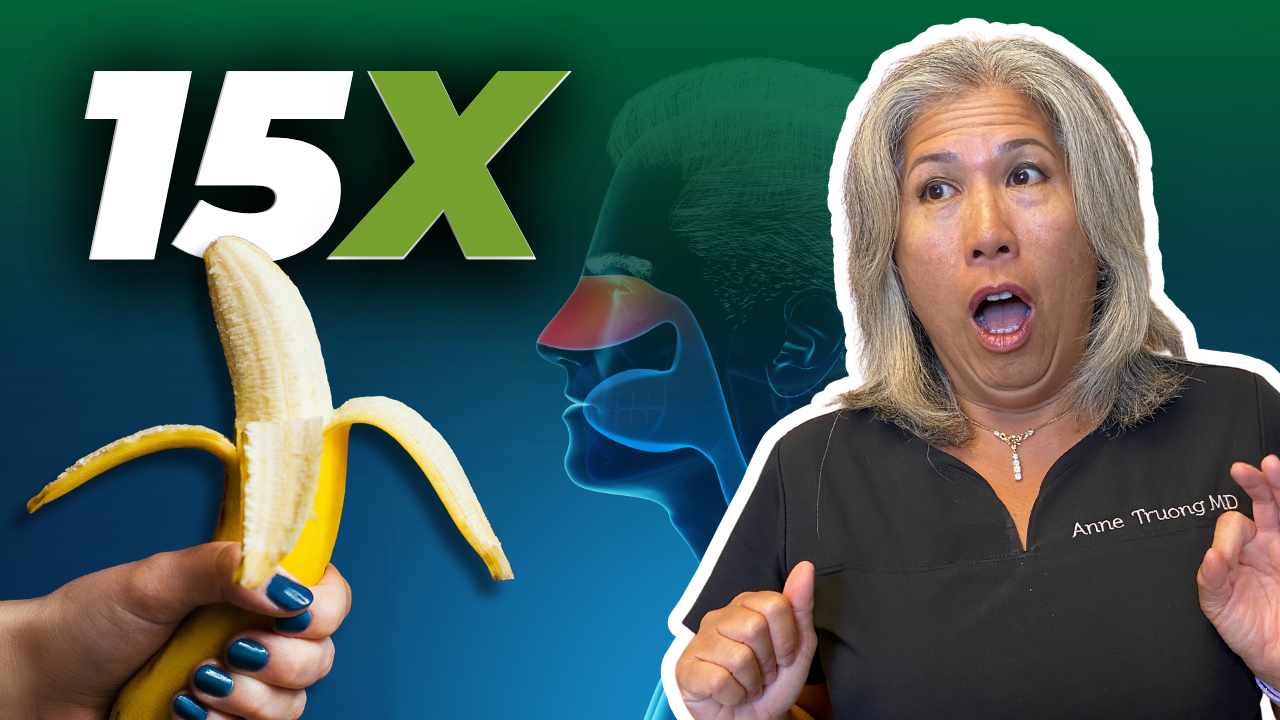
Boost Your Erection 15X with Nasal Humming!
Ever felt like your bedroom game could use a boost? What if I told you there’s a simple, surprising way to improve your performance? In this podcast episode, I dive into the science behind nasal breathing and humming. Join me as I explore how these seemingly mundane activities can improve your erection 15X. Don’t miss out on this game-changing information that could transform your sex life. Dive in now to learn the secret to a more satisfying and fulfilling experience.
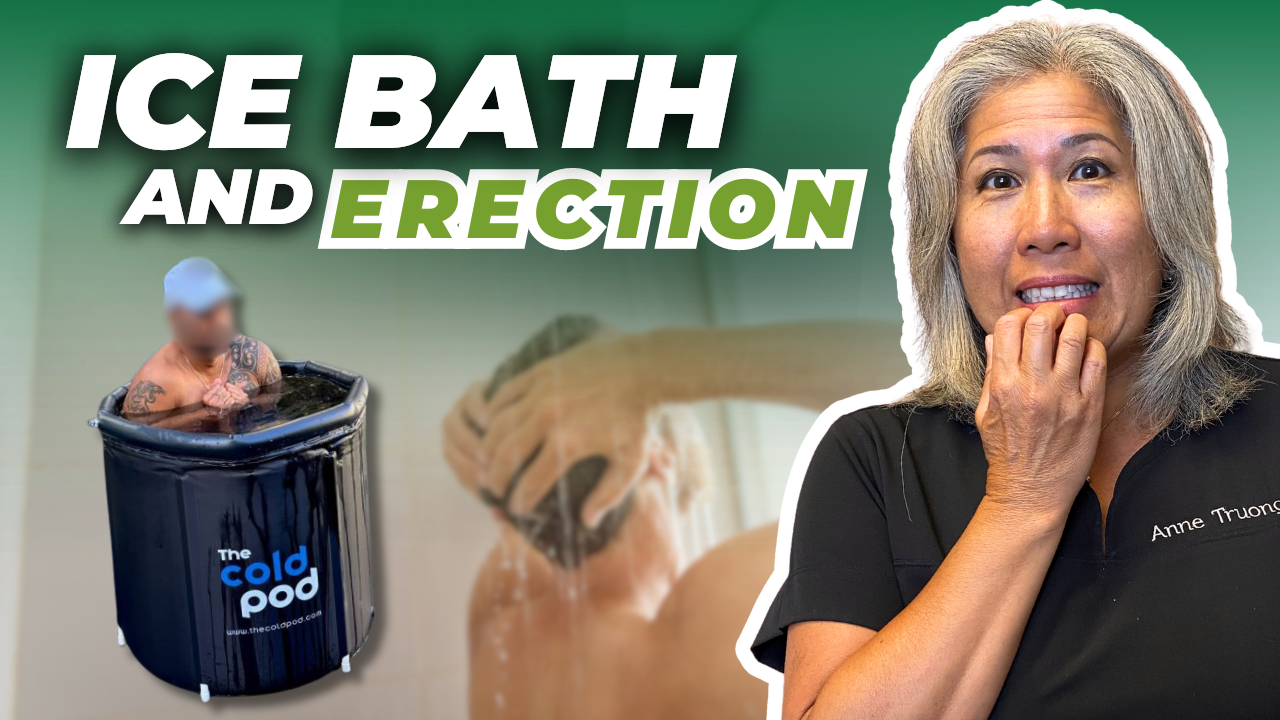
Contrast Baths: The Secret to Better Erections?
Are you looking for a way to boost your performance in the bedroom? Have you heard of contrast bath therapy? This simple technique can boost your blood flow, reduce inflammation, and enhance your erection quality. This little-known method has been proven to help men perform better in bed. Want to know how to do it and why it works? Dive in to the full podcast episode now!

Erections and Infrared Saunas – Better Erection in 2 Weeks
Tired of feeling less than your best in the bedroom? Discover the surprising power of infrared saunas to supercharge your sexual health. In this episode, we dive deep into how this innovative therapy can enhance erection, boost confidence, and transform your overall performance. Learn about the science behind it and how to incorporate it into your daily routine for maximum results. Dive in now and unlock your full bedroom potential!
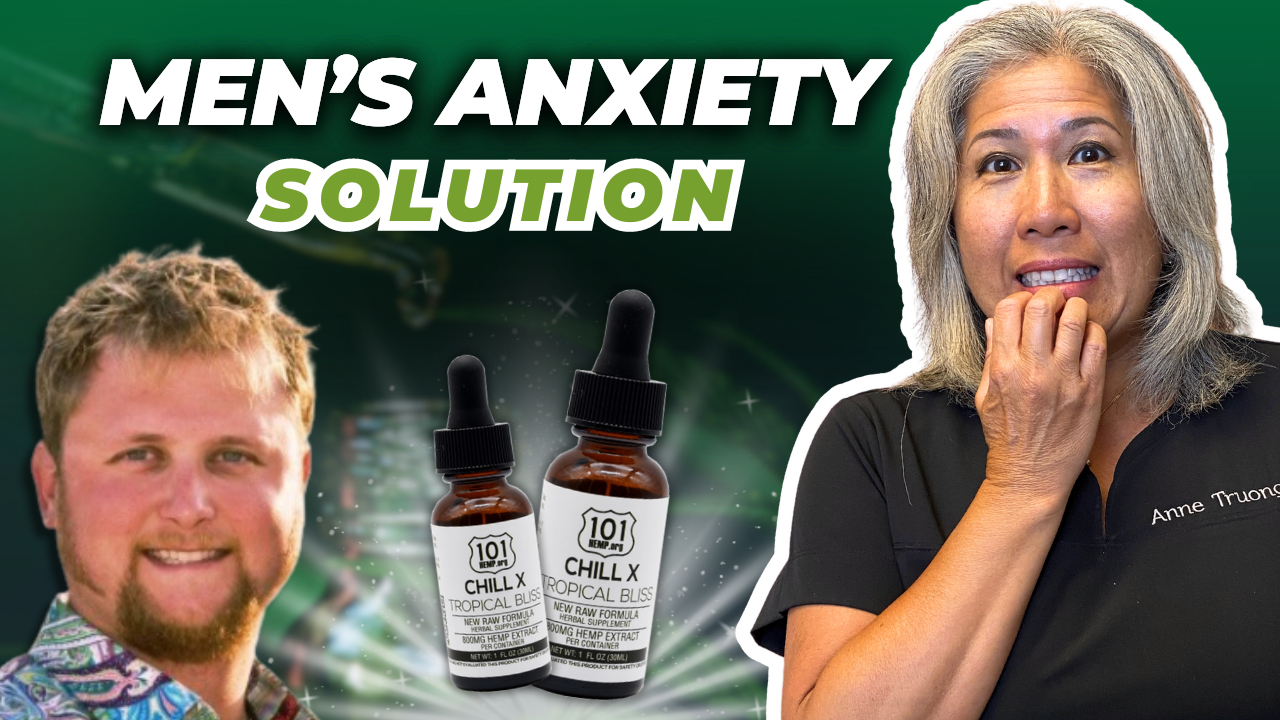
How CBD Can Help With Performance Anxiety | Men Need To Know
Tired of letting performance anxiety hold you back? Discover the incredible power of CBD to naturally calm your mind and boost your confidence. Join me and Justin Benton as we delve into the science behind CBD’s stress-reducing benefits and explore how it can revolutionize your sexual health. From easing anxiety to enhancing performance, this episode offers actionable insights that could change your life. Listen now and unlock your full potential!
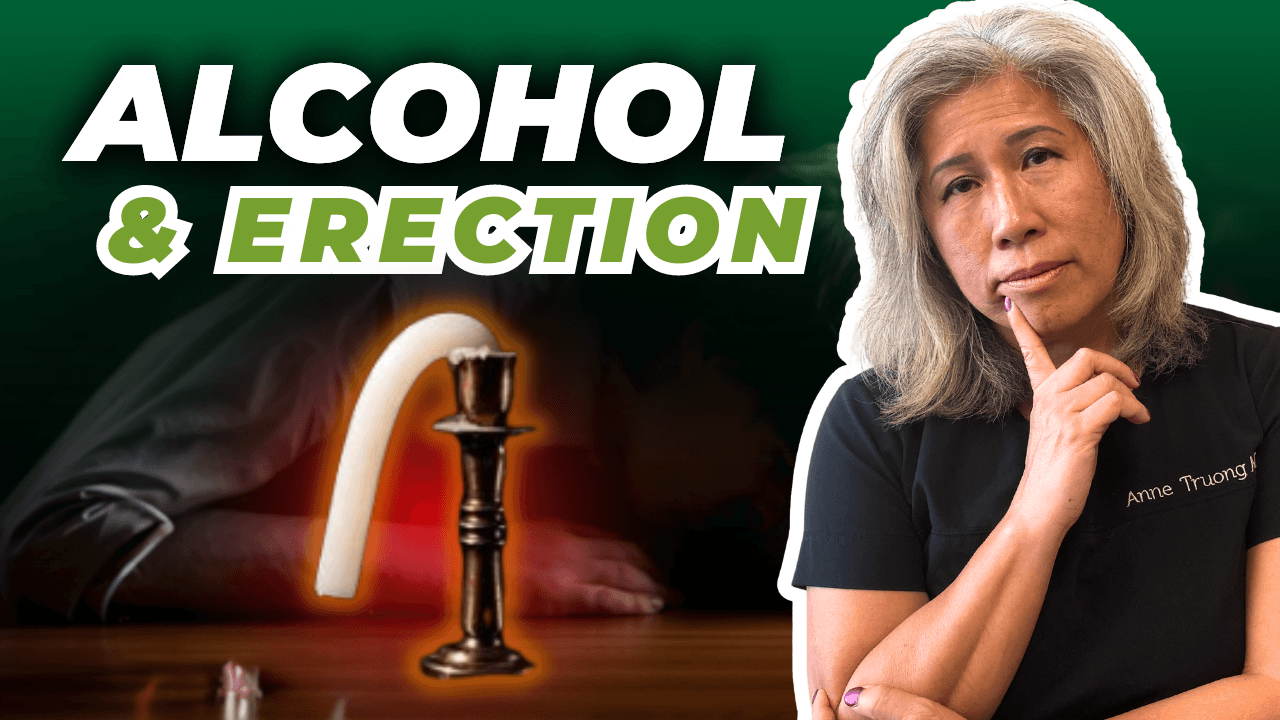
You Won’t Believe How Alcohol Affects Erections
Ever wondered how that nightly glass of wine might be affecting your performance in the bedroom? In this podcast episode, I uncover the surprising link between alcohol and erectile dysfunction. From short-term effects to long-term dangers, I dive deep into how alcohol can wreak havoc on your nerves, blood vessels, and hormones. Don’t miss out on this eye-opening episode. Dive in now to learn how to protect your sexual health before it’s too late!

🔔 Unlock Your Potential: The Surprising Benefits of Testicle Massage for Better Erections! 🔔
Ever wondered if a simple trick could significantly improve your erection and boost your testosterone levels? In this podcast episode, I dive into the surprising benefits of testicle massage and how it can transform your sexual health. I’ll cover everything from the science behind it to practical tips you can start using today. Don’t miss out on this game-changing information, tune in now to learn the secrets that could elevate your performance!

Sex Can Help You Live Longer | Discover the Shocking Truth
Can having more sex really help you live longer? In this podcast episode, we’ll dive deep into a groundbreaking study on the surprising connection between sex and longevity. Get ready to hear how something as enjoyable as intimacy could be the secret to a happier, healthier, and longer life. Don’t miss this eye-opening episode! Dive in now to find out how your sexual habits might just be the key to unlocking a longer, more fulfilling life!

Intermittent Fasting For Better Erection | Do This Now!
Ever wondered how as simple as intermittent fasting could transform your sexual health and performance? Believe it or not, skipping meals could be the secret weapon to unlocking your full sexual potential. Yes, you read that right. This simple dietary tweak could be the game-changer your love life needs. In this podcast episode, discover how intermittent fasting can ignite your desire, boost your performance, and leave you feeling more satisfied than ever before. Don’t just take my word for it – tune in and learn how to turn up the heat in the bedroom, naturally!
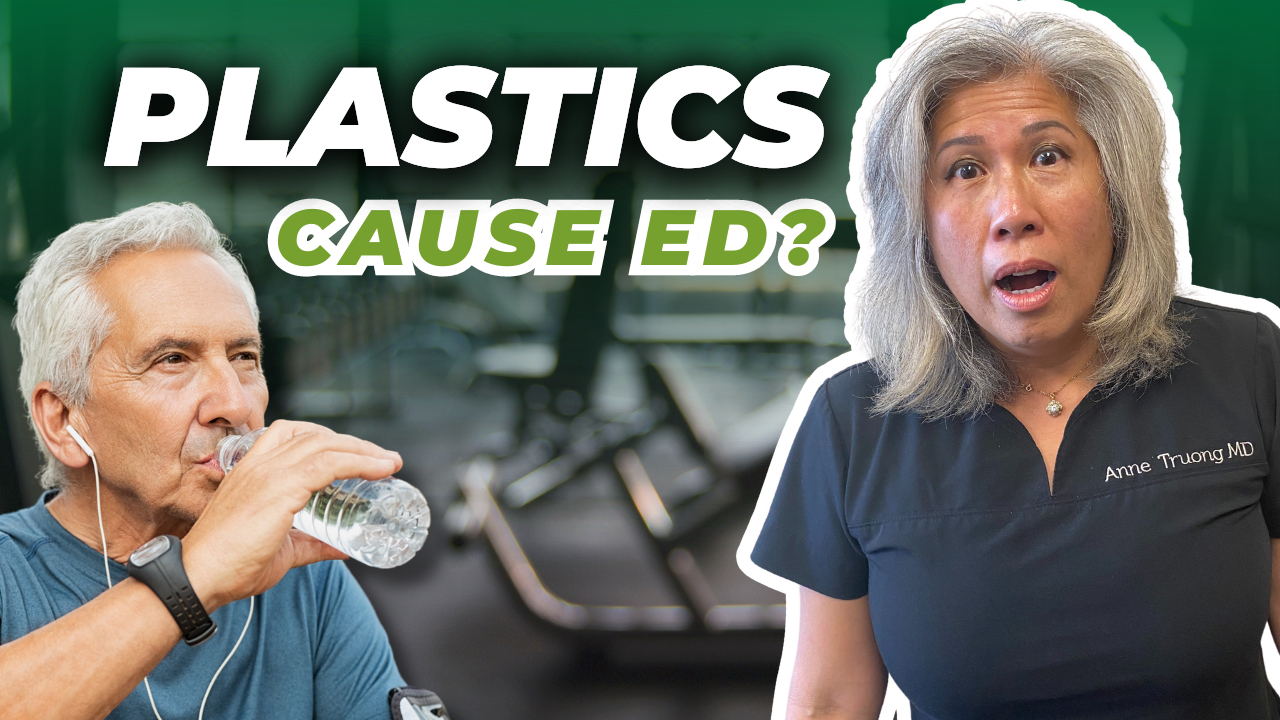
Find Out Why Drinking A Plastic Water Bottle Can Cause Erectile Dysfunction | Men Need To Know
Could something as simple as the water bottle you drink from be affecting your sexual health? You might be surprised to learn that the plastic bottles and food containers in your kitchen could be silently sabotaging your sex life. In this episode, I uncover the shocking link between BPA and erectile dysfunction. From the science behind the connection to practical tips for reducing your exposure, I’ll give you the information you need to protect your health and boost your bedroom performance. Tune in to discover how you can protect yourself and take control of your sexual health.
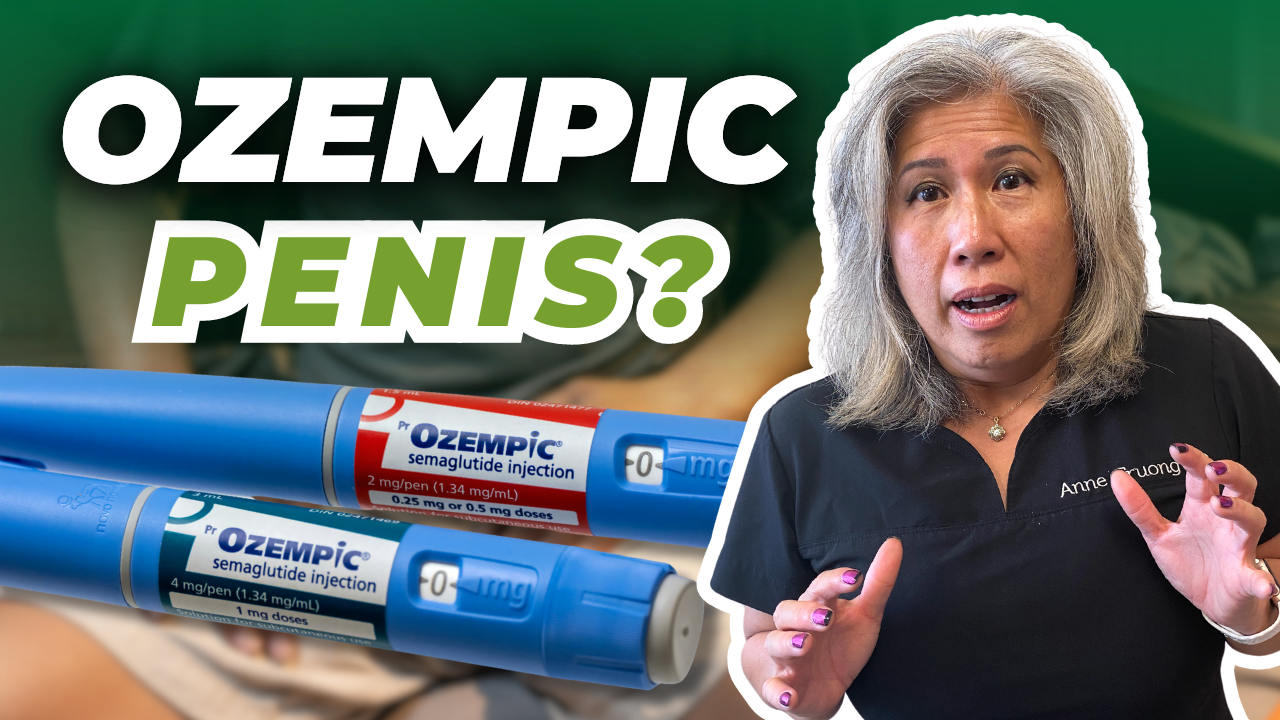
Can Ozempic Cause Erectile Dysfunction? | Shocking Truth!
Thinking about trying Ozempic or Semaglutide to shed those extra pounds? Hold up! We’re diving deep into the surprising link between these popular weight loss meds and your sex life. From the science and different research, I’m spilling the beans on everything you need to know. Don’t let unexpected side effects derail your weight loss journey. Tune in and arm yourself with the facts!

What is the Difference Between Orgasm and Ejaculation | Men MUST Know
Ever wondered what really sets orgasm and ejaculation apart? Let’s clear up the confusion! In this episode, we will dive deep into the nitty-gritty of sexual pleasure. I will uncover the surprising facts about the two often-misunderstood experiences, orgasm and ejaculation. Are you ready to boost your knowledge? Tune in for a mind-blowing breakdown!

How to Make Your Penis BIGGER by Tomorrow
What if you could literally make your manhood bigger overnight? It might sound too good to be true, but it’s closer than you think. In this podcast episode, discover four simple yet effective tips to instantly improve the size of your manhood. From quick fixes to long-term solutions, I’ve got you covered. Don’t miss out on this game-changing information, tune in and unlock the secrets to a bigger, better you.

The Common Cause of Erectile Dysfunction – Venous Leakage
Is venous leakage sabotaging your sex life? Discover the shocking truth about venous leakage and how it’s stealing your erection. In this episode, we’ll dive deep into the science behind this common yet often misunderstood condition. Learn how to spot the signs, understand the impact on your overall health, and explore practical solutions to boost your bedroom performance. Don’t let venous leakage hold you back – tune in now and reclaim your confidence!

Why Every Man Need A Penis Pump
Is your penis aging well? It might be time to hit the gym… for your downstairs. In this podcast episode, discover why a penis pump might be the secret weapon to a healthier, happier you. We’re diving deep into penile health, debunking myths, and sharing expert tips on maintaining peak performance. Don’t let age slow you down – dive in now!
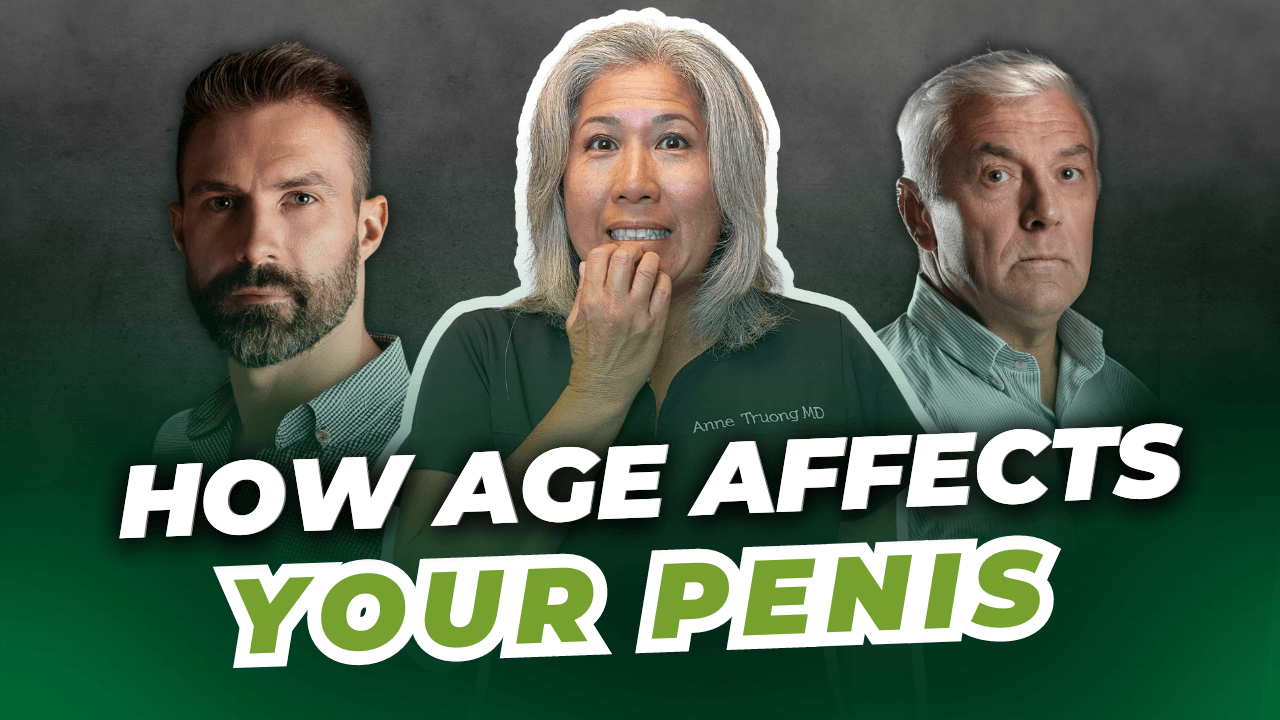
How Aging Affects Penis Stimulation | Shocking Facts
Is your erection getting softer? Are you feeling less sensitive down there? In this episode, we’ll tackle the truth about aging and its surprising effects on your downstairs friend. I’ll crack the code on decreased sensitivity, its impact on your sex life, and most importantly – how to get back in the game. Learn practical tips to boost your “down there” feeling and rediscover your sexual confidence. From lifestyle hacks to cutting-edge treatments, I’ll equip you with the knowledge to reignite your intimate life. Don’t miss out on these game-changing episode! Dive in and take control!

1 Minute Exercise for Erection, Fast
Ever wondered if there’s a quick and effective way to enhance your erection? This episode unlocks the secrets of an ancient technique combined with a modern exercise to supercharge your sex life! This powerful combo not only boosts your sexual health but also strengthens your pelvic muscles. It’s a one-minute routine that’ll have you feeling stronger and healthier, and boost your confidence in the bedroom. Don’t miss out on unlocking your full potential. Tune in and build a stronger, healthier you… downstairs and beyond!

7 Penis Health Tips For Every Man In 20247 Things You MUST Do To Keep Your Penis Healthy
Tired of feeling flaccid? Wondering how to take your penis to the next level? In this podcast episode, I’ll crack the code on peak performance below the belt! I’m talking rock-solid erections, improved stamina, and a whole lot more. Forget the blue pill, I’m dropping the truth bombs on the seven habits you NEED to adopt for a healthier, happier you. So, buckle up, Modern Man, and get ready to rewrite the rules of your bedroom game!

7 Things NOT To Do With Your Penis
Is your penis under attack? You might be sabotaging your sex life without even knowing it! Discover the shocking truth about seven sneaky habits that could be killing your erections. From bedroom blunders to lifestyle bombshells, I’m spilling the beans on how to protect your pride and joy. Tune in and learn how to boost your bedroom performance and reclaim your confidence!

The HIDDEN Link Between Your Abs & Penis Health (Men Must See!)
Ever wonder if strong abs are good for more than just a six-pack? In this podcast episode, we will dive into the surprising connection between your core and your sex life. We will explore the link between your abs, erection, and overall penis health. I’ll also share tips and other lifestyle changes for keeping your waistline healthy. Tune in to learn how simple fitness and diet choices can boost your sexual confidence and overall well-being.
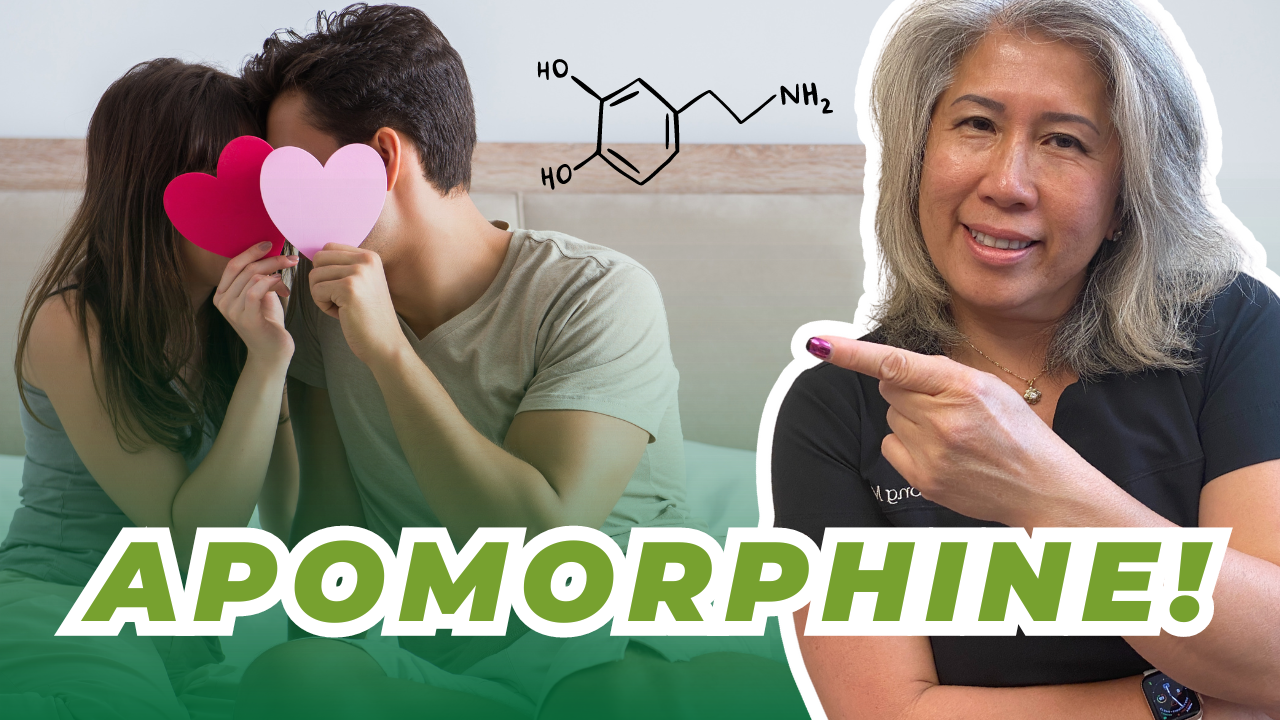
Apomorphine: Natural Sexual Booster
Are you curious about a medication that can enhance your desire and arousal almost instantly? In this podcast episode, we’ll dive into apomorphine, a medication used to treat certain conditions. I’ll discuss how it works, its advantages, and potential side effects. You’ll also learn how to safely use apomorphine with other medications. Tune in and explore how apomorphine can significantly improve your sexual health. It’s an informative discussion you won’t want to miss!
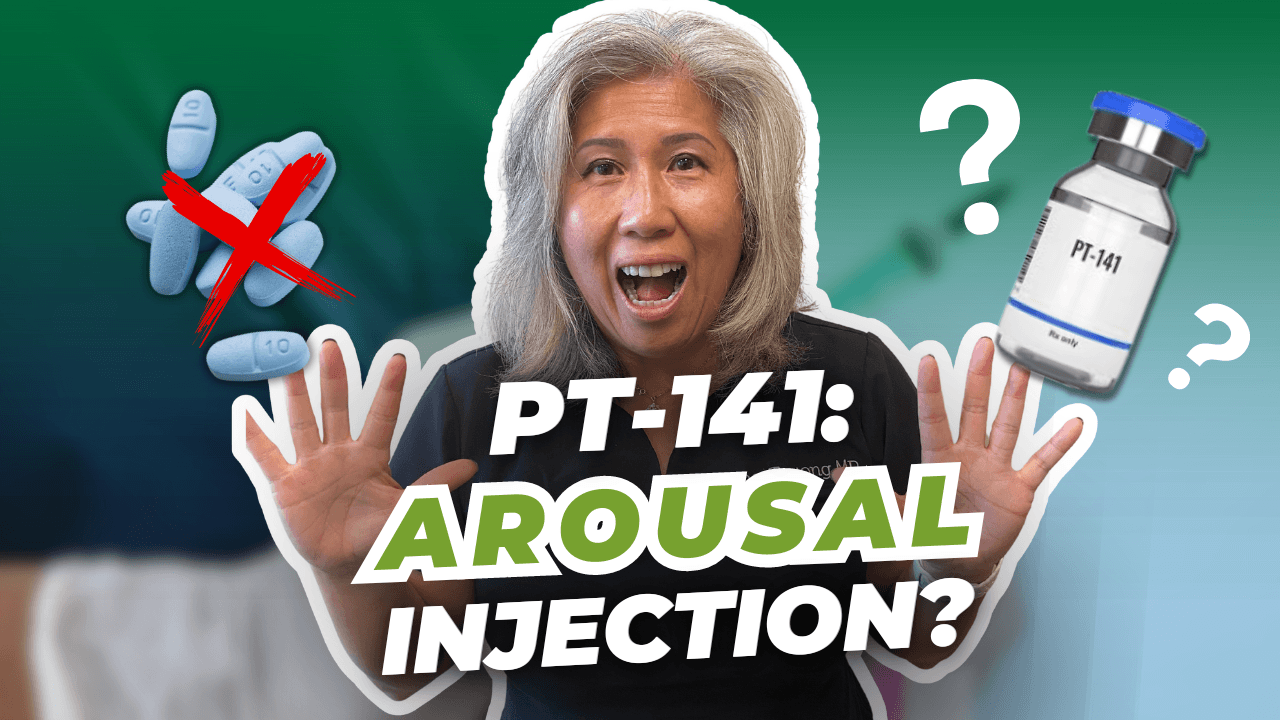
PT 141 Peptide: The NEW Male Enhancement Secret? | Is This Injectable BETTER Than Viagra?
Could PT 141 be the game-changing solution for sexual dysfunction? In this podcast episode, we dive into the science behind PT 141. Discover how this FDA-approved treatment offers superior benefits over traditional ED medications like Viagra. Tune in and learn why this peptide might be the approach you’ve been looking!
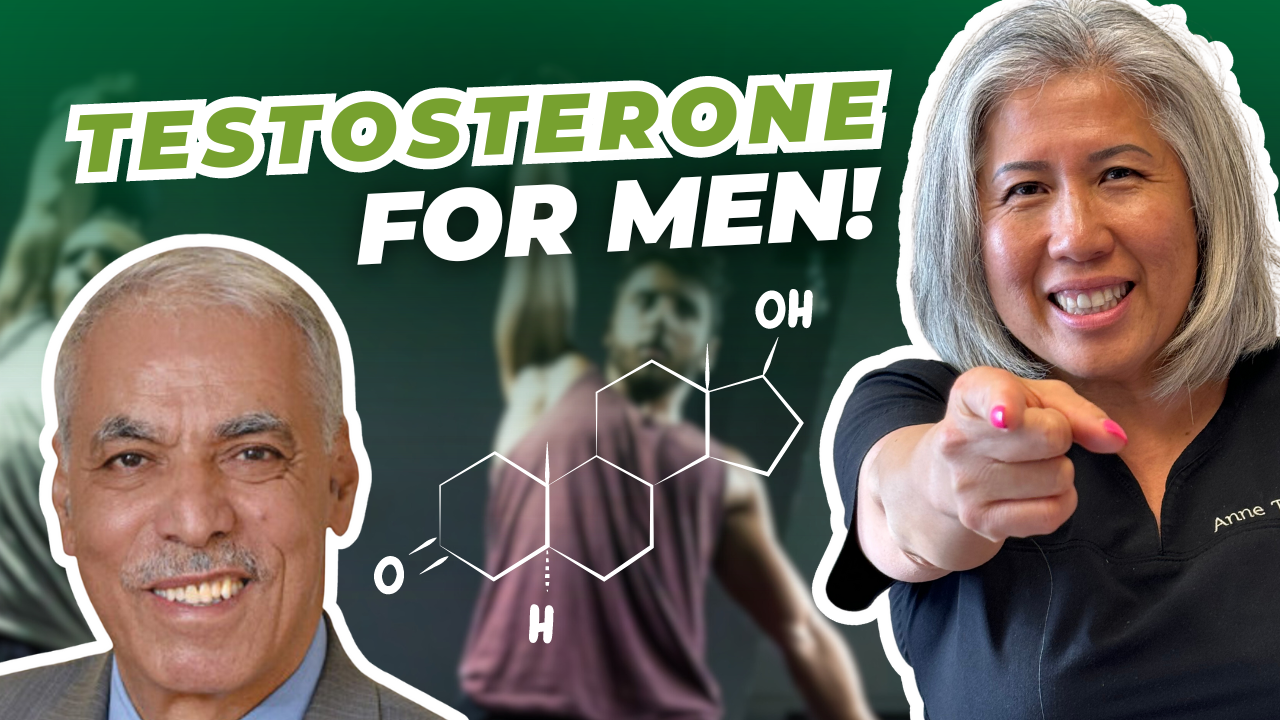
Boost Your Testosterone Naturally | Myths Debunked & Real Advice from the Expert
Ever wondered why testosterone is crucial for your overall health? In this podcast episode, I sit down with professor Abdul Traish, an expert from Boston University. We will explore what testosterone really is and its essential role in maintaining different bodily functions. Professor Traish also debunks pervasive myths about testosterone, including its alleged link to prostate cancer. He explains how maintaining proper testosterone levels can significantly enhance your quality of life. Dive into this episode to uncover the truth about testosterone and its profound impact on your health!
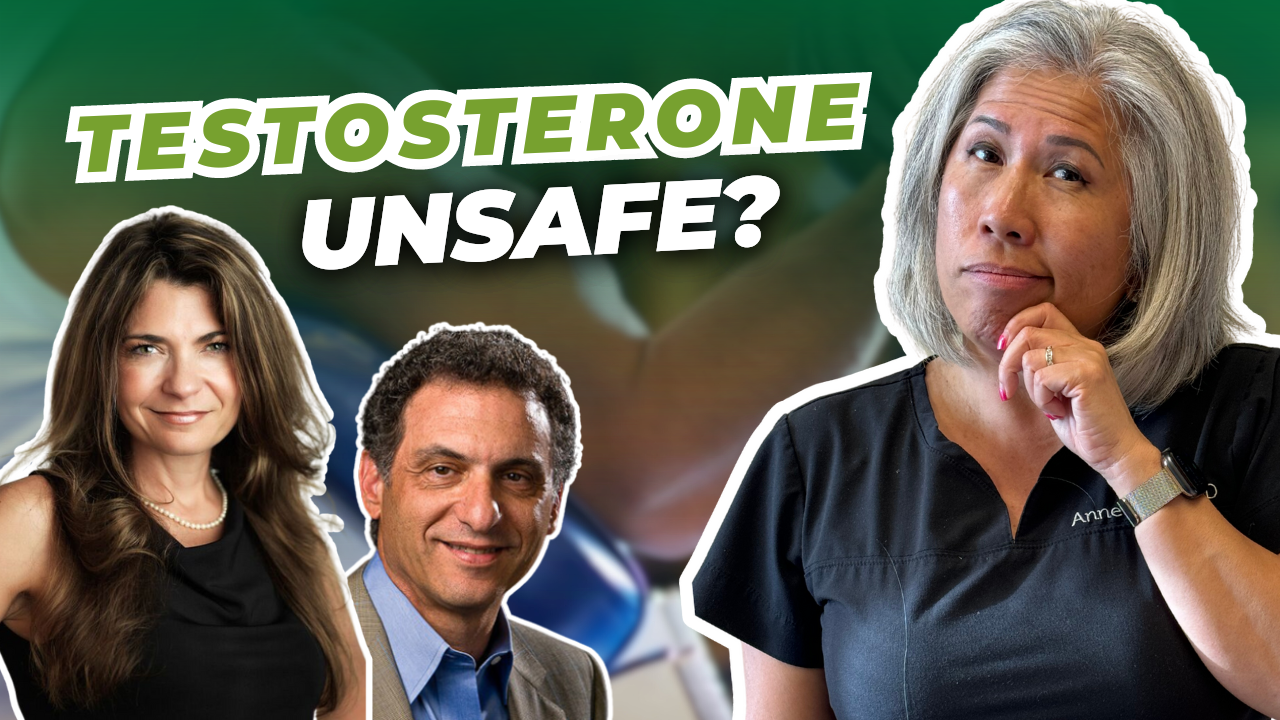
The Role of Testosterone From The Experts
Ever wondered if testosterone really causes prostate cancer? In this podcast episode, Dr. Abe Morgentaler and Dr. Marianne Brandon debunk long-held myths and address the stigma surrounding men’s sexuality. They explore the need to redefine male sexuality in the face of societal expectations and discuss how hormonal factors shape men’s sexual identity and behavior. Tune in and join me for a deep dive into the evolving understanding of testosterone and practical tips for enhancing masculinity and sexual health.

Forget ED Medications, This Works For Erectile Dysfunction
Have you ever wondered why shockwave therapy is a game-changer for erectile dysfunction? In this podcast episode, we dive into the world of shockwave therapy and break down the critical differences between focus shockwave and radial shockwave. Discover why focus shockwave therapy stands out as the best option for treating ED. Join me as I explore how this innovative approach can restore your confidence and improve your sexual health.

Does This Pump REALLY Make You BIGGER? SOMAerectStf Pump Unboxing and Review!
Are you tired of subpar penis pumps that fail to deliver the results you want? In this podcast, we’ll discuss why the SOMAerect STF is the best on the market and I’ll share why I highly recommend this pump. Learn how the SOMAerect STF can improve your health and confidence. Tune in to find out more about this great product!

You Won’t Believe What’s INSIDE Your Penis (2 Muscles & 3 Nerves!)
Have you ever wondered what really goes on inside your penis? In this podcast, we will dive into the surprising details of the penis, explaining how different types of muscles work together. It’s more than just meets the eye! We’ll explore the parts of the penis and how they all work together to give you an erection. You’ll also learn how this system affects your sexual health and get tips for keeping things working smoothly. Tune in to learn how different factors affect erections and get practical tips for a healthy sex life.
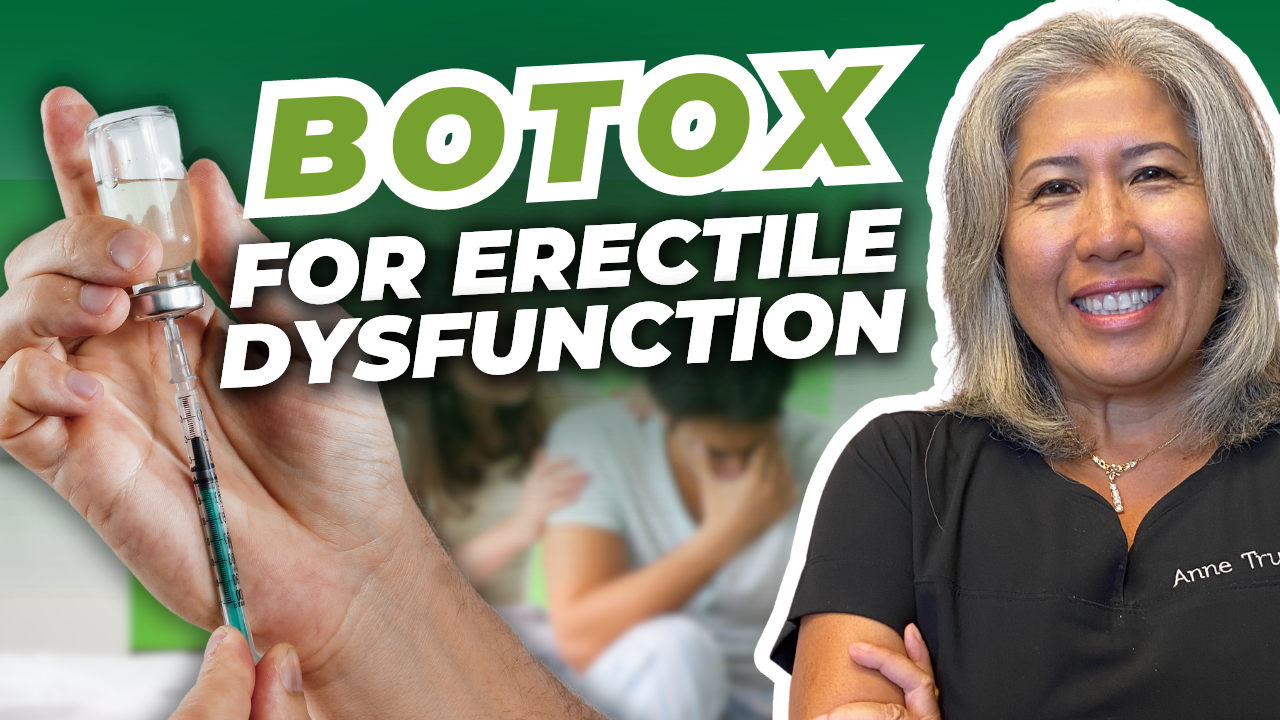
Men! Is THIS the Secret Weapon Against ED? (Science Says YES!)
Ever feel like erectile dysfunction medications just aren’t working? You might be surprised to learn that Botox, the injection often used for wrinkles, is changing the way ED is treated! In this podcast episode, I’ll discuss how Botox compares to Viagra for ED. We’ll explore the advantages of Botox, how long it lasts, and why it’s becoming a popular option for men. Tune in to learn more about this exciting new approach to ED and how it can help you regain confidence in your sexual life.

Rock Hard Naturally?! Your Blood Holds the SHOCKING Secret!
Are you experiencing bedroom blues and struggling to rise to the occasion? Erectile dysfunction (ED) can be a frustrating issue for men. If you’re affected by ED, there may be a new treatment option you haven’t heard of yet. Platelet-rich plasma (PRP) therapy uses your own blood, your platelets, to potentially improve your erectile function. In this episode, I will explain what PRP therapy is and how it works. I’ll also discuss the possible benefits of this treatment. Listen now to find out if it could be right for you!
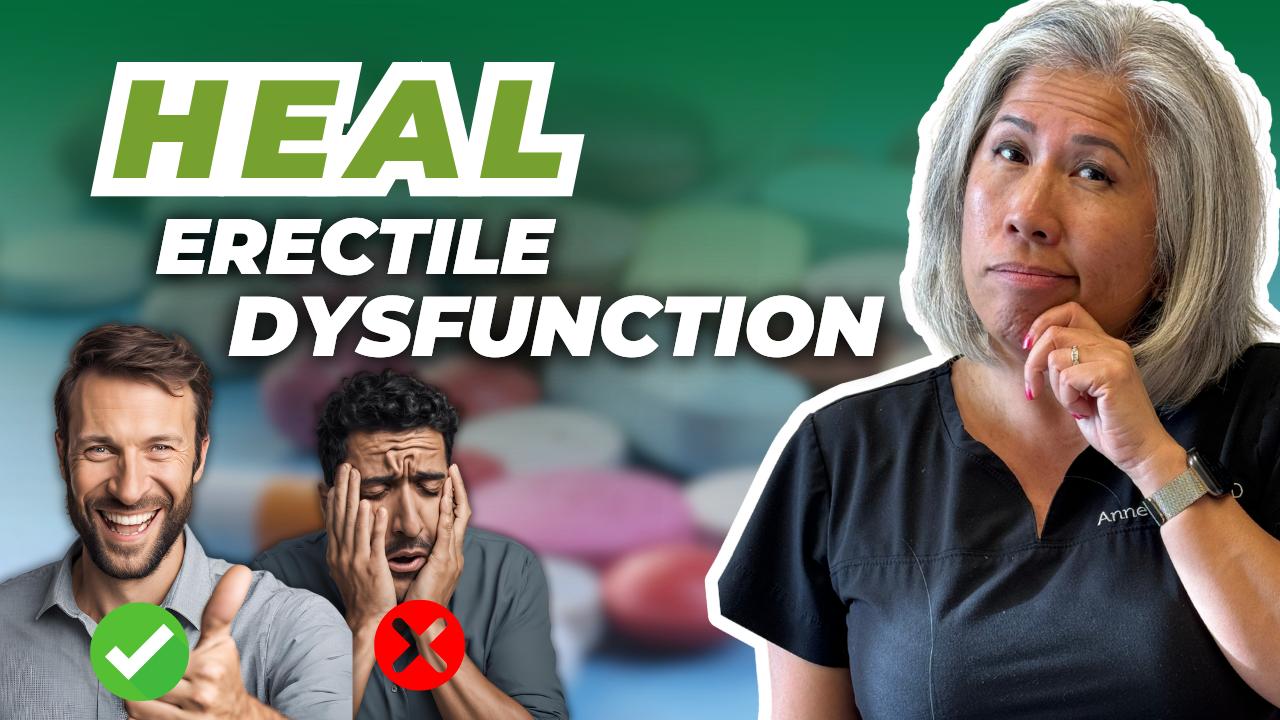
The Most Effective ED Treatment Ever!!!
Erectile dysfunction can be frustrating, but there are ways to manage it. In this episode, we’ll explore six practical tips to improve your sexual health and regain confidence. These are simple changes you can make to your everyday life. Dive in to learn how to improve your sexual health and overall well-being.

The Secrets to Better Sex in Your 70s
Can you still enjoy an active sex life in your 70s? Absolutely! This podcast episode is all about how you can stay sexually active even as you get older. I’ll talk about simple things you can do and cover ways to manage stress, a big enemy of a healthy sex life. Erectile dysfunction is a common problem, but I’ll share tips to overcome it and improve your overall sexual health. Tune in to hear real stories of men who are having great sex lives in their 70s and beyond. I’ll give you practical advice to help you do the same!

Effective Strategies Against Performance Anxiety for Erectile Dysfunction
Are you struggling with pressure in the bedroom? This podcast episode explores the surprising link between performance anxiety and ED. I’ll break down the causes of performance anxiety, and how it affects you mentally and physically. I’ll also cover ways to manage performance anxiety to help you get your confidence back in the bedroom. Tune in now and learn how to overcome performance anxiety and reclaim intimacy!
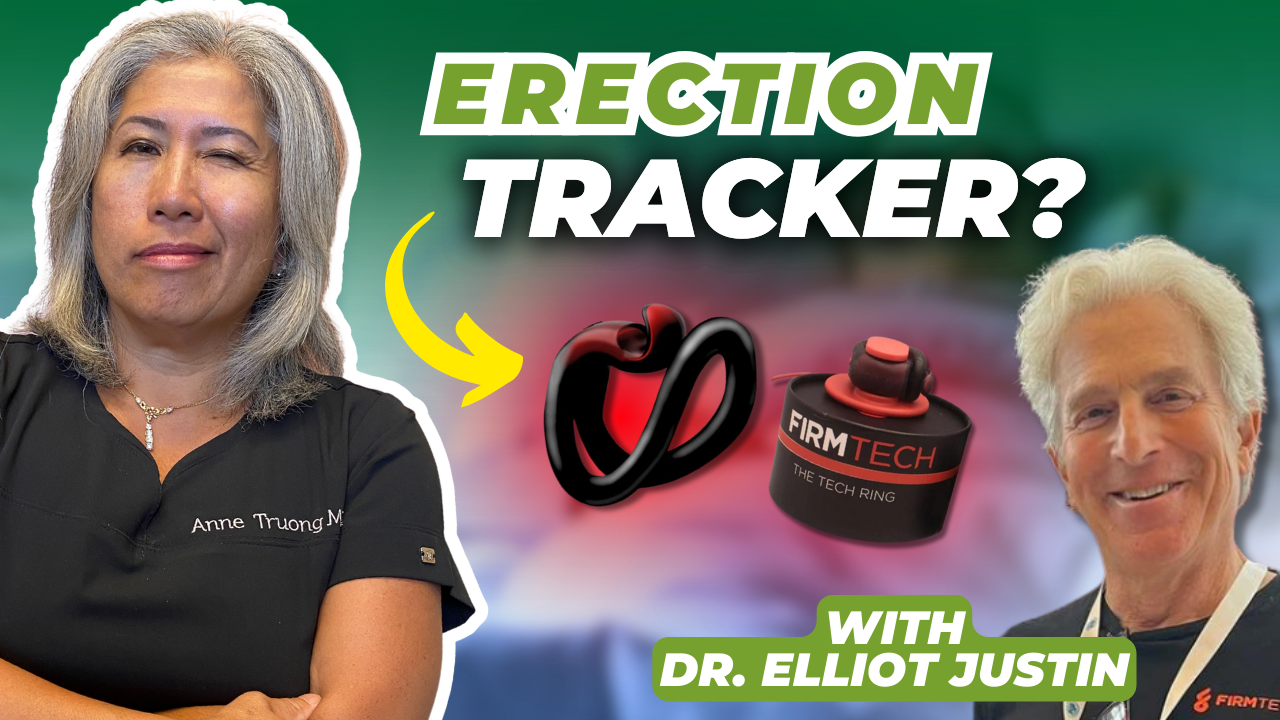
Device That Measures the Firmness of Erection!
Have you ever thought that your erection could tell you something about your health? In this podcast episode, we’ll talk about a new device called the FirmTech. This ring can measure how firm your erections are and even track them at night. Dr. Elliot Justin will join us to discuss why this is important for your overall health. We’ll also learn why regular checkups are important and why sexual health is becoming a bigger topic in medicine. Did you know a healthy sex life can be good for you? Tune in to hear about FirmTech, how to keep your blood flowing well, and how to improve your sex life and overall health. This show could change the way you think about staying healthy!

The What, How, Why Behind Morning Wood
Ever wondered why men wake up with morning wood? In this episode, we’ll explore everything you need to know about morning wood. I’ll discuss the reasons on why it happens and how to keep it going strong. I’ll also talk about blood flow, hormones, and even how your lifestyle can affect things. Dive in for an amazing tip that could make a big difference in your daily routine!

The Hidden Challenges Women Face in Sexual Health
Is your love life lacking spark? Feeling disconnected from your partner? In this episode, I talk with Dr. Sadaf Lodhi, a women’s health expert, about common problems couples face in the bedroom. Dr. Lodhi explains what gets in the way of intimacy, like stress, sexual health changes, and even physical changes, and offers practical tips to overcome these issues. Learn how to bring back the spark and enjoy a more fulfilling sex life. Tune in and learn how to have a happier, healthier relationship!
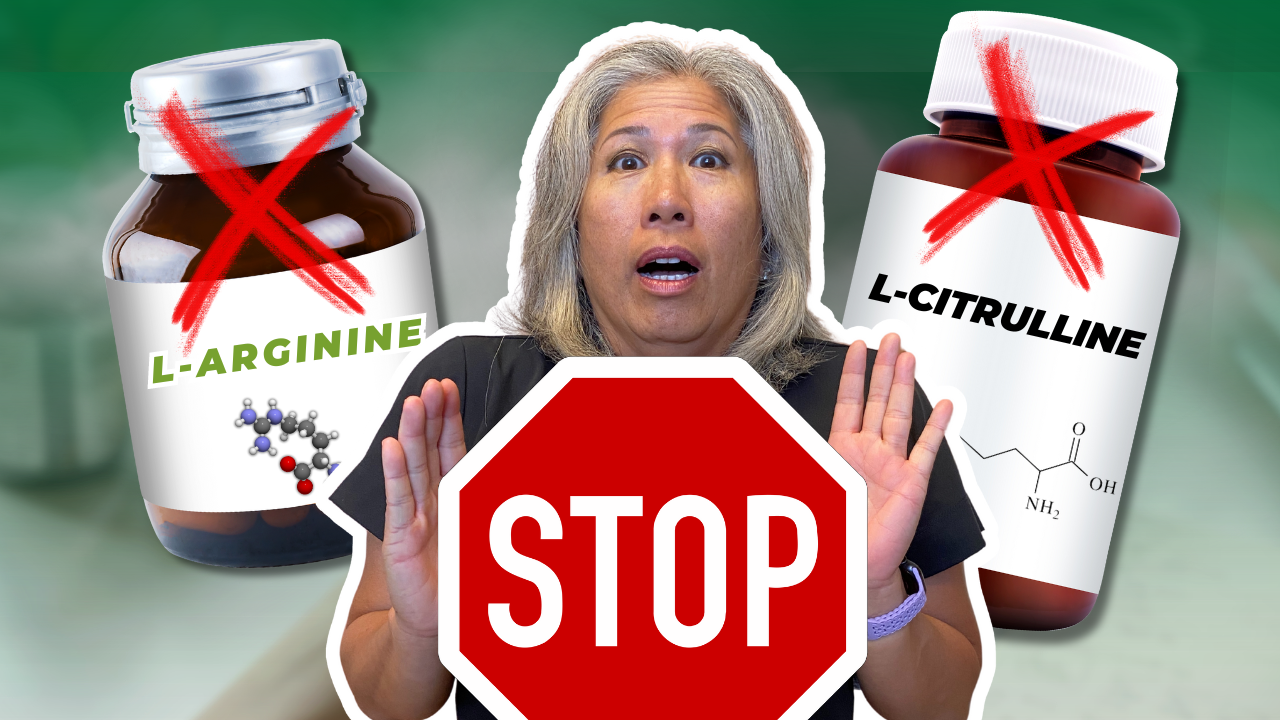
The Truth About Nitric Oxide Supplements
Have you heard about nitric oxide and how it might be good for your sex life? In this podcast, I’ll talk about what nitric oxide is and how it helps blood flow throughout your body. This is especially important for getting and keeping an erection. I’ll also explain the science behind nitric oxide and what foods and supplements can help your body make more of it. Dive in to find out how nitric oxide can improve your overall health and your sex life!
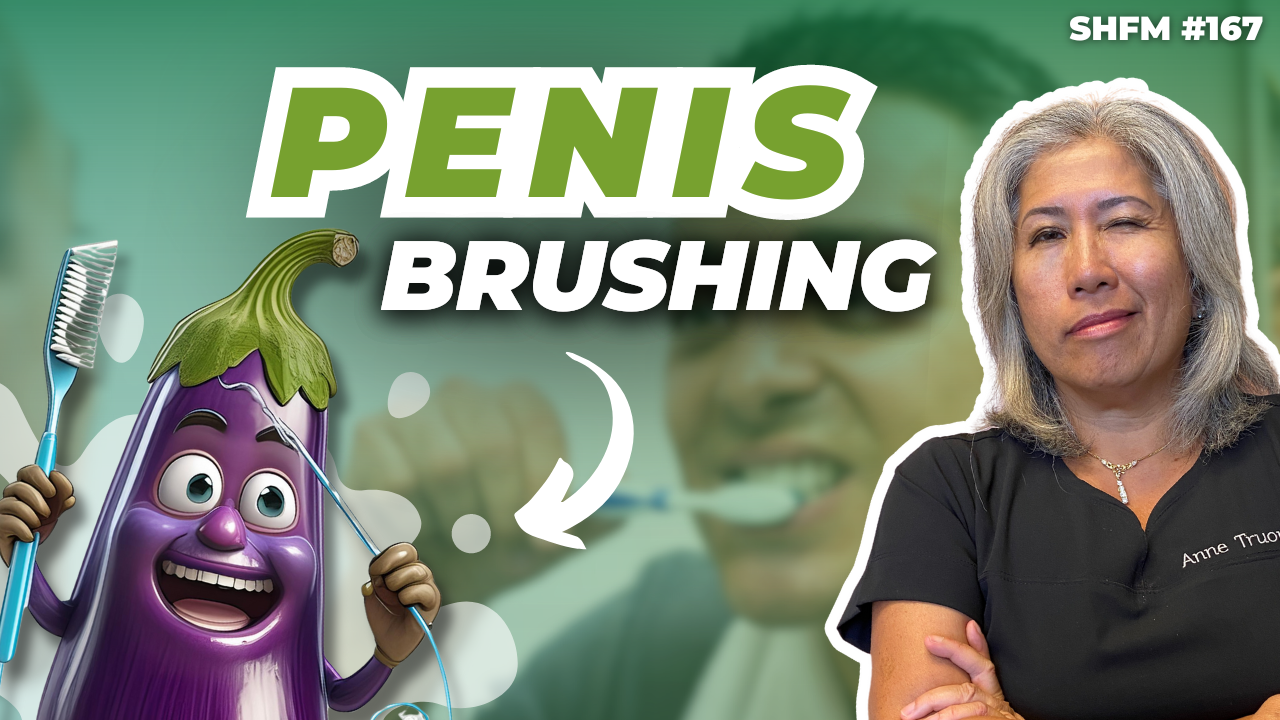
Treat Your Penis Like Your Teeth
Are you giving your penis the care it deserves? Taking care of your sex life is just like taking care of your health in other ways. You wouldn’t wait for a toothache to start brushing, right? In this podcast, we’ll talk about why it’s important to take care of your penis, just like any other part of you. I’ll give you some easy things you can do every day to keep your sex life healthy and strong for years to come. Dive in to find out how small changes can make a big difference!
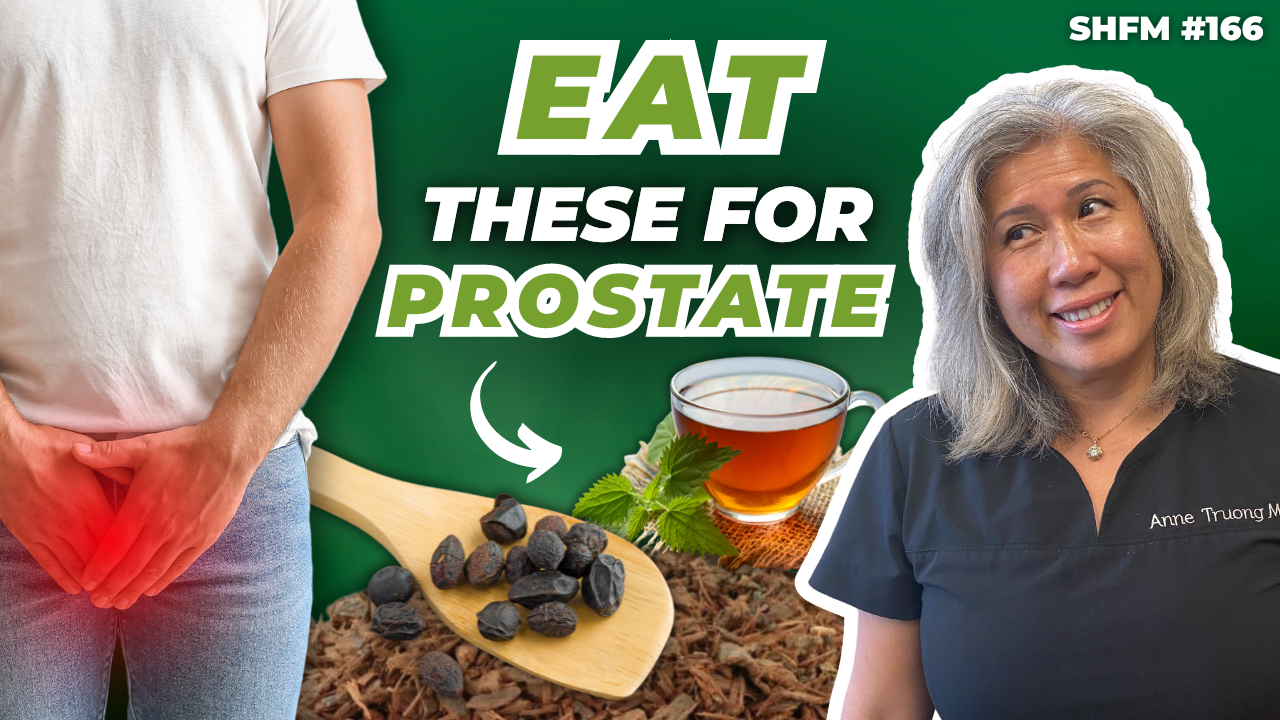
Natural Treatments for an Enlarged Prostate
Enlarged prostate got you down? Peeing problems putting a damper on your day? This podcast episode is your roadmap to relief! I’ll crack the code on BPH and explore all-natural remedies. I will also show you how small changes can make a BIG difference in your comfort and well-being! Tune in and discover how to take back control!
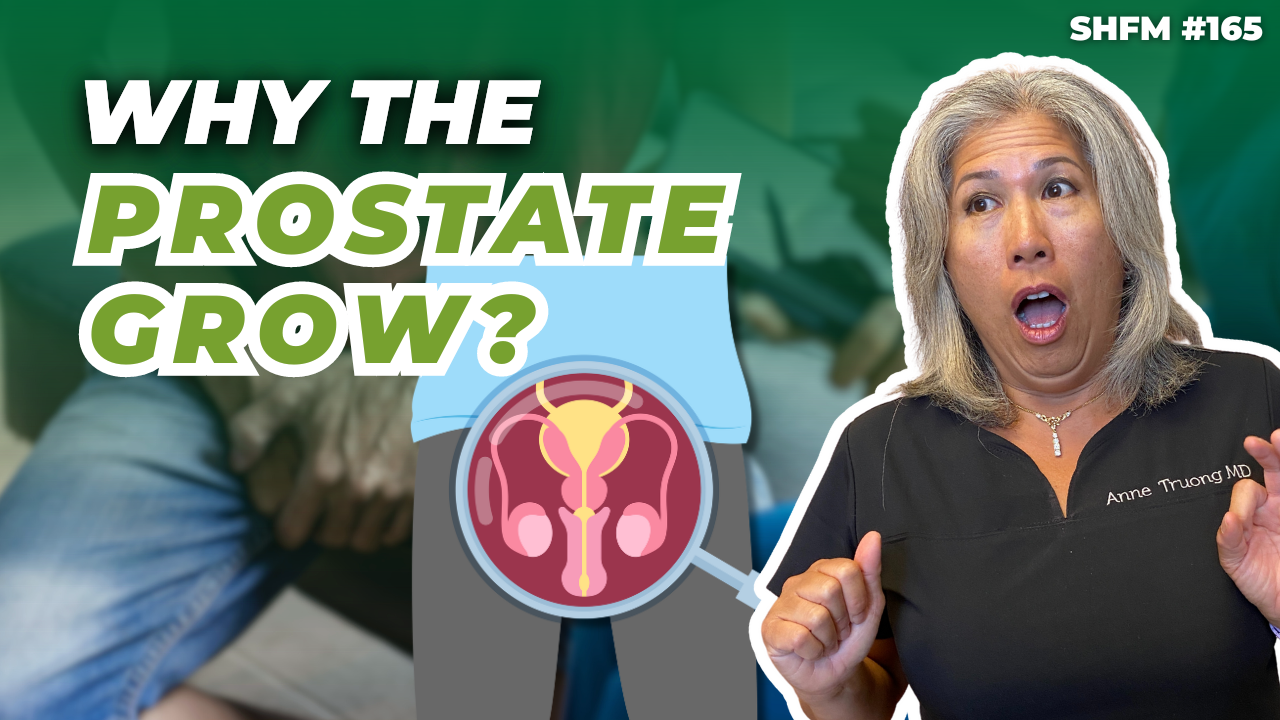
Enlarged Prostate? Symptoms, Causes, & Solutions (2024)
Are you experiencing frequent nighttime trips to the bathroom? You might be dealing with benign prostatic hypertrophy (BPH) or an enlarged prostate. And it’s a common condition affecting men as they age. In this episode cuts through the jargon to explain what causes BPH, from hormones to genes to your daily habits. We’ll also explore smart ways to manage symptoms and keep your life on track. Tune in and feel better!

Does Sex Ends After 60? Truths and Myths
Is age really a barrier to a fulfilling sex life? In this podcast episode, I debunk four widespread myths and misconceptions about sex and aging. I will explore the realities of sexual activity among seniors and challenge the belief that age diminishes sexual health. I will also address the overstated risks of sex-induced heart issues and debunk myths about STDs in older adults. Tune in to discover the truths that empower seniors to maintain a vibrant and satisfying sexual life.

Over 65? Sex Life Secrets and Health Insights 2024 Trends
Do you really have less sex when you get older? In this podcast episode, we will delve into the often-misunderstood topic of sex and aging. I will be breaking down myths and presenting the facts faced by seniors. Join me as I explore how sexual activity changes but doesn’t necessarily decrease with age. I will also discuss the health benefits of maintaining an active sex life and offer insights on how seniors can manage and improve their sexual health. Tune in to discover a fresh perspective on intimacy in later life.

5 Foods for Better Erections
Are you looking to enhance your sexual health and achieve a firm, hard erection? Tune into this podcast episode where I explore the top five foods that every Modern Man should add into his diet. I will be covering all the essentials you need to know and delve into how these powerful foods can improve your erection!

5 Unexpected Foods That May Ruin Your Erection!
Achieving a firm and hard erection is essential for many. However, did you know that your diet plays an important role in sexual health? In this episode, we’re diving deep into the five key foods that might be sabotaging your performance in the bedroom. Join me as I delve these foods should be avoided and learn how simple dietary tweaks can significantly improve your sexual performance and overall well-being. Tune in to empower yourself with the knowledge to make healthier choices for better sexual well-being!
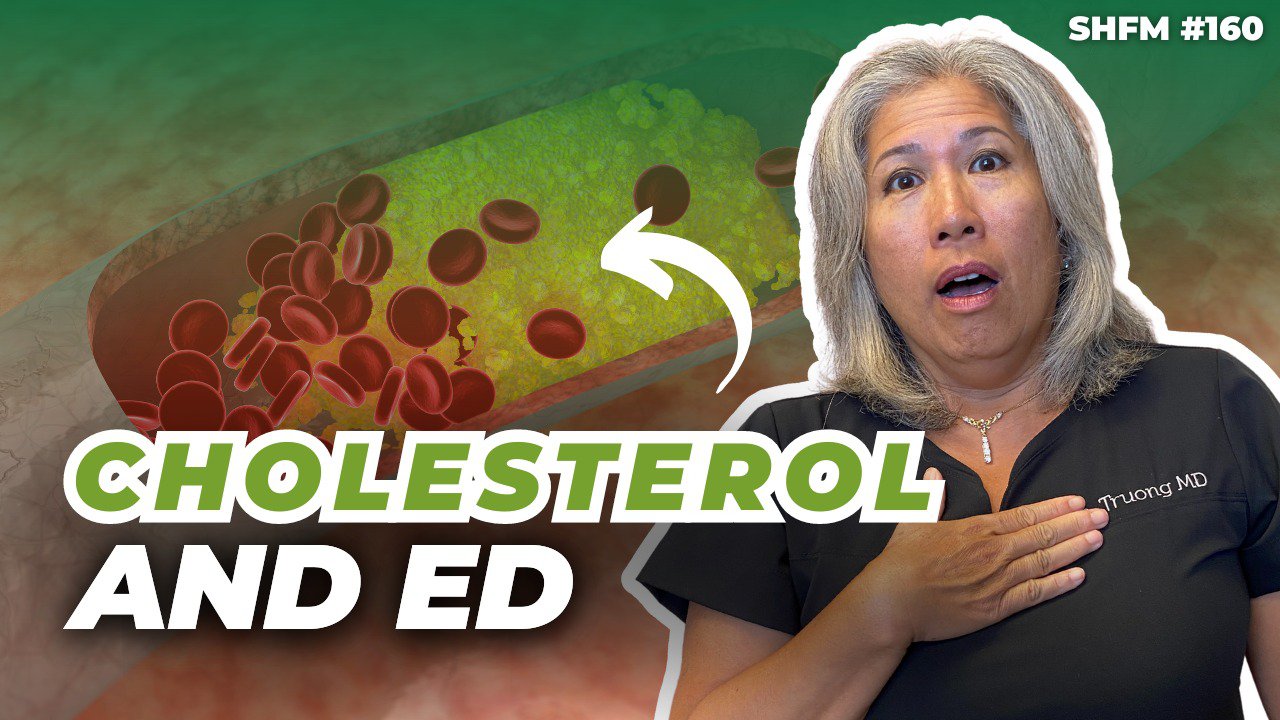
Why Erectile Problems are Linked to High Cholesterol
ED is a condition that affects many men worldwide, and its causes can be as varied as the individuals it impacts. However, one of the less discussed but critically important contributors to ED is cholesterol. Yes, the same substance that your doctor measures during a routine health check-up can play a significant role in your sexual health. This podcast episode dives into the relationship between cholesterol levels and ED. I will offer insights, preventive measures, and actionable tips to combat high cholesterol and its impact on your erection. Join me as I explore the vital link between your heart’s health and your sexual wellbeing.

The Truth About Penis Size and Sexual Satisfaction
Is size really everything? Dive into the world of facts and myths surrounding penis size and discover what matters most in a sexual relationship. This episode breaks down average sizes, explores the misconceptions that society holds dear, and reveals the qualities that truly enhance intimacy and satisfaction. Join me as I navigate through the science, studies, and real opinions to understand the essence of physical and emotional connections in a relationship.
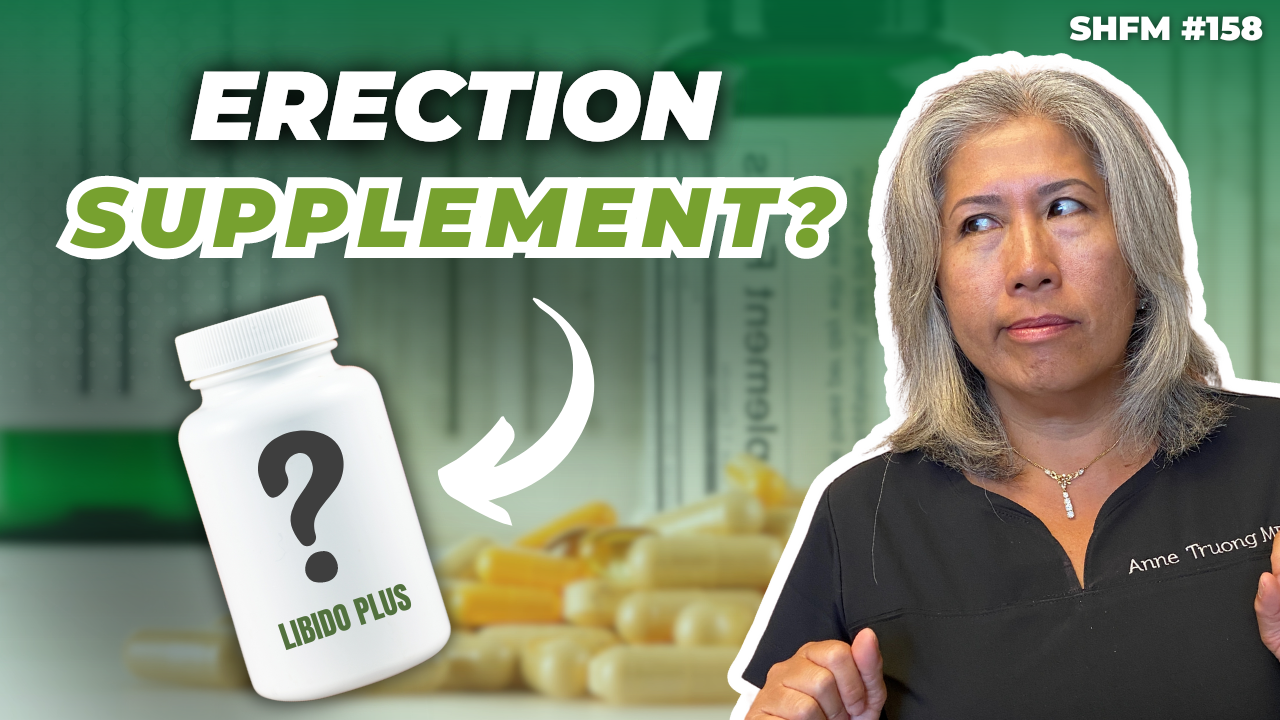
Supplements to Increase Your Libido
Can a single supplement transform your sexual health and boost your performance? Dive into my latest podcast episode where I unravel a viral trend, a potent blend of ashwagandha, sea moss, black seed oil, and burdock root. I dissect whether these supplements live up to the hype. I also discuss how integrating them with key lifestyle practices can potentially elevate your sexual health and overall wellbeing. Join me as I explore the match of nature’s offerings and holistic health for a truly enhanced life experience!
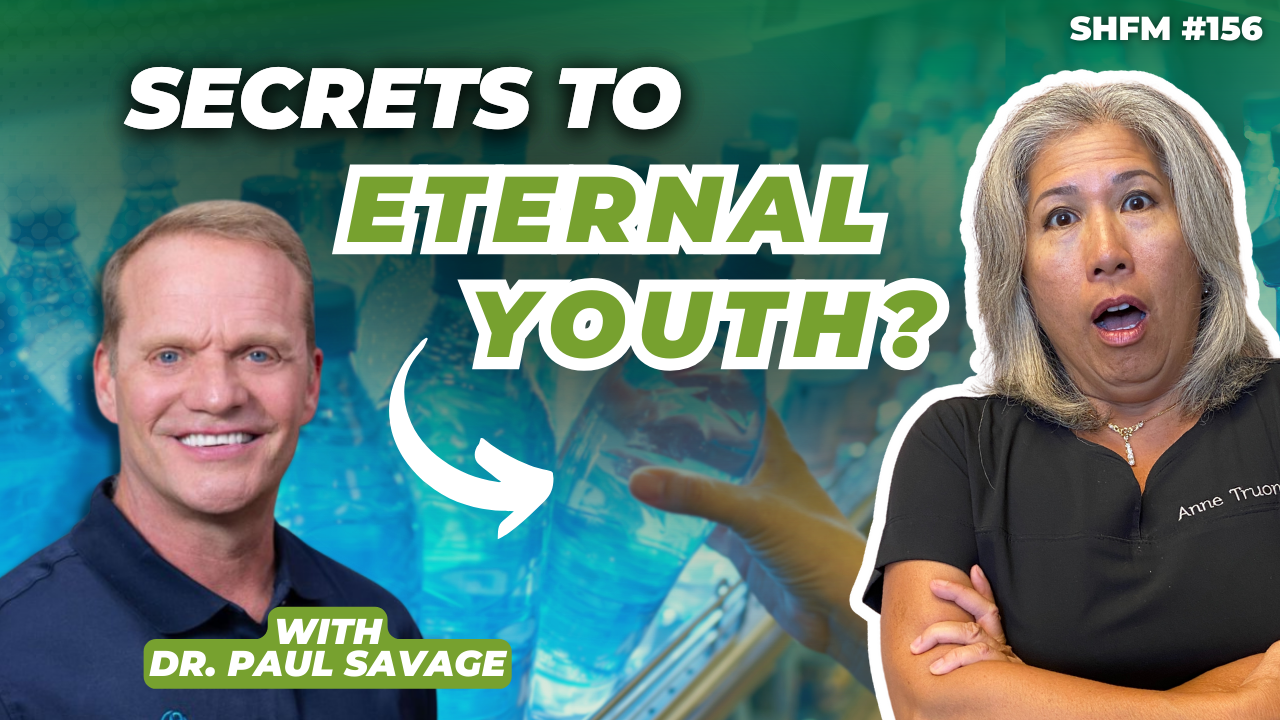
The Untold Connection Between Toxins, Hormones, and Sex, with Dr. Paul Savage
What if the secret to a vibrant sex life and hormonal balance lies in tackling toxins? In my latest podcast episode, we delve into the intricate connection between these seemingly unrelated aspects of health, guided by the insights of Dr. Paul Savage. Discover the hidden dangers of toxins lurking in our everyday environment. Learn how a groundbreaking treatment, such as the plasma exchange, promises not just to cleanse your bodies but to rejuvenate your lives. Join us as we explore practical steps toward a toxin-free lifestyle and unveil the potential of plasma exchange to revolutionize our approach to health and longevity. Get ready to unlock the secrets to longevity and vitality in an episode that’s as enlightening as it is empowering.

The Role of Testosterone in Male Sex Drive
Have you ever wondered what fuels your sexual drive and ensures a healthy erection? What if the key to unlocking your fullest sexual health was a hormone you’ve heard of but never fully understood? In this podcast episode, we will dive deep into the critical role of testosterone. I will discuss its role not just in achieving and maintaining erections, but also in its impact on the brain and overall penile health. Join me as I explore the relationship between testosterone and sexual health and will shed light on common misconceptions. Get ready for an exploration of testosterone’s essential functions and how you can maintain its optimal levels for a vibrant, fulfilling life!
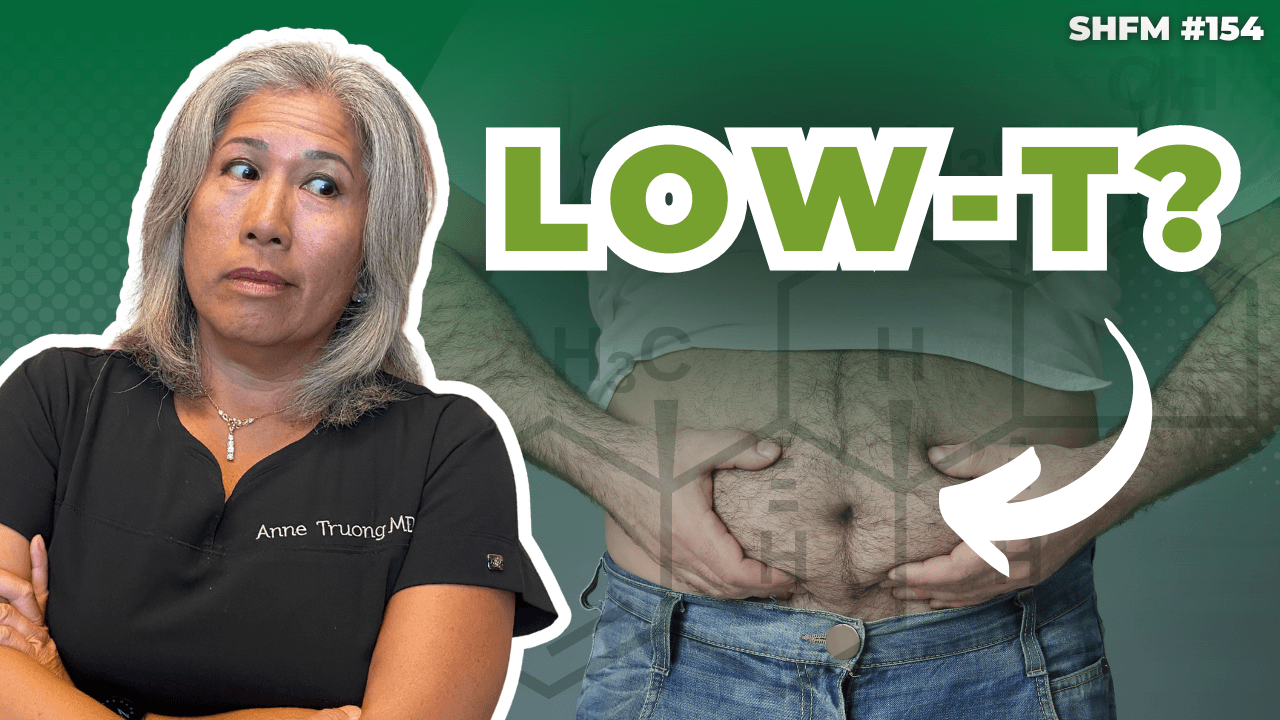
Signs and Symptoms of Low Testosterone You Probably Don’t Know
Are you aware of how crucial testosterone is to your health and sexuality, especially as you age? In this podcast episode, I dive deep into the world of testosterone. I will discuss its important role and its impact on your sexual health and overall well-being. I will uncover the common signs and symptoms of low testosterone levels and provide actionable tips on how to naturally boost this vital hormone. From the importance of hormone replacement therapy to lifestyle changes that make a real difference, this episode is a must-listen! Join me as I navigate you to the complexities of testosterone and how to ensure your levels are where they should be for optimal health.

Peyronie’s Disease Causes Erectile Dysfunction
What do Peyronie’s disease and erectile dysfunction have in common? How can understanding their connection lead to effective treatments? In this podcast episode, I will dive deep into the relationship between Peyronie’s disease and ED. I will shed light on the underlying causes, the impact they have on sexual health, and the innovative treatment strategies available. Join me as I explore how men can navigate these challenges. This episode will offer hope and guidance for those affected by Peyronie’s disease and ED. This is not just about identifying problems but providing solutions that can improve your quality of life and restore your confidence.
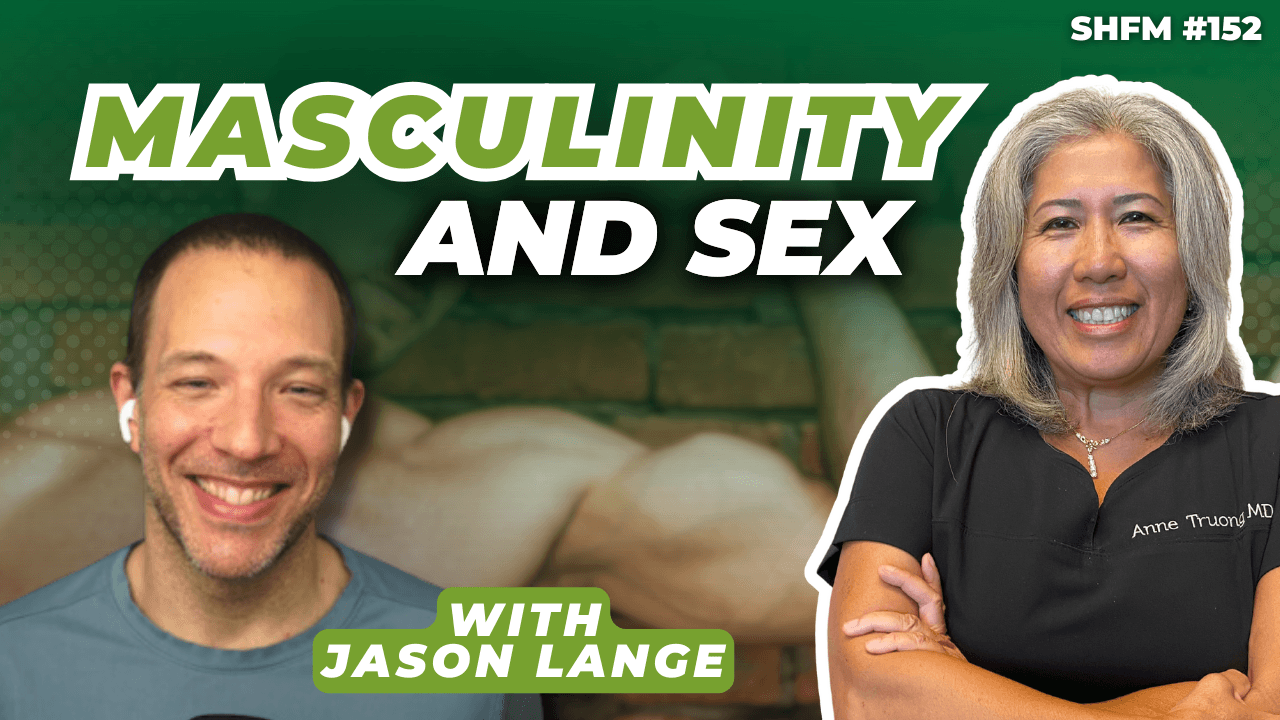
Modern Man’s Struggles with Masculinity and Sex in 2024
Being a man is different today than ever before. The world is changing fast, and what it means to be manly is changing too. This podcast episode explore the unique challenges that a Modern Man face today. Join us as we explore the concepts of “Nice Guy Syndrome,” the importance of embracing one’s sexuality, and the integration of primal instincts with modern sensibilities. With insights from men’s embodiment coach Jason Lange, we uncover the keys to finding deeper clarity in life’s purpose, relationships, and the journey towards becoming a Modern Man.

Do You Know That Your Penis Can Shrink?
In today’s fast-paced world, health concerns specific to men often go unspoken. This episode delves into that often-overlooked aspect of men’s health: preventing your penis to shrink. It’s a condition that’s not only common but also mistakenly accepted as an inevitable part of aging. We will dive into the groundbreaking insights presented in the 2020 study from Frontiers in Physiology. Discover and explore how simple lifestyle changes could offer triple benefits for your sexual health and overall well-being.

Can Red Light Therapy Really Improve Your Erectile Dysfunction?
Are you aware that red light therapy can significantly enhance men’s sexual health, particularly in improving erections? This might sound surprising, but the science and practical applications behind it are both fascinating and promising. Discover how this treatment, traditionally used for skin rejuvenation and hair growth, is now shining a new light on ED solutions. Join me as I explore a holistic approach to combating ED, where prevention and maintenance are key!
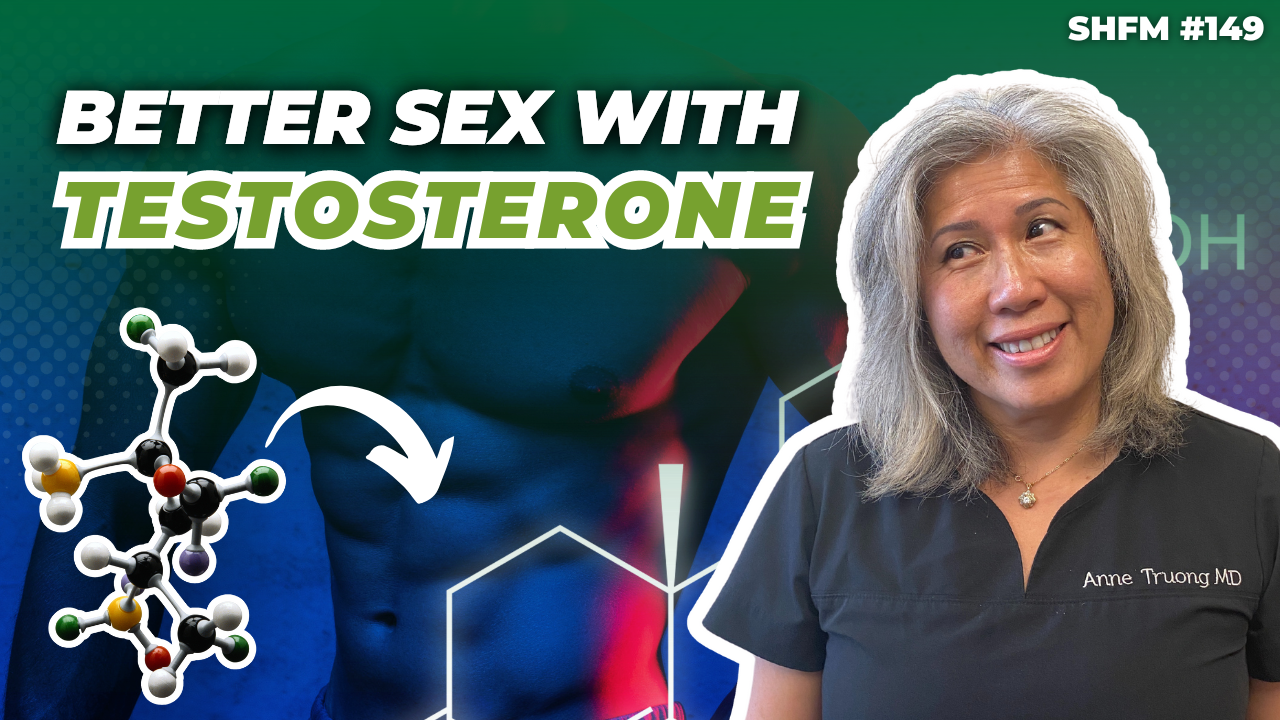
How Low Testosterone Can Impact Your Sex Life
Ever wondered why a single hormone could be the backbone to your sexual and overall health? In this episode, I dive deep into the world of testosterone, the cornerstone of men’s health. I explore its vital role, the subtle signs of its decline with age, and the impact it has on masculinity, energy levels, and emotional well-being. Join me as I unravel the complexities of testosterone management, debunk myths, and offer insights into safe treatment options under professional guidance. Get ready to learn how this key hormone influences your life and how you can take control to maintain your vigor and health!
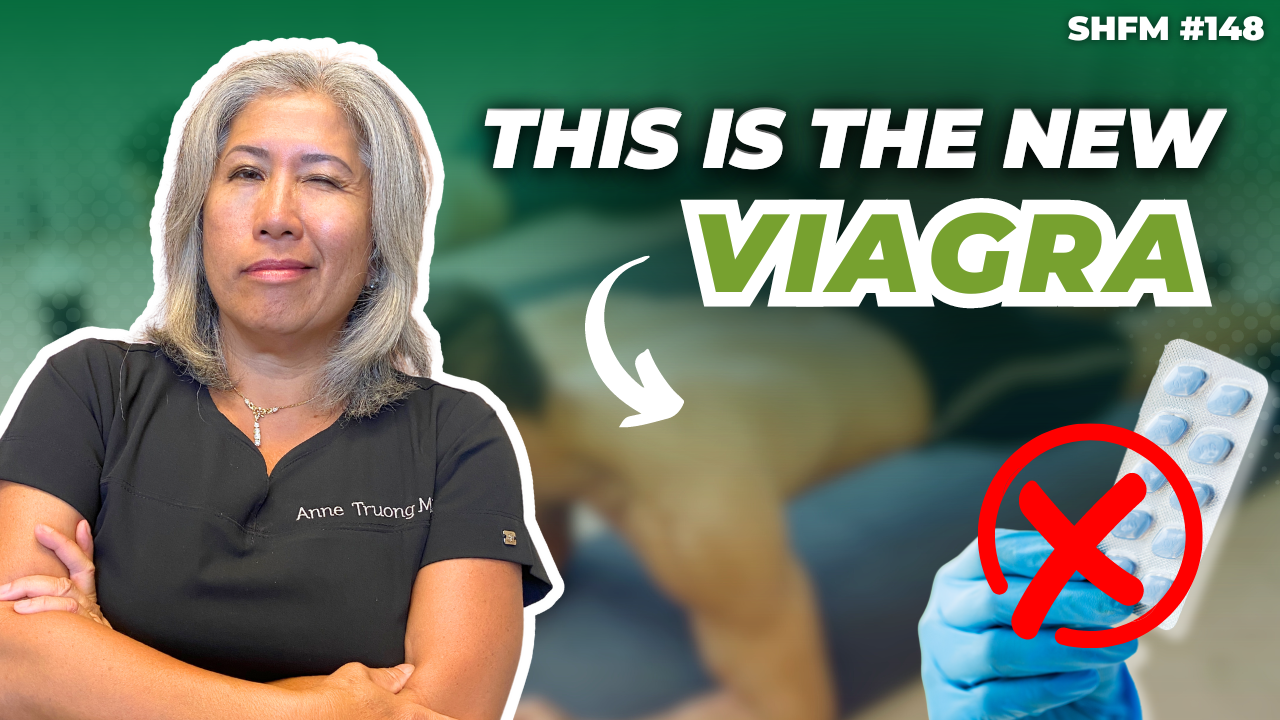
How Exercise is the New Viagra
Can something as simple as exercise really be as powerful as Viagra for improving sexual health? In this eye-opening podcast episode, we will dive deep into the surprising power of exercise as the ultimate natural solution. Discover how just 30 minutes a day can not only enhance your sexual well-being but also tackle the root causes of ED. With practical advice, this episode will show you why exercise is the secret to a vibrant, healthy sex life!

The 4 Pillars for a Satisfying Sex Life
Are you looking to enhance your sex life, have a better erection, and improve your overall health? Look no further because you’ve come to the right place. In this podcast episode, we’ll dive into the four essential pillars that can revolutionize not only your sexual health but also your general well-being. I will break down each pillar in simple terms, offering practical tips that can lead to remarkable improvements in your life. Get ready to discover how making small changes in these key areas can bring about big differences in your health and happiness!
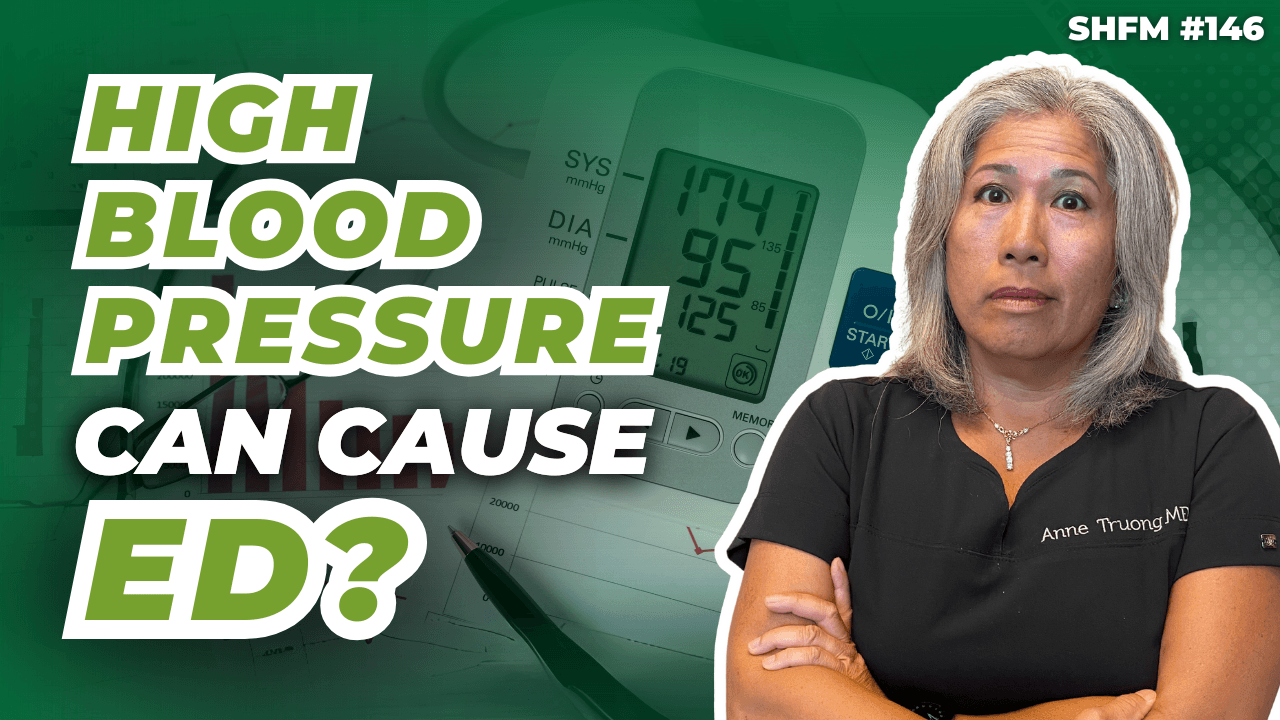
Why Hypertension Often Leads to Erectile Dysfunction (ED)
Did you know that your hypertension might be affecting more than just your heart health? In this podcast episode, we’ll delve into the connection between high blood pressure and ED. I will shed light on the mechanisms that link these two conditions. In addition, we’ll explore practical and effective strategies for preventing and treating these conditions. Ready to take control of your health and reignite your sex life? Dive in now and unlock the knowledge to beat high blood pressure and ED!

It’s Time to Take Your Penis to the Gym!
Have you ever considered taking your penis to the gym? In enlightening episode, we’ll dive into the lesser-known realm of penis health. I will be revealing why exercising your penis is crucial for maintaining male vitality and sexual health. Discover the significant benefits of penis exercise and learn the simple yet effective methods to keep your manhood in peak condition. Join me as I explore the science behind testosterone’s role, the innovative use of penis pumps, and a holistic approach to ensuring lasting health and performance!

Food That Can Make You Harder
Are you curious about which food can impact your sexual health? Dive into this podcast episode where I explore the power of diet in boosting your blood flow and erection, and preventing ED. From antioxidant-packed fruits and vegetables to omega-3 rich fish and heart-healthy nuts, learn which foods to incorporate into your diet for optimal sexual wellness. I explore a holistic approach to boosting erectile function and offer practical tips to the diet tailored for optimal sexual health. Tune in to transform your diet and invigorate your sex life!

Foods That Contribute to ED
Did you know that certain foods can significantly affect your erectile health? In today’s health-conscious world, the discussion around erectile function has become more open and informative. This episode dives into the diet dos and don’ts for maintaining a healthy erection. I will also explore how to steer your diet towards better health and away from those that hinder erectile function. Dive into the science behind why these foods are problematic and discover healthier alternatives to maintain and improve your erection.

Is There an Ideal Time for Sex?
Is there a best time to have sex? In this episode, I delve into the intriguing world of the ideal timing for sex, blending science with personal insights. Discover how your body’s clock, lifestyle habits, and even your stress levels play an important role in determining the best moments for intimacy. Join me as I unravel the secrets to syncing your love life with your body’s natural signals. I will be offering a fresh perspective on optimizing those special moments. Tune in to unlock the mysteries of timing in the art of love.

How Prolonged Sitting Could Be Harming Your Sex Life
Did you know that your office chair could be impacting more than just your posture? In today’s digital age, the reality of prolonged sitting has brought to light unexpected health concerns, particularly for men’s erectile health. Dive into this podcast episode and discover the surprising link between sedentary lifestyles and ED. This episode is complete with expert insights, anatomical explanations, and actionable strategies to lessen these effects. Join me as I explore not just the problems but also the solutions to keep you healthier and more active in all aspects of life!
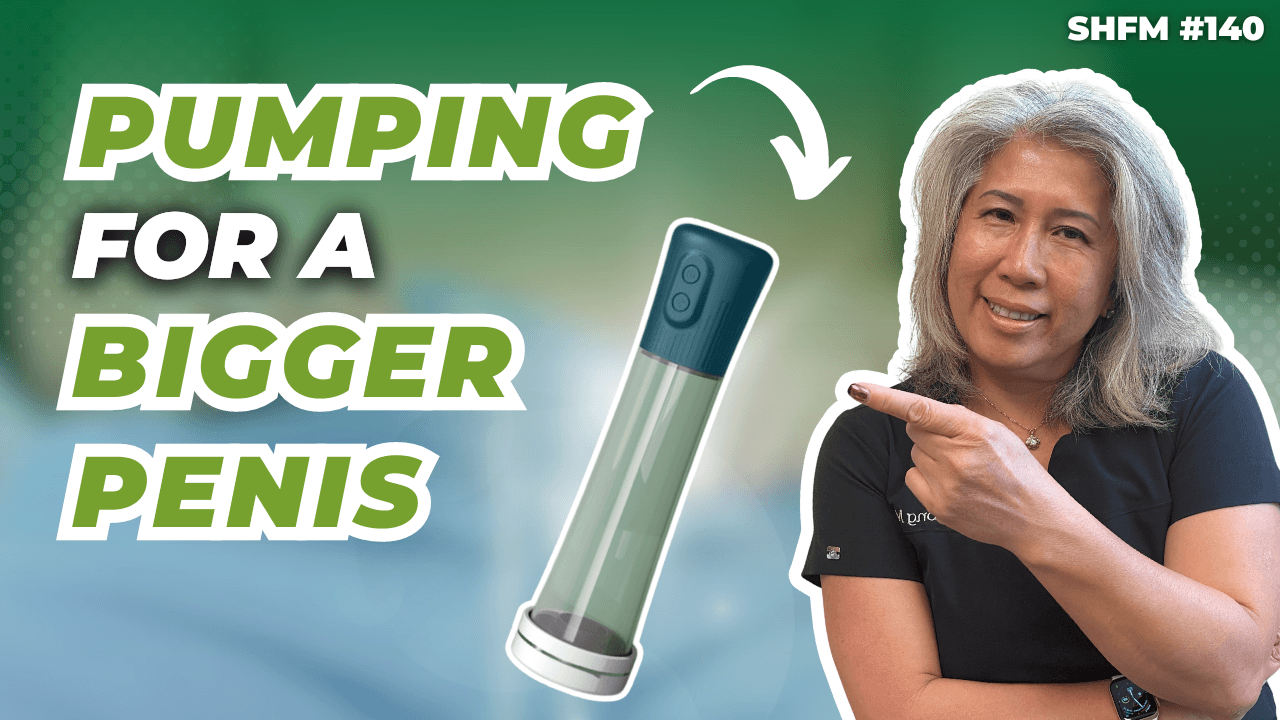
What Nobody Tells You About Penis Pumps
Are you looking for ways to enhance the size, firmness, and overall health of your penis. Though there are many myths around it, modern medicine and practices provide practical solutions that go beyond speculation! Dive into this episode and learn how to boost not only the size and strength of your penis but also your confidence in the bedroom. I will reveal the untapped power of penile exercises and cutting-edge devices, such as penis pumps. Whether you’re looking to enhance your performance or maintain peak penile health, this episode will guide you through a holistic approach to achieving lasting results! Join me as I break down the myths and bring to light the realities of male sexual enhancement in a way you’ve never seen before!
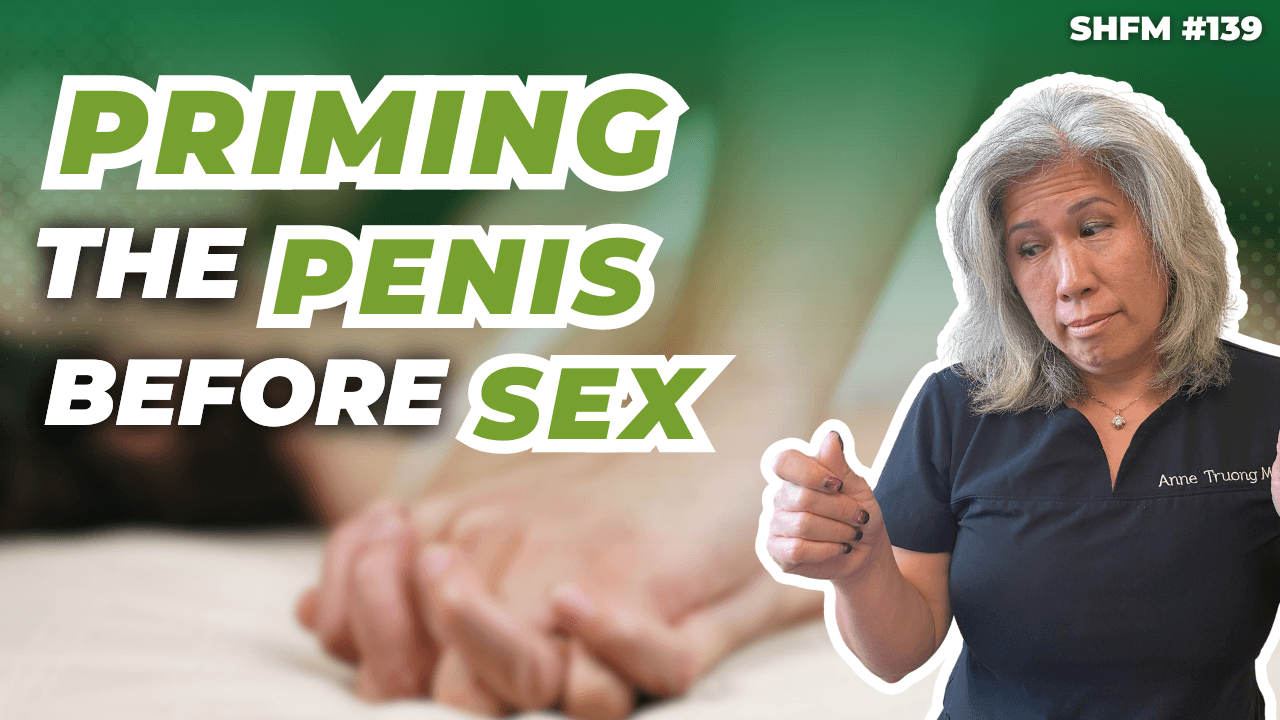
How to Last Longer in Bed with Pre-Pumping
Imagine achieving a more robust, enduring erection, much like priming your muscles before an intense workout. This episode is packed with insights and practical tips for men eager to elevate their intimate experiences. Dive in with me as I explore the transformative power of penis pumping and how it can revolutionize your intimate moments!

Get Harder, Last Longer – Perform Better with Botox in 2024
Are you constantly on the lookout for the next big thing in men’s health? Don’t miss out on this opportunity to get harder, last longer, and perform better in 2024! In this podcast episode, I uncover a medical marvel that’s turning heads far beyond the cosmetic world. Yes, I’m talking about Botox, but not in the way you think! Today, it’s revolutionizing men’s sexual health, offering a beacon of hope to those grappling with ED and those striving for sexual excellence. Don’t let this opportunity slip away. Tune in and be part of the sexual health revolution!
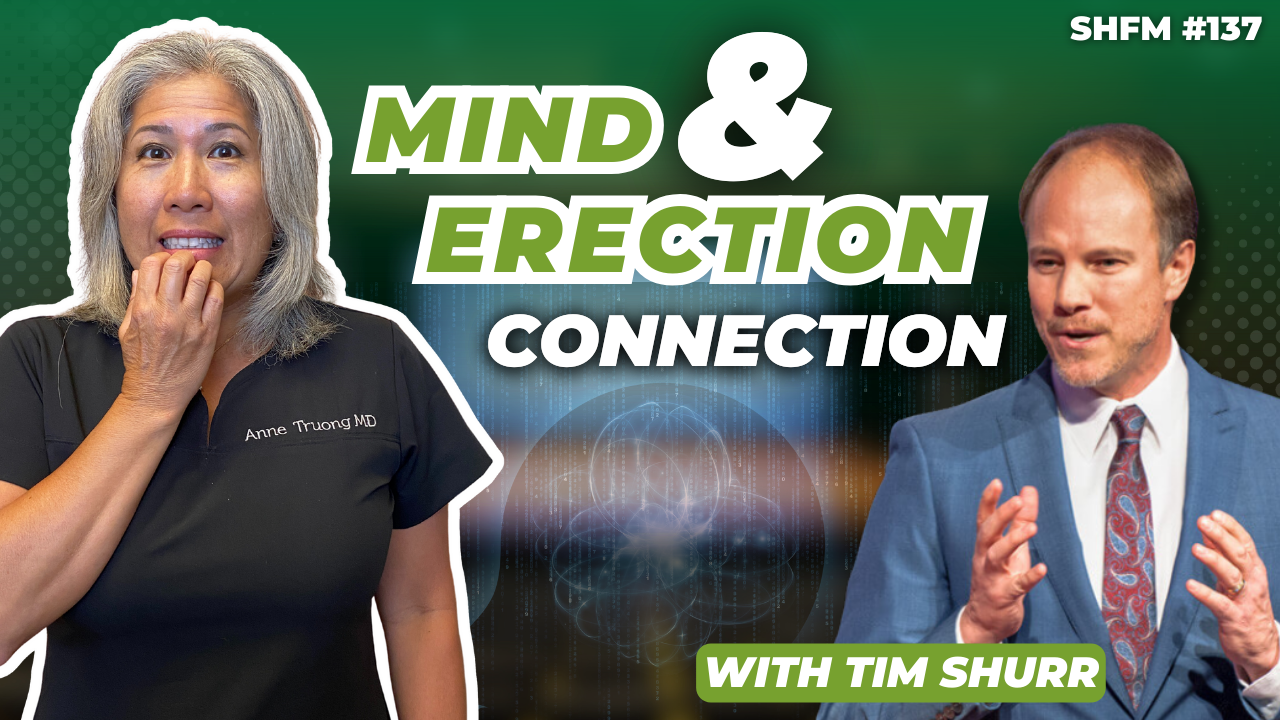
How to Overcome Performance Anxiety in Days
In this episode, I’m thrilled to welcome Tim Shurr, a renowned hypnotherapist and an expert in human behavior and transformational change. Tim brings over 30 years of experience in helping individuals break free from their limiting beliefs and unlocking their true potential. We’ll explore the intricacies of anxiety – what it is and why it’s so prevalent. Tim will unravel the mysteries of the mind, shedding light on why we sometimes act against our own best interests and how deep-seated fears and traumas from our past continue to influence our present. But this isn’t just about understanding the challenges; it’s about finding solutions. Tim will introduce us to the transformative power of hypnotherapy, explaining why it can bring about rapid, lasting change. So, sit back, relax, and get ready to embark on a journey of self-discovery and transformation with Tim Shurr. Let’s dive in!
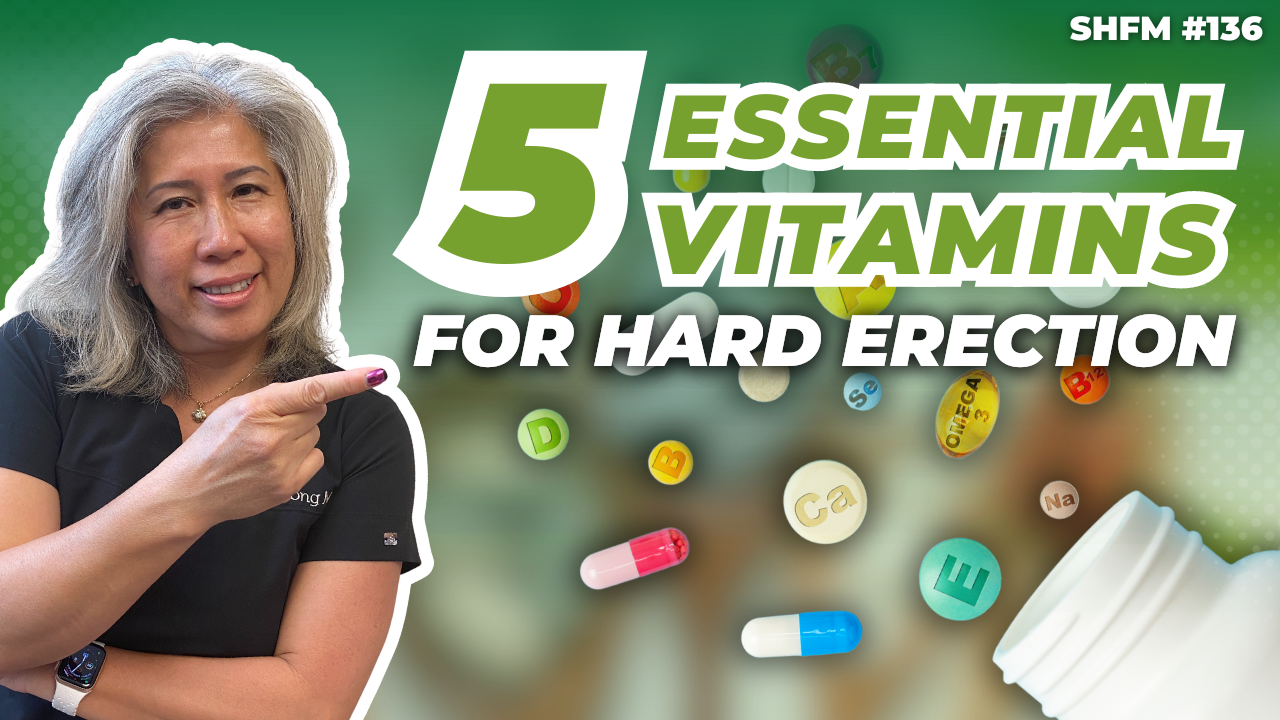
5 Essential Vitamins to Support Erectile Function
Are you on a quest to boost your sexual health and vitality? Look no further! In this podcast episode, I uncover the secrets to enhancing male sexual wellness through the power of vitamins. This isn’t just about any health tip; it’s a deep dive into the science and benefits of key nutrients that could revolutionize your intimate life. Join me as I explore the top five vitamins essential for a robust and healthy sexual function. But that’s not all, I’m also revealing how these vitamins work in synergy with your overall lifestyle to keep your sexual health at its peak. Whether you’re looking to improve your performance or just aiming for overall well-being, this episode is a treasure trove of insights you won’t want to miss. Tune in, get enlightened, and transform your sexual health journey with me!
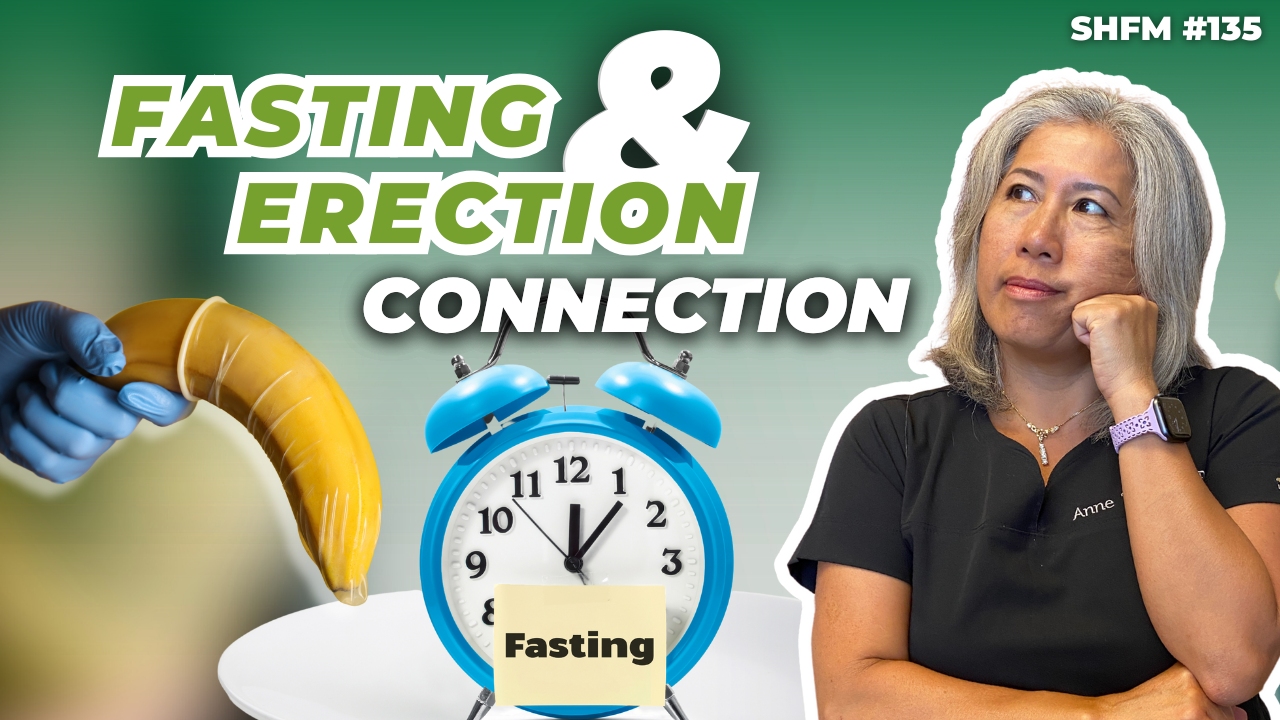
Does Intermittent Fasting Boost Your Sex Life?
Are you curious about how changing your eating habits could dramatically improve your sexual performance? In this podcast episode, I delve deep into the science behind intermittent fasting. I will reveal its potent effects on boosting testosterone, improving blood flow, and facilitating weight management. Dive in to discover insightful studies, personal experiences, and practical tips to easily incorporate this transformative lifestyle choice for a significant boost in your sexual wellbeing. Are you ready to transform your understanding of diet and its profound impact on sexual health?

Why Garlic Can Improve Your Erection
Garlic is often known for its strong aroma and pungent taste. Also, it might not be the first thing that comes to mind when considering ways to enhance your sex life. However, this common kitchen ingredient holds surprising benefits for sexual health, particularly for those dealing with ED. In this podcast episode, we’ll delve into the science behind garlic’s impact on sexual well-being. I will also be offering practical tips on incorporating it into your diet.

Why Young Men in Their 20s are Struggling with ED
Erectile dysfunction is often thought of as an issue affecting older men, but what about young men in their early twenties? In this podcast episode, I delve into the surprising prevalence of ED among men as young as 22. I will discuss its causes, and effective strategies for reversal and management. This episode is not just an eye-opener; it’s a life-changer for those struggling in silence. Let’s embark on this journey to better health and well-being together!

10 Home Remedies for ED They Aren’t Telling You About!
Are you looking for ways to tackle ED from the comfort of your home, without relying on medications or surgeries? Then, you’re in the right place. In this episode, we’ll explore ten simple, yet effective home remedies that can significantly improve your sexual health and overall wellness. From lifestyle changes like quitting smoking and losing weight, to specific exercises and mindful practices, I’ve got you covered. So, whether you’re directly impacted by ED or are just interested in a healthier lifestyle, join me as I uncover practical and natural solutions to enhance your well-being. Let’s begin this empowering journey together!

Why Masturbation Could Be Good for Erectile Dysfunction
In this episode, I dive into an important issue to clear up the confusion and bring you the real facts. A lot of people are dealing with ED and wondering: is masturbation good or bad for it? I’m going to look closely at this and bring answers that could change how you think about your sexual health. I will also explain how things like getting older, certain health problems, and changes in testosterone can affect your sexual health. But it’s not just about the science. I also talk about how to masturbate safely, and introduce tools like the penis pump that can help keep your sexual health in good shape. This episode is more than just busting myths; it’s about learning and accepting sexual health as an important part of your overall health. Come with me as I go through the ins and outs of ED, offering useful tips and knowledge that everyone can benefit from.
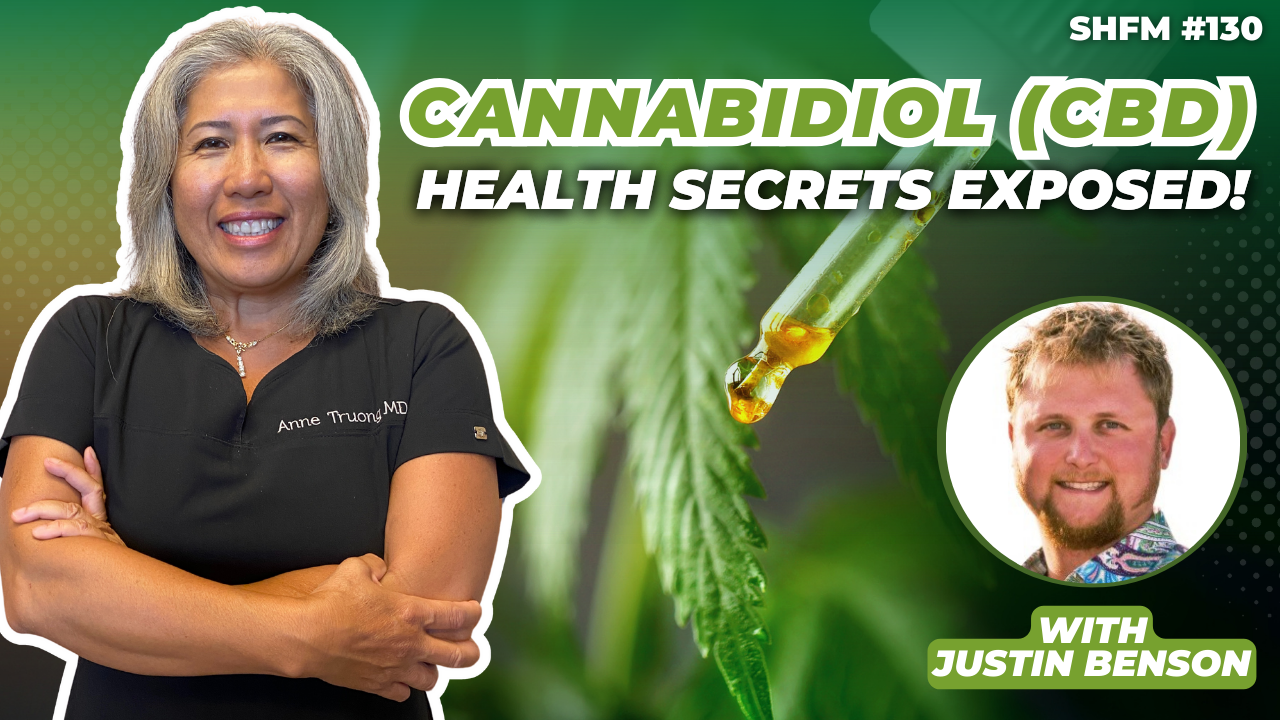
Surprising Benefits of CBD You Should Know About
In this enlightening episode, we delve into the heart of a natural wonder that’s reshaping our approach to health and vitality – CBD. Join me and Justin Benton as we uncover the profound impact of this miracle plant and explore its intriguing role in areas as diverse as neurological healing and sexual health. Join us as we reveal the transformative power of raw CBD and its profound impact on health and vitality. Tune in and embark on a journey to discover nature’s remarkable gift to wellbeing. Ready to be enlightened? Let’s begin!
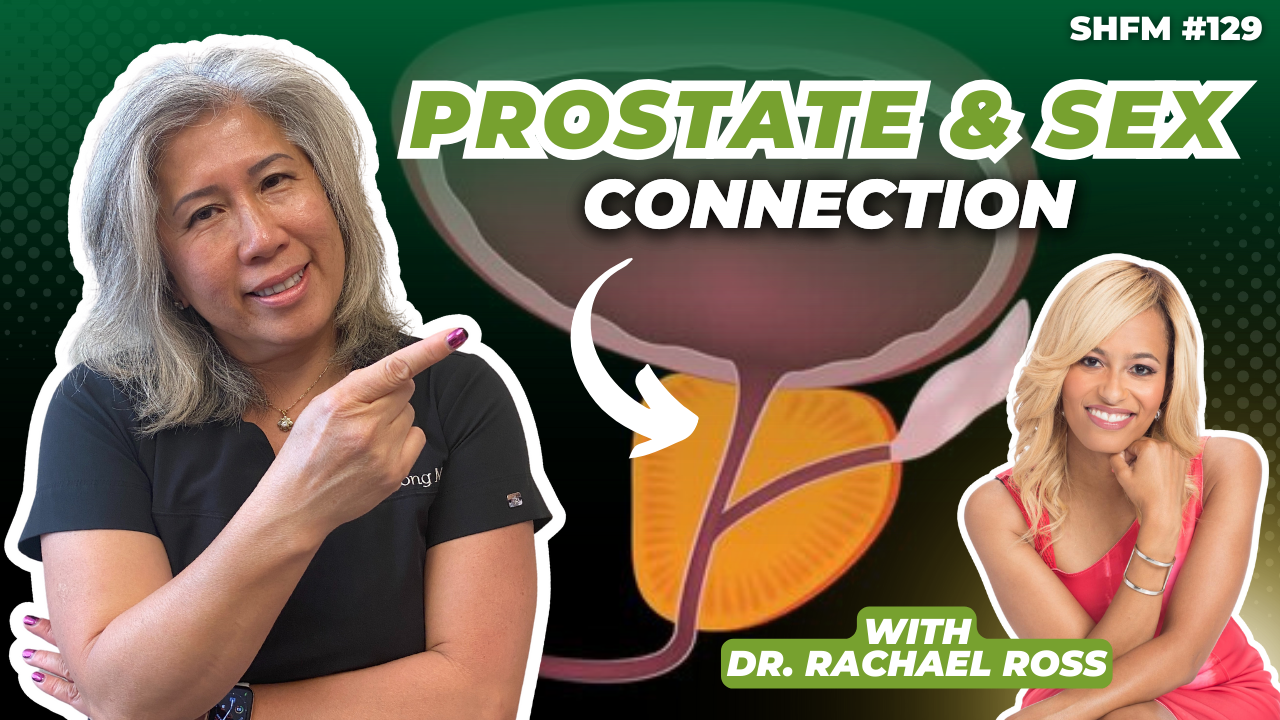
Discover How Your Prostate Is Affecting Your Sexuality
Did you know that a small organ near your penis could be the key to understanding your sexual health and wellness? Hear from an expert who not only treats patients with prostate-related issues but also shares personal experiences that highlight the organ’s significance. We’re breaking down complex medical concepts into understandable terms. Learn about the prostate’s role in erectile function, the consequences of its enlargement, and the interconnected nature of prostate and erectile health. Tune in to this podcast for an informative, engaging, and potentially life-changing discussion about prostate health. Don’t miss this opportunity to enhance your understanding and take control of your health.
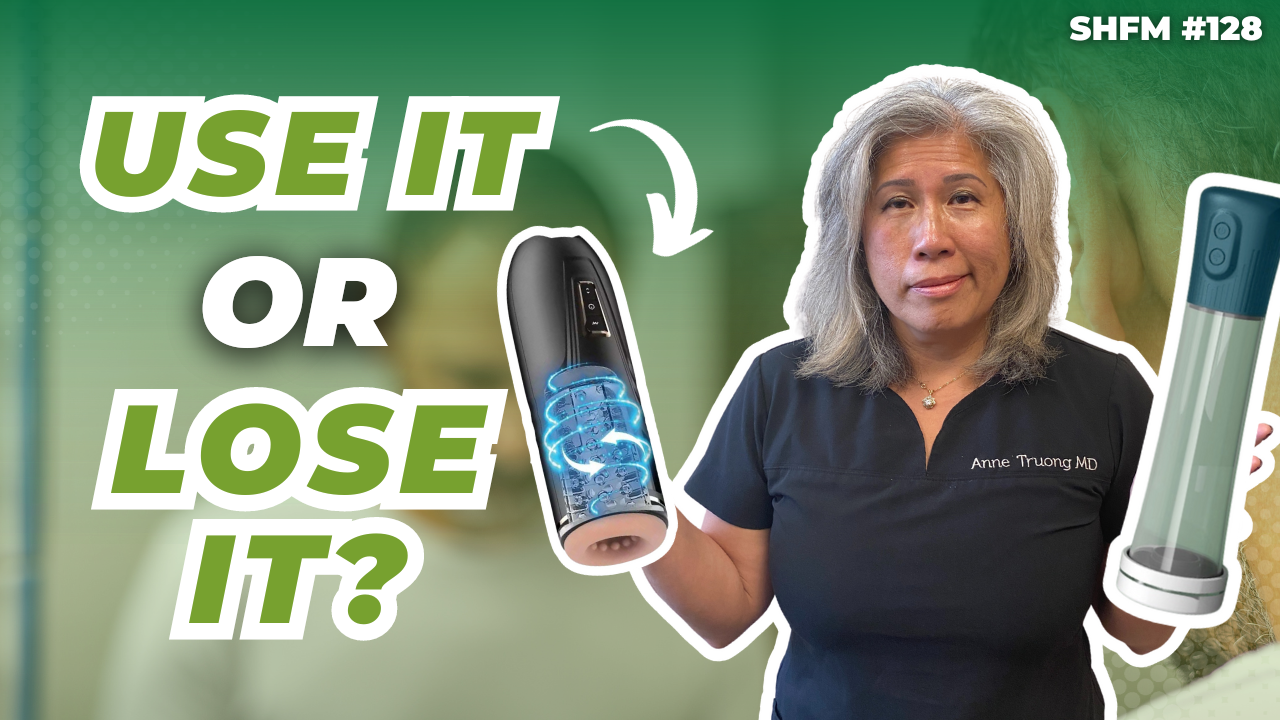
Say Goodbye to ED with these Devices!
In this episode, we will delve into the significance of exercising the penis muscle and using devices to maintain sexual health for men with ED. I will discuss the benefits of penis exercises and devices and share a method for men with ED to achieve and sustain erections. Also, I will discuss the potential consequences of neglecting penile exercise and share a remarkable story that highlights the impact of long-term inactivity.
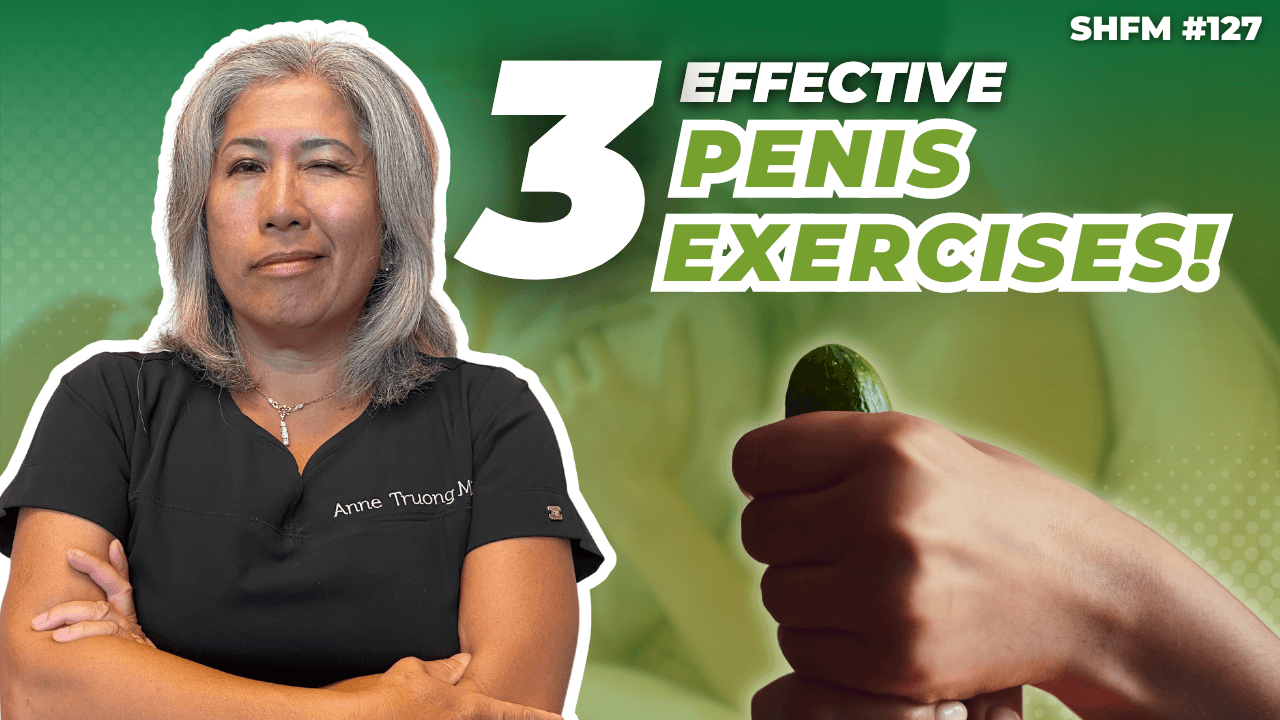
3 Effective Penile Exercises for Stronger Erections
Are you curious about natural ways to enhance strength and size down there? In this podcast episode, we’ll dive into three effective penis exercises. Discover how simple, everyday activities can lead to stronger, firmer erections and potentially even increase size. I’m not just talking theory; I’m revealing practical, easy-to-follow exercises that promise real results. Tune in to unlock the secrets of your body’s natural capabilities and take the first step towards a more confident you!
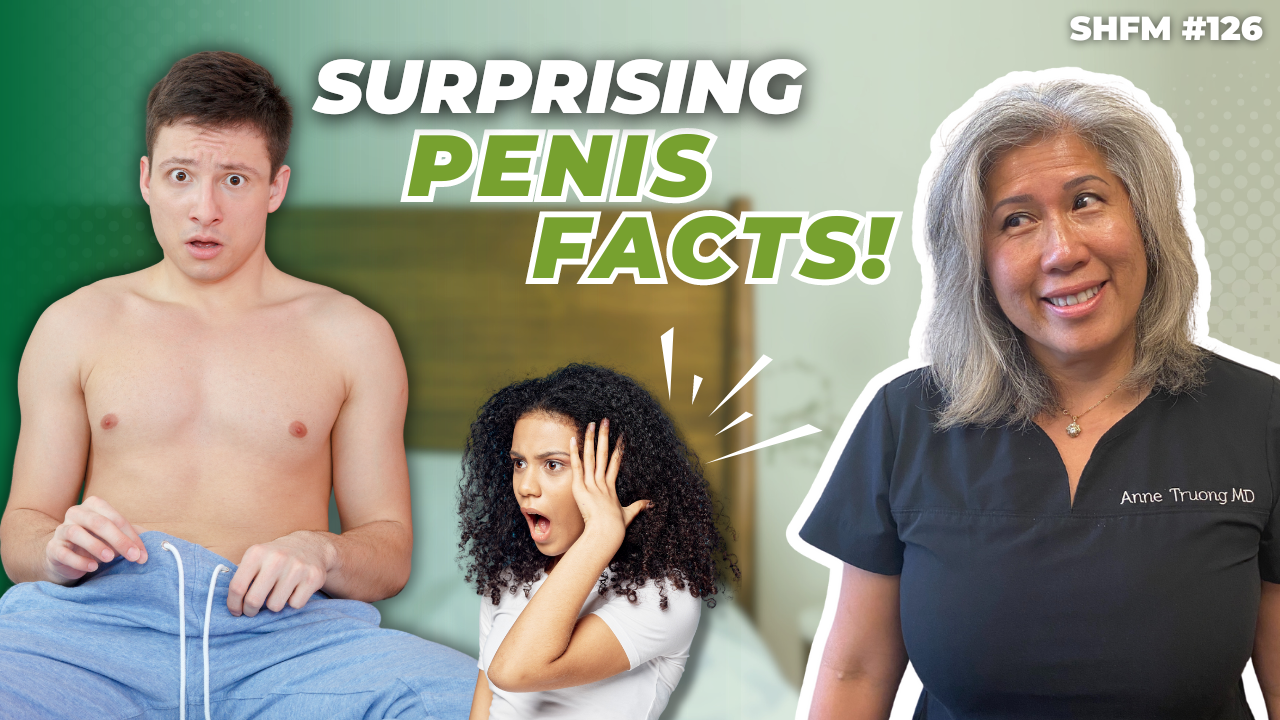
How Much Do You Really Know About Penis Anatomy?
When it comes to understanding the human body, certain aspects remain less discussed, often shrouded in mystery or misunderstanding. One such aspect is the anatomy of the penis, a topic that goes beyond mere surface-level knowledge. In this enlightening episode, we dive deep into the complexities of penis anatomy, shedding light on its internal structures and functionalities.
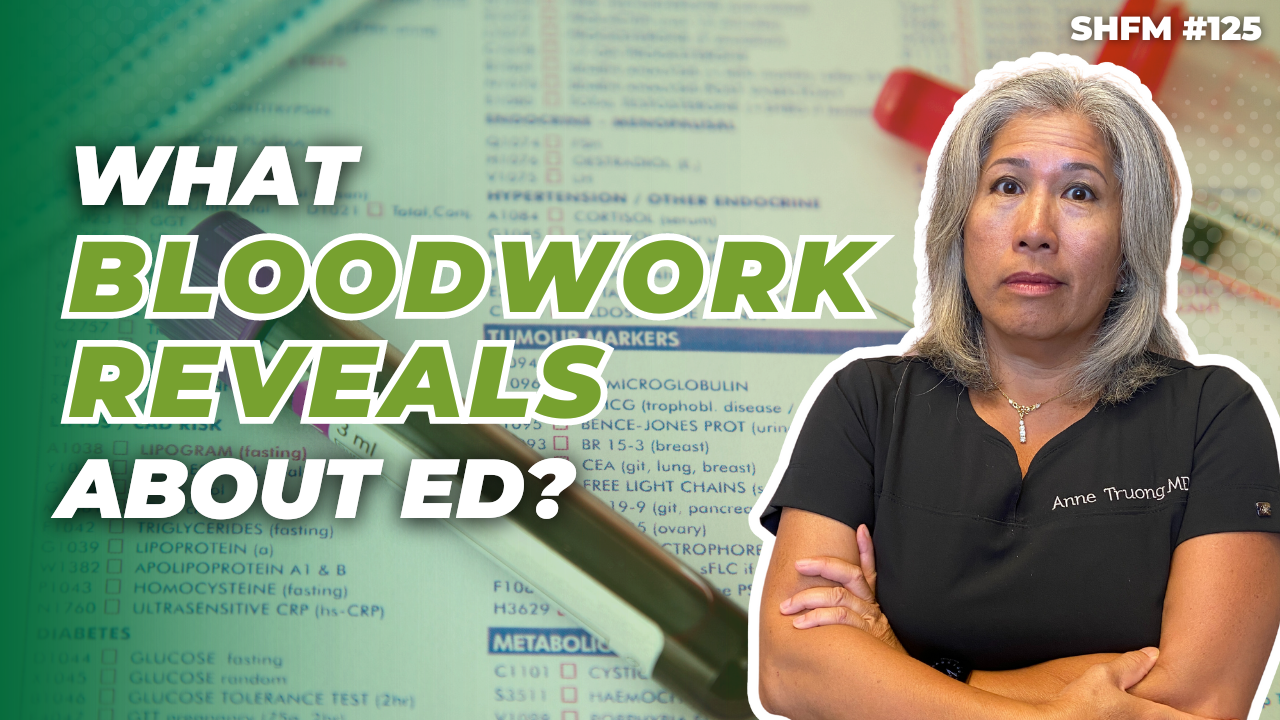
What Does Blood Work Tell Us About Erectile Dysfunction?
Erectile dysfunction (ED) is a complex issue with many underlying causes. In this podcast episode, we’ll delve deep into the significance of blood work in diagnosing and understanding ED. We’ll explore how a comprehensive blood analysis can shed light on this sensitive issue.
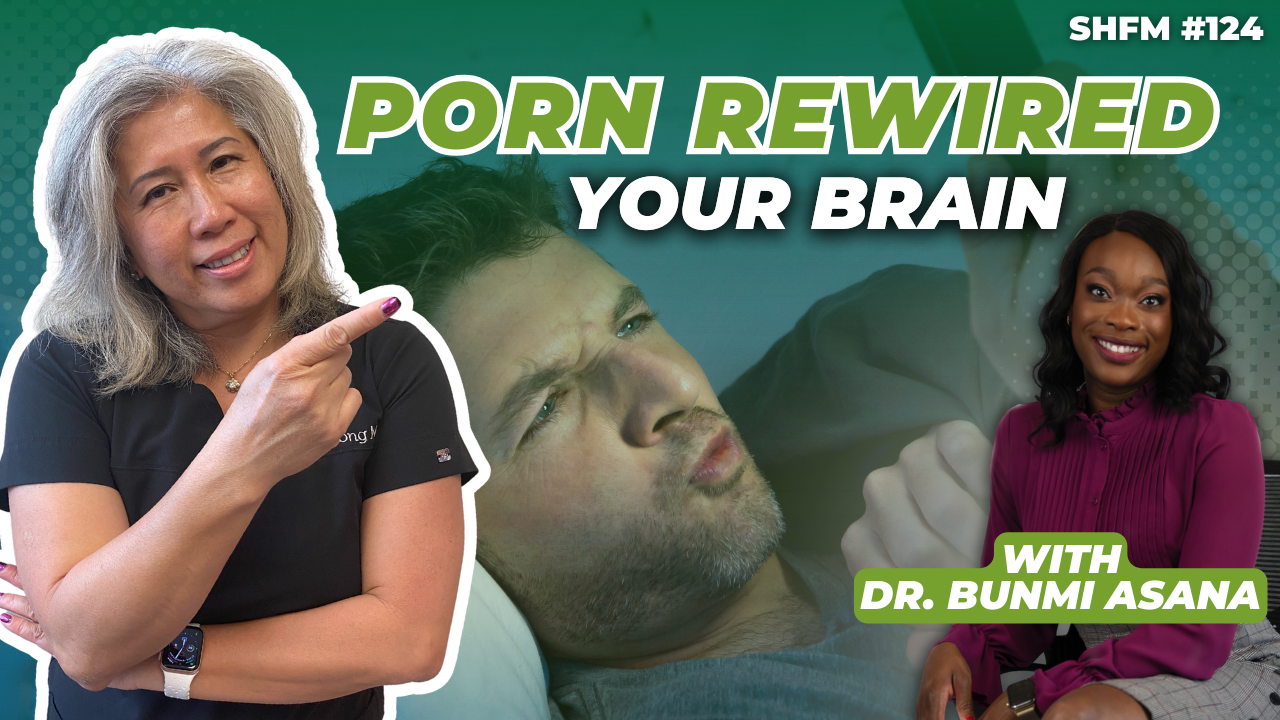
Porn Addiction: What It’s Really Doing to Your Brain
Get ready for an enlightening and thought-provoking exploration of a modern-day challenge that often lurks in the shadows: porn addiction. This podcast episode sheds light on the intricate workings of porn addiction and offers a rare glimpse into how it rewires the brain, disrupts emotional well-being, and impacts everyday life. Embark on a journey with me and Dr. Asana as we dissect the nature of addiction and understand its neurological foundation. We will also navigate the psychological turmoil it creates. This episode is not just an informational resource but a beacon of hope, providing practical strategies and compassionate guidance for reclaiming control and finding balance. Get ready to be engaged, informed, and inspired as we delve into the world of porn addiction and the transformative paths to overcoming it.
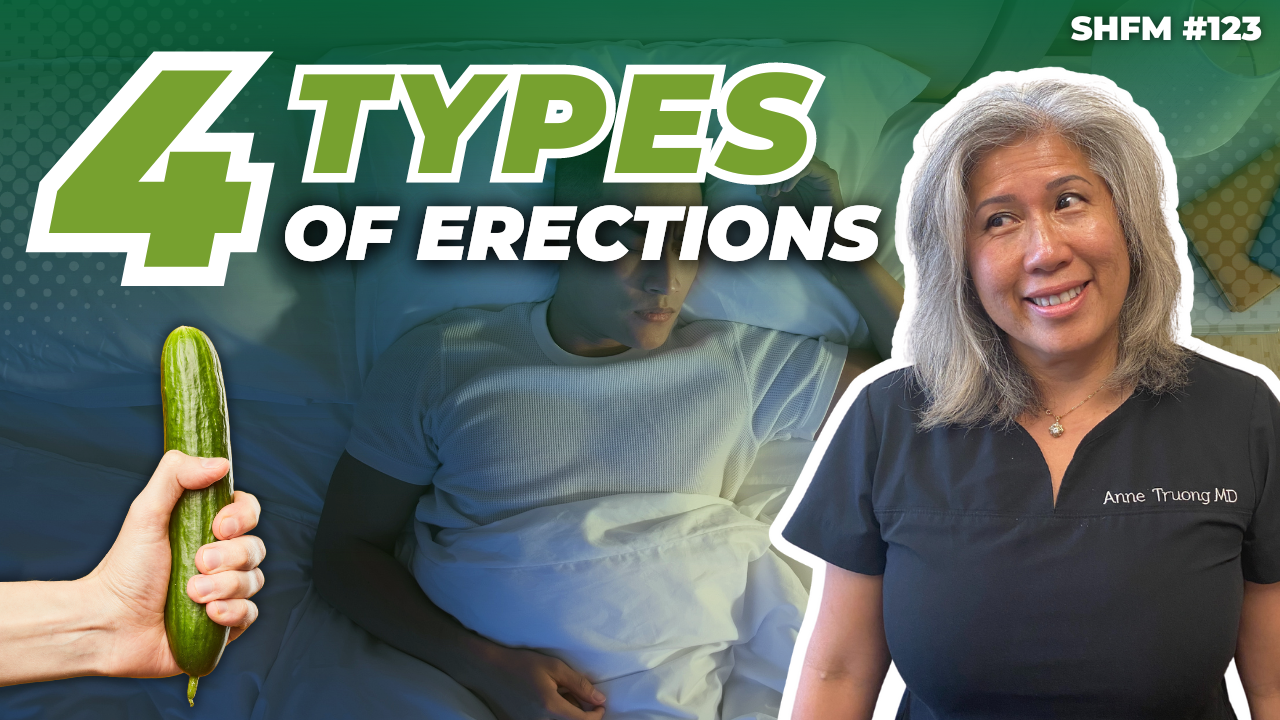
The Four Types of Erection Every Man Should Know
Ever wondered why ‘morning wood’ is a thing, or how your thoughts alone can lead to an erection? If you’re skipping this episode, you’re missing out on some fascinating secrets of your own body! Welcome to a deep dive into the world of erections, where I’ll unravel the mysteries behind this natural phenomenon. We’ll explore the four distinct types of erections. We’ll also delve into what influences their duration and reveal essential tips for maintaining your sexual health. Whether you’re curious about your own body or just seeking some intriguing facts, this episode is packed with eye-opening insights. So, tune in, stay engaged, and prepare to be amazed by the complexities and wonders of the human body!

12 Unexpected Benefits of Sex for Longer Life
Have you ever considered that the path to longevity might be found in the intimacy of your own bedroom? In this podcast episode, we’re diving deep into a topic that’s as fascinating as it is important: the connection between sex and longevity. Forget about mundane health routines; we’re here to explore how the pleasures of your private life can be a powerful key to your overall wellness. I will unveil 12 surprising ways that an active sex life can contribute to your longevity. Whether it’s a natural method to boost your immune system, a fun way to burn calories, or a secret weapon against major diseases, I’ve got compelling insights backed by scientific research. So, snuggle up, tune in, and get ready to be amazed. You’re about to discover how embracing your sexuality could be one of the best decisions you make for your long-term health!
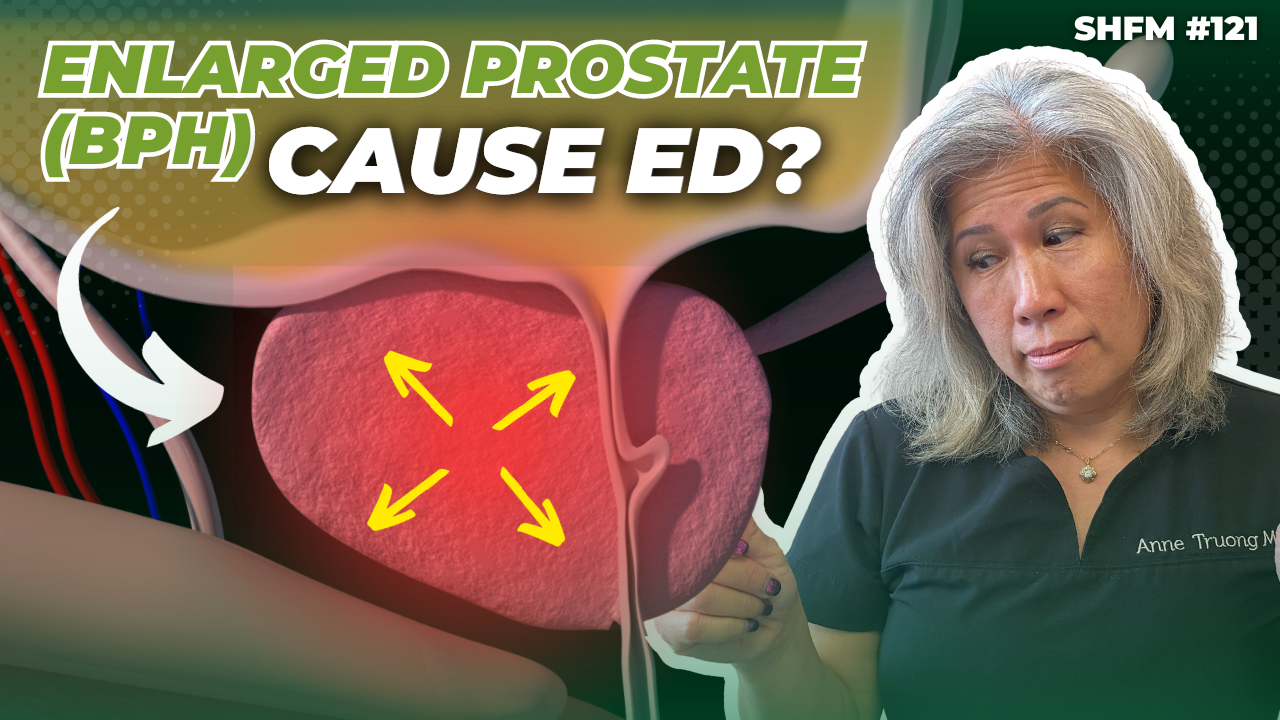
Does an Enlarged Prostate (BPH) Cause Erectile Dysfunction?
Have you ever wondered how an enlarged prostate could impact your sexual health? In this podcast episode, I’ll unravel the often misunderstood link between Benign Prostatic Hyperplasia (BPH) and Erectile Dysfunction (ED). We’ll dive deep into the symptoms of an enlarged prostate, and explore its prevalence and contributing factors. We’ll also examine the intricate ways in which BPH treatments can influence erectile function. Join me as I decode the complexities of men’s health. I’ll shed light on a topic that’s not only vital but also rarely discussed openly. Tune in now to understand more about your body and empower yourself with knowledge!

The Truth About Erectile Dysfunction After Prostate Surgery
Is it possible to regain sexual health after prostate surgery? This question lingers in the minds of many facing this life-altering procedure. In this podcast episode, I delve into the complex interplay between prostate surgery and erectile dysfunction (ED). We’ll also explore effective strategies for penile rehabilitation and innovative treatments that are offering new hope to men post-surgery. So, join me in this enlightening journey as I break down myths and discuss scientific findings. I will also guide you through the path to recovery and improved sexual health after prostate surgery.

Acupuncture Benefits for Erectile Dysfunction: What’s the Evidence?
Is there a needle of hope for men struggling with erectile dysfunction (ED)? ED affects not just physical health, but emotional and mental well-being too. But what if ancient practices could offer new hope? What if needles, not just pills, could hold the key to a better understanding and management of ED? Well, in this episode, we’re delving into a topic that’s both sensitive and incredibly important – the potential of acupuncture in treating ED. We’ll uncover the science behind acupuncture, its specific application for ED, and what the latest research says about this intriguing form of treatment. We have a lot to cover, from the efficacy and safety of acupuncture to the specific points used by acupuncturists. So, stay tuned as we prick the surface of this fascinating topic.
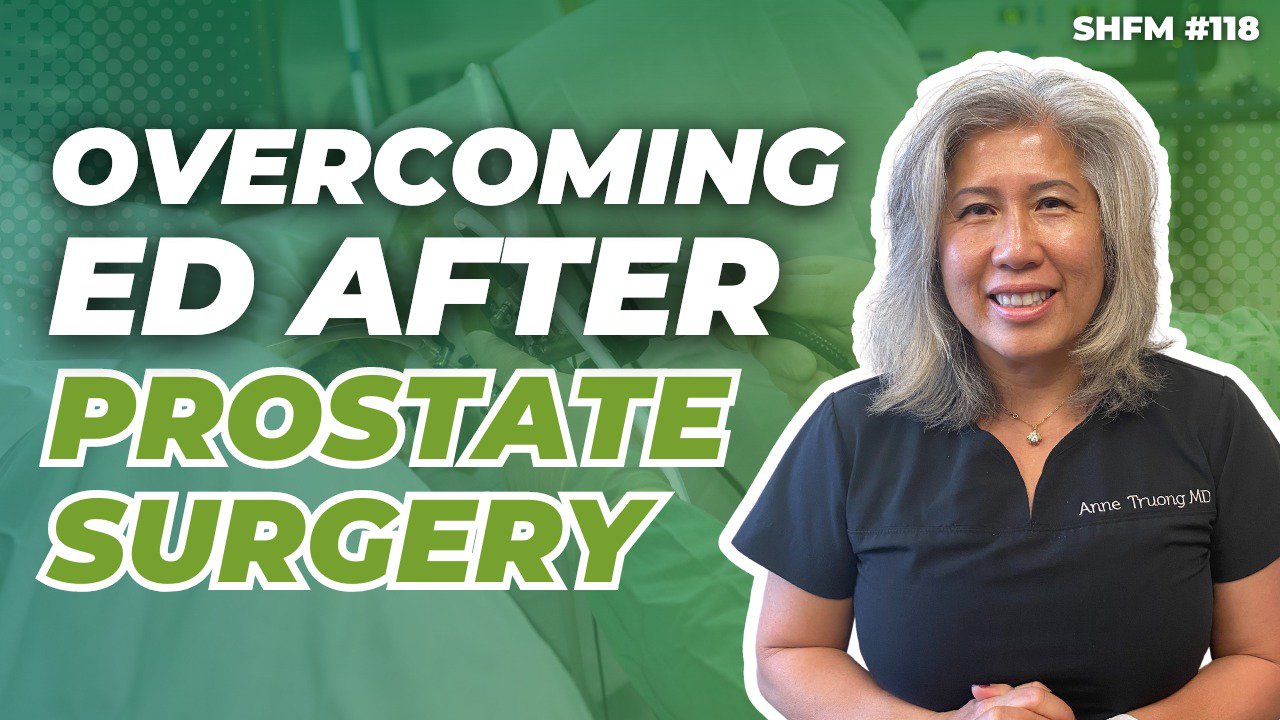
Recover Your Sexual Function After Prostate Surgery
Can you reclaim your intimacy after prostate surgery? Prostate surgery, while a lifesaver for many, often brings along an unwelcome companion – erectile dysfunction (ED). It’s a reality that many men face, but it’s not the end of the road. In this podcast episode, we’ll explore the natural and effective solutions to help you reclaim your sexual health and intimacy post-prostate surgery. So, let’s dive into these life-changing tips and start the journey toward recovery and renewed intimacy.
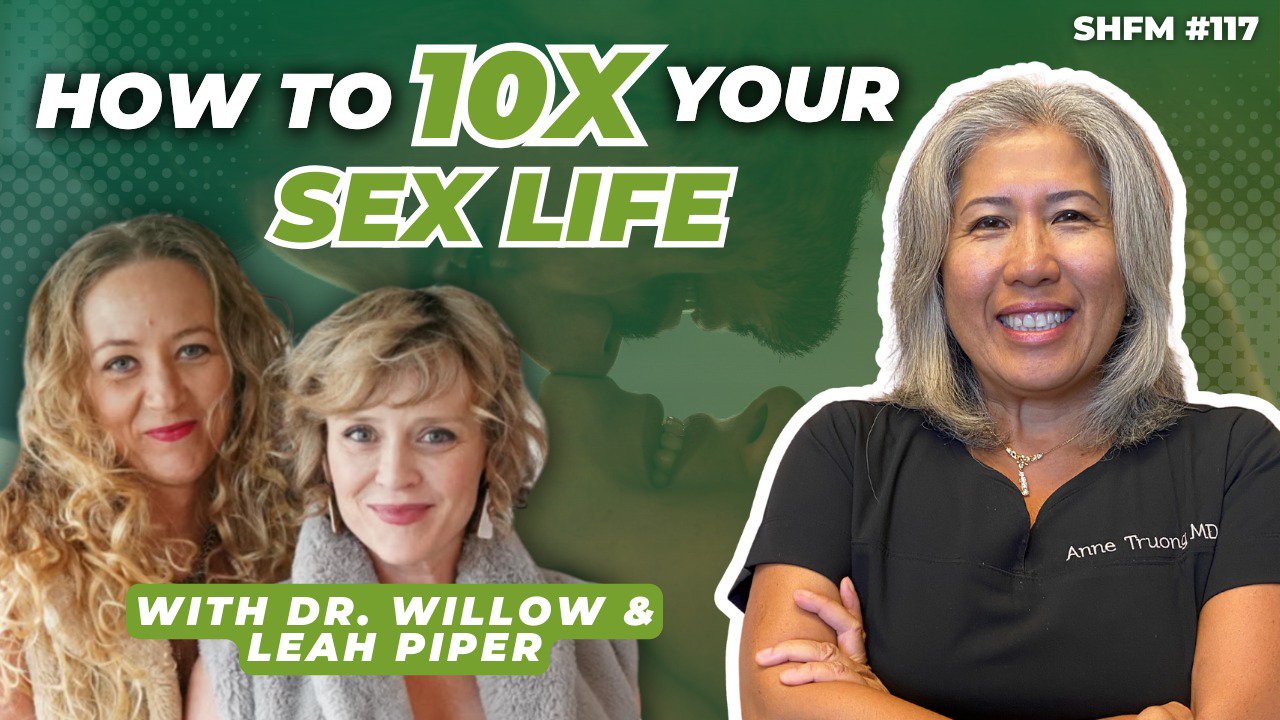
The Ultimate Intimacy Guide: 10x Your Sex Life Today!
Are you ready to transform your sex life into a journey of deep connection? Welcome to my latest podcast episode, where we dive into the mystical and profound world of sacred sexuality! In this episode, I’m thrilled to bring you the revolutionary insights of Dr. Willow and Leah, renowned experts with a rich 40-year background in sex and intimacy. Together, they guide us through the uncharted territories of love, intimacy, and sexual fulfillment. Get ready to explore the connections that redefine the essence of sexual encounters, turning them into a channel for emotional expression and deeper bonding. We’re taking you on a fascinating journey, from setting up transformative intimacy dates under the moonlight to mastering the art of navigating sexual energy amid the chaos of modern life. So, tune in, open your heart, and embark with us on this enlightening journey leading to a world of unimaginable pleasure and profound connection. This is not just a podcast episode; it’s a gateway to transforming your intimate life!
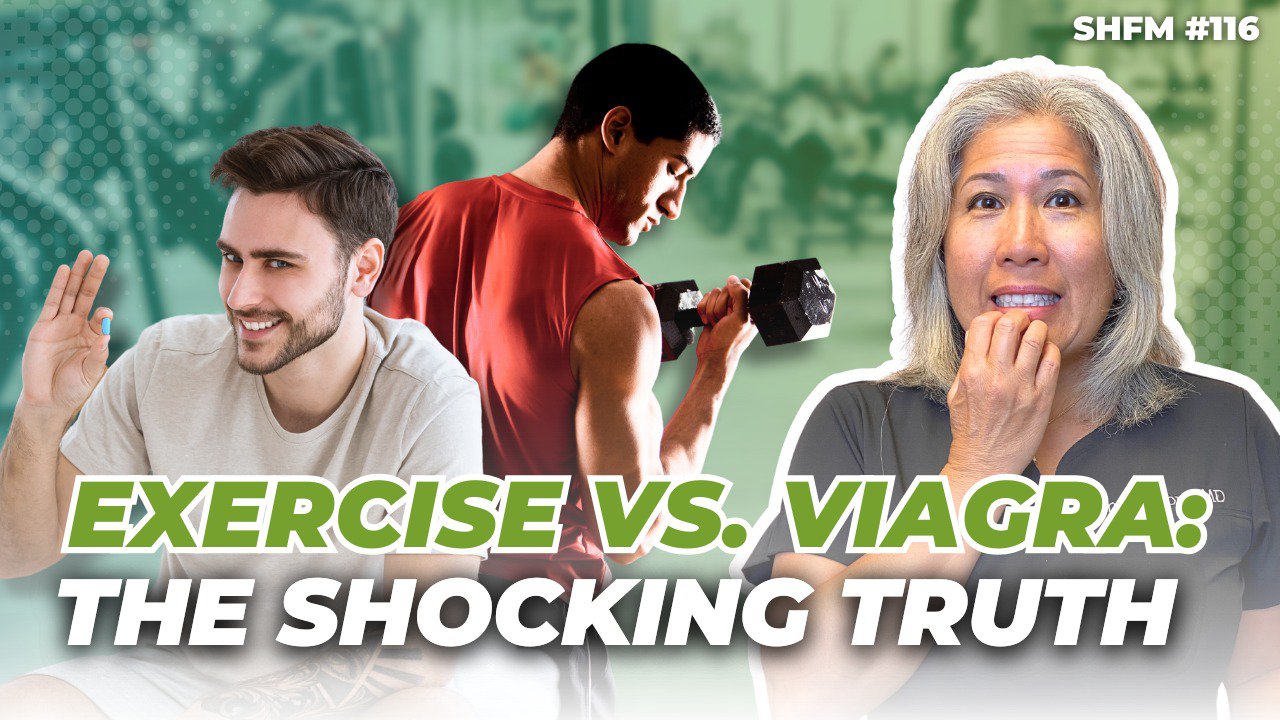
New Study Finds Exercise Can Cure ED, Even Severe Cases
Could your morning run be more potent than popping a pill for erectile dysfunction? In this episode, I’m lacing up to explore the transformative power of exercise. However, it’s not just for your muscles but for your sexual health as well. From the bedroom to the treadmill, I’m unpacking groundbreaking research that suggests a good sweat might just be the secret ingredient for a thriving intimate life. Stay tuned as we take strides towards understanding how your next workout could lift more than just your spirits. Ready to elevate your health game? Let’s jog into the details.
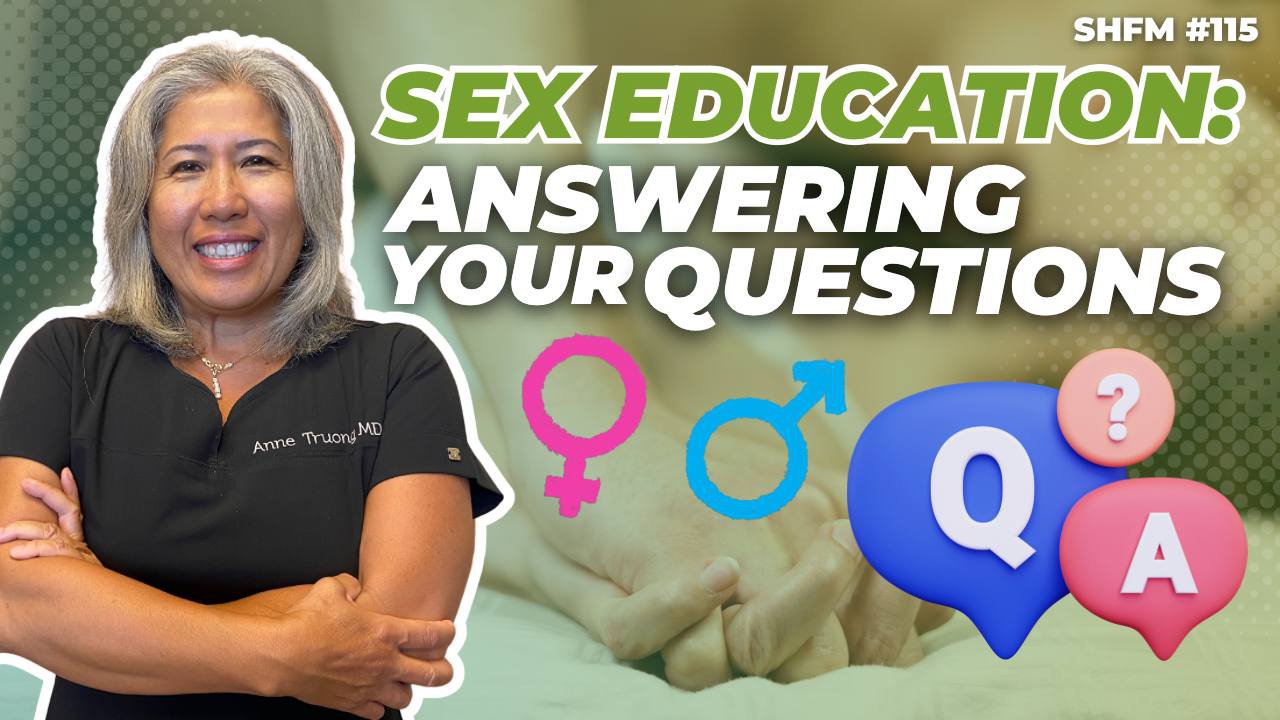
Sex Education: Answering Your Questions
When it comes to the bedroom, there’s often an elephant in the room – and it’s not lack of desire or even romance. It’s knowledge. In our journey through life, we’re taught how to communicate, work, and even eat healthily, but when it comes to sex education, many of us are left in the dark. Welcome to a candid exploration of sex education, where we venture beyond the basics and delve into what truly makes our intimate lives tick. From the mysterious anatomy of pleasure to the challenges that couples may face, we’re tackling it all. Prepare to have myths debunked and questions answered. It’s time to turn on the lights, clear the air, and have a real talk about what happens under the covers and inside our bodies.
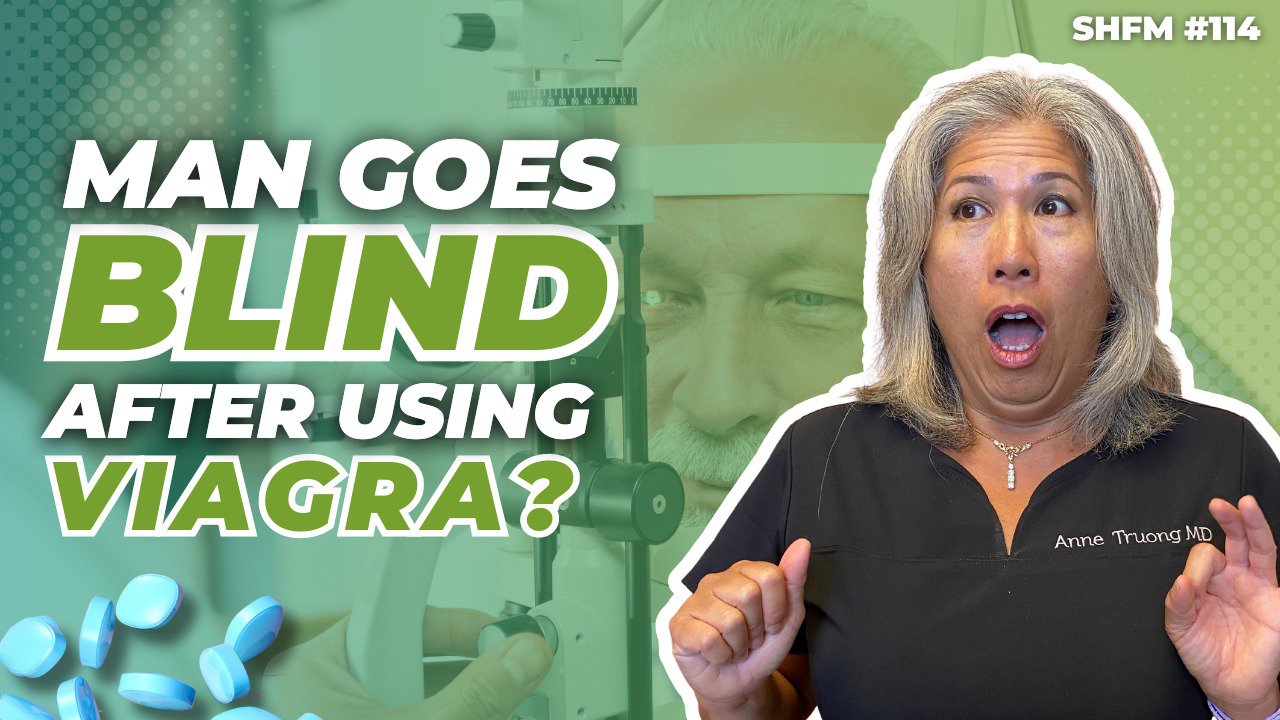
Viagra Linked to Blindness in Rare Case Study
Are you aware of the potential risks associated with common ED medications? Recent findings have thrown a spotlight on Viagra, igniting concerns over its safety. Dive into this episode as I unravel the startling link between Viagra and irreversible blindness. I will also discuss the significance of dosage, and the holistic approach to addressing ED. This is an eye-opening episode you won’t want to miss!

Is Vinegar Good for ED?
Ever thought a simple bottle of vinegar could boost your health, clean your home, and potentially spice up your sex life? Dive into this episode to discover the surprising versatility of this kitchen staple. From the kitchen counter to the bedroom, you won’t believe how this pantry staple can transform your daily routine. Tune in now!
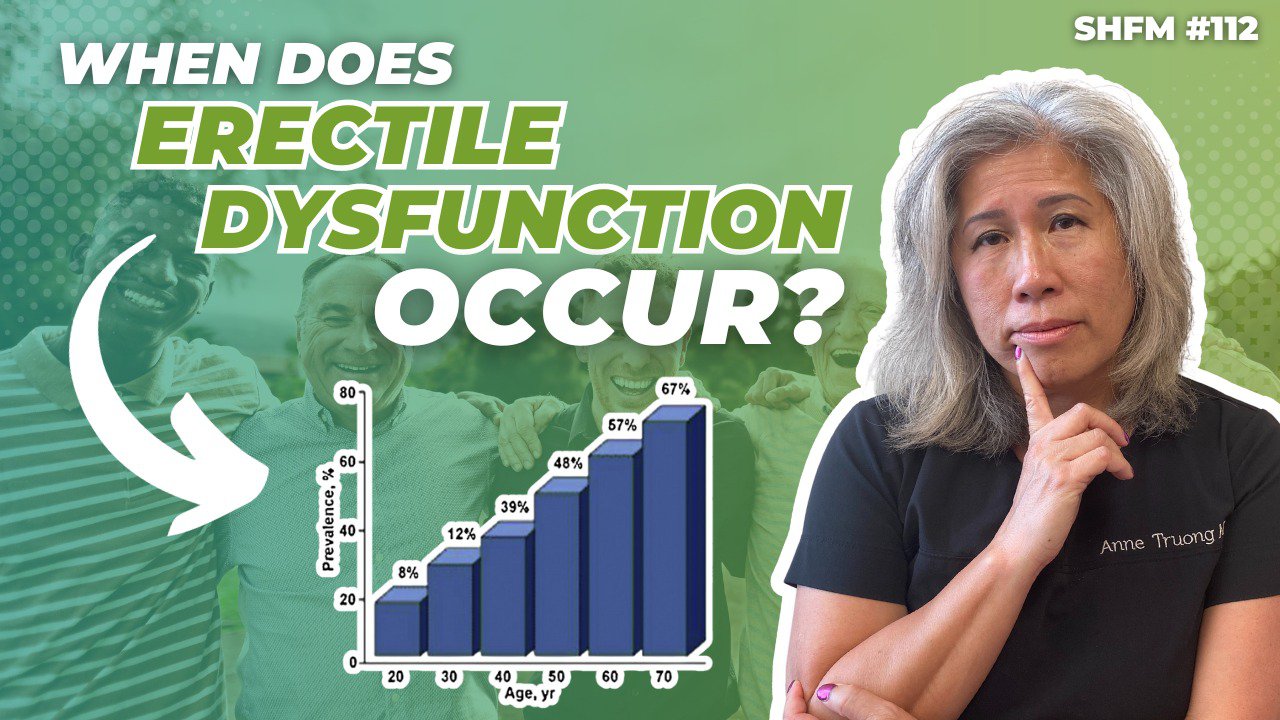
When Does ED Really Start?
Erectile dysfunction (ED) has been a hushed topic for many years. While many associate it with older age, recent studies reveal surprising facts that shed light on the prevalence of ED across various age groups and its underlying causes. Let’s delve into what the research says and how men can tackle this sensitive health issue.

What You Need To Know About Pelvic Floor Therapy
In today’s world, fitness and body awareness are at the forefront of our lives. However, one muscle group remains enigmatic – the pelvic floor. From enhancing our intimate experiences to supporting our core, understanding and optimizing the pelvic floor is crucial for both men and women. Dive into this episode as Dr. Maria Lohr shed light on the often overlooked importance of the pelvic floor muscles. Learn how mastering them can lead to not just better health, but a transformed life. Discover the secrets of the pelvic floor and its surprising connection to a man’s sexual health, and learn how you can take control. Whether you’re curious about the famous Kegel exercise or looking for natural ways to tackle ED, this episode is here to lead the way. Let’s embark on this empowering journey together!
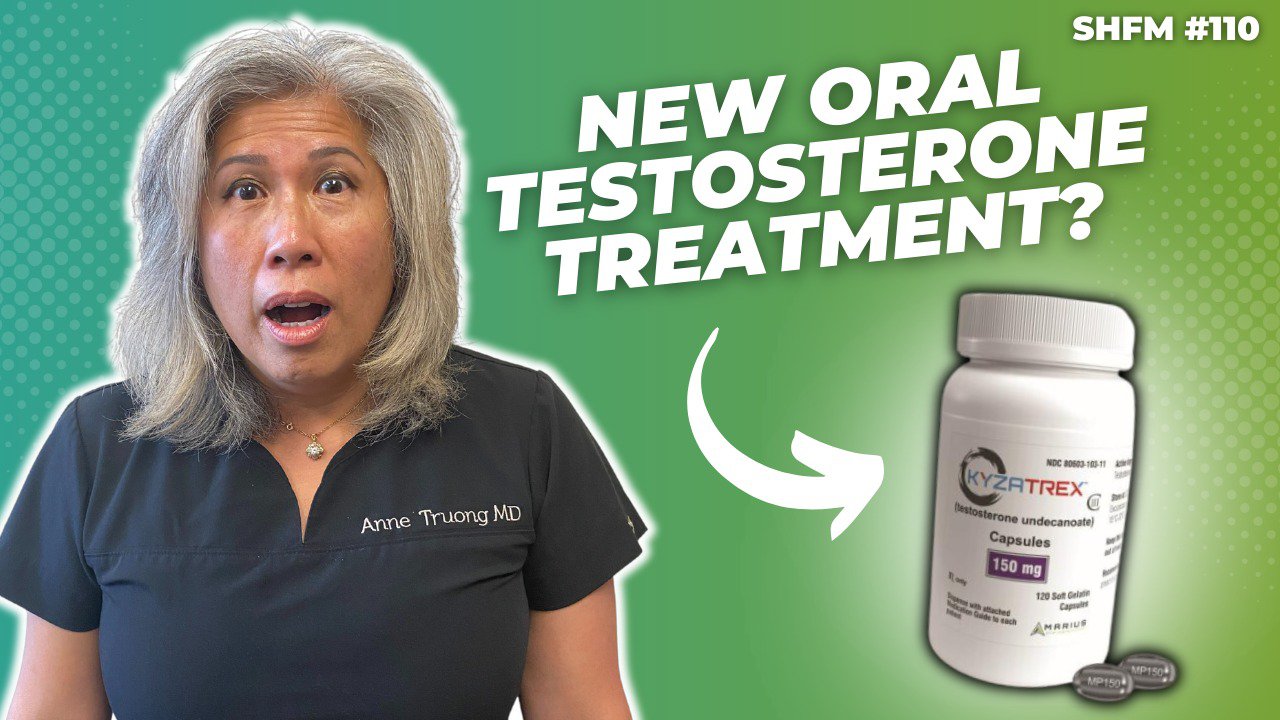
Kyzatrex Oral Testosterone – Bringing Back the Balance
Are you tired of the traditional means of testosterone replacement? Looking for a hassle-free, effective solution? Dive into the world of Kyzatrex with me. It is the groundbreaking oral testosterone treatment that’s set to redefine men’s health and vitality. Say goodbye to injections and unpredictable gels, and step into the new age of testosterone treatment. Join me as I delve deep into this game-changing treatment, its benefits, and how it might stand out in the testosterone landscape.

How Does Sleep Affect Your Sexual Life?
Ever wondered if the secret to a fulfilling sex life might lie in the quality of your sleep? Dive into the intriguing crossroads of sleep patterns and their undeniable impact on your sex life. Discover how catching those Z’s can elevate more than just your mood. Let’s uncover the deep relationship between the sheets of our beds and the secrets they hold.

Sex Education for Grown-Ups
Attending a cocktail party is usually all about light chit-chat. But what if you dive deep into the intricate details of human anatomy, pleasure, and sex education? Last weekend, I decided to do just that. The discoveries? More surprising than you’d think!

12 Surprising Ways to Spice Up Your Sex Life!
Ever felt the romance fading? Craving to revive that electric connection? Dive in with me as I unwrap the 12 surprising ways to to spice up your sex life. This will make every moment in the bedroom as enchanting as the first! Get ready to reignite the flames and experience love like never before!
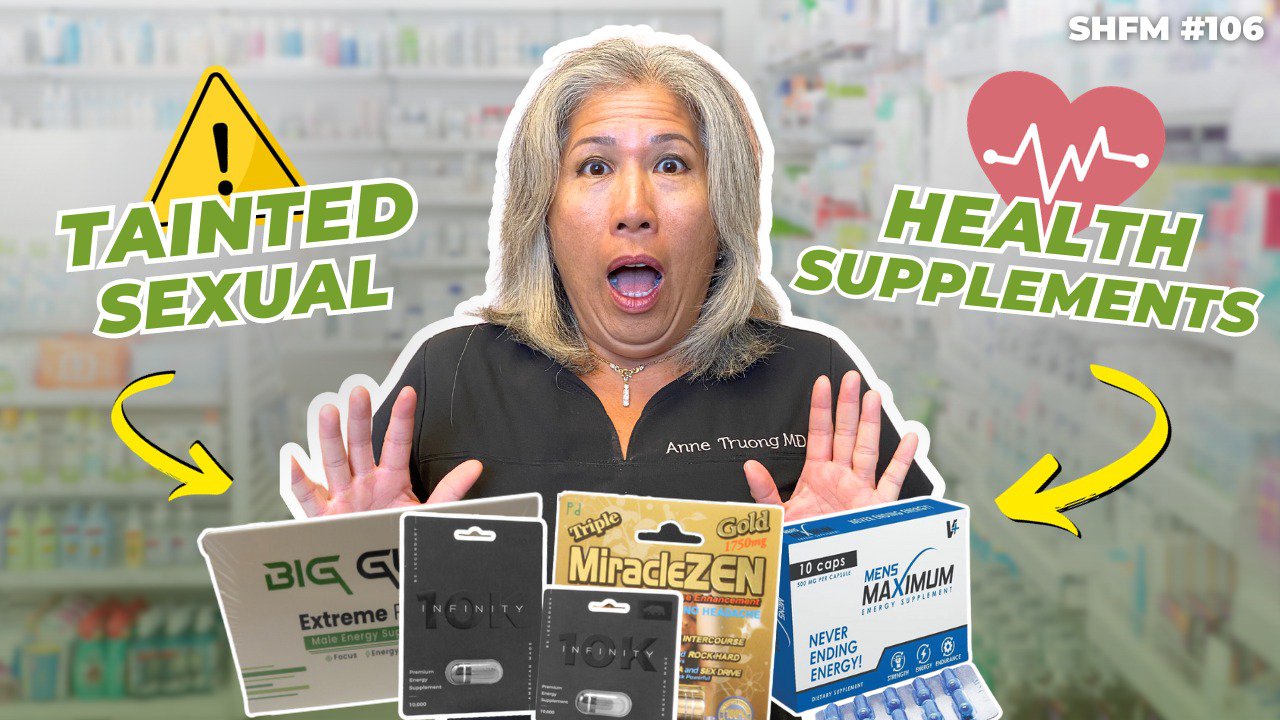
Hidden Dangers of Online Sexual Supplements
When it comes to supplements, particularly those promising to enhance your sexual performance, the allure of convenience often leads people to buy these products online. However, what many don’t realize is that some of these seemingly harmless supplements can be tainted with prescription drugs. This can pose a significant health risks. In this podcast episode, I’ll shed light on this issue. I will discuss the dangers of tainted supplements. I’ll also delve on the risks associated with prescription medications like Viagra and testosterone. In addition, I’ll give some tips on how you can safeguard your health while making informed choices.

How to Get Morning Wood Like You’re 18 Again
Every man wants to feel energized, focused, and ready to tackle the day when he wakes up. But did you know that the key to achieving the famed “morning wood” might just be in the foods you consume? In this episode, we are diving deep into a topic that is seldom discussed openly but is vital to men’s health and overall well-being—morning wood. I will discuss an all-natural recipe that might just make your mornings more… invigorating. Plus, a secret surprise awaits you at the end, so stick around!

Football Season is Ruining Your Sex Life
The excitement of football season is finally tackling us. It’s time to huddle up and discuss something even more gripping than the last quarter’s game-winning play—your game-day munchies! Dive into this podcast episode to discover the connection between those irresistible football snacks and your health. Ready to strategize for a winning food game plan? Let’s kick off!

Intermittent Fasting and Sexual Health
Have you ever pondered the idea that when you eat could be as crucial as what you eat? In this episode, we’re unveiling the secrets of intermittent fasting. From cellular repair to battling chronic inflammation, let’s dive into the transformative journey of fasting. I will unpack the science, benefits, and magic behind those fasting hours. Discover how this age-old practice could be your golden ticket to a healthier, more vibrant life.
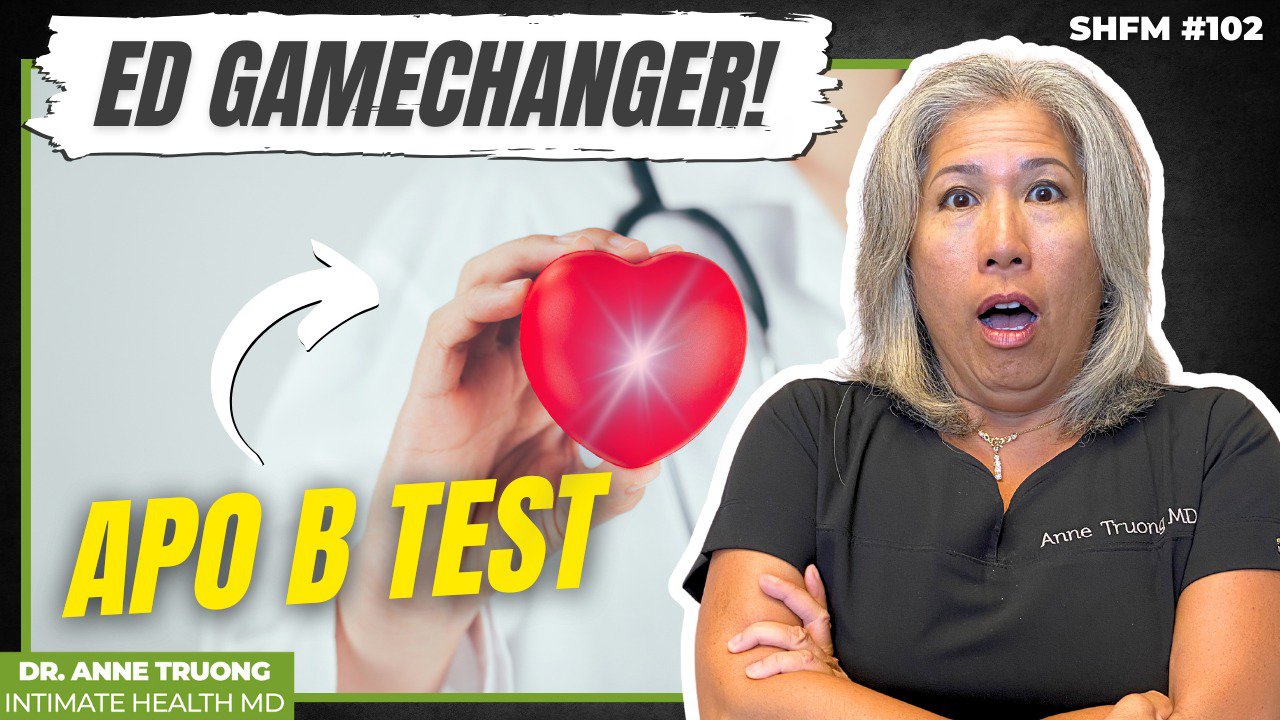
Apo B Test and Why You MUST Get It NOW!
Ever wondered why cholesterol tests alone may not tell the whole story about your heart health? Or how something like ED could be connected to your cardiovascular risk? Enter Apo B, a protein in your blood that you probably haven’t heard of but absolutely should know about. In this episode, we’re diving deep into this vital biomarker that can be a game-changer for your health. Stay tuned to find out why Apo B is the unsung hero in predicting cardiovascular diseases. Learn how understanding it can revolutionize your approach to ED and overall wellness.
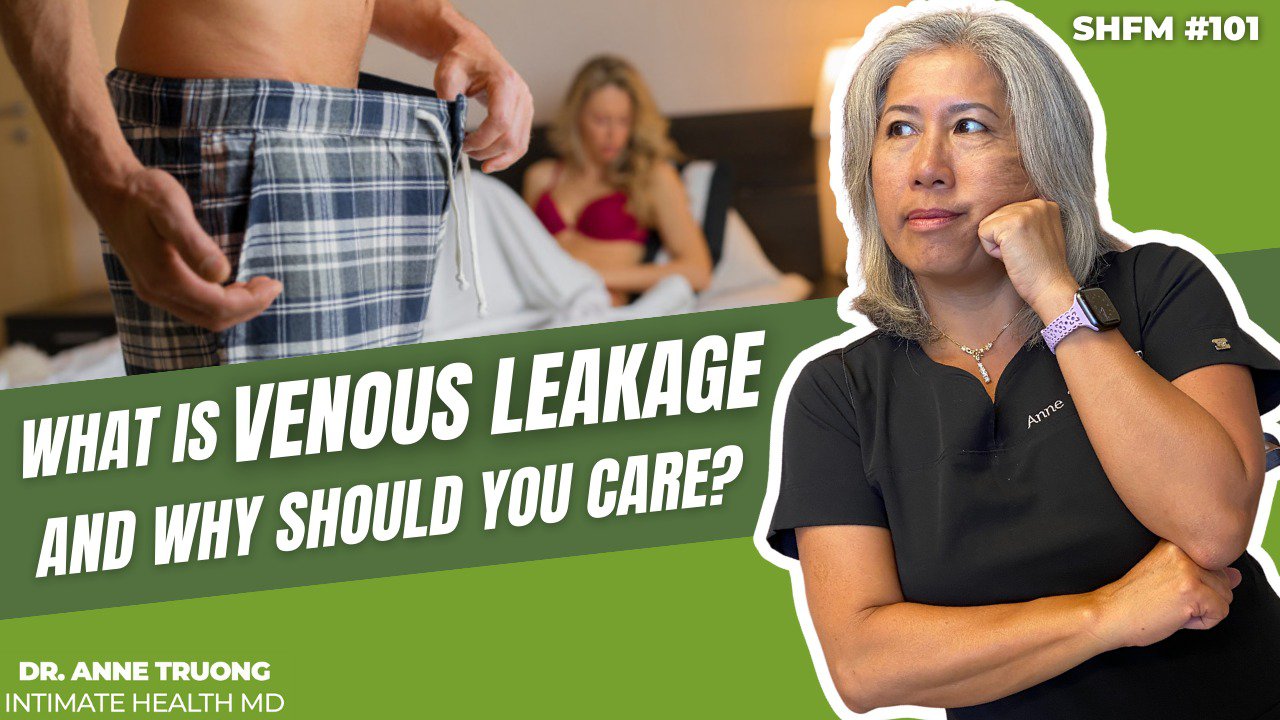
What is Venous Leakage and Why Should You CARE?
Venous leakage is an often misunderstood yet significant factor in erectile dysfunction (ED). When talking about this condition, it’s essential to have a clear image of its role in the erection process. In this episode, we’ll take a deep dive into venous leakage and its impact on ED. We’ll also explore the different potential treatment solutions.

5 Natural Solutions to Overcome ED
Welcome to my 100th podcast episode! On this special occasion, I’m diving into a topic that’s close to many: overcoming erectile dysfunction (ED) naturally. By the end of this episode, you’ll have five cost-free, practical steps to enhance your sexual health. Plus, you can do this without the reliance on medications!
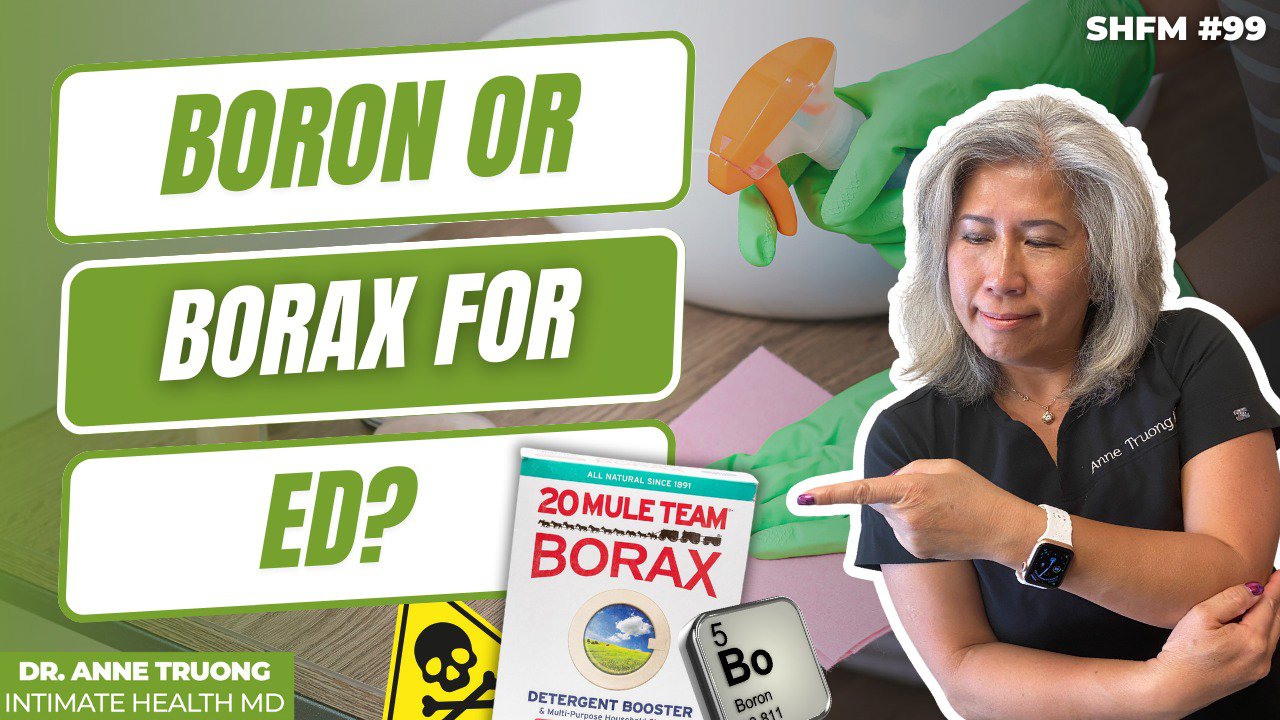
Boron or Borax for ED?
In today’s age of instant information, it’s easier to get caught up in the latest health and wellness trends. But not all that glitters is gold — or in this case, not everything touts as a miracle substance is safe. Dive into this episode as I debunk the buzz around Borax. I will also debunk misconceptions and emphasize the crucial differences between Borax and Boron. Your health deserves the truth. Let’s uncover it together.
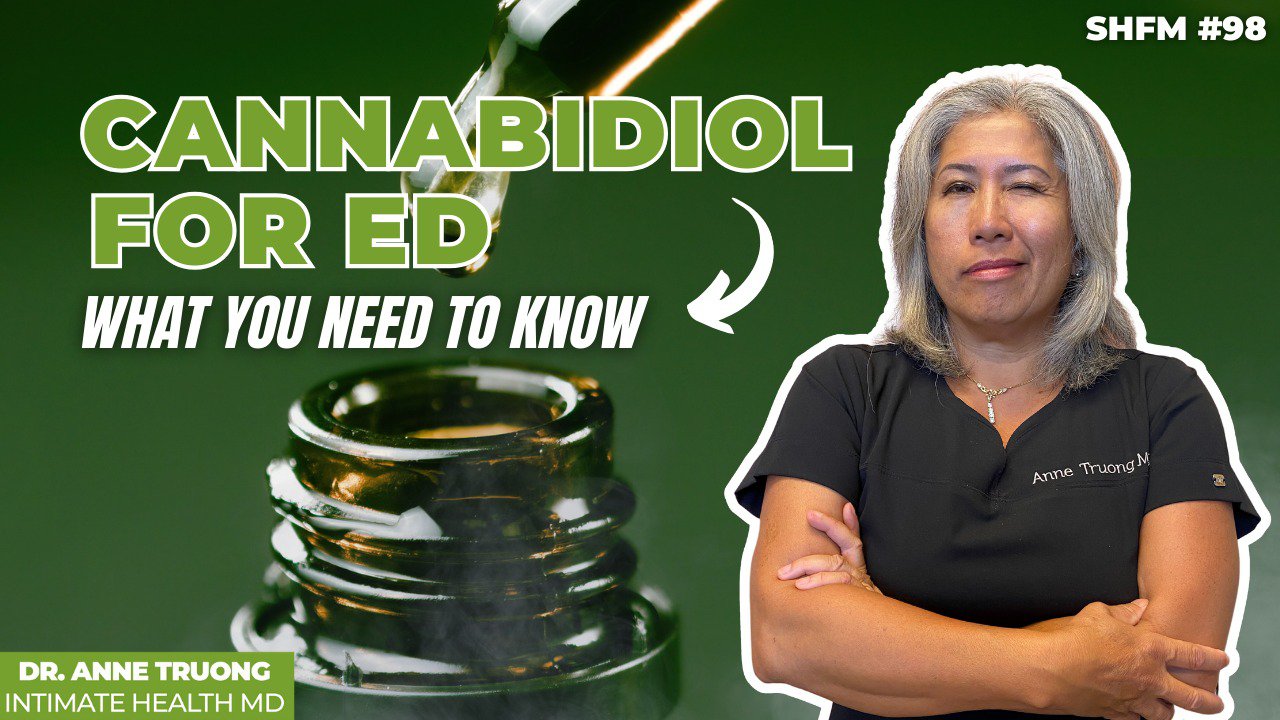
Understanding the Role of CBD in ED
CBD has become a hot topic in recent years and lauded for its myriad of health benefits. Among the questions circulating the discourse, one has been drawing attention: Can CBD play a role in addressing erectile dysfunction (ED)? In this episode, we’re diving deep into the world of CBD. We will explore its healing prowess and the unexpected ties with ED. We will also tackle the researches and essential guidelines.
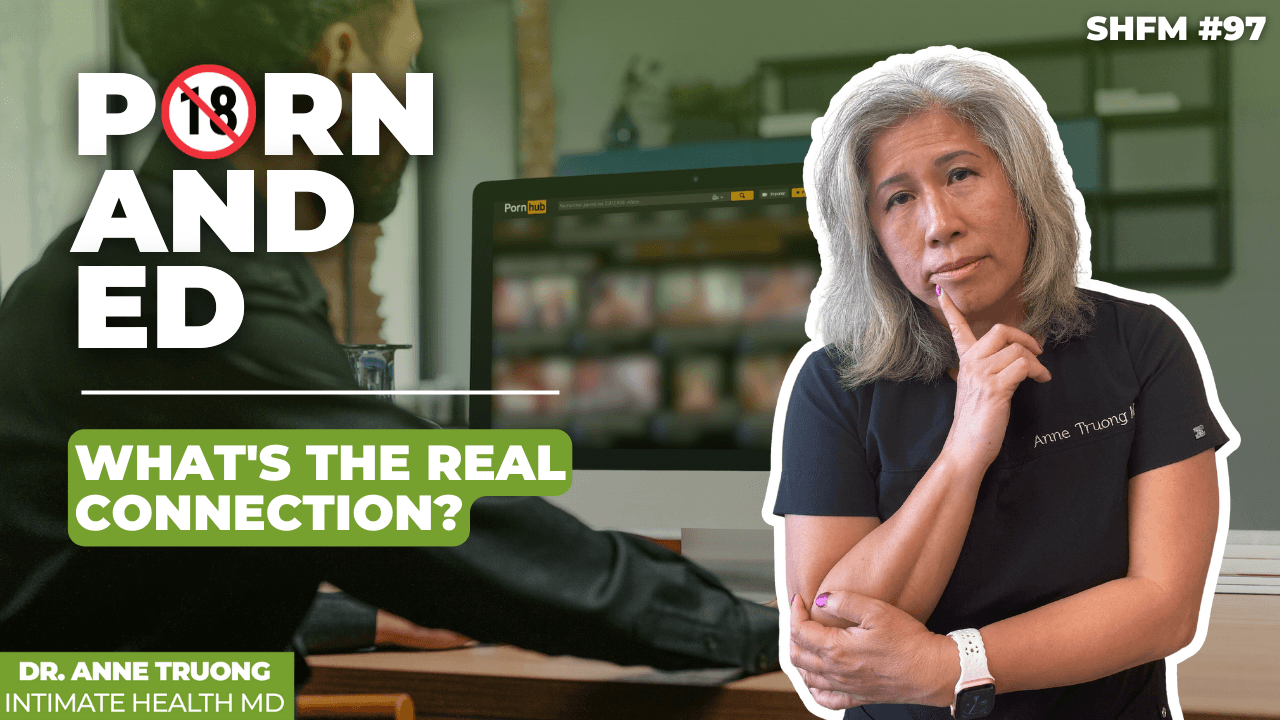
Porn and ED: What’s the Real Connection?
For many years, there has been an ongoing debate and research into the relationship between Internet porn and Erectile Dysfunction (ED). Porn-Induced Erectile Dysfunction (PIED) suggests that frequent consumption of pornography may lead to difficulties in achieving and maintaining an erection during real-life sexual encounters. But how true is this? Let’s delve into the available studies to unpack this complex issue.

What Do You Need To Know About Morning Wood?
Have you ever woken up and wondered, “Why the morning wood?”. Don’t brush it off as just another awkward start to your day. This fascinating natural occurrence is more than meets the eye. It’s a crucial barometer of your health and wellbeing! Stick around, as we will be decoding the science behind morning wood. We will explore its relevance to your lifestyle and give practical tips to make the most of this intriguing bodily function. Get ready to turn those morning blushes into nods of understanding!

Why My Dog Is On Viagra But Not My Patients
We all know reputation of Viagra as the go-to solution for men’s intimate struggles. But have you ever heard of its unexpected role in the life of a furry friend? In this episode, we’ll dive into the story of my dog, Bodie, who defied the odds with a little help from an unconventional source. But that’s just the beginning – we’ll also explore the complex world of ED. I’ll discuss why relying solely on the blue pill might not be the answer for men seeking a lasting solution.
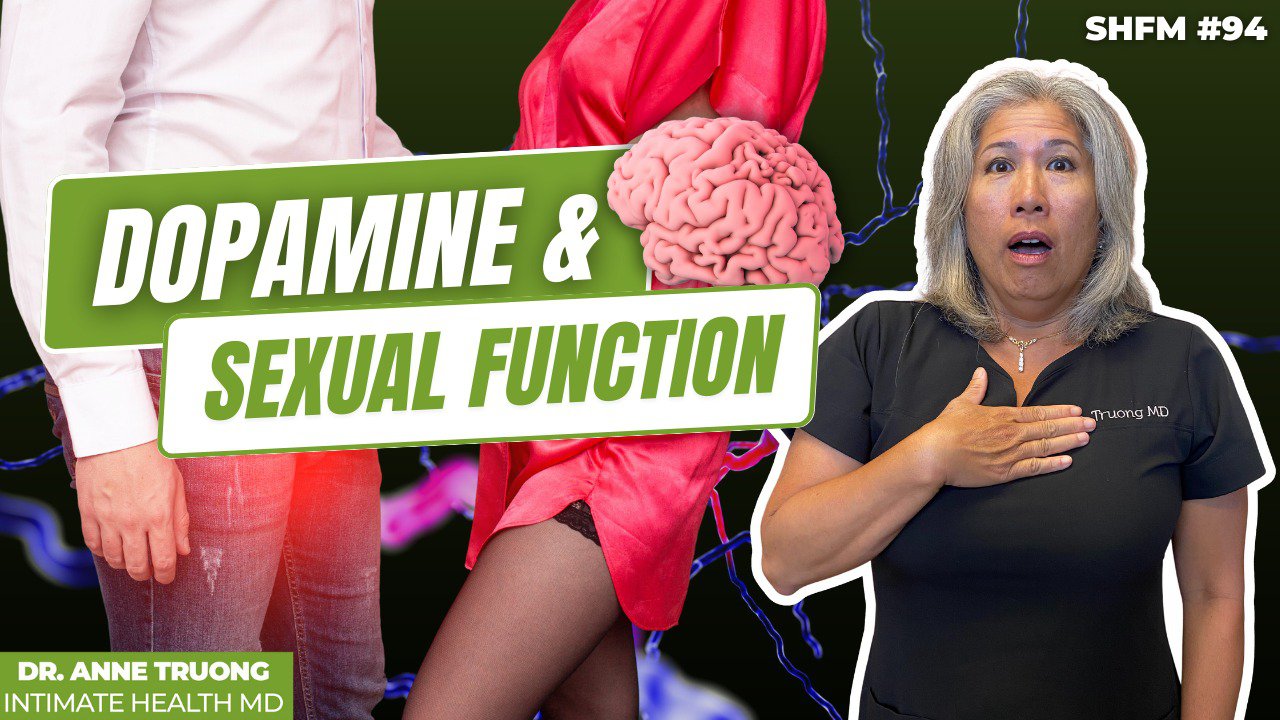
Dopamine and Sexual Function
Ever wondered why that favorite song of yours makes you feel on top of the world? Or why a bite of chocolate can set your mood just right? It’s all thanks to dopamine, your brain’s pleasure molecule. But there’s more to it than just feel-good moments. Dive into my exploration of dopamine’s surprising connection to men’s sexual health. Also, discover how this tiny neurotransmitter holds the key to not only your pleasures but also your deeper desires. Let’s unravel the secrets of dopamine!

How to Choose the Right Clinic for Erectile Dysfunction?
Erectile dysfunction affects countless men globally. When seeking a solution, the journey often starts with finding the right medical clinic. But how do you discern the best from the rest? In this podcast episode, I’ll discuss the 10 crucial factors to consider when selecting a sexual health clinic for ED treatment.

Is Erectile Dysfunction Curable?
Is it possible to cure Erectile Dysfunction? The simple answer is: Absolutely! In our increasingly medicated world, many might rush to a prescription pill bottle for answers. However, the Get Hard System to Sexual Restoration offers a holistic solution. A solution that not only gives men hope but practical tools to reclaim their sexual independence. Let’s dive into understanding this comprehensive system and how it empowers you to conquer ED.

Top 5 Erectile Dysfunction Myths Debunked
Erectile dysfunction is a topic that many shy away from, but it’s one that needs our attention. In this enlightening episode, I’ll debunk five of the most common erectile dysfunction myths and uncover the truth. Whether you’re directly affected by ED, know someone who is, or simply want to be informed, join me as I peel back the layers on this often misunderstood subject.
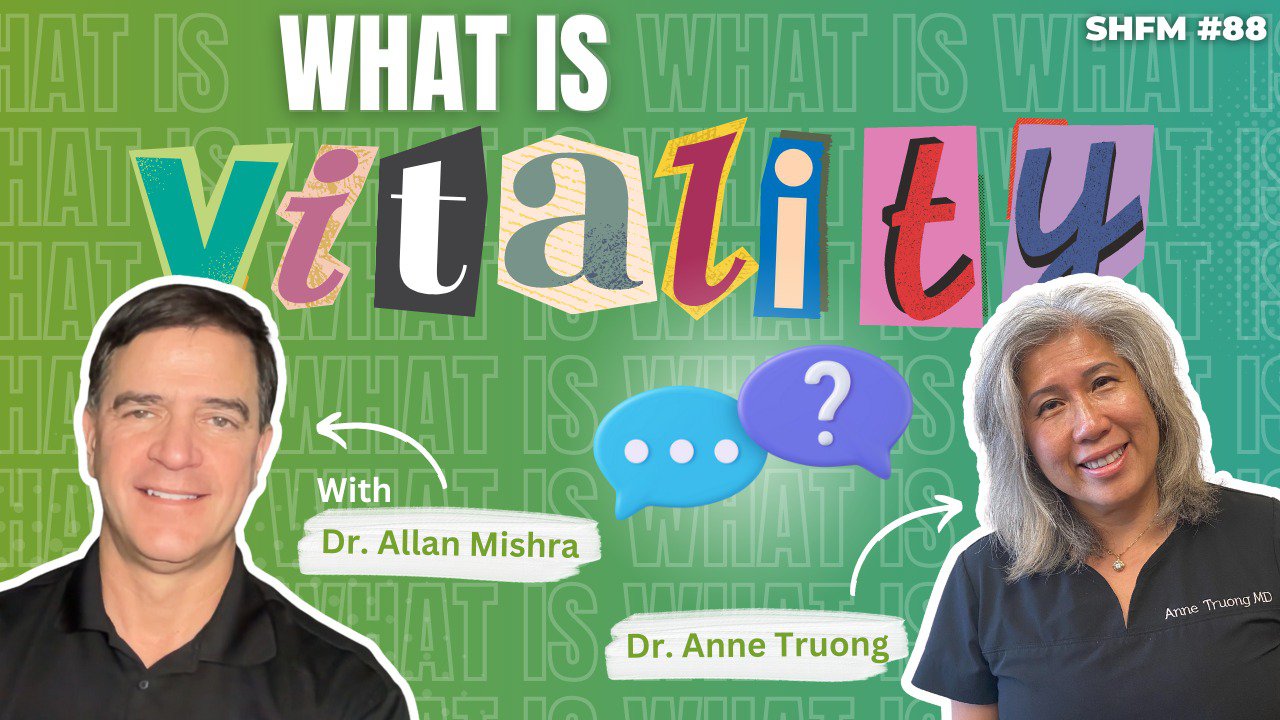
What is Vitality? How to Boost Your Vitality? with Dr. Allan Mishra
In the midst of our bustling lives, the term ‘vitality’ seems to echo around us. While many perceive it as mere energy, it’s much more profound. Vitality, in its purest form, can be a game-changer in how we lead our lives. Let’s embark on this journey together with Dr. Allan Mishra, a board-certified orthopedic surgeon and the visionary founder of VitalityExplorers.com. We will comprehend the depths of vitality and explore ways to harness this wonderful gift.

Why Sugar is Bad For Your Sexual Performance?
We all love a sweet treat now and then? May it be a refreshing soda or your favorite dessert. Sugar seems to be everywhere. But have you ever stopped to think about what all that sugar might be doing to your body? It’s more than just a bit of extra weight. In fact, too much sugar can have surprising effects on your overall health. And, take note, even your relationships. In this episode, I will dive deep into the not-so-sweet side of sugar. I will also discuss how you can make better choices for a happier, healthier you.
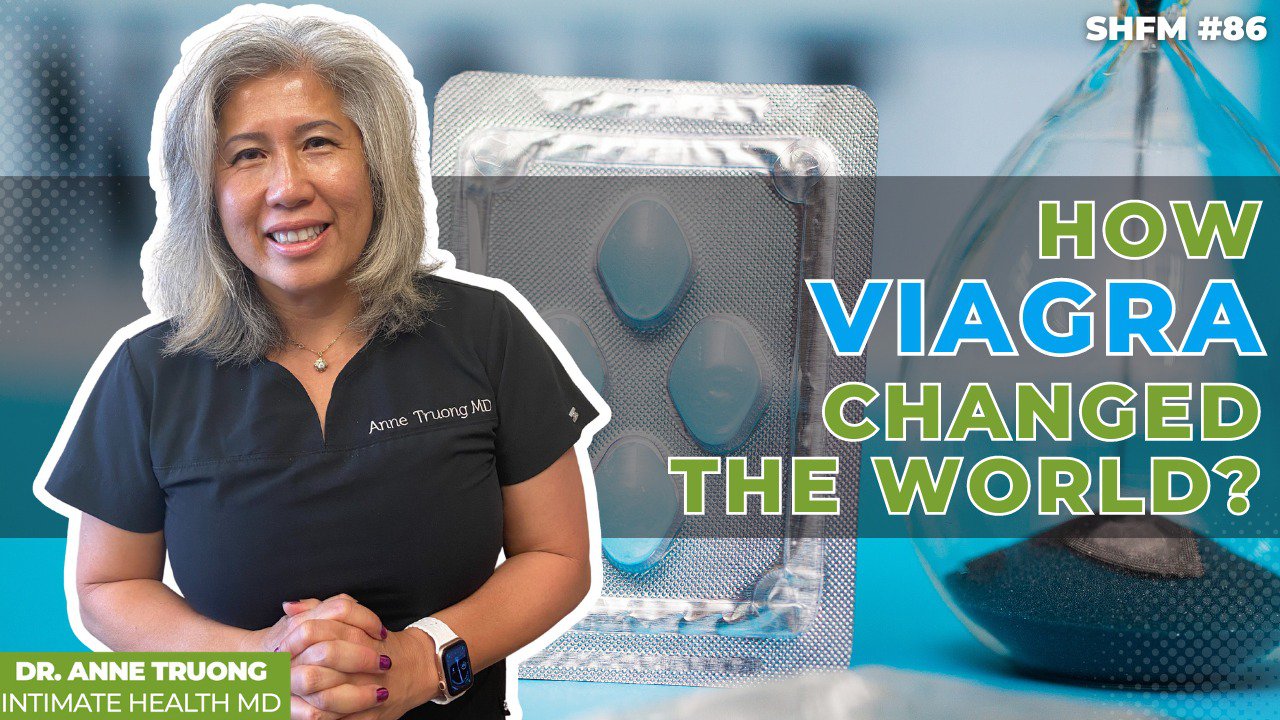
The Viagra Revolution: How a Drug for ED Changed the World
It’s hard to imagine a world where a small blue pill could make such a significant impact. But that’s exactly what Viagra did. Known for treating erectile dysfunction (ED), the story of Viagra reaches much further. In this episode, I’ll explore Viagra’s journey from a surprise discovery to a societal game-changer. I will be offering a deeper look at its role in transforming conversations about sexual wellness.
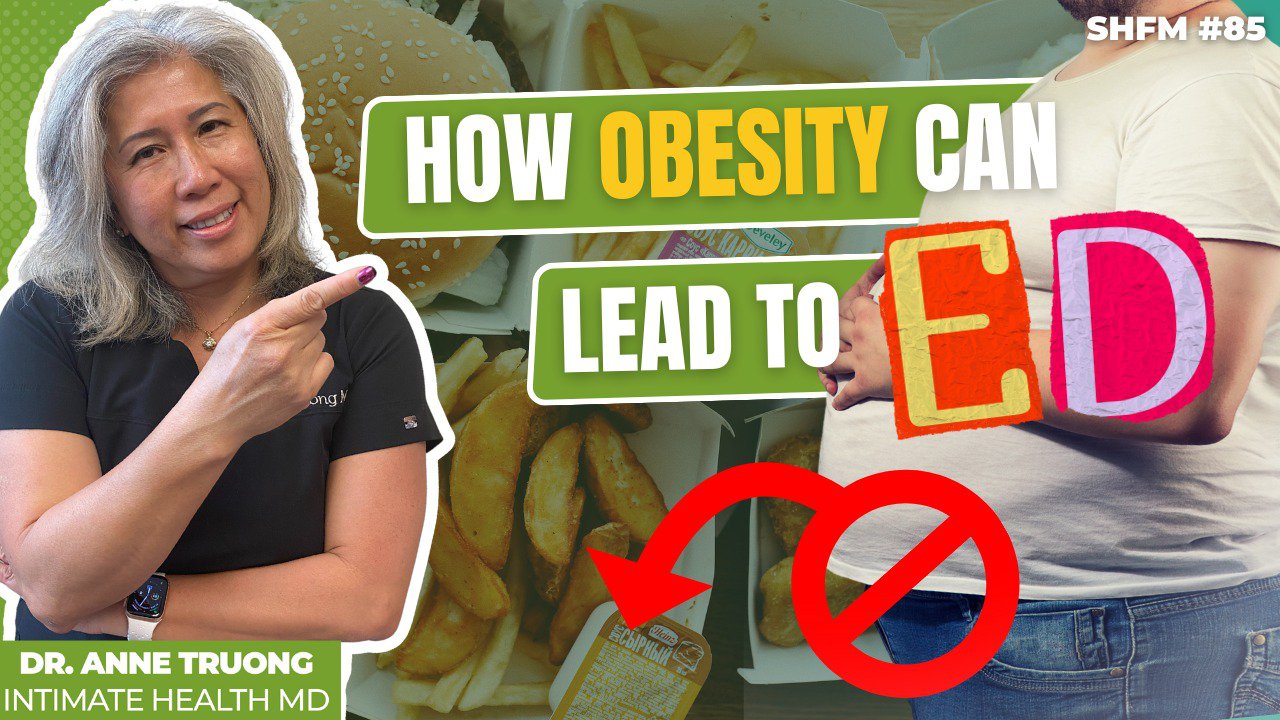
How Obesity Affect ED
Obesity is defined as a Body Mass Index (BMI) of 30 or higher. It is a significant risk factor for numerous health conditions, including Erectile Dysfunction (ED). ED affects men’s confidence and quality of life. Unfortunately, obesity intensifies this risk. But how does this happen?
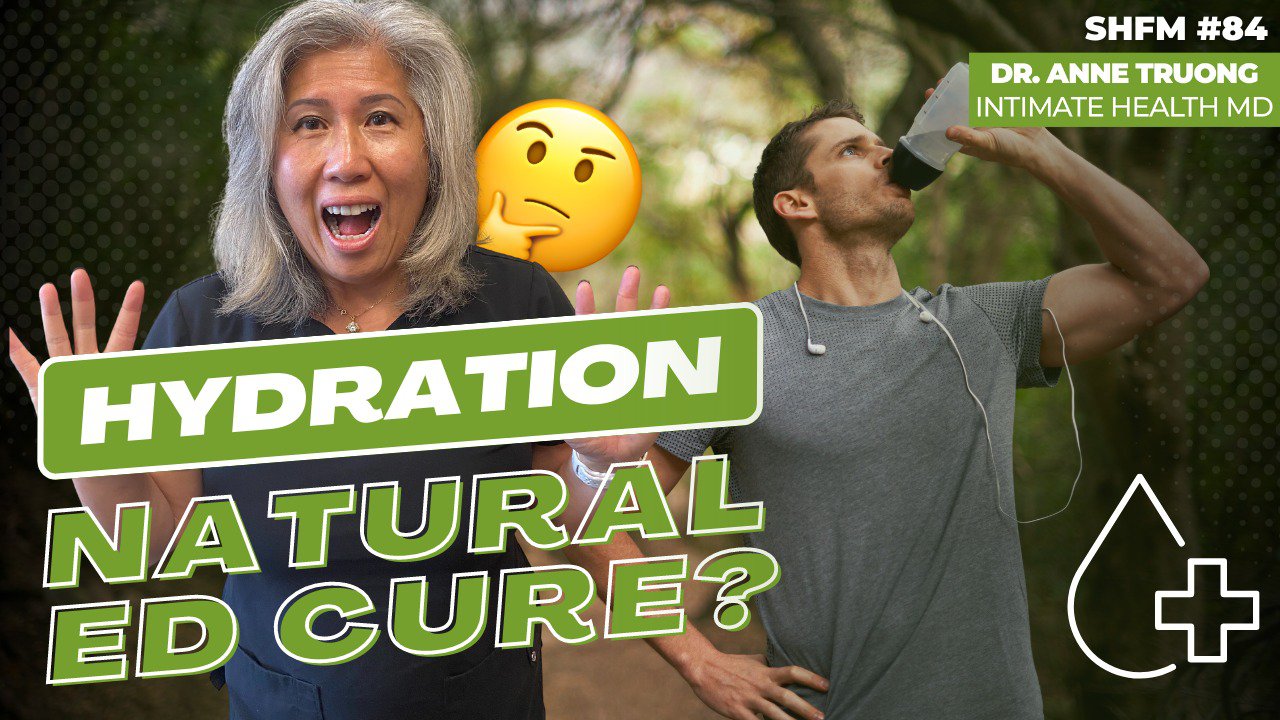
The Hidden Connection: Dehydration and Erectile Dysfunction Explained!
In the hustle of modern life, it’s easy to overlook some of the basic necessities our bodies cry out for. One such overlooked yet vital element is hydration. While many are aware of the general consequences of dehydration, few recognize its nuanced effects, especially on men’s sexual health. Dive in as I unveil how dehydration silently sabotages men’s well-being and ways to counteract its impact.
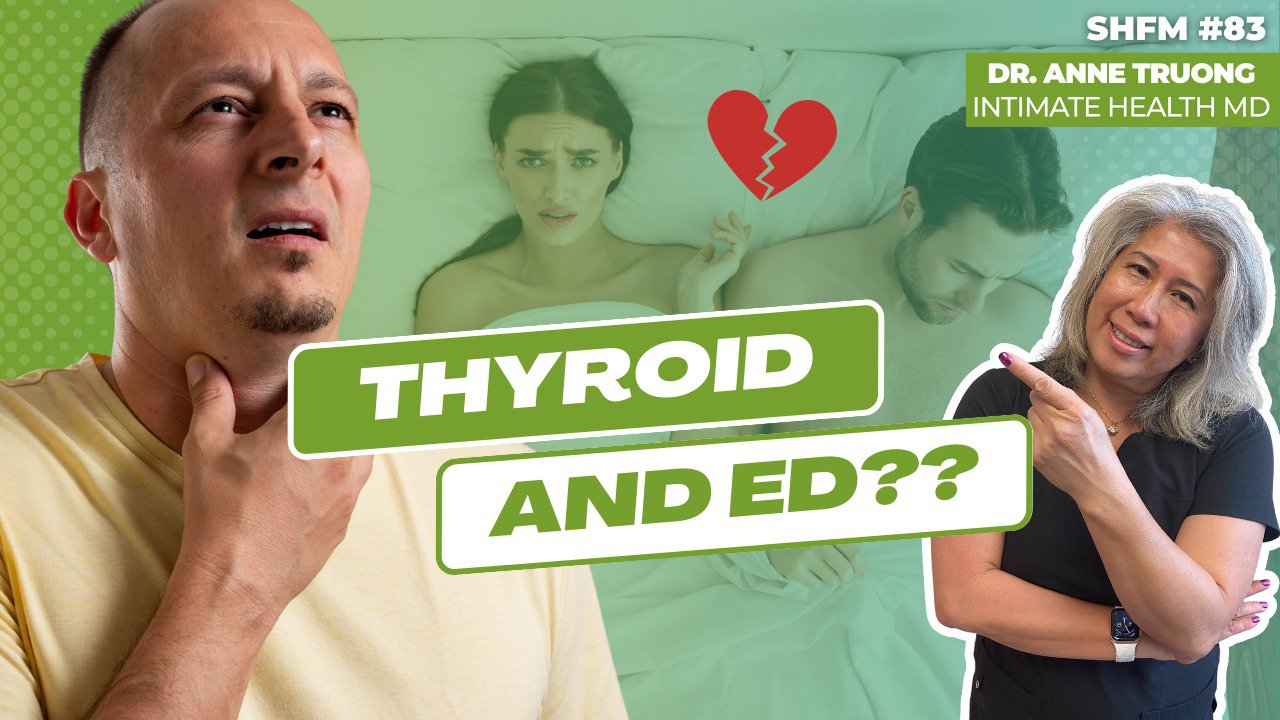
The Thyroid-ED Connection: What You Need to Know
Erectile dysfunction (ED) can stem from a multitude of sources. An often overlooked yet significant one is the imbalance in thyroid hormones. In this episode, I will dive into the complex relationship between thyroid hormone and ED. I will provide insight into its overall impact on sexual health.

The Link Between Diabetes and ED: What You Need to Know
Diabetes and ED may seem like separate health issues, but they’re intimately intertwined. In this episode, I will dive deeper into this connection. I will also be demonstrating the role of lifestyle changes in managing both of these health conditions.
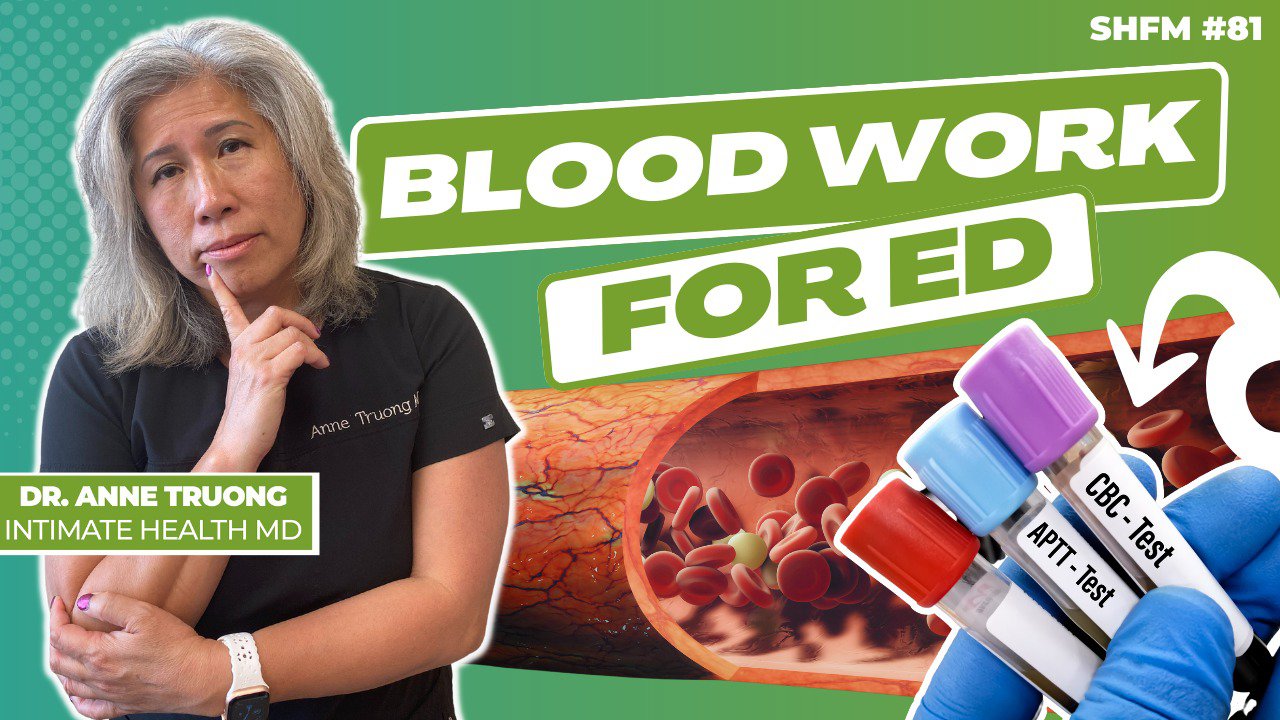
ED Blood Work: Why Every Patient Needs It
Erectile dysfunction can be an embarrassing and frustrating condition for many men. However, getting the right blood work done can be a vital step in diagnosing and treating the problem. There are a few key blood works that a healthcare provider may recommend in order to get a clearer picture of what is happening in your body. These tests can help determine if there are any underlying health conditions contributing to the ED, as well as what treatment options may be most effective. By staying on top of these important blood works, you can keep your performance at its best and take control of your sexual health.
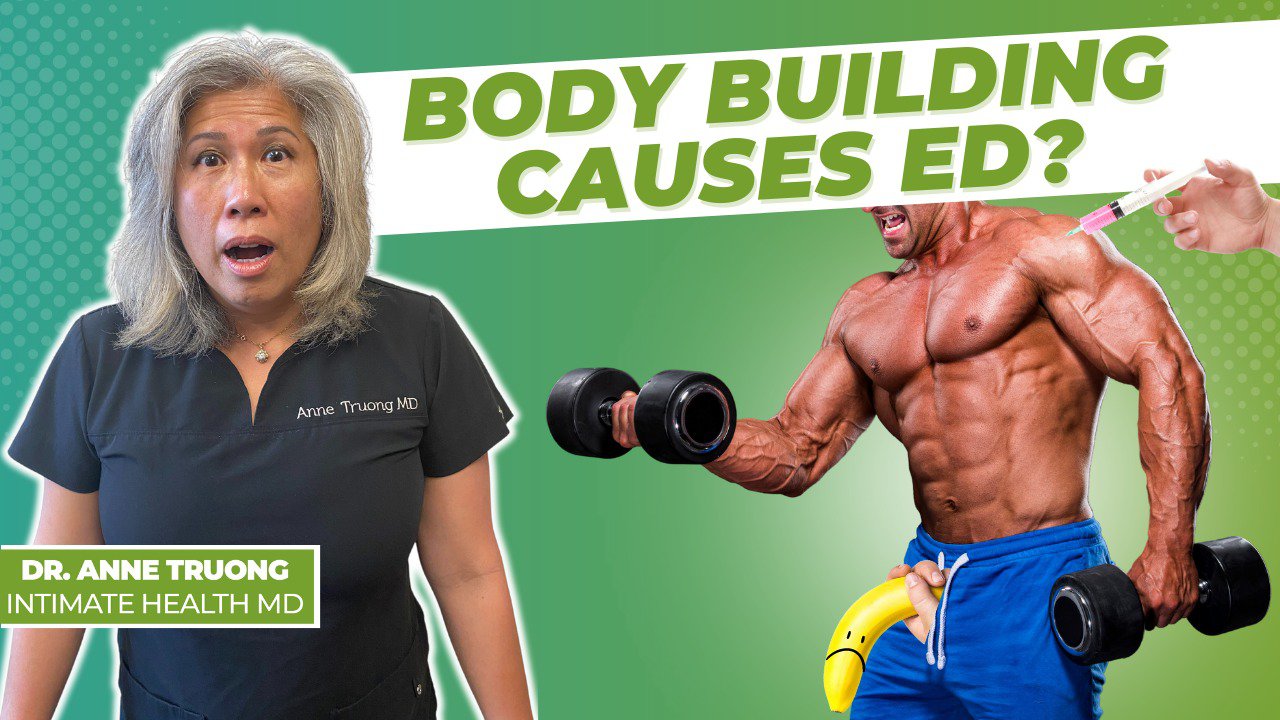
What is the Relationship Between Bodybuilding and ED?
Bodybuilding and erectile dysfunction – ever thought they could be connected? My latest podcast episode dives deep into the impact of anabolic steroids on men’s health. If you’ve been hitting the gym and want to make informed decisions for your well-being, you can’t afford to miss this!

The Intimacy and Gym Connection
It’s no secret that Erectile Dysfunction (ED) can pose significant challenges in a relationship and intimacy. It oftentimes create unnecessary tension and misunderstandings. But what if there was a unique, fitness-based approach to overcome ED? In this episode, I’ll dive deep in the ways of applying principles from physical fitness and the gym right to your bedroom to enhance intimacy.
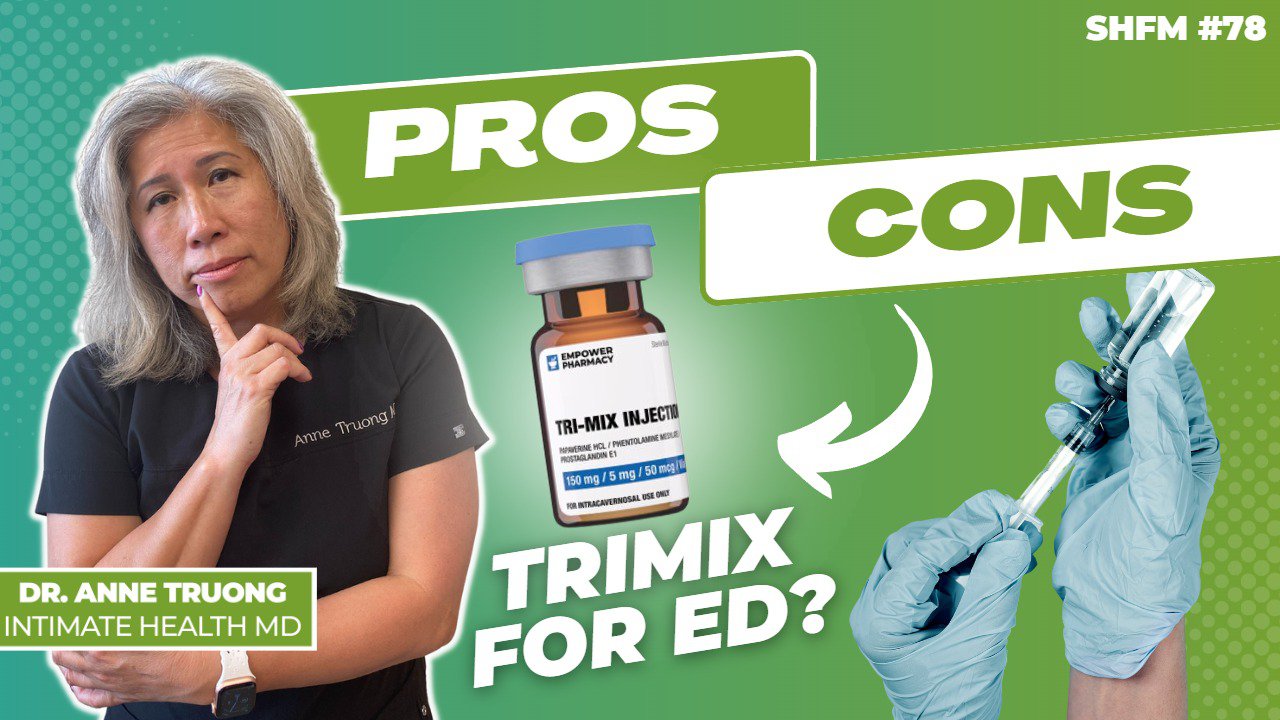
Trimix: The Alternative ED Solution – Good, Bad, and Ugly
In the medical world of erectile dysfunction (ED), Viagra and Cialis are common drugs. But if these drugs don’t work, patients have alternatives, such as a compound called Trimix. In this episode, we’re diving into the good, the bad, and the downright ugly of Trimix – a medication that, despite its potential, often flies under the radar.
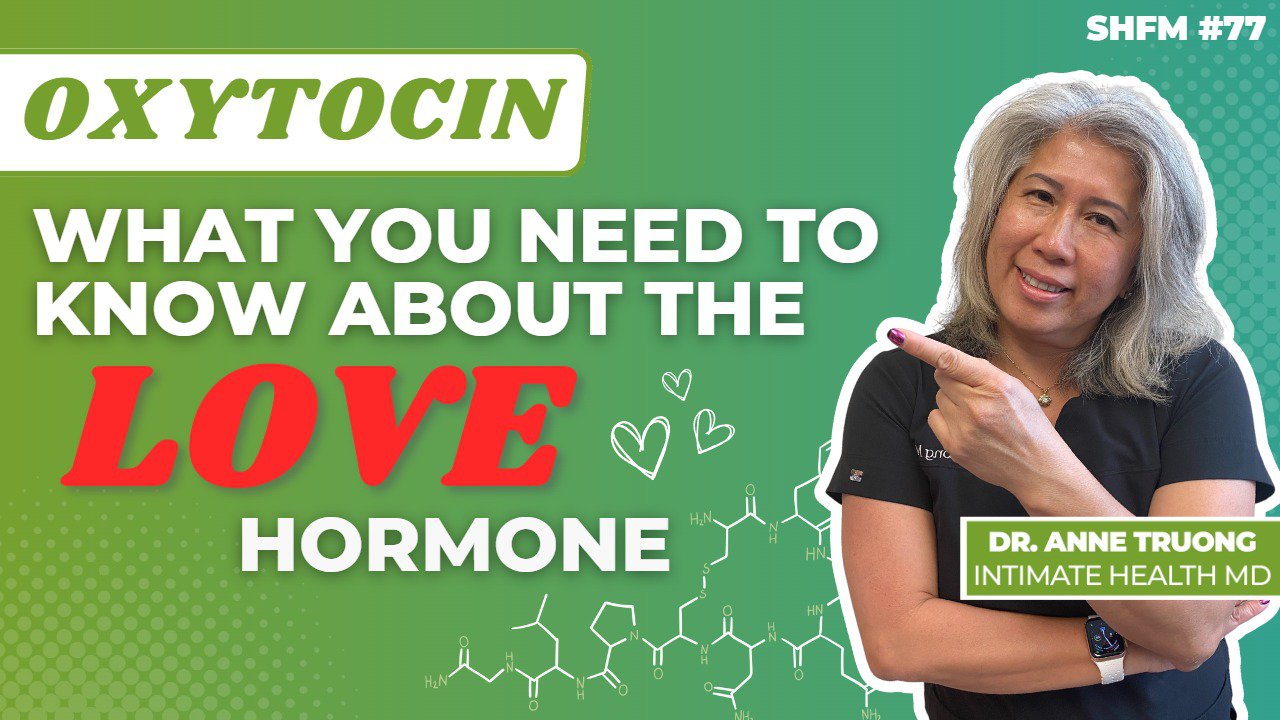
Oxytocin: What You Need to Know About the Love Hormone
Discover oxytocin, the “love hormone”. In today’s episode, I will dive deep into oxytocin’s intriguing functions beyond childbirth and lactation. I will be exploring its role in sexual arousal, trust, and relationship building. I will also uncover how oxytocin influences ejaculation and testosterone production. Additionally, I will discuss its relation to mental health conditions, and why they consider it as the ‘cuddle or love hormone’.
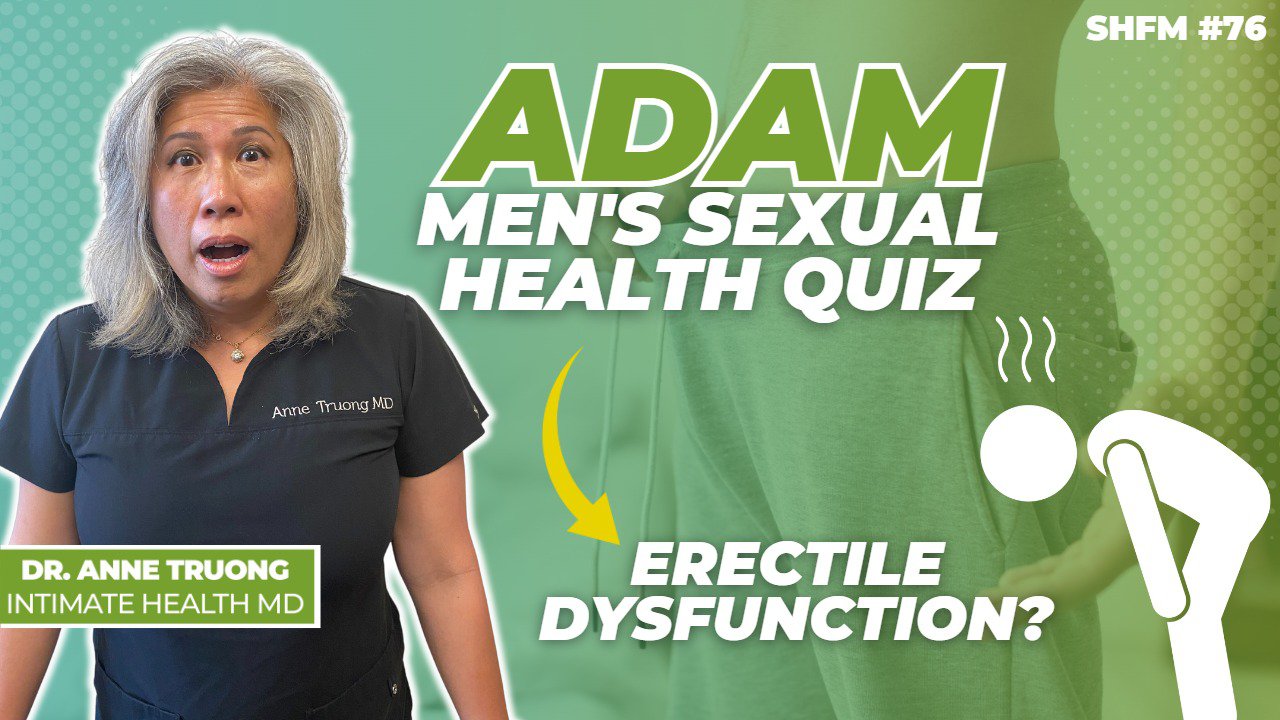
Testosterone Level Test – Men’s Sexual Health Quiz
Have you ever wondered about the idea that there could be a test to measure your most primal and inherent drive – your libido? Or that your testosterone levels could be scientifically quantified? If you haven’t yet, today is your lucky day! And if you have, well, we’re about to feed your curiosity in a way that will leave you feeling more enlightened than ever before. Get ready to dive deep into the fascinating universe of libido and testosterone testing. Trust me; it’s a topic well worth your time and attention! So stay tuned, sit back, and let’s navigate this journey of discovery.
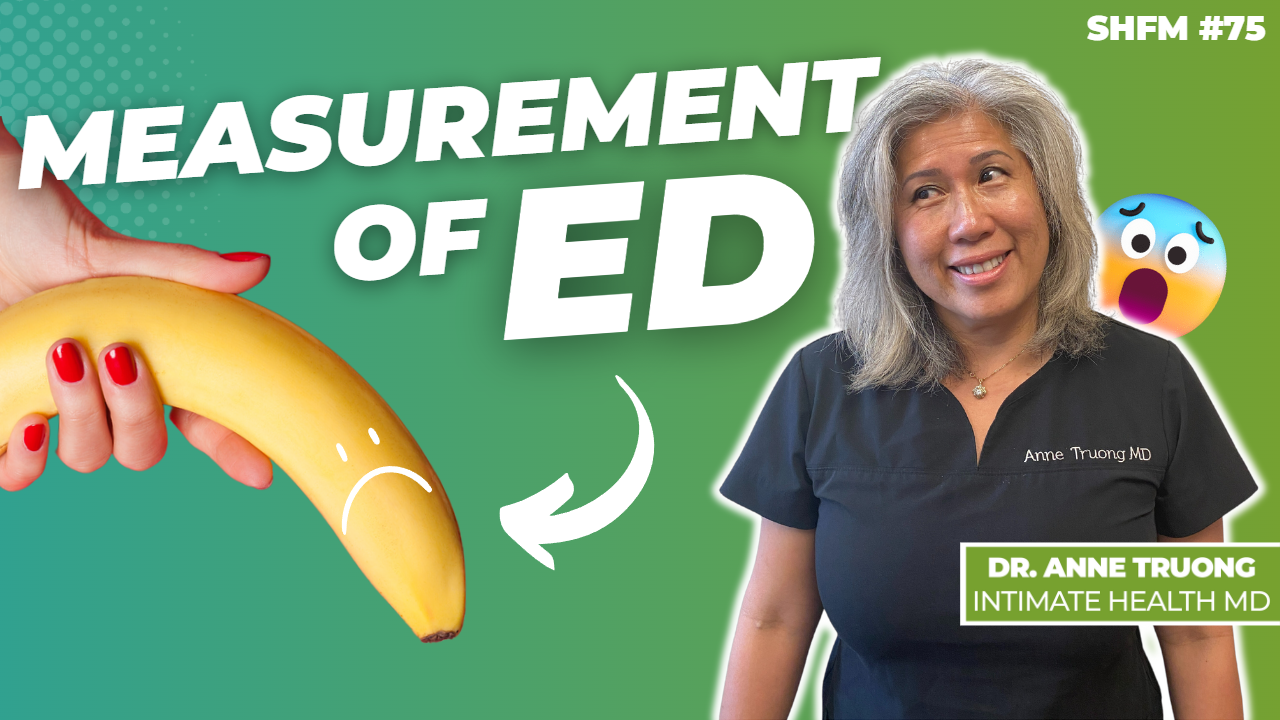
Measurement of ED – Assessing the Severity of Your Erectile Dysfunction
Do you know there is a test that you can take to see if you have ED or not? And to see if you improve after treatment? Well, stay tuned in this episode, as I dive into the world of erectile dysfunction (ED). I will shed light on a crucial aspect of ED that often remains unexplored. Join me as I uncover the valuable insights surrounding the ED test and treatment journey.
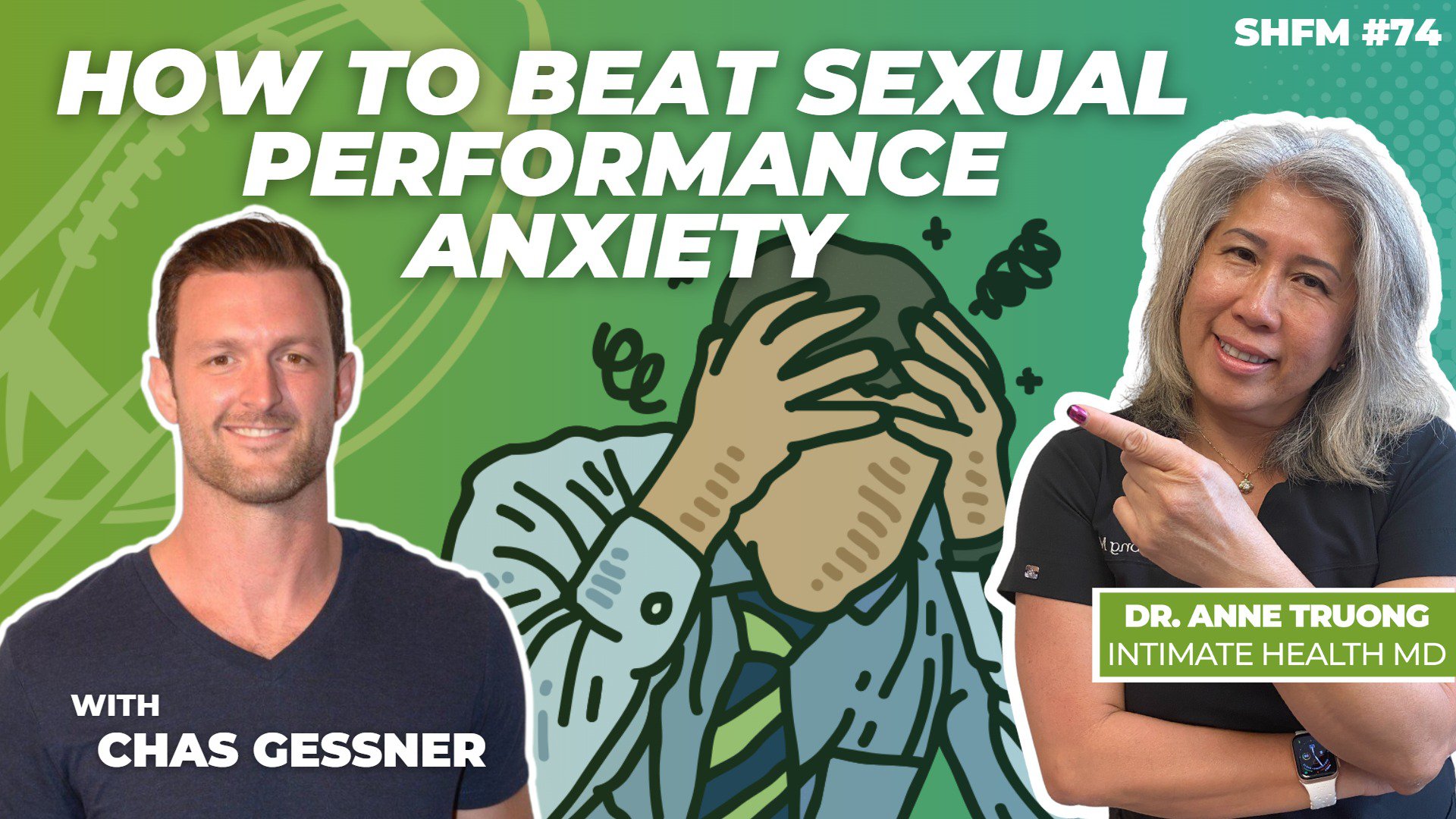
Performance Anxiety & Testosterone Boost: Unlocking Sexual Vitality
Get ready to dive into an exciting conversation about two crucial aspects of men’s sexual well-being: conquering performance anxiety and maximizing testosterone levels. I had the pleasure of sitting down with the amazing Chas Gessner to explore these topics in depth. Performance anxiety can be a common concern for many men. Chas will be sharing valuable insights on how to navigate through it. We’ll also dive into the fascinating world of testosterone, the hormone that plays a vital role in energy, libido, and overall vitality. Stay tuned, because this conversation with Chas is bound to be a game-changer. I’ll see you on the inside!
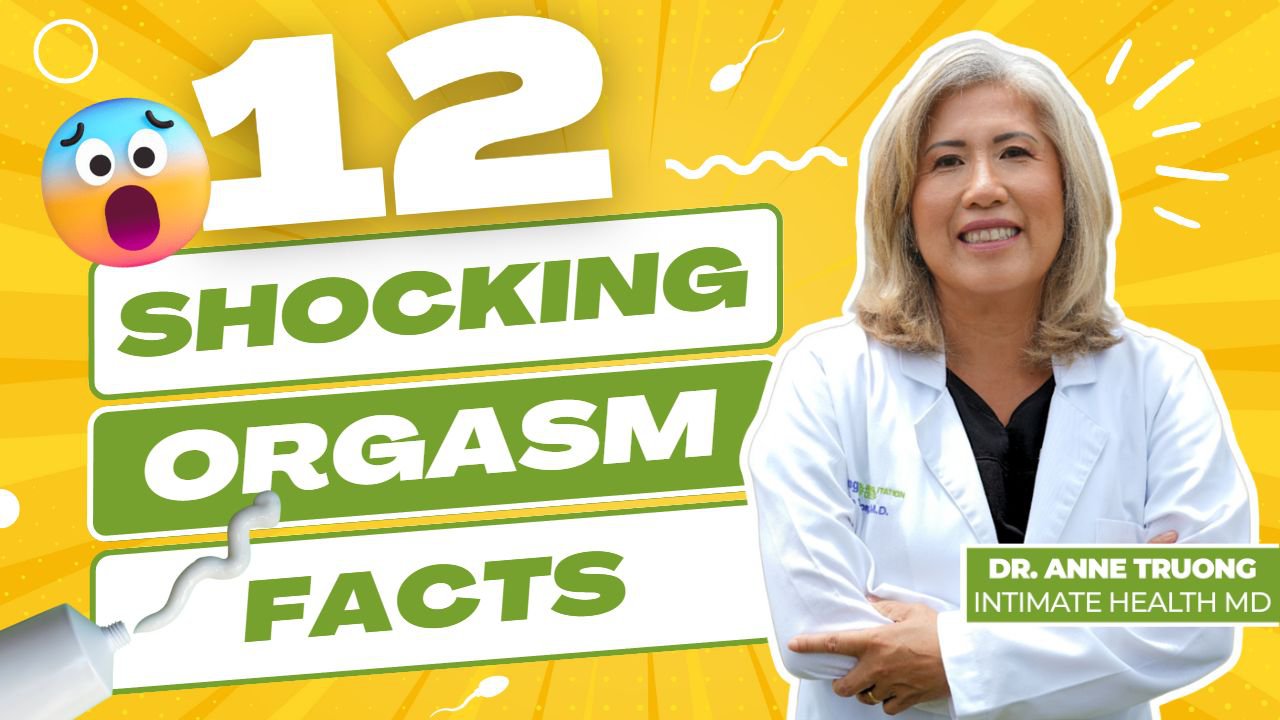
Orgasm: Discovering the Science and Secrets Behind Pleasure!
Have you ever wondered what goes on inside your body and mind during an orgasm? Prepare to be enlightened as I take you on a captivating journey into the scientific depths of the most pleasurable experience known to mankind. Get ready to discover the surprising physical and psychological effects of climax and how this knowledge can lead to a more fulfilling sex life.
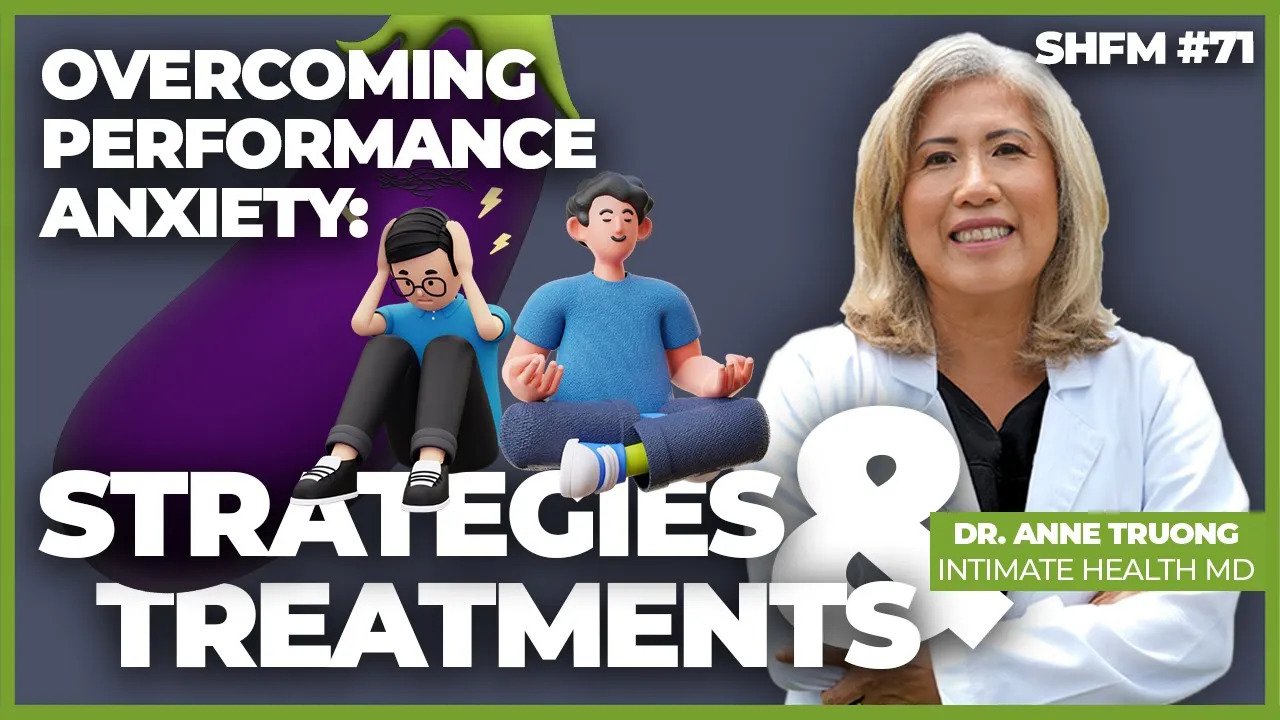
Overcoming Performance Anxiety: Strategies and Treatments
Dive into the episode as I discuss performance anxiety. I’ll be discussing its impact on your ability to perform at your best, particularly during a sexual encounter. I will discuss strategies and treatments that can help you manage and overcome this type of anxiety. I will also provide valuable insights and practical tips to help you overcome this common issue. Tune in to learn more about overcoming performance anxiety and living a more fulfilling life.

Navigating the Challenges of Men with ED Face
Erectile dysfunction (ED) is a common condition that affects millions of men worldwide. Dive into the episode as I discuss the challenges that men with ED face when trying to regain their ability to achieve and maintain an erection. I’ll also discuss strategies for overcoming these obstacles.

Rising Above – One Man’s Journey to Conquer ED
In this episode, we have a special guest, Gaylen Wilson, who shares his inspiring story of overcoming erectile dysfunction (ED) and living his second life to the fullest. Gaylen has been successfully dealing with ED for 22 years and married to his soulmate for 20 years. He has been helping men in the largest Facebook group for ED discussion for 2 years. Dive into the episode as Gaylen shares his journey and experiences with ED, and how he has turned his life around. Don’t miss this empowering and motivating episode! Stay tuned and hear Gaylen’s incredible story of resilience and triumph.
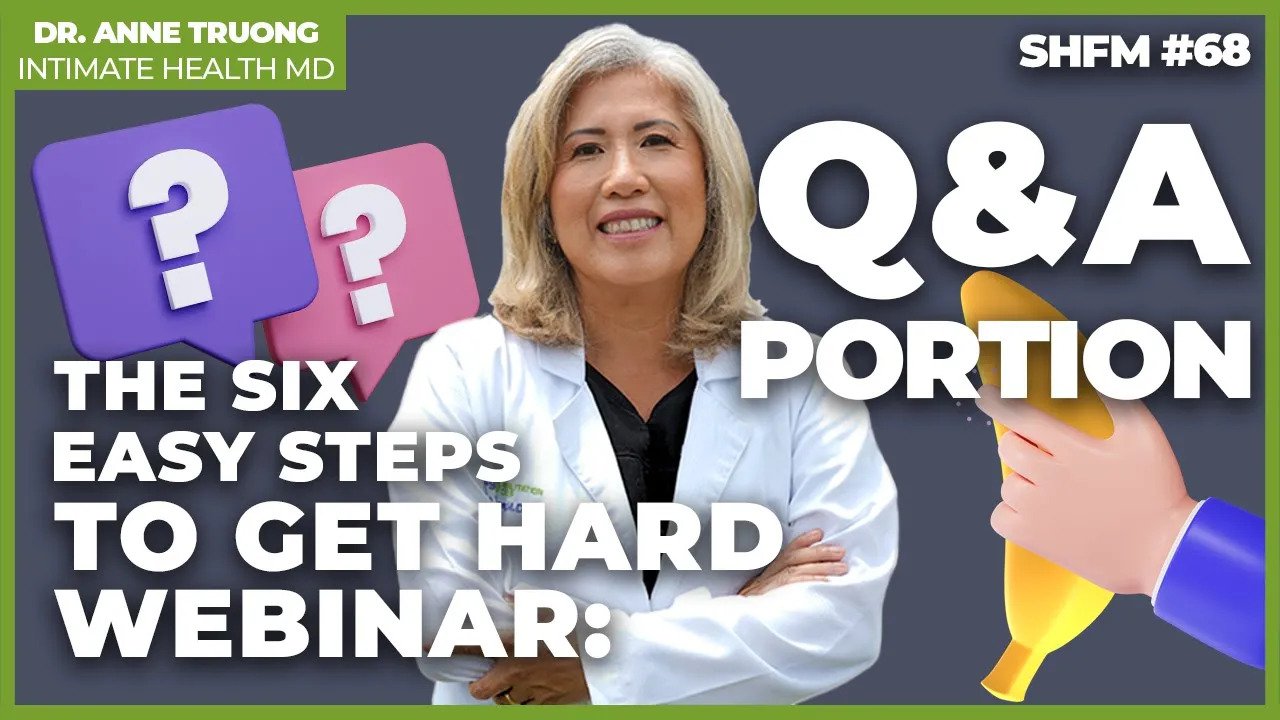
The 6 Easy Steps to Get Hard Webinar: Q and A Portion
In this episode, we answered some of the most frequently asked questions about the “Six Easy Steps to Get Hard.” Don’t let ED or other sexual issues hold you back any longer. Join us for this informative Q&A session and take the first step towards better sexual health today!
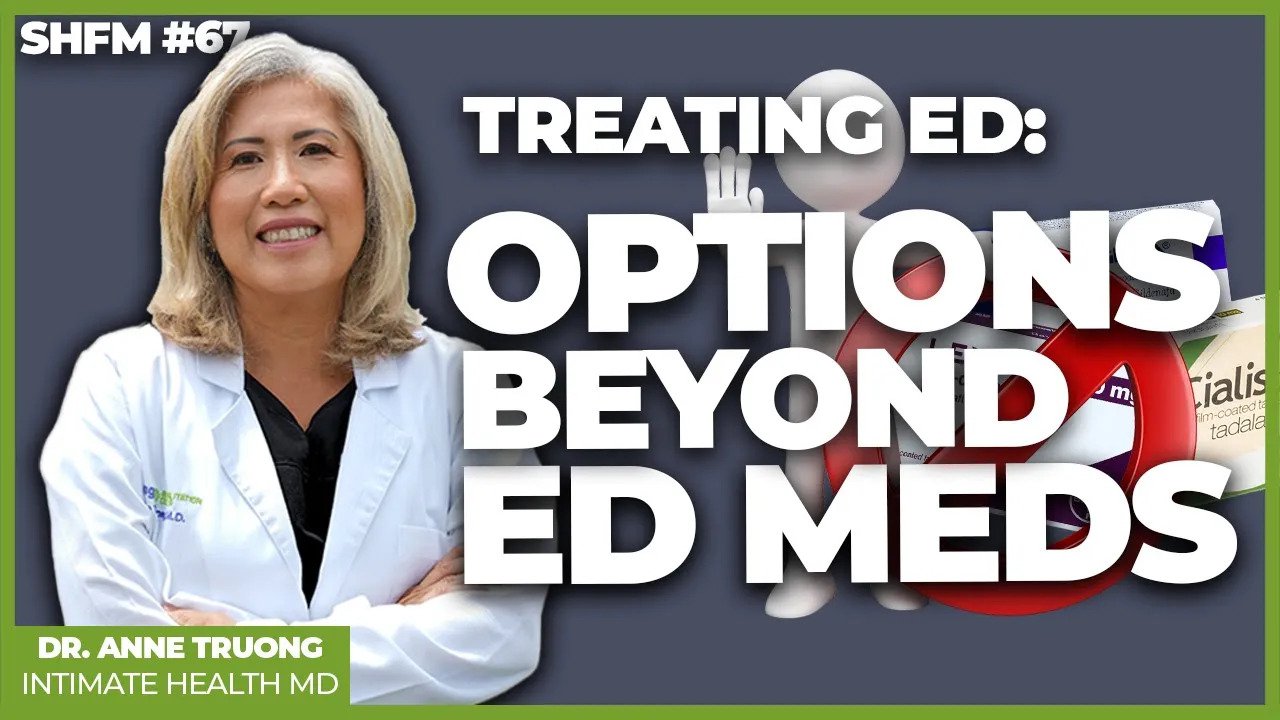
ED Treatment: Options Beyond ED Meds
Secret number three, ED is not permanent and can be treated without medication. Dive into the episode as I discuss the dangers of self-medicating and the importance of treating the root cause of ED. I will also introduce the Six Easy Steps to Get Hard approach, which focuses on restoring blood flow to address the root cause of ED.
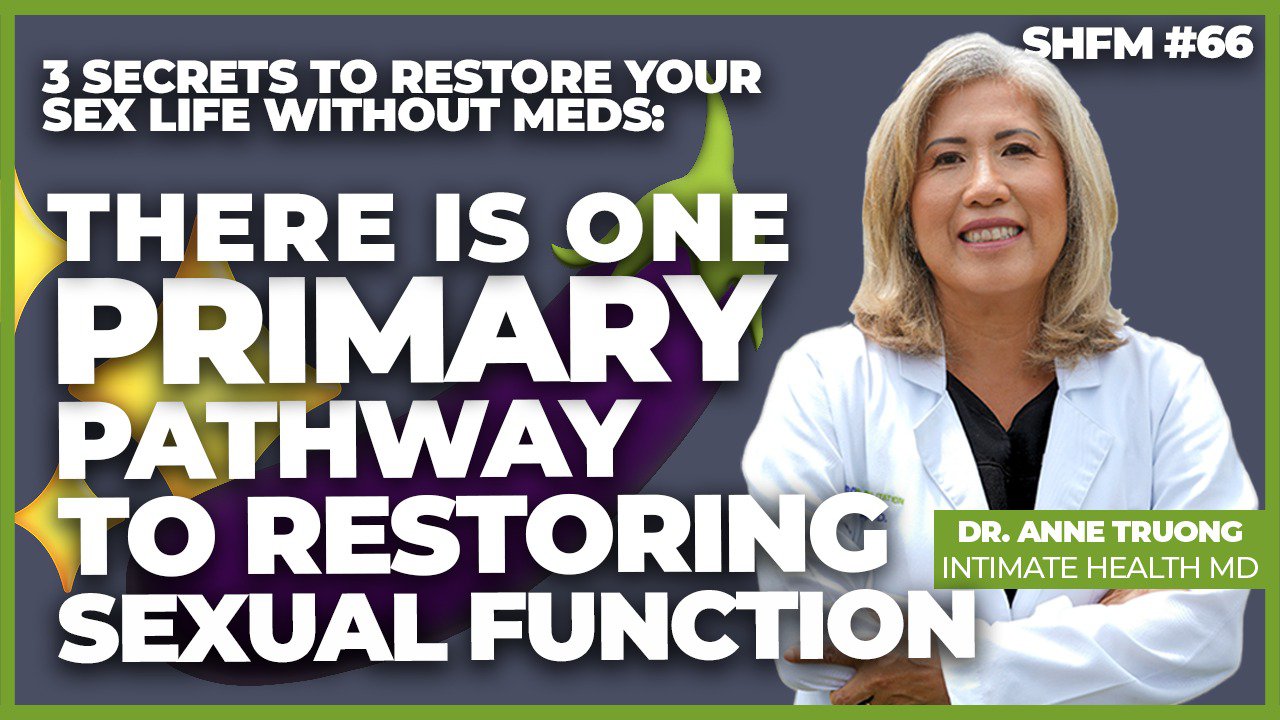
The Primary Pathway to Restoring Your Sexual Function
Erectile dysfunction (ED) is a common issue that affects millions of men worldwide. It can have a significant impact on a man’s quality of life, relationships, and self-esteem. If you are suffering from ED, read on – here is the primary pathway to restoring your sexual function. Also, by following the tips that I’ll enlist, you can enjoy an active sex life once again.
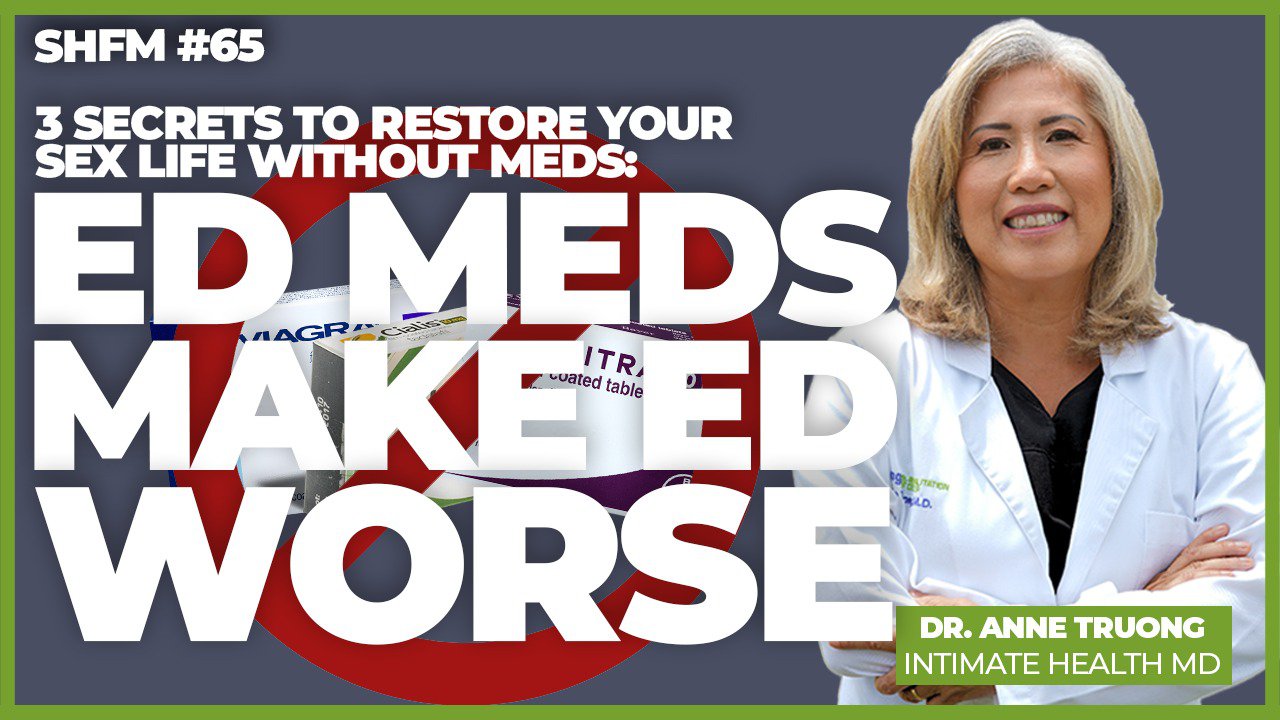
ED Medications Make Your ED Worse
Many men suffer from ED, a common condition that is commonly treated with medications like Viagra and Cialis. Although some ED medications can offer temporary ED relief, they may still not deal with the underlying causes of the condition. In fact, taking ED medications for an extended time may cause blood flow restrictions worse and require the use of higher doses. Tune in to the episode as I dive into the mechanisms behind ED medications and why relying solely on them may not be the best solution for addressing the root causes of ED.

Shockwave Therapy: A Breakthrough Solution for ED and Stronger Pelvic Muscle
Shockwave therapy is a non-invasive treatment that uses acoustic waves to improve blood flow and promote tissue regeneration in the penis. Studies have shown that shockwave therapy can be an effective treatment for erectile dysfunction. For today’s episode, I’m going to talk about the new protocols that we have for shockwave therapy for ED. This will uplevel your erection, and improve your orgasm and ejaculation.
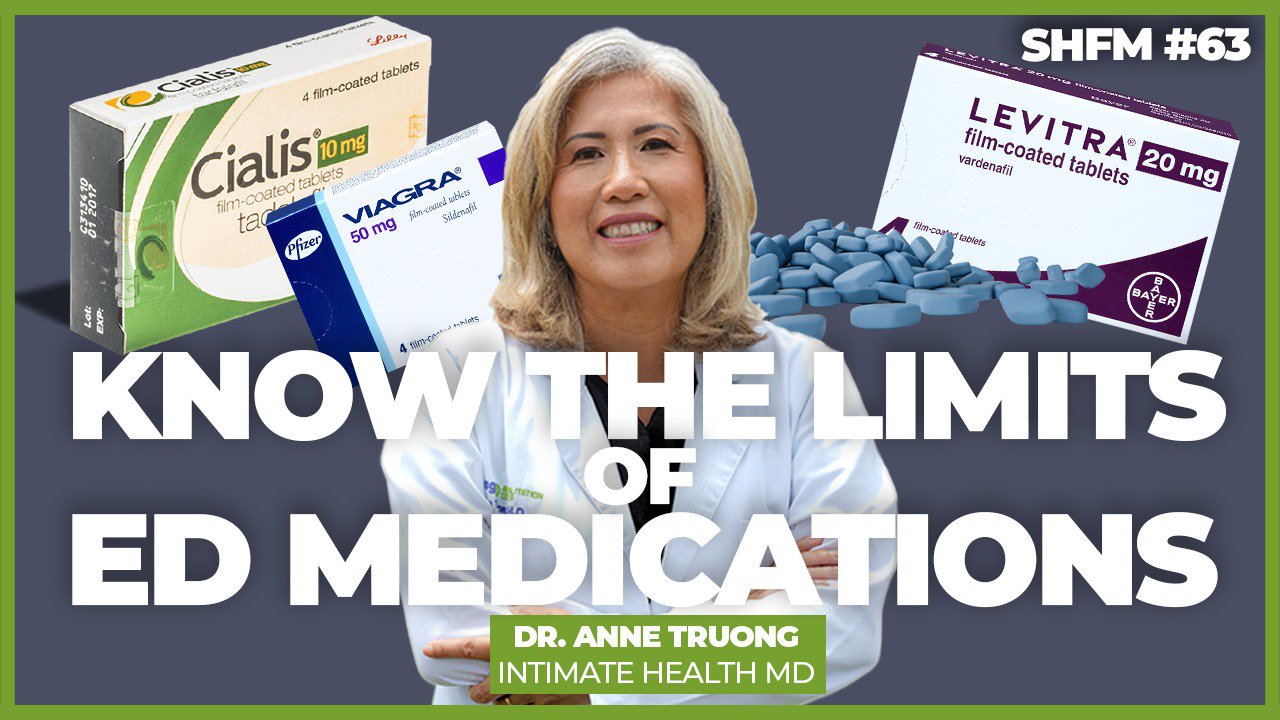
Understanding the Limitations of Taking Medications for Your Condition
Have you ever taken a medication to treat a condition only to find that the symptoms return once the medication is discontinued? This episode will investigate why taking medications does not necessarily eradicate the underlying condition. Additionally, I will discuss strategies for managing chronic conditions in the long-term.
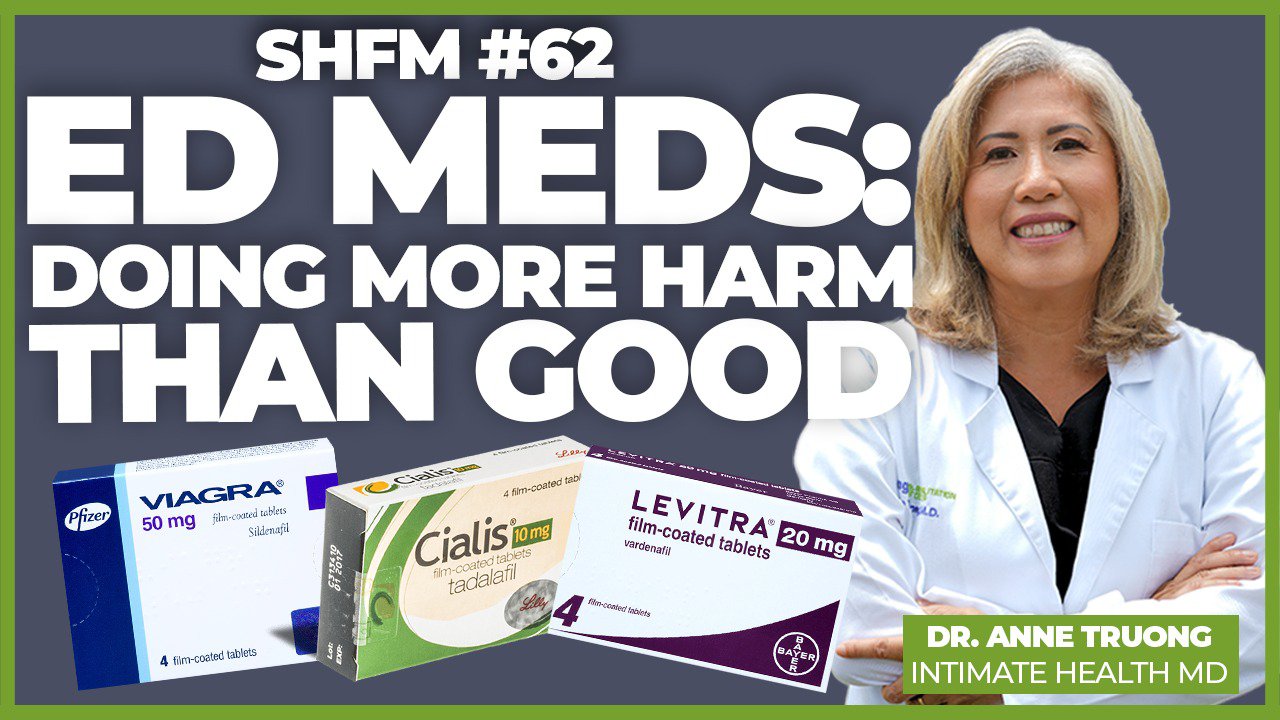
ED Medications – It May Be Doing More Harm Than Good
Did you know that some ED medications can have serious side effects that go far beyond the bedroom? From sudden vision loss to increased risk of heart attack, these drugs can have a significant impact on your health. If you’re curious to learn more about the potential risks associated with ED medications, keep reading – the answers may surprise you.
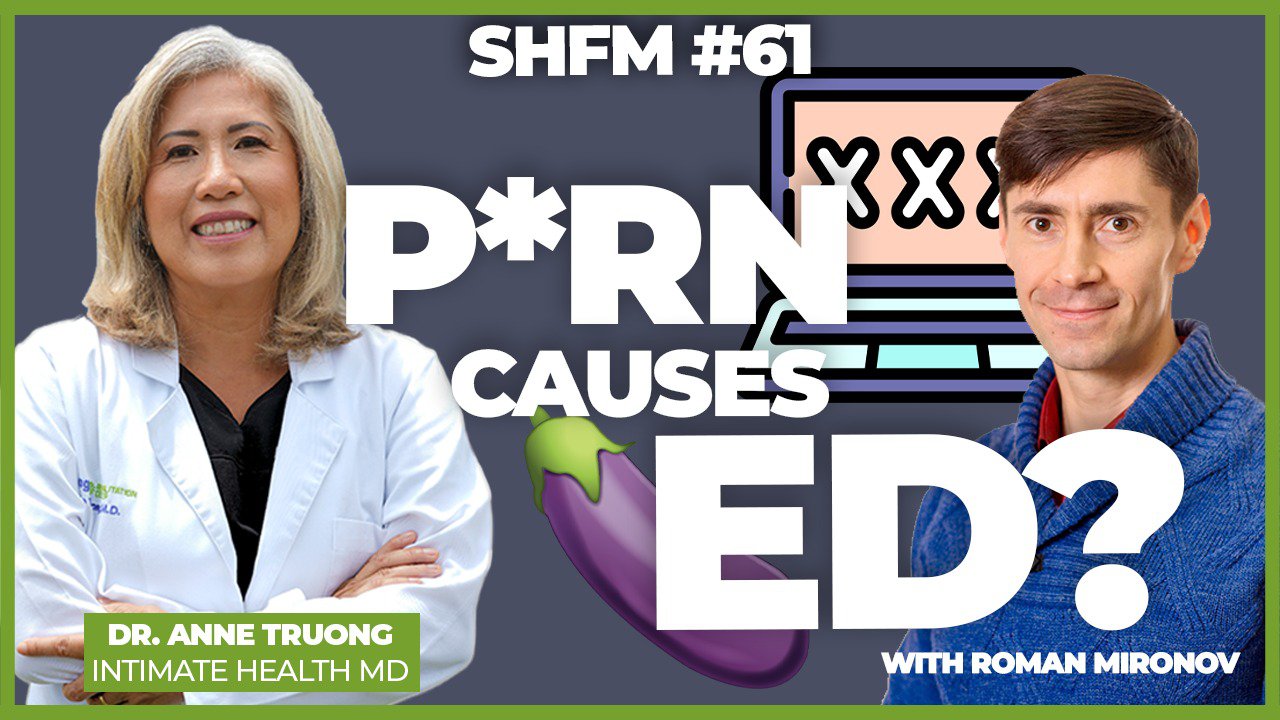
Porn Addiction and ED: An Action Plan for Moving Beyond Pornography
Watching pornography can be a normal part of a healthy sex life and shall not be accompanied by feelings of guilt or shame. However, if you find that your watching habits are becoming excessive, this could be indicative of an addiction to porn. Although this behavior may seem innocuous, if left unchecked porn addiction can have a negative impact on one’s home life, work life, and personal relationships. In this episode, Roman Mironov a coach trained by a Tony Robbins’ program and been porn-free for 8+ years, will share his strategy and motivation to help people do the same. We’re gonna hear about his journey on how he did it, so stay tuned.

Erectile Dysfunction 101: Answering the Top 10 FAQs on ED
Many men may experience erectile dysfunction at some point, yet they may be reluctant to consult their doctors on the matter. To address this, I have compiled a list of the ten most frequently asked questions regarding erectile dysfunction.
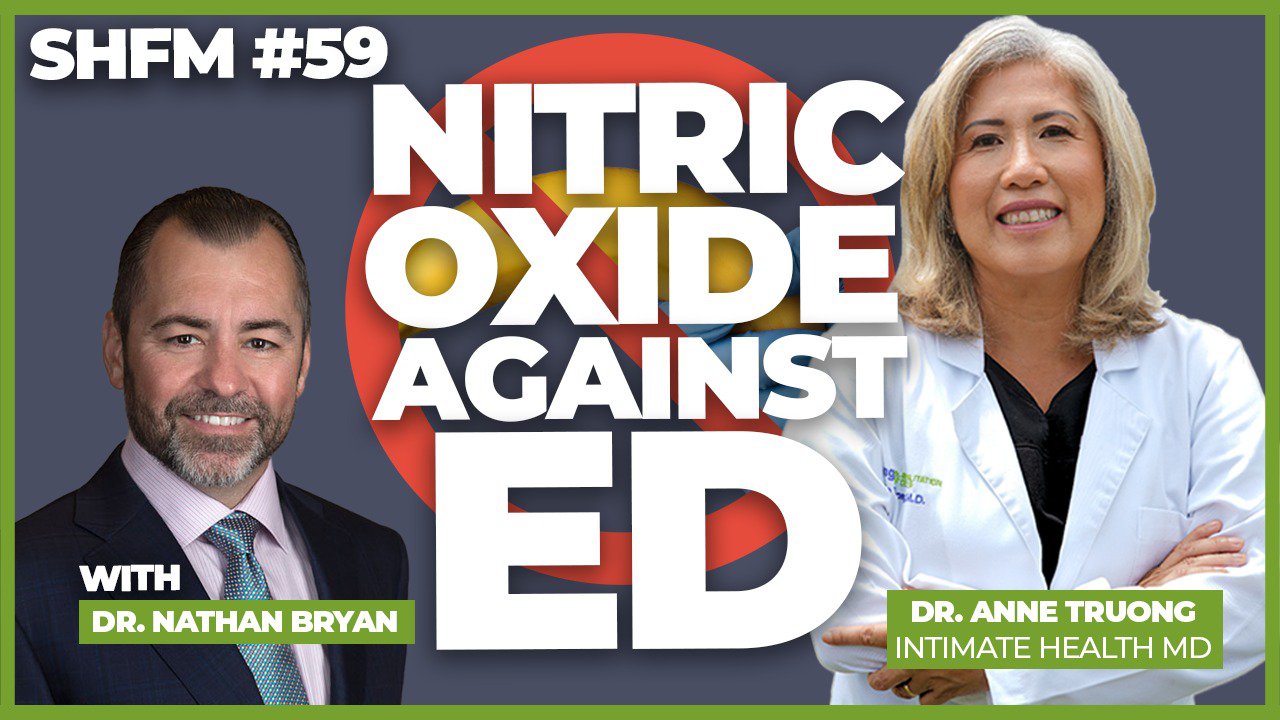
Nitric Oxide – Uncovering Its Potential in Treating Erectile Dysfunction, with Dr. Nathan Bryan
Nitric oxide (NO) is a vital molecule necessary for optimal health. It functions as a vasodilator, transmitting signals to your blood vessels that cause them to relax and expand. Recent research has shown that nitric oxide may be able to help men with erectile dysfunction (ED). Dive into the episode with Dr. Nathan Bryan, one of the pioneer for nitric oxide, as we discuss how nitric oxide can be used to treat ED and the potential benefits of using it as a treatment option. We will also discuss how nitric oxide works to improve erections and how it may be combined with other treatments for better results.
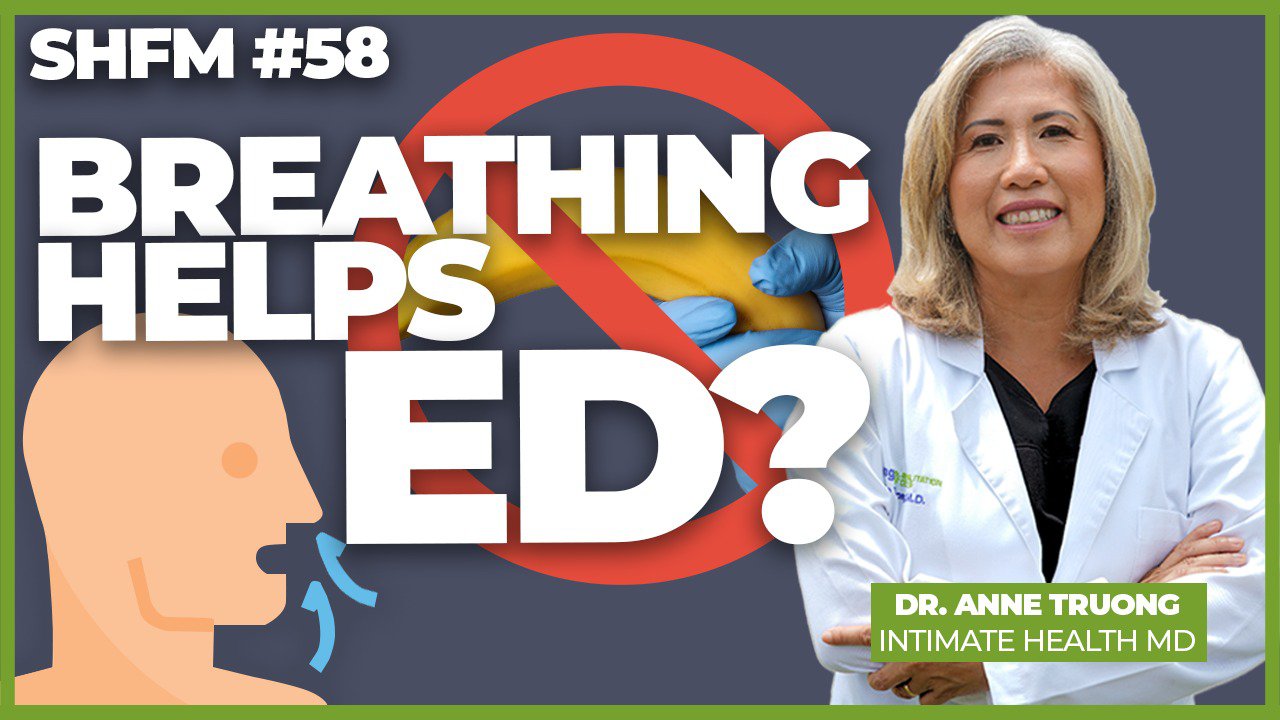
The Surprising Link Between Breathing and Erectile Dysfunction
Approximately one-third of men experience erectile dysfunction (ED), a condition that can have a significant impact on quality of life. While the cause of ED is often attributed to issues surrounding manhood, other factors such as anxiety, stress, mental health, blood pressure and even breathing patterns may contribute. This episode will explore how breathing habits can affect sexual life and provide guidance on steps that can be taken to address it.
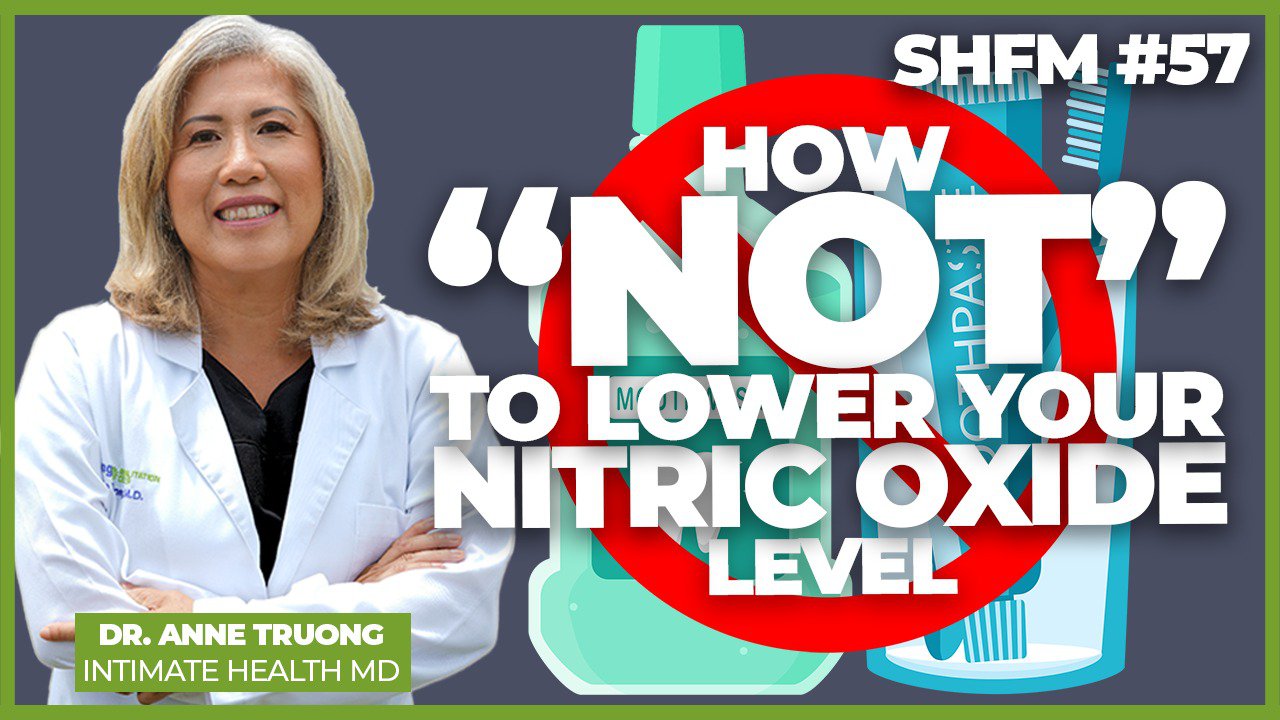
Say Goodbye to ED: How Not To Lower Your Nitric Oxide Levels
Nitric oxide is a gas that helps relax the smooth muscle tissue of your penis and increase blood flow. If your nitric oxide levels are low, it can lead to Erectile Dysfunction. Dive into the episode as I discuss how to not lower your nitric oxide levels in order to help prevent ED. Follow these tips, make lifestyle changes, maintain healthy nitric oxide levels, and say goodbye to ED!

9 Foods That Help With ED: Eating For Better Performance
This episode will discuss nine foods that may improve erectile dysfunction (ED) and enhance sexual performance. It is believed that certain dietary choices can affect ED, and these nine foods may be beneficial for those struggling with this condition.
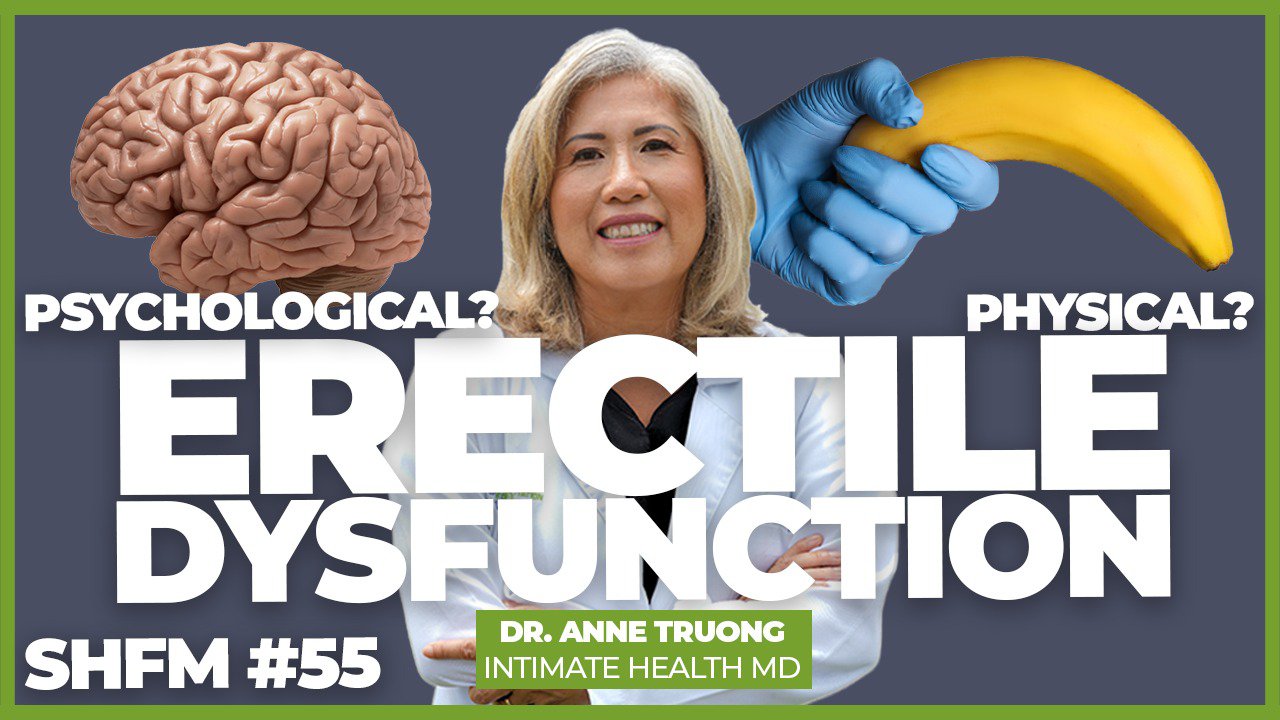
Understanding the Difference Between Psychological and Physical ED
In this episode, I will discuss the differences between physical and psychological erectile dysfunction (ED). I will provide guidance on how you can differentiate between the two types of ED. Additionally, I will offer tips to help you determine which type of ED you have.
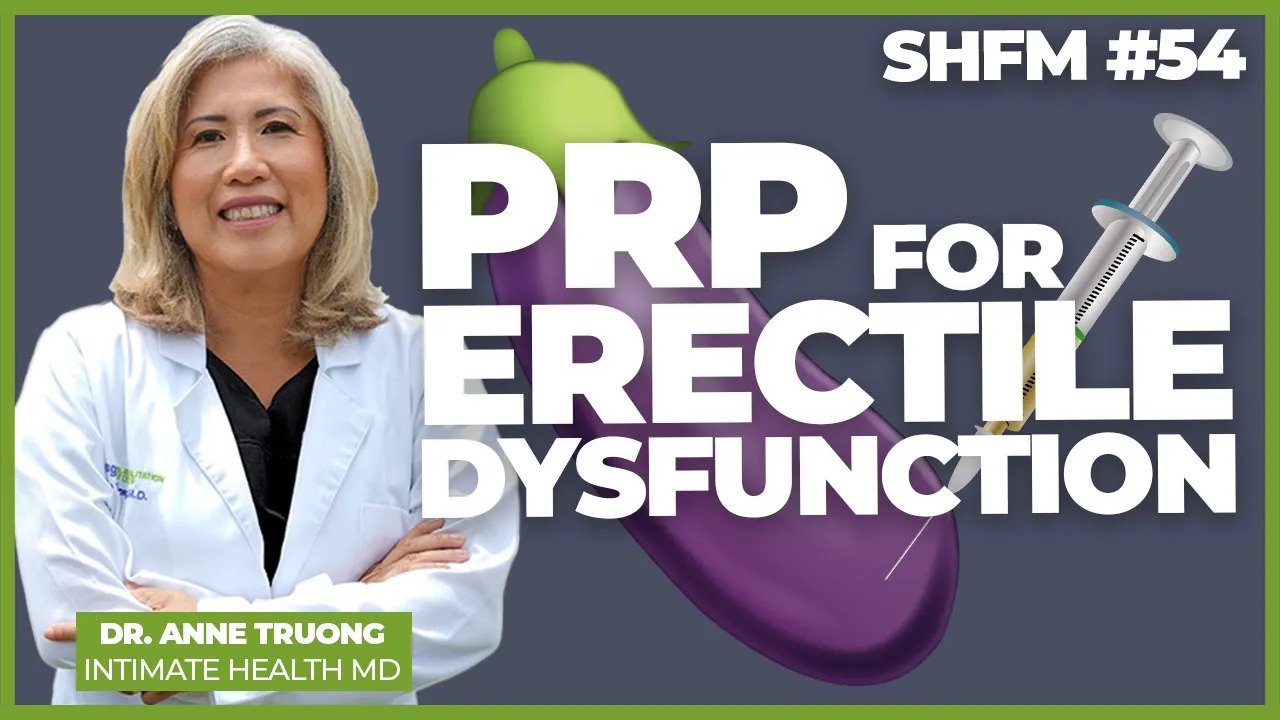
Platelet-Rich Plasma for ED – Bringing Back Bedroom Bliss
Platelet-rich plasma is your body’s own healing power. In this episode, I’m going to talk about how you can use it to treat Erectile Dysfunction (ED).
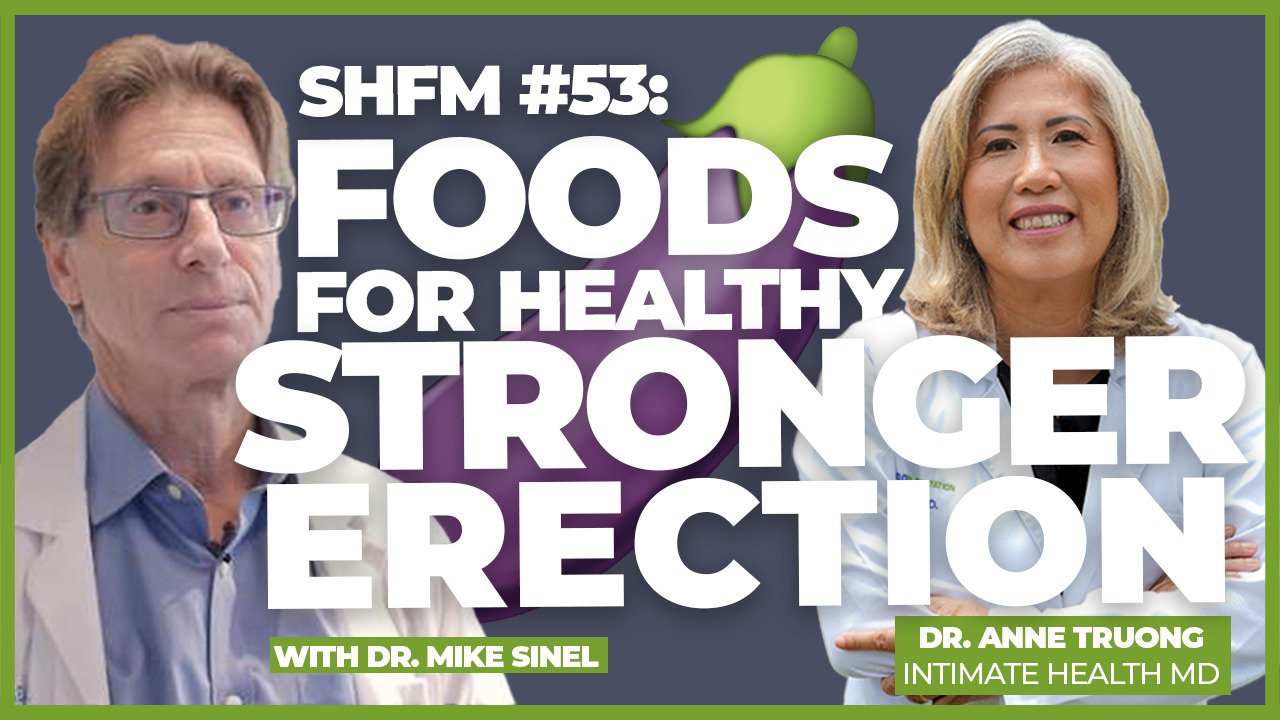
Incredible Foods for Stronger and Harder Erection, with Dr. Mike Sinel
Are you experiencing difficulty in achieving or maintaining an erection, or having difficulty performing sexually with your partner? If so, medical foods may be a viable option for you.
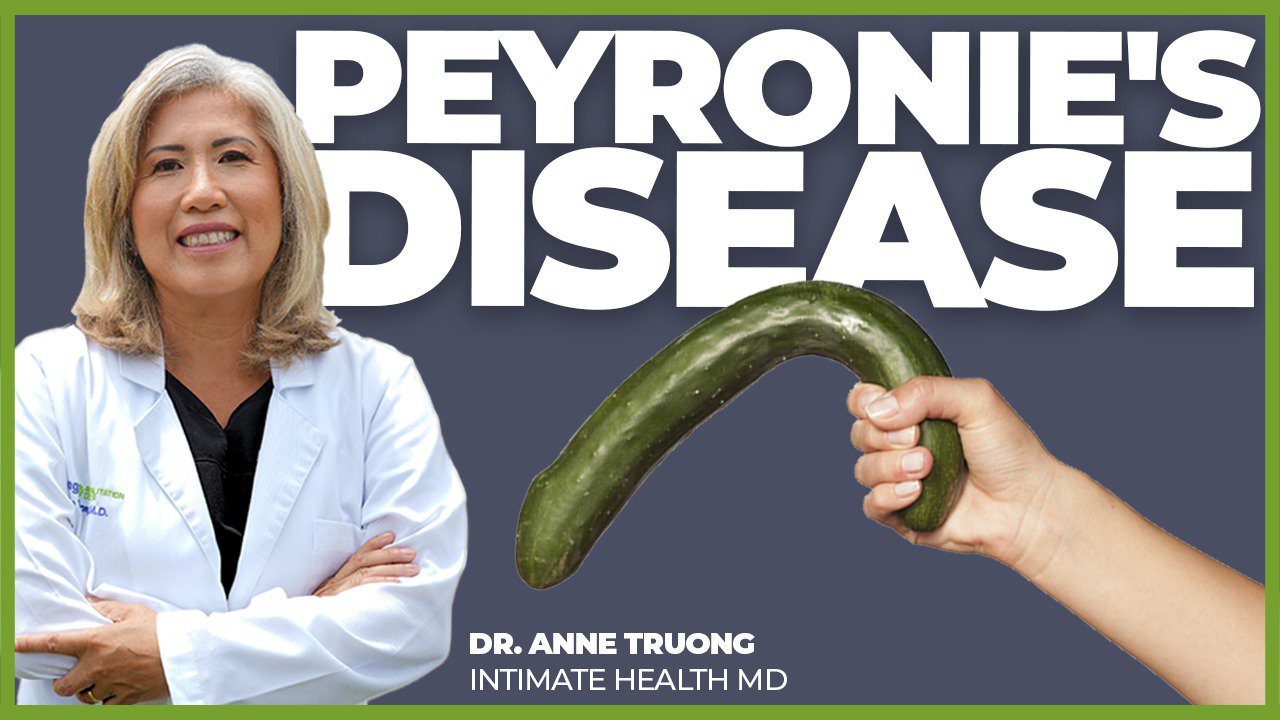
The Truth About Peyronie’s Disease Will Shock You!
Peyronie’s disease is a condition that affects the penis. In this episode, we will learn about Peyronie’s disease and discuss its causes and available treatments.

3 Elements to Unlock Sexual Vitality in Men
Humans have developed practices for longevity and vitality since ancient times. While times have certainly changed, our bodies are more or less similar. It begs the question: what healthy practices have been lost to time that could seriously improve our energy and vitality?
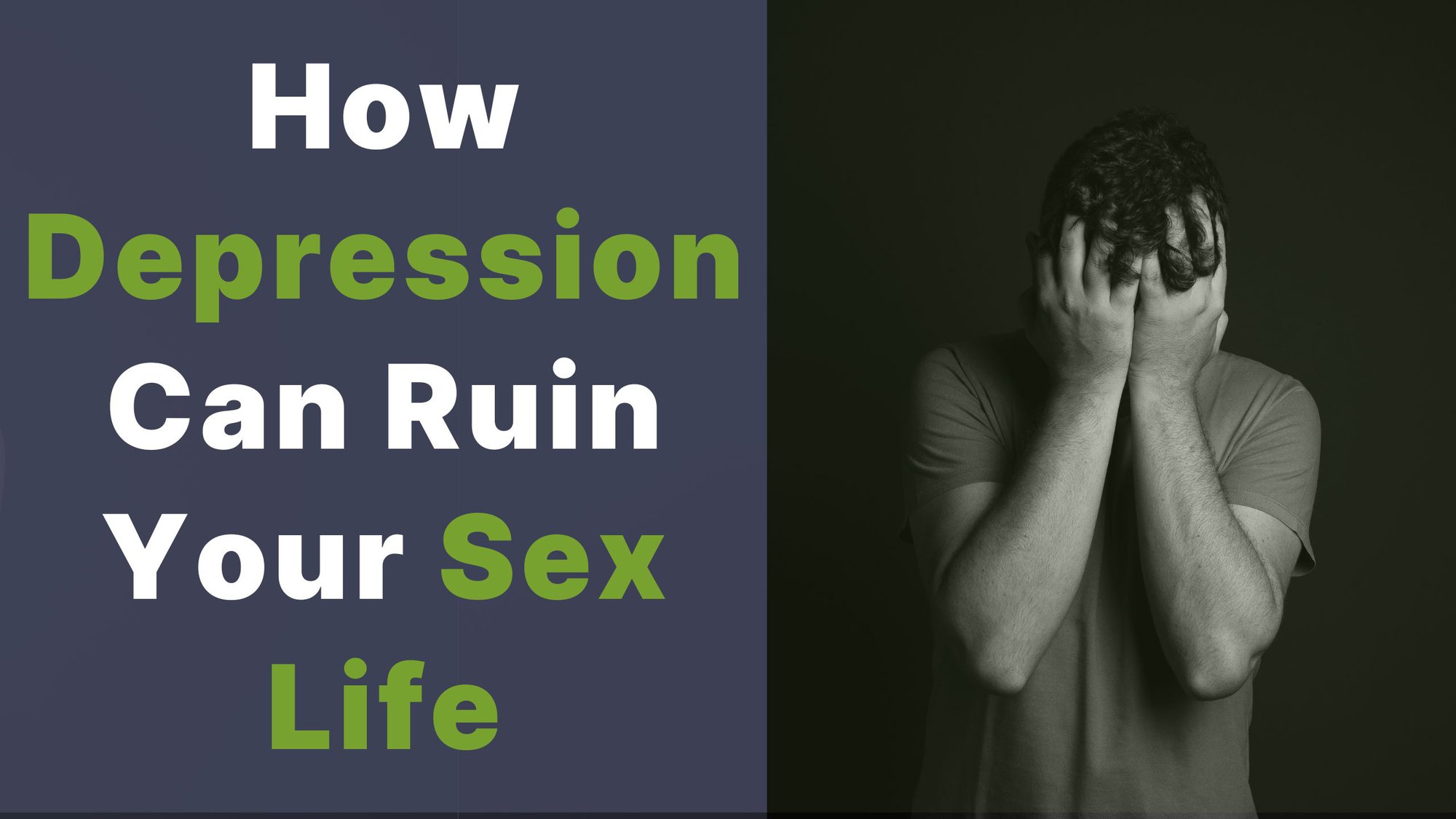
How Depression Can Ruin Your Sex Life
Depression hurts, and so does ED. Both these issues are interrelated, and you need to look at the bigger picture regarding both! In fact, studies show that people with depression are 39% more likely to experience Erectile Dysfunction than those without it. It all goes back to how the mind affects the body and vice versa. Let’s look at what’s happening beneath the surface and find out how to steal back your erection!
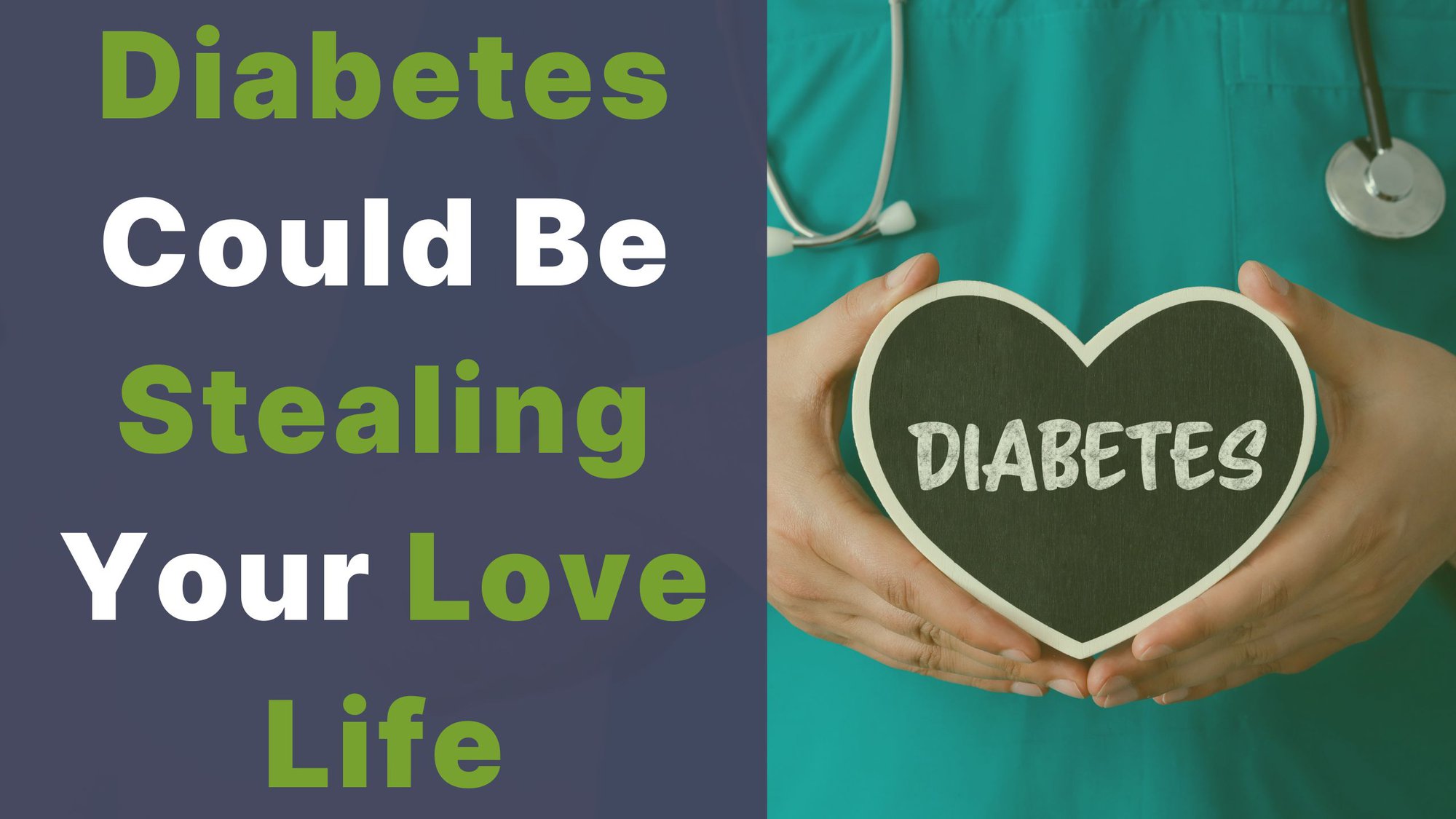
Diabetes Could Be Stealing Your Love Life
Did you know the simple act of eating or drinking something sugary could lead to complications with erectile function? It’s true! In fact, having ED is often a warning sign that something is affecting your blood and blood flow. When it comes to ED, diabetes can be a significant contributor to your issues. Studies from The Journal of Sexual Medicine found that men with diabetes are more likely to get ED a decade before men without.
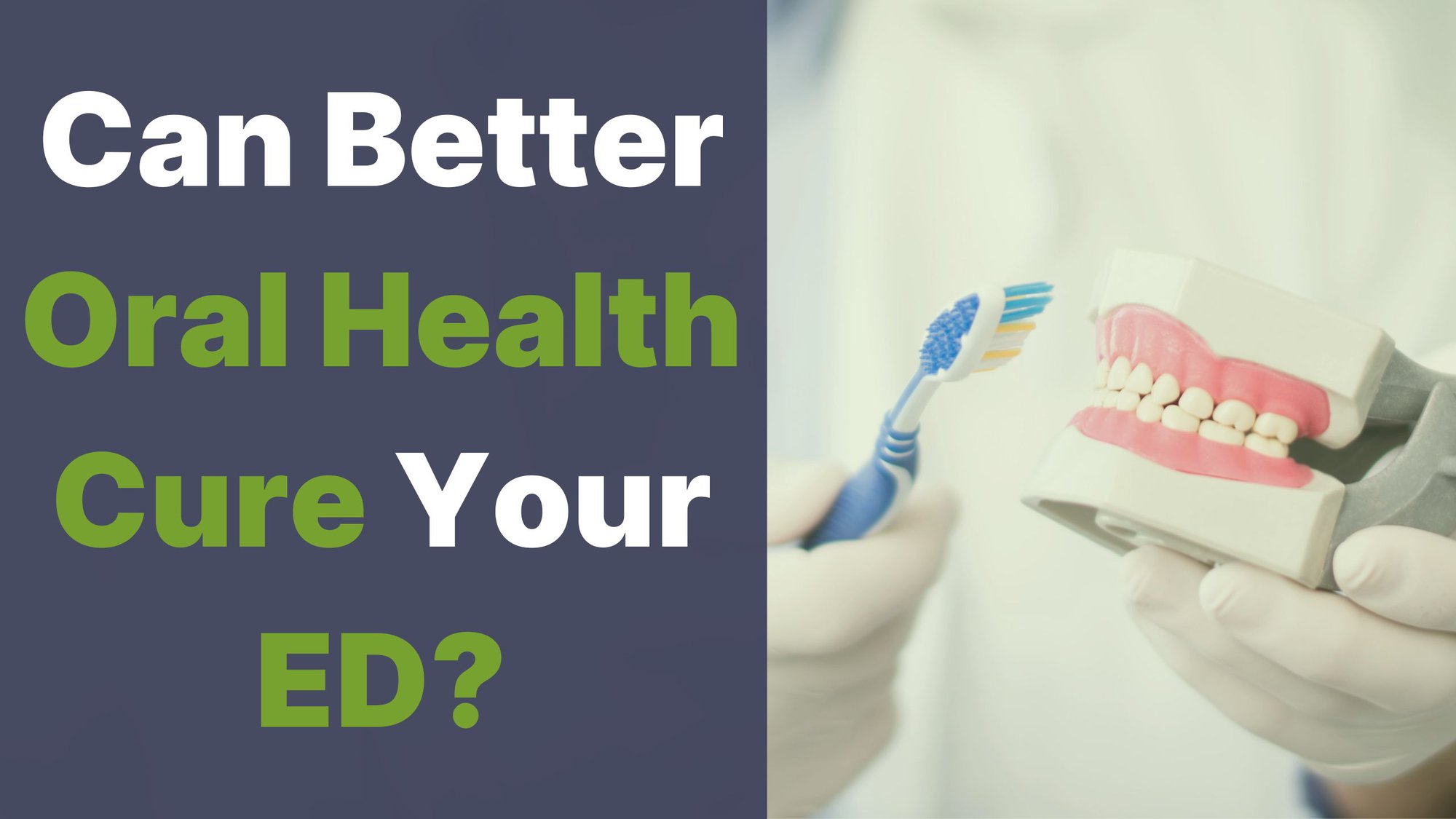
Can Better Oral Health Cure Your ED?
Erectile Dysfunction is becoming a bigger problem for the modern man. Now that we’re becoming more open about the topic, new studies are coming out constantly that shed light on what’s happening beneath the surface.
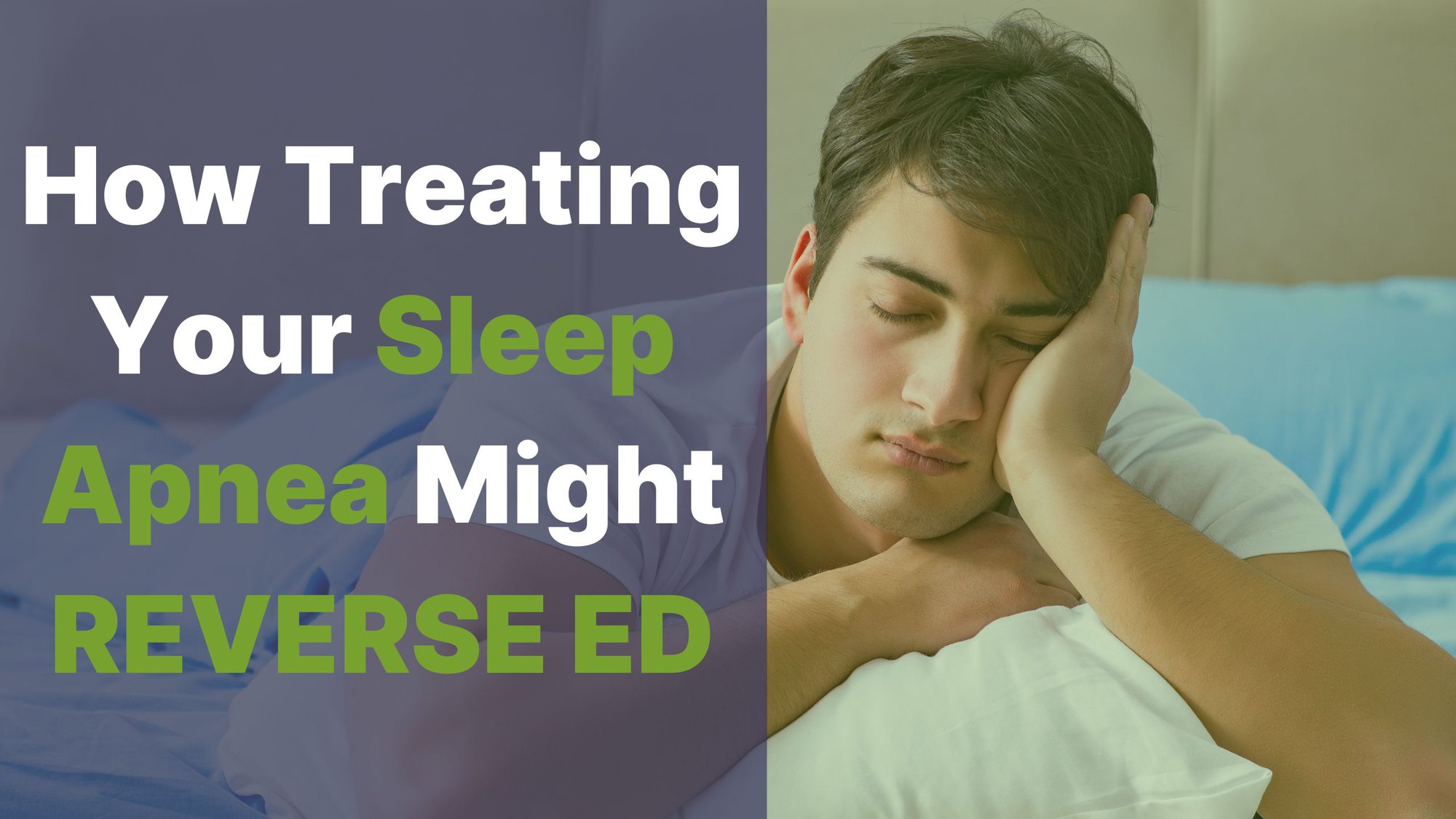
How Treating Your Sleep Apnea May Reverse ED
Men, how is your sleep? Sleep is an integral part of your health; when something affects your sleep, it also affects your body. Continuing our series on surprising reasons why you’re not performing well, we look at something that often goes untreated for a long time: Sleep Apnea. Sleep Apnea can contribute to decreased sexual function, memory, and overall quality of life.
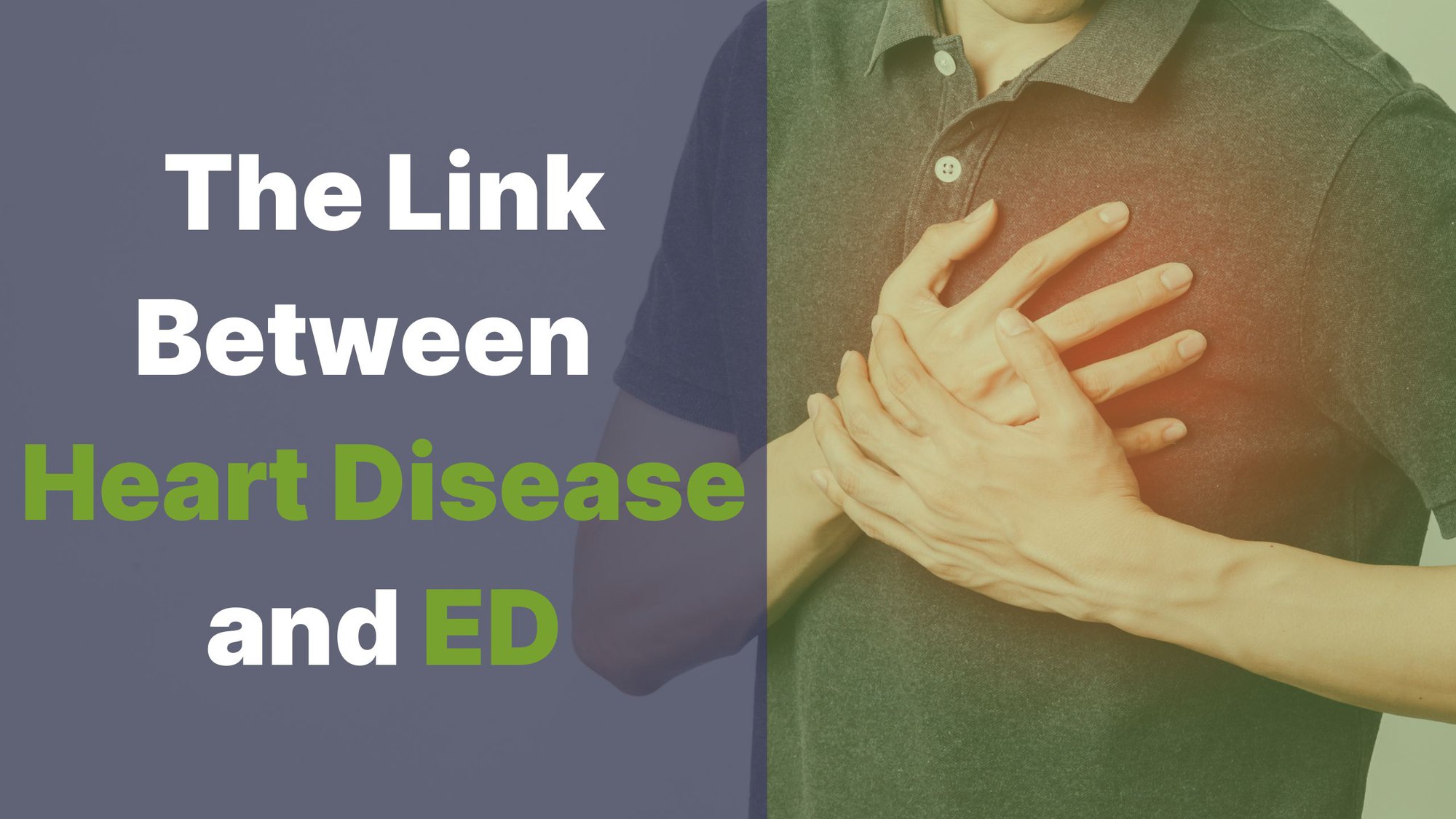
The Link Between Your Heart Health and ED
There are some shocking reasons why someone might have erectile dysfunction. While the main reason for erectile dysfunction is insufficient blood flow to the penis, other things happening in the body can affect how your blood flows and how your muscles respond to stimuli. Over the next few episodes, we’ll review each reason and find ways to combat them so you can reclaim your sex life. I’ll give you a hint for today: have you checked your cholesterol levels recently?

One Diet Change Away from a Better Erection
If you’re looking for a way to improve your sex life, but your erection is just not what you want it to be, read this before you start taking those pills! Over-the-counter medications often worsen ED by treating the symptoms rather than the source.
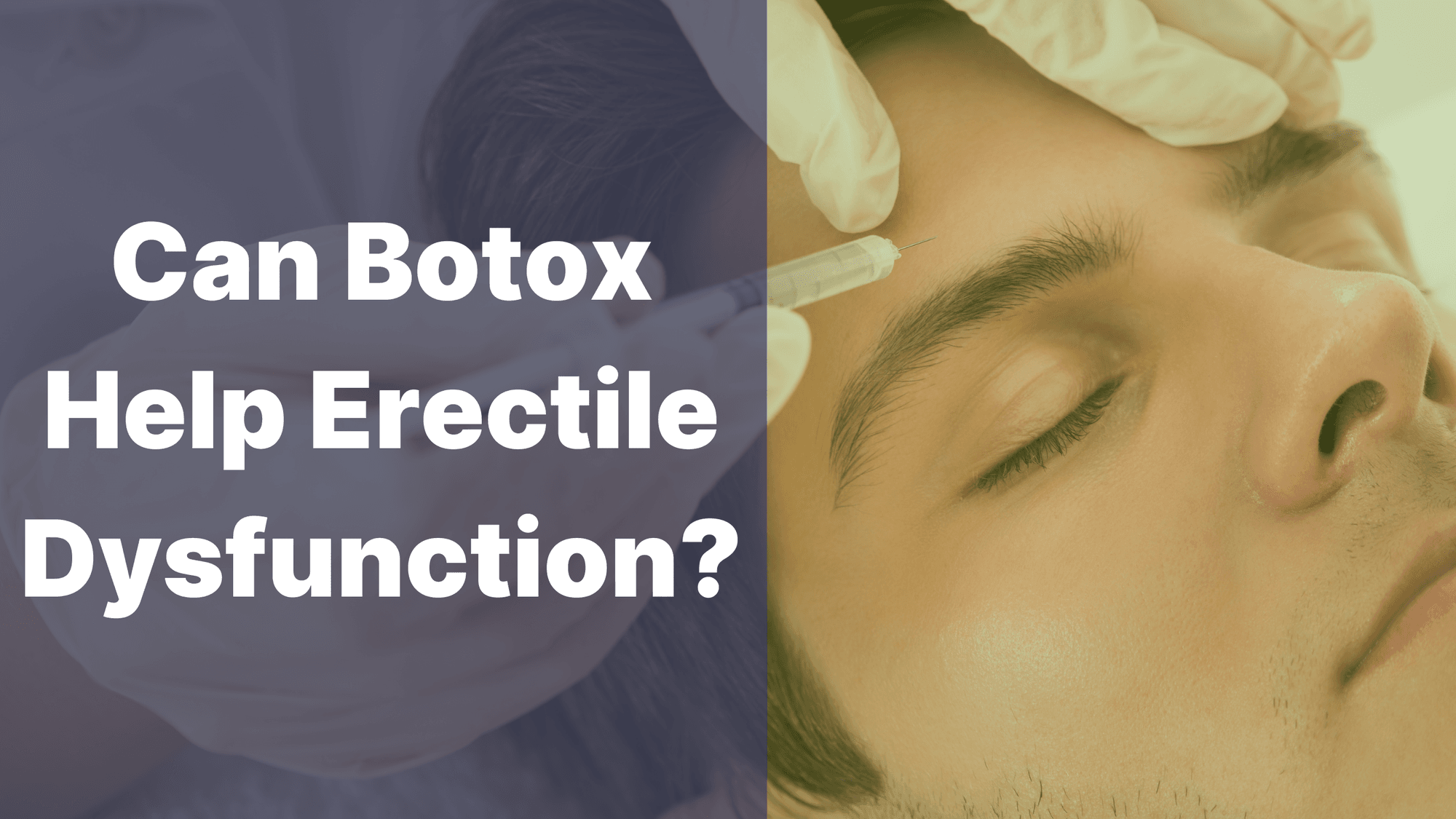
Can Botox Help Erectile Dysfunction
Did you know Botox has effects on your erection? Not many know that Botox is used for more things than just facelifts. In fact, it may help in cases of erectile dysfunction. In this episode, we look at how Botox works by increasing smooth muscle relaxation and arterial blood flow, which helps to increase blood flow to the penis and maintain its firmness. We’ll also look at case studies on its effects, safety, and best ways to use it.

How Porn is Robbing You of Your Erection
Ever wonder why porn is so darn addicting? As innocent as you may think it is, there’s a possibility that it may be affecting your performance in bed and in life. Eric Zuzack (Powerful Eric) is a recovered porn addict and life coach.

Swingers, Sex, and Orgasms with ‘Accidental Swingers’ Hosts Myrina and Tristan
Here at Sexual Health for Men, we keep our minds open to all options and walks of life while removing the stigmas so we can speak openly and honestly about it. To

Putting the Vitamin D Back in ED
Throughout my career, I’ve noticed something very telling. About 97% of men who come in for ED treatment have one thing in common: they have low vitamin D levels. So why is this vitamin so essential for men’s health, and how do we make sure to get more of it in our bodies?

What is Qigong and Why is it Essential to Your Sexual Health
What is Qigong and Why is it Essential to Your Sexual Health Sexual prowess and performance, healing and longevity, energy and stamina: you may be searching for each of those things, but
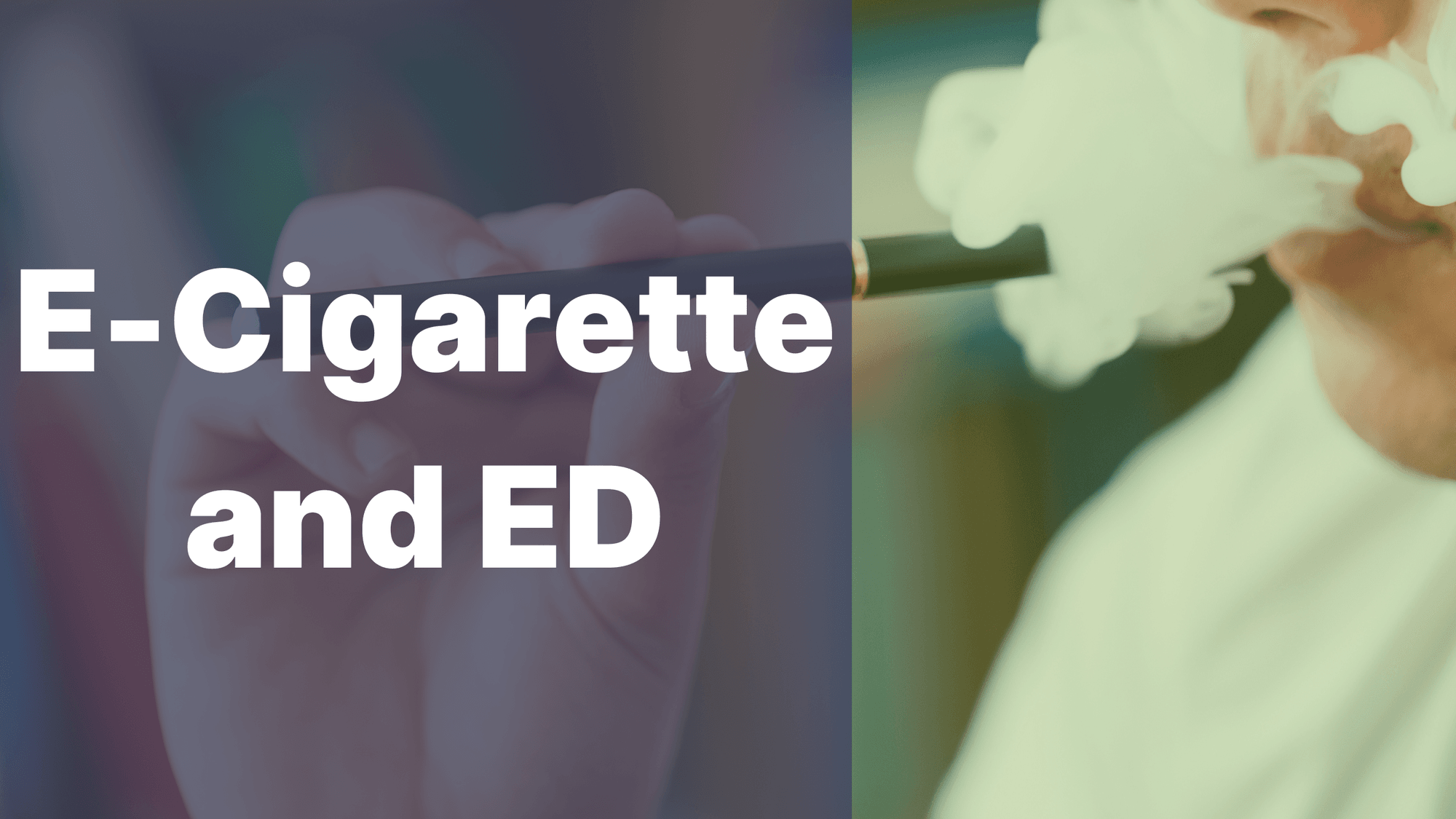
3 Surprising Ways Vaping May Be Causing You ED
The Surprising Ways Vaping May Be Causing Your ED E-cigarettes are becoming increasingly popular as an alternative to traditional cigarettes, especially among the younger generations. However, there is still a lot of

Desire, Arousal, and Erection with Dr. Kelly Casperson
Do you want tips for a stronger erection and better arousal? In this episode, urologist, podcaster, and author, Dr. Kelly Casperson reveals some of her most effective tips for you to apply right away. Pulling from the female perspective and sexuality, Kelly has some of the most well-rounded strategies for a healthy sex life I’ve ever come across. As the author of the book and podcast, You Are Not Broken, Kelly wants people to understand their sexuality and how to have better sex lives by dispelling myths and educating people on “real” sex.
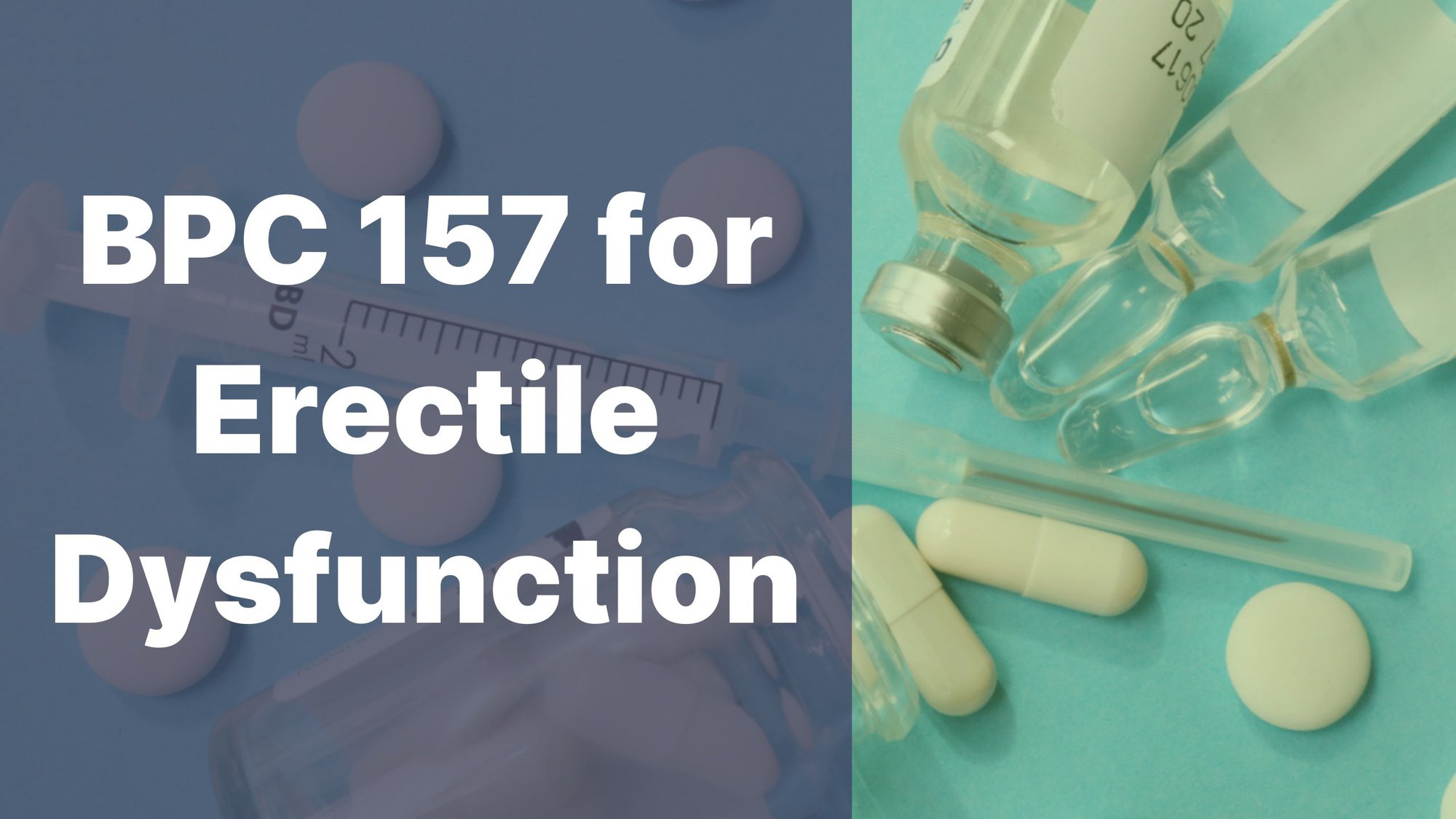
BPC 157 for Erectile Dysfunction
Peptide BPC-157 has been shown to improve sexual function, libido, and overall physical performance. In addition, it has been confirmed to help reduce inflammation and pain in the body. If you are looking for a peptide that can improve your sexual health, athletic recovery, and overall healing, BPC-157 may be the right choice for you.

Sexual Tips from Hollywood Actor Ryan Carnes
Ryan Carnes is a Hollywood actor, producer, singer-songwriter, and screenwriter. You might define him as successful, sexy, and confident, but he wasn’t born like that. So how did he get here? It’s time to unlock the secret to an unwavering confidence in and out of the bedroom.

Increasing Blood Flow to the Penis with Natural Remedies
Did you know you had the power to choose to increase blood flow to the penis naturally? I will show you how to do just that. I’ll discuss how certain herbs, activities, supplements, and diets can increase blood flow to the penis and your stamina.
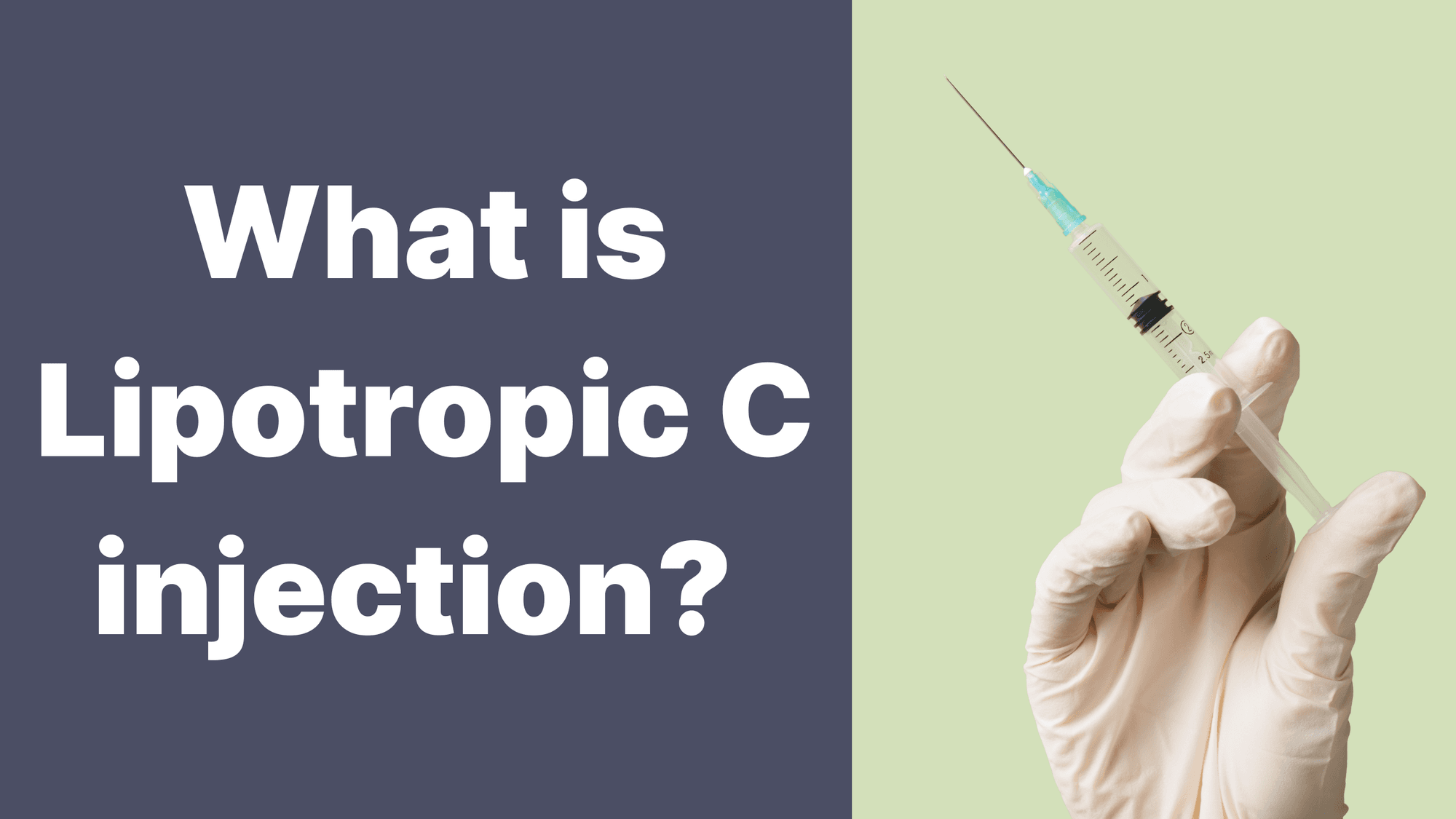
What is Lipotropic C injection?
The lipotropic injection is a weight loss treatment that uses lipotropic hormones to help the body burn more calories. The injection is given by a doctor in a hospital or clinic setting, and it’s typically used in combination with other weight loss treatments, such as diet and exercise.

Workout for Sexual Fitness with Eric the Trainer
Have you ever looked at a celebrity and thought, “Man! They are so attractive and fit. How do they not struggle with things like ED?” Well, you may be surprised to hear that even major celebrities (especially males) secretly battle with sexual issues. When that happens, Eric the Trainer is the one they call.

What Is a Whiskey Dick?
Studies have shown that drinking 1 to 2 glasses of alcohol can be good for your erection. Any more than that, and you’re running into dangerous territory.

Exercises For Men To Last Longer
Have you ever wondered what types of exercises can help you with getting a better erection or lasting longer? Oftentimes men ask what exercises they should do that will help strengthen the penis as well as help with ED and last longer The answers for you are here, and they’re fairly simple

How To Get Your Wife To Want You For Sex!!
Are you looking for an effective way to improve your relationship and make your wife crave for your touch? A lot of men struggle with getting their wives or partners to have sex with them. But don’t worry about it anymore. Susan Bratton is here to provide you with amazing tips to get your partner in the mood for sex. Susan is a champion and advocate for all those who desire intimacy and passion their whole life long.

Why I Can’t Get Rock Hard Anymore
If you find yourself asking “why I can’t get rock hard anymore”, you may be experiencing erectile dysfunction. If you’re looking for a natural way to cure your erectile dysfunction, you’ve come to the right place. I’m going to share with you some of the most common causes of ED and how you can treat it without having to rely on expensive medications.

Oysters Aphrodisiac And Other Foods To Get You In The Mood With Amy Reiley
Ever wonder what are aphrodisiac food? and do they work? We will discuss these in this episode with Amy Reiley. America’s leading aphrodisiac food authority.

How Sleep Can Improve Your Sex Life
Most guys know that getting a good night’s sleep is essential, but did you know that sleep can improve your sex life? You’re not getting the sleep you need, and as a result, your sex life is suffering.
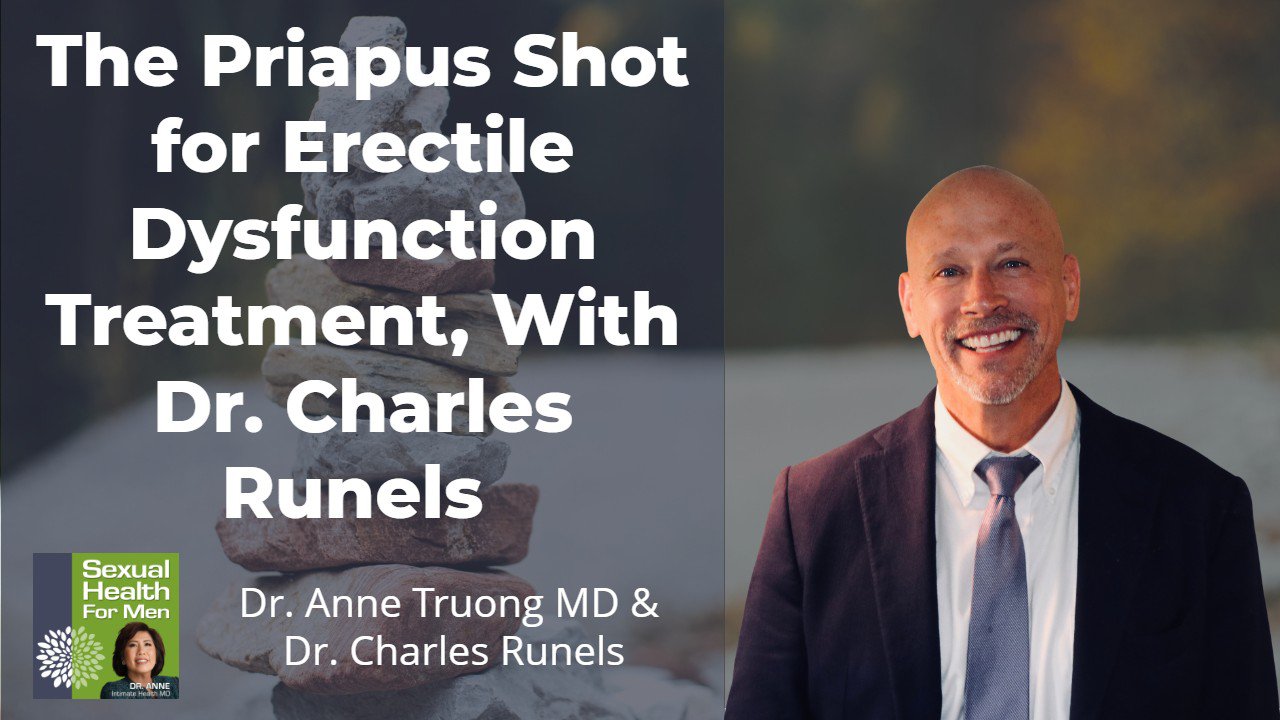
Dr. Charles Runels The Priapus Shot for Erectile Dysfunction Treatment
In this episode, I am talking with Dr. Charles Runels, The creator of the Priapus Shot and the O Shot.
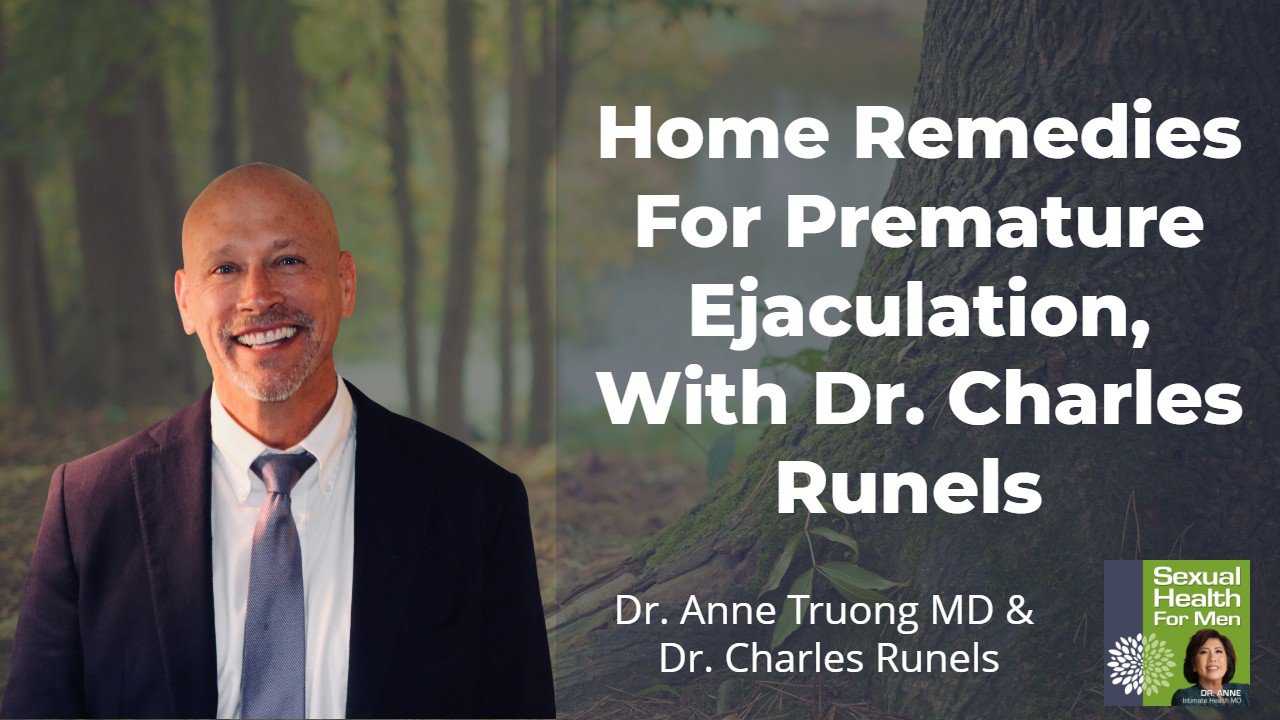
Home Remedies For Premature Ejaculation
This podcast episode features a discussion between the host and Dr. Charles Runels, the inventor of the Priapus Shot, a treatment for premature ejaculation. They discuss the causes and effects of premature ejaculation and how the Priapus Shot can help.

Penis Pumps – Myths and Truth
Penis pumps are vacuum devices that can help you get an erection. There are many myths, stigmas about pumping. We will unravel on the use of the penis pump.
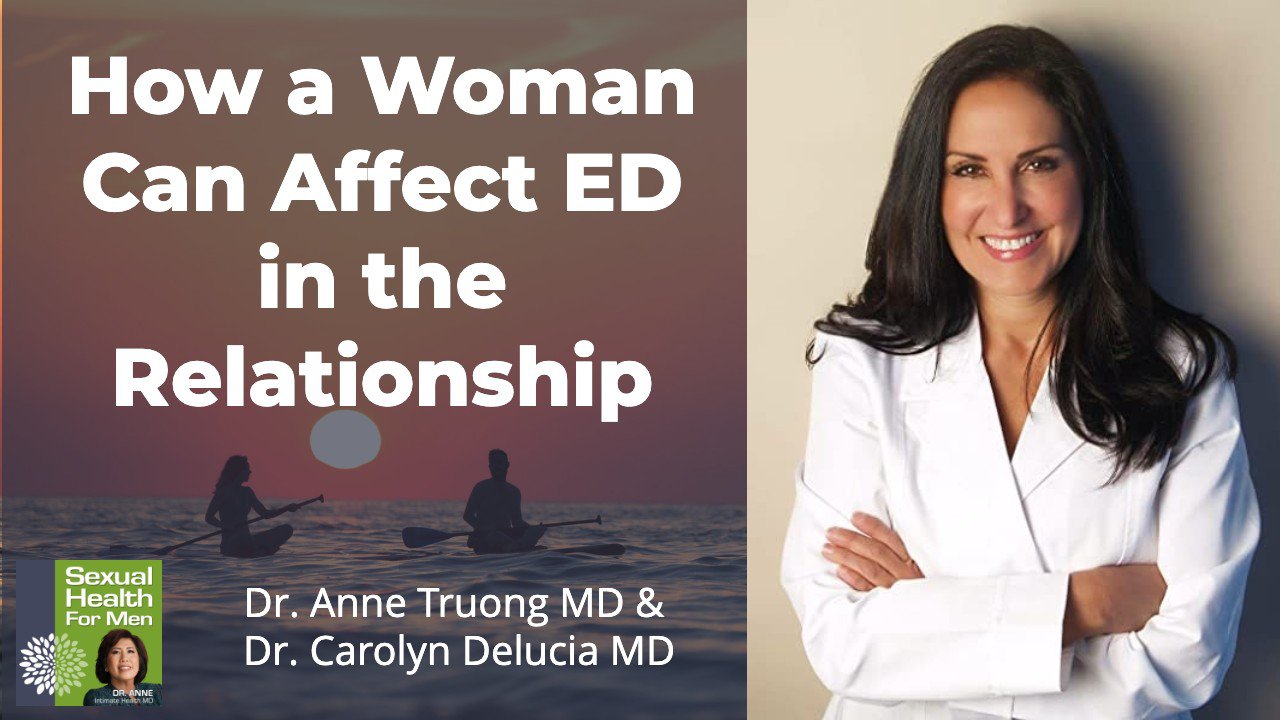
How a Woman Can Affect ED in Relationships With Dr. Carolyn Delucia MD
Intimacy is ever-evolving as biological changes for men and women. These changes can lead to a lack of interest, enjoyment, or even physical discomfort. ED in relationships can cause about 30% of marriages to end from sexual discord. Dr. Truong and Dr. Lucia explore the topic.
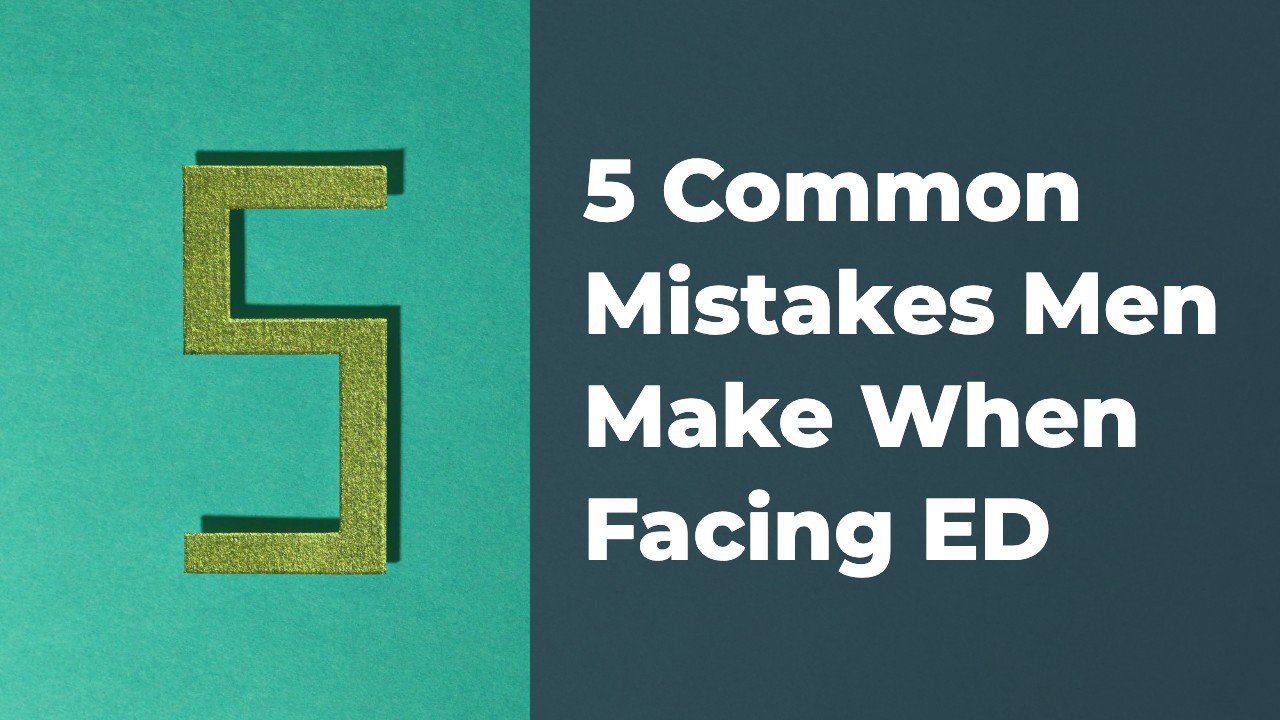
5 Common Mistakes Men Make When Facing ED
ED affects at least 30 million men in the US, and there are 600,000 new cases a year. ED is common, but 67% of men do not know they have ED. In addition, ED treatment is often mystified and misunderstood. In this episode, we will talk about The 5 Common Costly Mistakes Men Make When Facing Erectile Dysfunction.
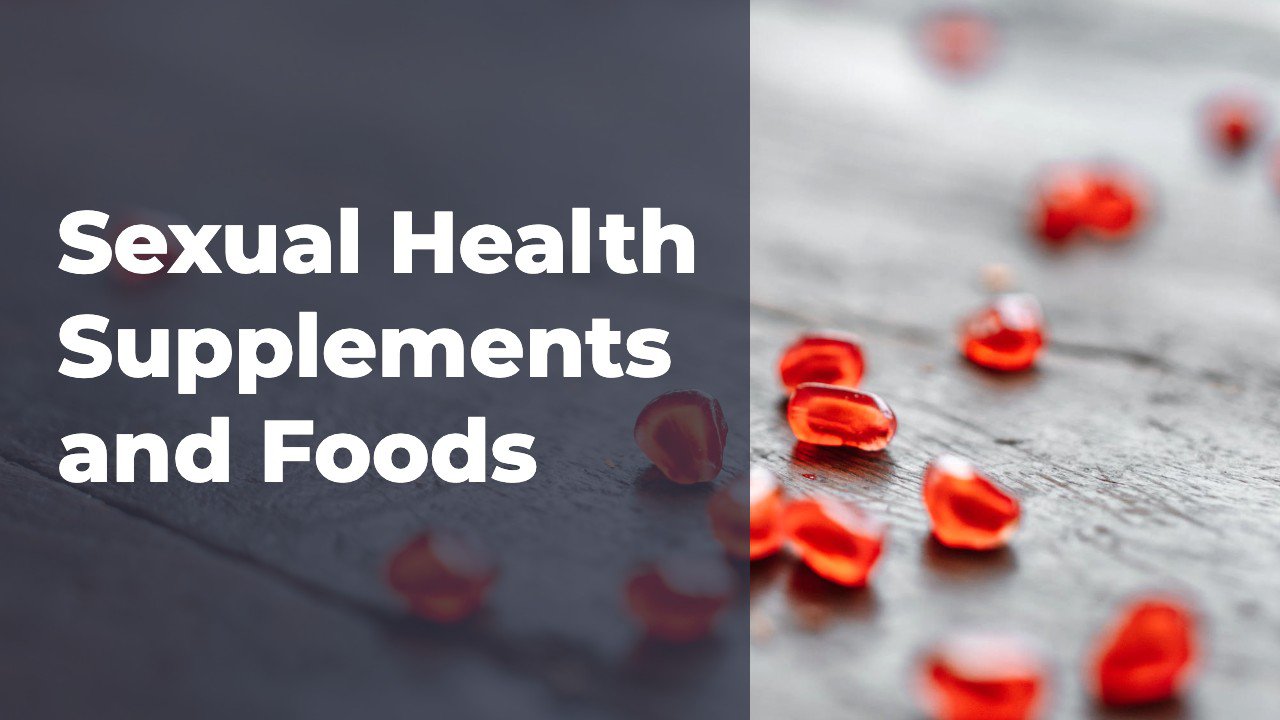
Sexual Health Supplements and Foods
Here’s what every man needs to know about validated and researched sexual health supplements and foods to help with ED! In this brand new recording, Dr. Anne Truong will discuss validated and researched supplements and foods to help with ED. Don’t continue to waste money on online supplements that may not work. Listen to this episode to find out. Plus, you will learn what food to spice up the bedroom.

Red Onion Juice For Erectile Dysfunction
Red onion juice increase penile pressure and erection from recent published study.
Get a free copy of my brand new ebook erectile dysfunction: The five common mistakes men make when facing erectile dysfunction
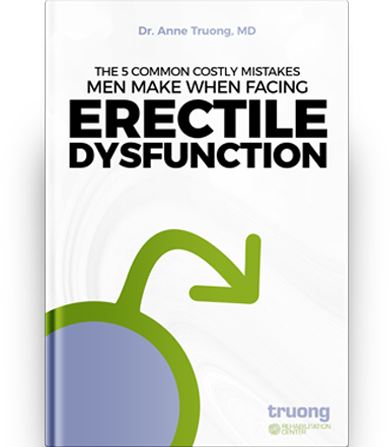
RECENT EPISODES
Subscribe to our Newsletter
Footer
Copyright © 2026 Rehabilitation Medicine Physicians.
IMPORTANT!
IMPORTANT! All information presented in this website is intended for informational purposes only and not for the purpose of rendering medical advice. Statements made on this website have not been evaluated by the Food and Drug Administration. The information contained herein is not intended to diagnose, treat, cure or prevent any disease.

